ROPAA implementation C’ttee begins regional consultations today
- 18 Feb 2019 --
The Consultative and Implementation Committee set up by the Electoral Commission (EC) to recommend how the Representation of the People’s Amendment Act (ROPAA) should be implemented is to roll out a comprehensive regional consultation programme with local stakeholders and civil society organisations.
The EC ROPAA Committee would engage representatives of political parties, traditional authorities, religious leaders, and the media from February 18 at Sekondi, Western Region; February 19 at Cape Coast, Central Region; and February 21 at Koforidua, Eastern Region.
Others are as follows: February 22 at Ho, Volta Region; March 4, at Kumasi, Ashanti Region; and March 5 at Sunyani, Brong Ahafo Region; March 7 at Bolgatanga, Upper East Region; March 8, at Tamale, Northern Region; and March 9 at Wa, Upper West Region.
The EC ROPAA Committee’s working document made available to the Ghana News Agency in Accra over the weekend indicates that on March 18, the Committee would wrap-up the first phase of the consultation to scrutinize the regional outcomes.
The nine-member EC ROPAA Committee is chaired by Dr Bossman Eric Asare, EC Deputy Chairman, in-charge of Corporate Services with Mr Christian Owusu-Parry, EC Director of Administration as the Secretary.
Other Members of the Committee include Mrs Adwoa Abrefa Asuama, EC Member; Mr John Boadu, General Secretary of the New Patriotic Party (NPP); and Dr Benjamin Kumbuor, a leading member of the National Democratic Congress (NDC).
The rest are Reverend Dr Ernest Adu Gyamfi of the National Peace Council; Professor Ransford Gyampo of the University of Ghana, and Dr Kojo Asante of the Centre for Democratic Development (CDD) Ghana and Mr Kofi Akpaloo, representing the other minority parties.
Mrs Jean Mensa, EC Chairperson has tasked the Committee to do a “desk research” on countries that were implementing ROPAA and how those countries are implementing the Act.
Apart from the regional consultative, the Committee would pay a working visit to countries already practicing external voting namely Mali, South Africa, the United States and the United Kingdom.
Mrs Mensa also tasked the Committee to undertake stakeholder consultations with a view to seeking the opinion of key stakeholders on the best approach to the implementation of ROPAA.
She said the implementation of ROPAA requires that the Commission puts together regulations, in the form of a Constitutional Instrument (CI), to regulate the registration of voters and the conduct of elections in foreign countries.
Mrs Mensa said at the end of the work of the ROPAA Consultative and Implementation Committee, a technical group would be constituted to draft regulations for external voting, then it would eventually be passed into a CI by Parliament by the close of December 2019.
The EC Chairperson said: “It has been 12 years since ROPAA became law, but Ghanaian citizens living outside the country are yet to benefit from the opportunities presented by ROPAA.”
“This is because of the obvious challenges that are likely to be encountered in the implementation of ROPAA,” she said.
Mrs Mensa recalled that in the past, attempts were made by the EC, under the leadership of Dr Kwadwo Afari-Gyan to find a way of implementing ROPAA that would be acceptable to all stakeholders, by setting up a committee in 2011 to make recommendations for the ROPAA implementation.
“Seven years on, the right to be registered as a voter and to vote in public elections and referenda remains elusive to the Ghanaian living outside Ghana.”
Mrs Mensa said a lot has changed since the Committee set up by Dr Afari-Gyan presented its report; stating that, it was necessary that in trying to implement ROPAA now, stakeholders take into account the new developments in Ghana’s electoral process.
She said it was for this reason that this Consultative and Implementation Committee was being formed to continue with the process after it was put on hold from 2011.
It would be recalled that the following advocacy by interest groups a Bill was introduced in Parliament in 2006, the Representative of the People Amendment Bill (ROPAB) to amend the representation of the People’s Law of 1992 PDNC Law 284.
The PNDC Law 284 did not make provision for Ghanaian citizens other than persons working in Ghana’s diplomatic missions, persons working with international organisations of which Ghana is a member and Ghanaian students on Government scholarship, to be registered in the countries where they reside.
The ROPAA, Act 2006, ACT 699 was therefore passed to extend the right of the Ghanaian to participate in voting in public elections and referenda to Ghanaians living outside Ghana.

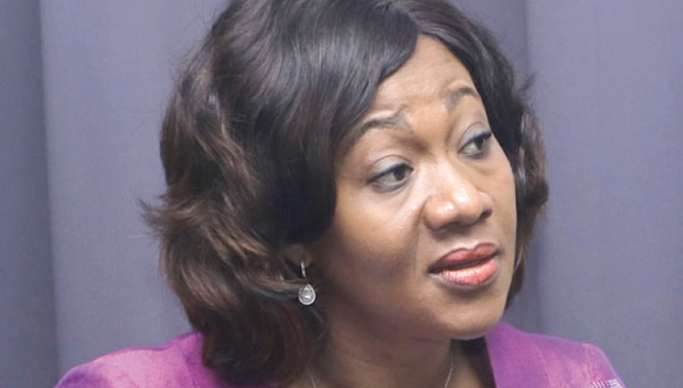
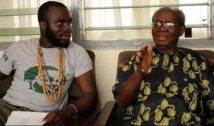
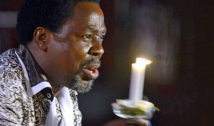










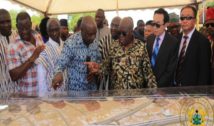

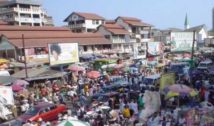





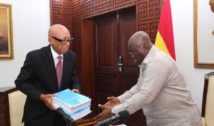

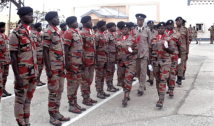







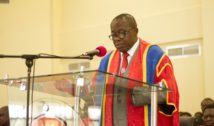








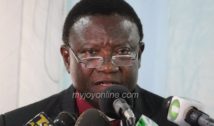






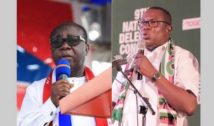





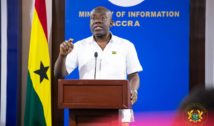








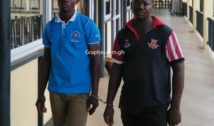

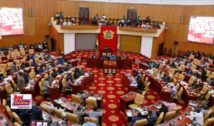
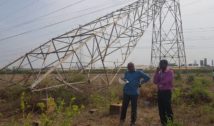


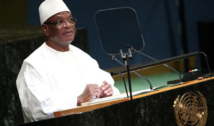



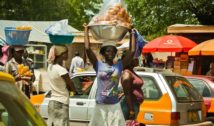








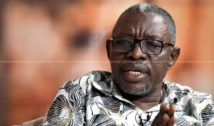










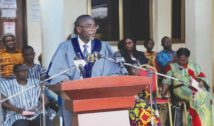


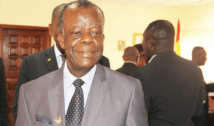
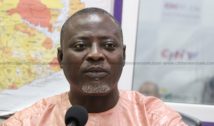








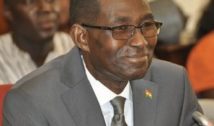
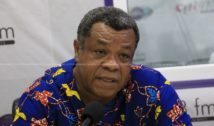
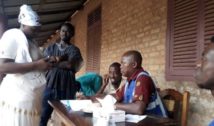
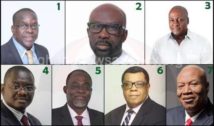


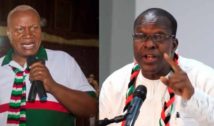









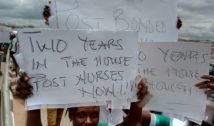




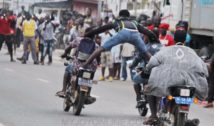
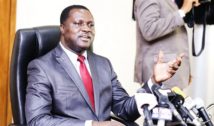
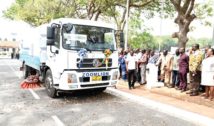



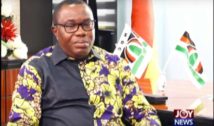
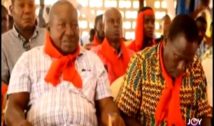




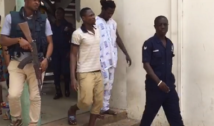



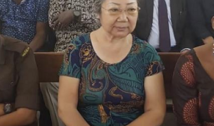

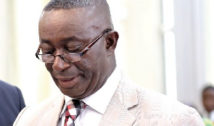
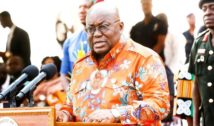
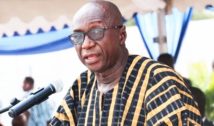




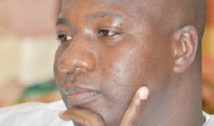

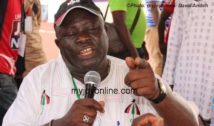
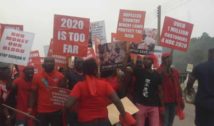


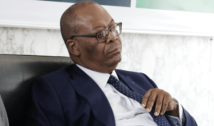




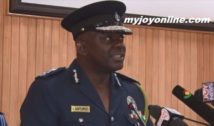



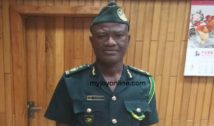
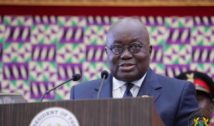
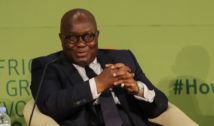


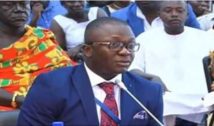


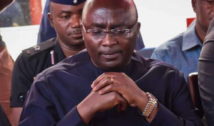


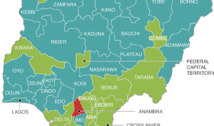





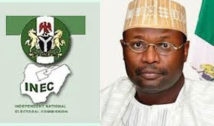




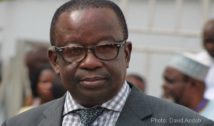











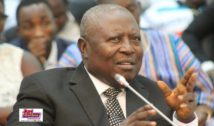





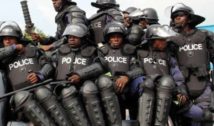











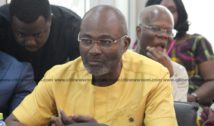



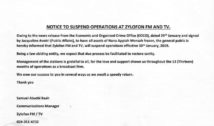

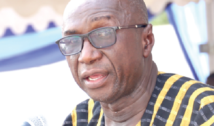
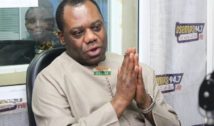

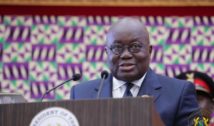
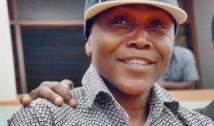





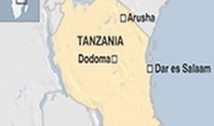




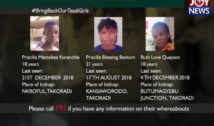

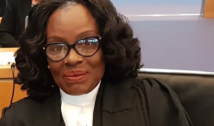




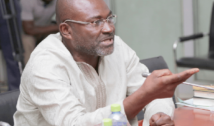





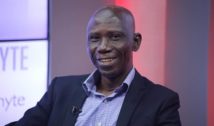


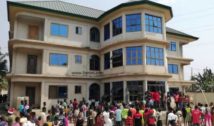




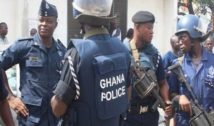

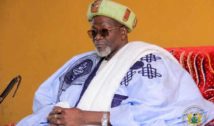










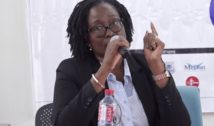
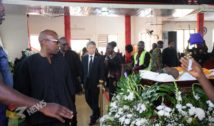


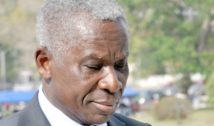


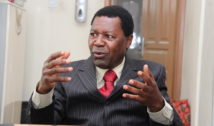





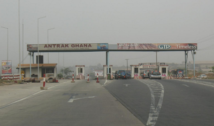


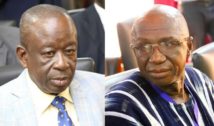
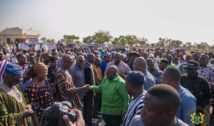


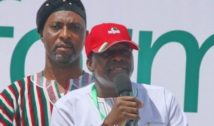





2,800 comments
The Confidential
12:05 pmI?ve been exploring for a bit for any high-quality articles or weblog posts in this sort of house . Exploring in Yahoo I finally stumbled upon this site. Reading this information So i?m glad to show that I’ve an incredibly excellent uncanny feeling I came upon exactly what I needed. I most certainly will make certain to don?t overlook this web site and provides it a look on a relentless basis.
https://bit.ly/3w5PxbW
The Confidential
12:05 pmbookmarked!!, I love your website.
https://bit.ly/fakazaio
The Confidential
12:05 pmI’ve really noticed that fixing credit activity has to be conducted with tactics. If not, you are going to find yourself causing harm to your rank. In order to be successful in fixing to your credit rating you have to be careful that from this moment you pay all your monthly costs promptly prior to their appointed date. It is significant because by certainly not accomplishing that area, all other actions that you will choose to adopt to improve your credit standing will not be useful. Thanks for giving your tips.
https://homedesigninstitute.com/question/5183/how_can_you_incorporate_natural_elements_into_your_backyard_design/
The Confidential
12:05 pmGood article. I will be experiencing many of these issues as well..
https://staff.blog.ui.ac.id/rendi.supiana/review-fakaza/
The Confidential
12:05 pmYou must take part in a contest for among the best blogs on the web. I will advocate this web site!
https://www.offshoresportsbooks.com/
The Confidential
12:05 pmAlmost all of the things you claim happens to be supprisingly accurate and that makes me ponder the reason why I hadn’t looked at this with this light before. This article really did turn the light on for me as far as this specific subject goes. Nevertheless at this time there is just one factor I am not necessarily too cozy with so while I make an effort to reconcile that with the main idea of your position, permit me observe exactly what the rest of your subscribers have to say.Nicely done.
https://xcaosystemgroup.com/
The Confidential
12:05 pmGreetings! Very helpful advice in this particular post! It’s the little changes that will make the greatest changes. Thanks for sharing!
https://bbs.lineagem.shop/home.php?mod=space&uid=431516
The Confidential
12:05 pmThat is very attention-grabbing, You are an excessively professional blogger. I’ve joined your rss feed and look ahead to in quest of extra of your fantastic post. Additionally, I have shared your website in my social networks!
https://wishescave.com/
The Confidential
12:05 pmGenerally I do not read post on blogs, but I wish to say that this write-up very forced me to try and do it! Your writing style has been amazed me. Thanks, very nice article.
http://stay-1004.com/2023/01/26/have-the-finest-ideas-in-order-to-become-an-iso-agent/
The Confidential
12:05 pmYou can definitely see your expertise within the paintings you write. The sector hopes for more passionate writers like you who aren’t afraid to say how they believe. All the time follow your heart.
https://www.ikariajuice-ikariajuice.com/
The Confidential
12:05 pmThis is a very good tip particularly to those new to the blogosphere. Short but very accurate info… Appreciate your sharing this one. A must read post!
https://tornadosocial.com/story14289437/fakaza-io-full-review
The Confidential
12:05 pmWhat?s Happening i’m new to this, I stumbled upon this I have found It absolutely useful and it has helped me out loads. I hope to contribute & aid other users like its helped me. Good job.
https://easytvuk.co.uk/problems-watching-freeview/
The Confidential
12:05 pmGood day! I just would like to give an enormous thumbs up for the nice data you’ve gotten right here on this post. I will be coming back to your blog for extra soon.
https://www.zoritolerimol.com
The Confidential
12:05 pmHi, I do think this is a great site. I stumbledupon it 😉 I’m going to revisit once again since i have book-marked it. Money and freedom is the greatest way to change, may you be rich and continue to guide others.
https://emiliocaxsl.humor-blog.com/18747716/a-ace-inside-the-hole-for-tubidy
The Confidential
12:05 pmGreetings, There’s no doubt that your web site might be having internet browser compatibility issues. When I look at your site in Safari, it looks fine however, if opening in I.E., it has some overlapping issues. I just wanted to give you a quick heads up! Other than that, excellent blog!
http://need-books.ru/user/shapecrate5/
The Confidential
12:05 pmHaving read this I believed it was very enlightening. I appreciate you taking the time and effort to put this information together. I once again find myself spending a lot of time both reading and commenting. But so what, it was still worthwhile!
https://spencerff623.bloggerbags.com/21205130/5-straightforward-claims-approximately-mp3juice-download-free-mp3-explained
The Confidential
12:05 pmMay I simply just say what a comfort to uncover somebody who really understands what they’re talking about on the internet. You certainly know how to bring an issue to light and make it important. A lot more people must read this and understand this side of your story. It’s surprising you’re not more popular because you certainly have the gift.
http://downarchive.org/user/forcecd77/
The Confidential
12:05 pmGood day! This is kind of off topic but I need some help from an established blog.
Is it very difficult to set up your own blog? I’m not very
techincal but I can figure things out pretty fast.
I’m thinking about creating my own but I’m not sure where to begin. Do you have any points or
suggestions? Thanks
The Confidential
12:05 pmI have observed that car insurance providers know the motors which are liable to accidents and other risks. In addition, they know what style of cars are susceptible to higher risk and the higher risk they may have the higher the particular premium price. Understanding the straightforward basics connected with car insurance just might help you choose the right types of insurance policy that could take care of your requirements in case you happen to be involved in any accident. Many thanks for sharing the actual ideas on your blog.
https://fixedmatches-1×2.com/
The Confidential
12:05 pmWow, that’s what I was looking for, what a stuff! present here at this blog, thanks admin of this web page.
Feel free to surf to my web page – free Png may 2023 Calendar
The Confidential
12:05 pmAfter I initially commented I seem to have clicked on the -Notify me when new comments are added- checkbox and now every time
a comment is added I receive four emails with the same comment.
There has to be a way you can remove me from that service?
Kudos!
The Confidential
12:05 pmPost writing is also a excitement, if you be acquainted
with afterward you can write if not it is complex to write.
The Confidential
12:05 pmI love reading a post that will make people think.
Also, thank you for allowing for me to comment!
The Confidential
12:05 pmHaving read this I thought it was really informative.
I appreciate you spending some time and effort to put this informative article together.
I once again find myself personally spending a lot of time both reading and posting comments.
But so what, it was still worthwhile!
The Confidential
12:05 pmHi there! This post couldn’t be written much better! Looking at this post reminds me of my previous roommate! He constantly kept preaching about this. I am going to forward this information to him. Pretty sure he will have a very good read. Thanks for sharing!
https://downloadlagu321.icu
The Confidential
12:05 pmYou’re so interesting! I don’t think I’ve truly read a single thing like that before. So nice to find another person with unique thoughts on this subject. Really.. thanks for starting this up. This website is one thing that’s needed on the internet, someone with a bit of originality.
https://downloadlagu321.icu
The Confidential
12:05 pmbuy viagra online
The Confidential
12:05 pmHi, this weekend is fastidious for me, for the reason that this moment
i am reading this impressive informative paragraph here at my house.
The Confidential
12:05 pmWay cool! Some very valid points! I appreciate you penning this write-up and also the rest of the site is really good.
https://mirrorbookmarks.com/story14083234/take-pleasure-in-the-newest-trending-videos-make-being-impressed
The Confidential
12:05 pmI want to to thank you for this fantastic read!!
I definitely enjoyed every little bit of it. I have got you book-marked to
check out new stuff you post…
The Confidential
12:05 pmbuy viagra online
The Confidential
12:05 pmOnline poker
The Confidential
12:05 pmbuy viagra online
The Confidential
12:05 pmpenis enlargement
The Confidential
12:05 pmWhen someone writes an post he/she keeps the image of a user in his/her mind that how a user can be aware of it.
Thus that’s why this paragraph is amazing. Thanks!
The Confidential
12:05 pmلوله پلی اتیلن
لوله پلی اتیلن
لوله پلی اتیلن
لوله پلی اتیلن
لوله پلی اتیلن
لوله پلی اتیلن
لوله پلی اتیلن پارس کیش
The Confidential
12:05 pmbuy viagra online
The Confidential
12:05 pmbuy viagra online
The Confidential
12:05 pmbuy viagra online
The Confidential
12:05 pmOnline poker
The Confidential
12:05 pmbuy viagra online
The Confidential
12:05 pmHeya i’m for the first time here. I found this board and I find It really useful & it helped me out
a lot. I hope to give something back and help others like you helped me.
The Confidential
12:05 pmUnquestionably believe that which you stated. Your favorite justification appeared to be on the internet the easiest factor
to bear in mind of. I say to you, I definitely get annoyed at the same time as people think about concerns
that they plainly don’t recognise about. You managed to hit the nail upon the top and outlined out the whole thing without having side effect , people could take
a signal. Will probably be back to get more. Thank you
The Confidential
12:05 pmpayday loan
The Confidential
12:05 pmbuy viagra online
The Confidential
12:05 pmAw, this was an extremely nice post. Taking the time and actual effort to produce a great article… but what can I say… I procrastinate a lot and never seem to get anything done.
https://music00864.blog5.net/58186179/not-determined-specifics-of-tubidy
The Confidential
12:05 pmExactly. All to do with temporary phone number for snapchat isn’t it?
The future will prove who was right and who was in error!
Receive Sms Online for phone number verification – PVAPins
The Confidential
12:05 pmWonderful post! We will be linking to this particularly great
post on our site. Keep up the good writing.
The Confidential
12:05 pmpayday loan
The Confidential
12:05 pmI’m really enjoying the theme/design of your site. Do you ever run into
any web browser compatibility issues? A few of my blog audience have complained about my website not working correctly in Explorer but looks great in Safari.
Do you have any tips to help fix this issue?
The Confidential
12:05 pmOnline poker
The Confidential
12:05 pmbuy viagra online
The Confidential
12:05 pmbuy viagra online
The Confidential
12:05 pmVery good info. Lucky me I ran across your site by accident (stumbleupon). I have book-marked it for later.
https://www.demilked.com/author/cribdirt5/
The Confidential
12:05 pmbuy viagra online
The Confidential
12:05 pmThis blog was… how do I say it? Relevant!! Finally I have found something that helped me.
Kudos!
The Confidential
12:05 pmHello to every one, the contents existing at this web
site are truly awesome for people experience, well, keep up
the good work fellows. Earn CAKE through yield farming or win it in the Lottery Win millions in prizes
The Confidential
12:05 pmpayday loan
The Confidential
12:05 pmEvery weekend i used to pay a quick visit this site, as i want
enjoyment, since this this web page conations really fastidious funny material too.
The Confidential
12:05 pmJust desire to say your article is as astonishing.
The clearness in your post is just spectacular and i could assume you are an expert on this subject.
Fine with your permission let me to grab your feed to keep
up to date with forthcoming post. Thanks a
million and please keep up the rewarding work.
The Confidential
12:05 pmNice website you’ve going here.
www
The Confidential
12:05 pmpayday loan
The Confidential
12:05 pmpenis enlargement
The Confidential
12:05 pmbuy viagra online
The Confidential
12:05 pmpayday loan
The Confidential
12:05 pmI couldn’t refrain from commenting. Very well written.
https://google.la/url?q=https://tubidy.org.za
The Confidential
12:05 pmIt’s perfect time to make some plans for the future
and it’s time to be happy. I’ve read this post and if I could I desire to suggest you some interesting things or tips.
Maybe you could write next articles referring to this article.
I desire to read more things about it!
Here is my webpage; buy ozempic online mexico
The Confidential
12:05 pmbuy viagra online
The Confidential
12:05 pmEverything is very open with a clear clarification of the issues. It was definitely informative. Your website is very helpful. Many thanks for sharing.
https://makassar.tribunnews.com/2023/02/23/simak-begini-cara-mudah-download-musik-offline-dengan-tubidy
The Confidential
12:05 pmpenis enlargement
The Confidential
12:05 pmbuy viagra online
The Confidential
12:05 pmThanks for ones marvelous posting! I definitely enjoyed reading it,
you are a great author. I will ensure that I bookmark your
blog and will eventually come back in the future.
I want to encourage you continue your great writing,
have a nice day!
The Confidential
12:05 pmbuy viagra online
The Confidential
12:05 pmIt’s great that you are getting thoughts from this article
as well as from our discussion made here.
The Confidential
12:05 pmThese are really great ideas in about blogging. You have touched some pleasant points here.
Any way keep up wrinting.
The Confidential
12:05 pmI just could not depart your web site prior to suggesting that I actually enjoyed the standard info a person provide for your visitors? Is gonna be back often in order to check up on new posts
https://www.graphicsbytoni.com/แดเนี่ยลเลวี่/
The Confidential
12:05 pmbuy viagra online
The Confidential
12:05 pmpenis enlargement
The Confidential
12:05 pmpenis enlargement
The Confidential
12:05 pmbuy viagra online
The Confidential
12:05 pmbuy viagra online
The Confidential
12:05 pmOnline poker
The Confidential
12:05 pmOnline poker
The Confidential
12:05 pmpayday loan
The Confidential
12:05 pmpayday loan
The Confidential
12:05 pmpayday loan
The Confidential
12:05 pmI used to be able to find good information from your blog articles.
https://mentor.unibuc.ro/forums/user/earthplough61/
The Confidential
12:05 pmbuy viagra online
The Confidential
12:05 pmpenis enlargement
The Confidential
12:05 pmOnline poker
The Confidential
12:05 pmbuy viagra online
The Confidential
12:05 pmpayday loan
The Confidential
12:05 pmpayday loan
The Confidential
12:05 pmLovely site! I am loving it!! Will be back later to read some more. I am taking your feeds also.
https://bulktokensender.com/
The Confidential
12:05 pmpayday loan
The Confidential
12:05 pmpayday loan
The Confidential
12:05 pmpenis enlargement
The Confidential
12:05 pmpayday loan
The Confidential
12:05 pmwatch porn video
The Confidential
12:05 pmbuy viagra online
The Confidential
12:05 pmbuy viagra online
The Confidential
12:05 pmMy brother recommended I might like this website. He was entirely right. This post truly made my day. You cann’t imagine simply how much time I had spent for this information! Thanks!
https://planetmaya.info/merchant-service-providers/
The Confidential
12:05 pmbuy viagra online
The Confidential
12:05 pmOnline poker
The Confidential
12:05 pmbuy viagra online
The Confidential
12:05 pmpayday loan
The Confidential
12:05 pmI was able to find good advice from your content.
http://www.ojs.kmutnb.ac.th/index.php/jote/comment/view/3582/2743/997063
The Confidential
12:05 pmWhat?s Taking place i’m new to this, I stumbled upon this I have found It absolutely helpful and it has helped me out loads. I am hoping to give a contribution & help different users like its helped me. Good job.
https://www.weadultshop.com/collections/cum-stopper
The Confidential
12:05 pmYou are so awesome! I do not believe I’ve read a single thing like that before. So nice to discover somebody with some genuine thoughts on this topic. Really.. thank you for starting this up. This website is one thing that is required on the internet, someone with a little originality.
https://www.agvend.com/track-event-and-redirect?event=clicked_jdf_calculate_savings_button&page=partner20store20john-deere-financial&url=https://tubidy.org.za/
The Confidential
12:05 pmOne important thing is that if you find yourself searching for a education loan you may find that you will need a cosigner. There are many circumstances where this is true because you may find that you do not use a past credit standing so the mortgage lender will require that you’ve someone cosign the loan for you. Great post.
https://totoswing.com
The Confidential
12:05 pmpayday loan
The Confidential
12:05 pmExcellent post. I am going through a few of these issues
as well..
The Confidential
12:05 pmI’m pretty pleased to find this website. I need to to thank you for your time for this particularly fantastic read!! I definitely appreciated every bit of it and i also have you book-marked to look at new information on your website.
https://www.princeclassified.com/user/profile/1512261
The Confidential
12:05 pmbuy viagra online
The Confidential
12:05 pmbuy viagra online
The Confidential
12:05 pmHi there! This article couldn’t be written any better! Reading through this post reminds me of my previous roommate! He constantly kept preaching about this. I will forward this information to him. Pretty sure he will have a very good read. Many thanks for sharing!
https://music34445.atualblog.com/22639558/libianca-folks-basic-principles-outlined
The Confidential
12:05 pmbuy viagra online
The Confidential
12:05 pmpenis enlargement
The Confidential
12:05 pmbuy viagra online
The Confidential
12:05 pmOnline poker
The Confidential
12:05 pmYou really make it seem really easy together
with your presentation however I find this
matter to be actually one thing which I feel I would never understand.
It sort of feels too complex and very large for me. I’m having a look
ahead for your subsequent put up, I’ll attempt to
get the grasp of it!
The Confidential
12:05 pmpayday loan
The Confidential
12:05 pmpenis enlargement
The Confidential
12:05 pmbuy viagra online
The Confidential
12:05 pmpayday loan
The Confidential
12:05 pmbuy viagra online
The Confidential
12:05 pmI do not know whether it’s just me or if everybody else experiencing issues with your website.
It appears as though some of the written text within your
posts are running off the screen. Can someone else please provide
feedback and let me know if this is happening to them as well?
This could be a problem with my browser because I’ve had this happen before.
Appreciate it
My web page … april calendar
The Confidential
12:05 pmHi, I do think this is a great website. I stumbledupon it 😉 I will come back once again since I book-marked it. Money and freedom is the best way to change, may you be rich and continue to guide other people.
https://www.musicplug.in
The Confidential
12:05 pmOh my goodness! a tremendous article dude. Thanks Nonetheless I am experiencing challenge with ur rss . Don?t know why Unable to subscribe to it. Is there anyone getting similar rss problem? Anyone who is aware of kindly respond. Thnkx
bokep indo terbaruの発言:
The Confidential
12:05 pmbuy viagra online
The Confidential
12:05 pmOnline poker
The Confidential
12:05 pmI have read so many articles about the blogger lovers except this paragraph is truly a nice paragraph, keep it up.
The Confidential
12:05 pmbuy viagra online
The Confidential
12:05 pmbuy viagra online
The Confidential
12:05 pmwatch porn video
The Confidential
12:05 pmpenis enlargement
The Confidential
12:05 pmbuy viagra online
The Confidential
12:05 pmbuy viagra online
The Confidential
12:05 pmAw, this was a really good post. Spending some time and actual effort to make a top notch article… but what can I say… I hesitate a lot and don’t manage to get nearly anything done.
https://socialicus.com/story14444497/the-essential-tips-of-tubidy-mp3-download
The Confidential
12:05 pmI don?t even understand how I stopped up here, however I assumed this post was once great. I do not know who you’re but definitely you are going to a famous blogger in case you aren’t already 😉 Cheers!
http://penugasan.pmi.or.id/slot-gacor-hari-ini/
The Confidential
12:05 pmbuy viagra online
The Confidential
12:05 pmbuy viagra online
The Confidential
12:05 pmbuy viagra online
The Confidential
12:05 pmbuy viagra online
The Confidential
12:05 pmpayday loan
The Confidential
12:05 pmAw, this was a very good post. Taking the time and actual effort to produce a superb article… but what can I say… I hesitate a whole lot and never manage to get nearly anything done.
https://6.gp/aqhKq
The Confidential
12:05 pmbuy viagra online
The Confidential
12:05 pmpayday loan
The Confidential
12:05 pmIt’s difficult to find well-informed people for this subject, however, you sound like you know what you’re talking about! Thanks
https://tagoverflow.stream/story.php?title=by-means-of-to-download-youtube-music-and-video-from-tubidy-free-of-charge#discuss
The Confidential
12:05 pmpayday loan
The Confidential
12:05 pmpayday loan
The Confidential
12:05 pmWay cool! Some very valid points! I appreciate you writing this post plus the rest of the site is very good.
https://www.evan.ru/bitrix/redirect.php?goto=https://tubidy.net.za/
The Confidential
12:05 pmpayday loan
The Confidential
12:05 pmbuy viagra online
The Confidential
12:05 pmbuy viagra online
The Confidential
12:05 pmwatch porn video
The Confidential
12:05 pmpayday loan
The Confidential
12:05 pmpayday loan
The Confidential
12:05 pmbuy viagra online
The Confidential
12:05 pmWrite more, thats all I have to say. Literally, it
seems as though you relied on the video to make your point.
You obviously know what youre talking about, why waste your
intelligence on just posting videos to your weblog when you could be giving us something informative to read?
The Confidential
12:05 pmbuy viagra online
The Confidential
12:05 pmbuy viagra online
The Confidential
12:05 pmpenis enlargement
The Confidential
12:05 pmbuy viagra online
The Confidential
12:05 pmThe knowledge is amazingly important.
www
The Confidential
12:05 pmWhen I initially left a comment I seem to have clicked the -Notify me when new comments are added- checkbox and from now on each time a comment is added I get four emails with the exact same comment. There has to be a way you can remove me from that service? Cheers.
https://www.spoiledmaltese.com/members/downloadlagu.157663/
The Confidential
12:05 pmbuy viagra online
The Confidential
12:05 pmI would like to thank you for the efforts you have put in writing this website. I’m hoping to view the same high-grade blog posts by you in the future as well. In fact, your creative writing abilities has motivated me to get my very own site now 😉
https://campusweb.myunion.edu/ICS/icsfs/4-jam-out-to-your-favorite-tunes-with-tubidys-mp3-.html?target=3a952830-c9f8-480d-b2b3-1c251c554407
The Confidential
12:05 pmbuy viagra online
The Confidential
12:05 pmbuy viagra online
The Confidential
12:05 pmbuy viagra online
The Confidential
12:05 pmbuy viagra online
The Confidential
12:05 pmpayday loan
The Confidential
12:05 pmExcellent blog post. I absolutely appreciate this website. Keep it up!
https://socialbookmarkgs.com/story14385106/not-identified-valuable-assertions-about-tubidy-mp3-download
The Confidential
12:05 pmpayday loan
The Confidential
12:05 pmpayday loan
The Confidential
12:05 pmbuy viagra online
The Confidential
12:05 pmpayday loan
The Confidential
12:05 pmpayday loan
The Confidential
12:05 pmOnline poker
The Confidential
12:05 pmHello there! I could have sworn I’ve visited this web site before but after looking at some of the articles I realized it’s new to me. Anyways, I’m definitely delighted I discovered it and I’ll be book-marking it and checking back frequently.
https://freeline.mn.co/posts/34102254
The Confidential
12:05 pmbuy viagra online
The Confidential
12:05 pmpayday loan
The Confidential
12:05 pmbuy viagra online
The Confidential
12:05 pmpayday loan
The Confidential
12:05 pmbuy viagra online
The Confidential
12:05 pmA fascinating discussion is definitely worth comment. I do think that you should write more about this topic, it might not be a taboo subject but typically people do not speak about these subjects. To the next! Many thanks.
http://www.mpeo.go.th/webboard/index.php?topic=17.new#new
The Confidential
12:05 pmpayday loan
The Confidential
12:05 pmbuy viagra online
The Confidential
12:05 pmpayday loan
The Confidential
12:05 pmHello, I think your website could possibly be having browser compatibility issues. When I look at your web site in Safari, it looks fine however, if opening in I.E., it’s got some overlapping issues. I simply wanted to give you a quick heads up! Besides that, excellent site.
https://clients1.google.im/url?q=https://tubidy.web.za
The Confidential
12:05 pmHello, I believe your website may be having internet browser compatibility issues. When I take a look at your site in Safari, it looks fine however, if opening in Internet Explorer, it’s got some overlapping issues. I just wanted to provide you with a quick heads up! Besides that, great website!
https://my.dc.edu/ICS/Academic_Programs/Business_Division/Computer_Information_Systems/AITP_Computer_Club.jnz?portlet=Forums&screen=PostView&screenType=change&id=881c21fd-e04e-40f2-8145-71ccca5ec67e&p=214
The Confidential
12:05 pmpayday loan
The Confidential
12:05 pmI really like it when individuals get together and share views. Great website, keep it up!
https://andresmo486.shoutmyblog.com/20430785/songs-things-to-know-prior-to-buying
The Confidential
12:05 pmThank you ever so for you article.Much thanks again. Really Great.
http://zplusdrive.co.uk/
The Confidential
12:05 pmbuy viagra online
The Confidential
12:05 pmThis website was… how do I say it? Relevant!! Finally I have found something which helped me. Appreciate it.
https://setan2020.blogspot.com/2023/04/musik-seni-yang-mendalami-kehidupan.html
The Confidential
12:05 pmGood info. Lucky me I reach on your website by accident, I bookmarked it.
https://playslot77jackpot.win/slot/advant_slot
The Confidential
12:05 pmHi, just required you to know I he added your site to my Google bookmarks due to your layout. But seriously, I believe your internet site has 1 in the freshest theme I??ve came across. It extremely helps make reading your blog significantly easier.
https://playslot77jackpot.win/slot/spade_slot
The Confidential
12:05 pmThere is definately a great deal to know about this topic. I like all the points you made.
https://music33084.ttblogs.com/23216293/specifics-accounts-and-tubidy-mp3
The Confidential
12:05 pmpayday loan
The Confidential
12:05 pmbuy viagra online
The Confidential
12:05 pmpayday loan
The Confidential
12:05 pmpayday loan
The Confidential
12:05 pmbuy viagra online
The Confidential
12:05 pmpayday loan
The Confidential
12:05 pmbuy viagra online
The Confidential
12:05 pmFantastic website. A lot of useful information here. I am sending it to several friends ans also sharing in delicious. And of course, thanks for your effort!
https://playslot77jackpot.win/slot/pragmatic_slot
The Confidential
12:05 pmbuy viagra online
The Confidential
12:05 pmpayday loan
The Confidential
12:05 pmpenis enlargement
The Confidential
12:05 pmpayday loan
The Confidential
12:05 pmbuy viagra online
The Confidential
12:05 pmbuy viagra online
The Confidential
12:05 pmbuy viagra online
The Confidential
12:05 pmbuy viagra online
The Confidential
12:05 pmI just like the valuable info you provide for your articles.
I will bookmark your blog and take a look at once more right here frequently.
I am fairly certain I will be told plenty of new
stuff proper right here! Good luck for the next!
Also visit my web page … USA Script Helpers
The Confidential
12:05 pmHi to all, how is the whole thing, I think every one is getting more from this web page, and your views are
nice in support of new users.
The Confidential
12:05 pmpayday loan
The Confidential
12:05 pmThis paragraph offers clear idea in support of the new people of blogging, that actually how to do
blogging and site-building.
The Confidential
12:05 pmpayday loan
The Confidential
12:05 pmI’m very happy to read this. This is the kind of manual that needs to be given and not the random misinformation that is at the other blogs. Appreciate your sharing this greatest doc.
https://betwing88gacor.com/
The Confidential
12:05 pmI’m pretty pleased to uncover this great site. I want to to thank you for ones time for this fantastic read!! I definitely liked every bit of it and I have you bookmarked to check out new information in your site.
https://blogs.depaul.edu/mespin33/2023/04/20/tubidy-the-ultimate-music-download-and-video-streaming-platform/
The Confidential
12:05 pmbuy viagra online
The Confidential
12:05 pmbuy viagra online
The Confidential
12:05 pmHi, i think that i saw you visited my website so i came to “return the favor”.I
am trying to find things to enhance my website!I suppose its ok
to use some of your ideas!!
The Confidential
12:05 pmIt’s hard to find experienced people for this subject, but you seem like you know what you’re talking about! Thanks
https://suba.me/
The Confidential
12:05 pmI have to thank you for the efforts you have put in writing this blog. I’m hoping to check out the same high-grade blog posts by you in the future as well. In fact, your creative writing abilities has encouraged me to get my very own website now 😉
https://downloadlagu321.sbs
The Confidential
12:05 pmpayday loan
The Confidential
12:05 pmpenis enlargement
The Confidential
12:05 pmpayday loan
The Confidential
12:05 pmHello there! I just would like to give you a huge thumbs up for the excellent information you’ve got here on this post. I am returning to your blog for more soon.
https://bookmarkingfeed.com/story14594871/get-the-most-favored-amapiano-mixture-2023-your-supreme-mp3-download-handbook
The Confidential
12:05 pmExcellent blog you have here.. It’s hard to find excellent writing like yours these days. I truly appreciate individuals like you! Take care!!
https://www.aacc21stcenturycenter.org/forums/users/windowtable73/
The Confidential
12:05 pmpenis enlargement
The Confidential
12:05 pmbuy viagra online
The Confidential
12:05 pmExcellent goods from you, man. I’ve take into accout your stuff prior to and you’re simply too magnificent.
I actually like what you’ve obtained here, really like what you are saying and the way during which you are saying it.
You make it enjoyable and you continue to care for to stay
it smart. I can not wait to read much more from you.
This is actually a great site.
The Confidential
12:05 pmYou should be a part of a contest for one of the finest blogs on the internet. I most certainly will recommend this web site!
https://www.theexpresswire.com/pressrelease/Tubidy-the-Ultimate-Platform-for-Seamless-Music-and-Video-Streaming_20906636
The Confidential
12:05 pmOnline poker
The Confidential
12:05 pmHello there, just became aware of your blog through Google, and found that it is really informative. I am going to be careful for brussels. I will be grateful when you continue this in future. Lots of folks will likely be benefited out of your writing. Cheers!
https://betwing88.gcisd-k12.org/
The Confidential
12:05 pmbuy viagra online
The Confidential
12:05 pmbuy viagra online
The Confidential
12:05 pmyou are really a good webmaster. The web site loading pace is incredible. It kind of feels that you are doing any distinctive trick. Also, The contents are masterpiece. you’ve performed a great activity on this topic!
https://sensaslot88.worldaffairsjournal.org/
The Confidential
12:05 pmbuy viagra online
The Confidential
12:05 pmpayday loan
The Confidential
12:05 pmbuy viagra online
The Confidential
12:05 pmbuy viagra online
The Confidential
12:05 pmbuy viagra online
The Confidential
12:05 pmbuy viagra online
The Confidential
12:05 pmI couldn’t refrain from commenting. Perfectly written!
https://minibookmarks.com/story14685746/new-stage-by-move-graph-or-chart-for-menzi-manithi-asiyeke-amadodenu-mp3-download-fakaza
The Confidential
12:05 pmpenis enlargement
The Confidential
12:05 pmThis blog was… how do I say it? Relevant!! Finally I’ve found something that helped me. Thanks a lot!
https://staff.blog.ui.ac.id/rendi.supiana/review-fakaza/
The Confidential
12:05 pmMay I simply just say what a comfort to find someone that actually knows what they’re talking about online. You definitely know how to bring a problem to light and make it important. A lot more people must read this and understand this side of your story. I can’t believe you aren’t more popular since you certainly possess the gift.
https://backlinktool.io/p/rND6Irkc409b6WCErwOc.html
The Confidential
12:05 pmbuy viagra online
The Confidential
12:05 pmOnline poker
The Confidential
12:05 pmExcellent article. I definitely love this site. Keep it up!
https://troymv722.blogsumer.com/21689542/make-contact-with-the-field-of-south-african-music-with-imithente-upoison-mp3-download
The Confidential
12:05 pmGreat beat ! I would like to apprentice even as you amend your site,
how can i subscribe for a blog site? The account helped me a applicable
deal. I have been tiny bit acquainted of this your broadcast offered bright clear concept
The Confidential
12:05 pmbuy viagra online
The Confidential
12:05 pmwatch porn video
The Confidential
12:05 pmOnline poker
The Confidential
12:05 pmOnline poker
The Confidential
12:05 pmSpot on with this write-up, I truly think this web site needs a lot more attention. I’ll probably be back again to read through more, thanks for the advice.
https://setan2020.blogspot.com
The Confidential
12:05 pmpenis enlargement
The Confidential
12:05 pmbuy viagra online
The Confidential
12:05 pmOh my goodness! Awesome article dude! Thanks, However I am encountering troubles with your RSS. I don’t understand the reason why I cannot join it. Is there anybody having identical RSS problems? Anybody who knows the answer will you kindly respond? Thanks!
https://maps.google.ml/url?q=https://www.longisland.com/profile/snaptikindonesia
The Confidential
12:05 pmwatch porn video
The Confidential
12:05 pmbuy viagra online
The Confidential
12:05 pmbuy viagra online
The Confidential
12:05 pmwatch porn video
The Confidential
12:05 pmpenis enlargement
The Confidential
12:05 pmbuy viagra online
The Confidential
12:05 pmpenis enlargement
The Confidential
12:05 pmpayday loan
The Confidential
12:05 pmThis is a topic that is close to my heart… Thank you! Exactly where can I find the contact details for questions?
https://jp.moyens.net/android/197675/
The Confidential
12:05 pmpayday loan
The Confidential
12:05 pmpayday loan
The Confidential
12:05 pmExcellent blog you have here.. It’s difficult to find high quality writing like yours these days. I honestly appreciate individuals like you! Take care!!
https://www.demilked.com/author/baitfat89/
The Confidential
12:05 pmAw, this was an extremely good post. Taking the time and actual effort to generate a top notch article… but what can I say… I hesitate a lot and don’t manage to get anything done.
http://procesal.cl/index.php?title=Unleashing_the_Power_of_Ytmp3_The_Supreme_YouTube_to_MP3_Conversion_Resource
The Confidential
12:05 pmGood blog post. I absolutely love this site. Keep writing!
https://blogs.umb.edu/stephanienichols/2023/07/06/ytmp3-convert-and-download-your-favorite-youtube-music-in-a-flash/
The Confidential
12:05 pmbuy viagra online
The Confidential
12:05 pmwatch porn video
The Confidential
12:05 pmpenis enlargement
The Confidential
12:05 pmI need to to thank you for this excellent read!! I certainly loved every bit of it. I’ve got you book marked to check out new stuff you post…
https://tubidy.id
The Confidential
12:05 pmI blog quite often and I seriously thank you for your information. Your article has really peaked my interest. I am going to take a note of your blog and keep checking for new details about once a week. I opted in for your RSS feed as well.
https://tubidy.id
The Confidential
12:05 pmpayday loan
The Confidential
12:05 pmwatch porn video
The Confidential
12:05 pmI must thank you for the efforts you have put in penning this site. I am hoping to check out the same high-grade content from you later on as well. In truth, your creative writing abilities has motivated me to get my own, personal site now 😉
https://thegadgetflow.com/user/farmerdunn665
The Confidential
12:05 pmGreat info. Lucky me I ran across your blog by chance (stumbleupon). I’ve book marked it for later.
http://feijidang.xyz
The Confidential
12:05 pmSaved as a favorite, I love your web site.
https://milkyway.cs.rpi.edu/milkyway/show_user.php?userid=5067479
The Confidential
12:05 pmAn outstanding share! I have just forwarded this onto a friend who had been doing a little research on this. And he actually ordered me dinner due to the fact that I discovered it for him… lol. So allow me to reword this…. Thank YOU for the meal!! But yeah, thanx for spending some time to discuss this subject here on your blog.
https://roma.nsta.edu.au/author/mp3juices-vc/
The Confidential
12:05 pmCan I simply say what a comfort to uncover an individual who genuinely understands what they are talking about on the net. You actually realize how to bring a problem to light and make it important. A lot more people must read this and understand this side of your story. I was surprised you’re not more popular since you most certainly have the gift.
https://riverpjdvl.daneblogger.com/23424298/a-review-of-gambling-online
The Confidential
12:05 pmGreetings! This is my first comment here so I just wanted to give a quick shout out and tell you I really enjoy reading through your articles. Can you recommend any other blogs/websites/forums that go over the same subjects? Thank you so much!
https://www.vonsponneck.tv/
The Confidential
12:05 pmGood blog you have got here.. It’s hard to find high quality writing like yours nowadays. I seriously appreciate individuals like you! Take care!!
https://keeganeeyri.bloggip.com/21484915/the-best-most-recent-five-tubidy-town-center-info
The Confidential
12:05 pmHey very nice blog!! Man .. Excellent .. Amazing .. I’ll bookmark your website and take the feeds also?I’m happy to find a lot of useful info here in the post, we need develop more techniques in this regard, thanks for sharing. . . . . .
https://hotnashvillestrippers.com/
The Confidential
12:05 pmIt?s really a nice and useful piece of info. I?m glad that you shared this helpful info with us. Please keep us informed like this. Thanks for sharing.
https://www.hotpartystripper.com/sanantoniostrippers.htm
The Confidential
12:05 pmThanks for another informative blog. Where else could I get that type of information written in such a perfect way? I have a project that I am just now working on, and I’ve been on the look out for such information.
https://brandhelps.com/how-to-become-a-registered-iso-for-payment-processing-guide-for-success/
The Confidential
12:05 pmpayday loan
The Confidential
12:05 pmpayday loan
The Confidential
12:05 pmbuy viagra online
The Confidential
12:05 pmIt is truly a nice and useful piece of info. I?m satisfied that you simply shared this helpful info with us. Please keep us up to date like this. Thank you for sharing.
https://www.nicegiftbox.com/product/new-structure-gift-box-for-cosmetics/
The Confidential
12:05 pmHey! Someone in my Facebook group shared this site with us so I came to look it over. I’m definitely loving the information. I’m bookmarking and will be tweeting this to my followers! Superb blog and fantastic style and design.
https://liquidhelpenergy.com/best-energy-drink/
The Confidential
12:05 pmI have realized some new items from your web-site about pc’s. Another thing I’ve always considered is that laptop computers have become a product that each household must have for several reasons. They provide convenient ways in which to organize households, pay bills, go shopping, study, focus on music and in many cases watch tv programs. An innovative solution to complete these types of tasks has been a notebook computer. These personal computers are mobile, small, robust and portable.
https://writetruly.com/how-to-become-a-registered-iso-for-payment-processing-guide-for-success/
The Confidential
12:05 pmI believe that avoiding highly processed foods could be the first step to lose weight. They will often taste beneficial, but highly processed foods include very little vitamins and minerals, making you take more only to have enough vitality to get over the day. Should you be constantly ingesting these foods, changing to cereals and other complex carbohydrates will make you to have more vitality while feeding on less. Good blog post.
https://latestofnews.com/how-to-become-a-successful-credit-card-processing-agent/
The Confidential
12:05 pmI?ve recently started a website, the information you offer on this website has helped me tremendously. Thank you for all of your time & work.
https://www.arktechcn.com/7070-SMD-LED.html
The Confidential
12:05 pmI was wondering if you ever thought of changing the layout of your website? Its very well written; I love what youve got to say. But maybe you could a little more in the way of content so people could connect with it better. Youve got an awful lot of text for only having one or 2 images. Maybe you could space it out better?
https://weberandweb.com/how-to-start-a-payment-processing-company/
The Confidential
12:05 pmI like what you guys are up too. Such intelligent work and reporting! Carry on the superb works guys I have incorporated you guys to my blogroll. I think it’ll improve the value of my site 🙂
https://officeblock.io
The Confidential
12:05 pmI really like your blog.. very nice colors & theme. Did you make this website yourself or did you hire someone to do it for you? Plz answer back as I’m looking to design my own blog and would like to know where u got this from. thanks
https://realtovirtual.com/the-power-of-credit-scores-a-guide-to-maintaining-financial-health/
The Confidential
12:05 pmGreetings from Colorado! I’m bored at work so I decided to browse your blog on my iphone during lunch break. I love the info you present here and can’t wait to take a look when I get home. I’m amazed at how fast your blog loaded on my phone .. I’m not even using WIFI, just 3G .. Anyhow, excellent blog!
https://www.hotpartystripper.com/nude-waitress.htm
The Confidential
12:05 pmAfter I originally commented I clicked the -Notify me when new feedback are added- checkbox and now each time a remark is added I get four emails with the identical comment. Is there any way you possibly can take away me from that service? Thanks!
https://thepartycharacters.com/fort-lauderdale-party-characters/
The Confidential
12:05 pmHello there, You have done an excellent job. I?ll definitely digg it and personally recommend to my friends. I am sure they will be benefited from this website.
https://advertorialpromovare.ro/media/articol-seo/
The Confidential
12:05 pmGenerally I don’t learn article on blogs, but I would like to say that this write-up very pressured me to check out and do it! Your writing taste has been surprised me. Thanks, quite nice article.
https://www.magneticgoals.com/what-sellers-need-to-know-before-registering-on-amazon/
The Confidential
12:05 pmThanks for your article. It is very unfortunate that over the last one decade, the travel industry has already been able to to take on terrorism, SARS, tsunamis, bird flu virus, swine flu, plus the first ever true global economic collapse. Through it all the industry has really proven to be sturdy, resilient along with dynamic, obtaining new tips on how to deal with difficulty. There are generally fresh issues and the possiblility to which the business must again adapt and respond.
https://emenbee.net/youtube-smm-panels-what-are-these/
The Confidential
12:05 pmWonderful website. A lot of useful information here. I am sending it to several buddies ans additionally sharing in delicious. And naturally, thanks in your effort!
https://mawartoto.iainfmpapua.ac.id/
The Confidential
12:05 pmI have not checked in here for some time since I thought it was getting boring, but the last few posts are great quality so I guess I?ll add you back to my everyday bloglist. You deserve it my friend 🙂
https://mawartoto.iainfmpapua.ac.id/
The Confidential
12:05 pmHi, i think that i saw you visited my website so i came to ?return the favor?.I am attempting to find things to improve my web site!I suppose its ok to use some of your ideas!!
https://naifei666.com
The Confidential
12:05 pmGood web site! I really love how it is simple on my eyes and the data are well written. I am wondering how I could be notified whenever a new post has been made. I’ve subscribed to your RSS which must do the trick! Have a nice day!
https://better-leader.com/
The Confidential
12:05 pmokmark your weblog and check again here frequently. I’m quite sure I?ll learn many new stuff right here! Good luck for the next!
https://www.china-magnetics.com/Flexible-Magnetic-Strip-Rubber-Magnet-for-Sensor-1mm-2mm-Pole-Pitch-Adhesive-Backing-Magnetic-Tape-pd44998064.html
The Confidential
12:05 pmHello! Do you use Twitter? I’d like to follow you if that would be ok. I’m definitely enjoying your blog and look forward to new updates.
https://www.hotpartystripper.com/tampastrippers.htm
The Confidential
12:05 pmI like the helpful info you provide in your articles. I will bookmark your blog and check again here frequently. I am quite sure I?ll learn lots of new stuff right here! Good luck for the next!
https://cycologymedia.com/the-great-debate-buying-vs-renting-a-home-weighing-the-pros-and-cons/
The Confidential
12:05 pmSweet blog! I found it while searching on Yahoo News. Do you have any tips on how to get listed in Yahoo News? I’ve been trying for a while but I never seem to get there! Many thanks
https://skimccauley.com/make-available-further-web-site-money-handling-methods-towards-translate-further-potential-customers/
The Confidential
12:05 pmOh my goodness! Impressive article dude! Thanks, However I am encountering troubles with your RSS. I don’t know why I cannot subscribe to it. Is there anyone else having identical RSS issues? Anyone that knows the solution will you kindly respond? Thanx.
http://40.118.145.212/bbs/home.php?mod=space&uid=2749137
The Confidential
12:05 pmThanks for one’s marvelous posting! I truly enjoyed reading it, you might be a great author.I will always bookmark your blog and will come back later on. I want to encourage continue your great job, have a nice weekend!
https://learncswithus.com/2023/01/13/e4bba3e58699e6a188e4be8b-javae7ae97e6b395e7bc96e7a88b/
The Confidential
12:05 pmWhat?s Taking place i am new to this, I stumbled upon this I have found It absolutely useful and it has aided me out loads. I am hoping to contribute & help other users like its aided me. Good job.
http://zestyisla.com/vendor-services-what-your-own-business-needs-to-realize/
The Confidential
12:05 pmI love your blog.. very nice colors & theme. Did you make this website yourself or did you hire someone to do it for you? Plz respond as I’m looking to construct my own blog and would like to know where u got this from. kudos
https://armenmartirosyan.com/merchant-services-what-your-current-business-needs-to-know/
The Confidential
12:05 pmHey very cool site!! Guy .. Excellent .. Amazing .. I’ll bookmark your web site and take the feeds also?I am happy to search out numerous helpful information here in the submit, we want develop more techniques in this regard, thanks for sharing. . . . . .
https://mawar-toto.sgp1.cdn.digitaloceanspaces.com/index.html
The Confidential
12:05 pmHello! I just want to offer you a huge thumbs up for your excellent information you’ve got here on this post. I am coming back to your website for more soon.
https://www.bizmaker.org/east-london-eastern-cape-5201/business-services/tubidy
The Confidential
12:05 pmI was very happy to find this internet-site.I wanted to thanks for your time for this glorious learn!! I positively having fun with each little bit of it and I have you bookmarked to check out new stuff you blog post.
https://thepartycharacters.com/rent-santa-for-hire/
The Confidential
12:05 pmThanks for your article. I would love to say this that the first thing you will need to perform is to see if you really need credit score improvement. To do that you need to get your hands on a copy of your credit rating. That should never be difficult, since government mandates that you are allowed to get one absolutely free copy of your real credit report each year. You just have to request the right folks. You can either look at website owned by the Federal Trade Commission or maybe contact one of the leading credit agencies right away.
https://www.hotpartystripper.com/phoenix-strippers.htm
The Confidential
12:05 pmThings i have observed in terms of laptop memory is that often there are technical specs such as SDRAM, DDR and the like, that must fit the technical specs of the motherboard. If the computer’s motherboard is reasonably current and there are no os issues, replacing the memory literally requires under 1 hour. It’s one of many easiest pc upgrade types of procedures one can visualize. Thanks for sharing your ideas.
https://shitporno.net/amateur-scat-porn/16531-fetishshootingstudio-marion-wants-to-shit-when-leaving-the-swimming-pool-fboom-31-may-2022-352-mb-fullhd-1920×1080.html
The Confidential
12:05 pmIt?s really a nice and useful piece of information. I am glad that you shared this helpful info with us. Please keep us informed like this. Thanks for sharing.
https://learncswithus.com/service/
The Confidential
12:05 pmHowdy would you mind sharing which blog platform you’re using? I’m looking to start my own blog in the near future but I’m having a tough time selecting between BlogEngine/Wordpress/B2evolution and Drupal. The reason I ask is because your design seems different then most blogs and I’m looking for something unique. P.S Sorry for being off-topic but I had to ask!
https://shitporno.net/amateur-scat-porn/6458-eat-shit-littlefuckslut-fucking-dildo-then-pissing-shitting-anal-03-december-2019-635-mb-hd-1440×1080.html
The Confidential
12:05 pmI am now not certain the place you are getting your information, but good topic. I must spend a while learning much more or understanding more. Thanks for fantastic info I used to be searching for this information for my mission.
https://www.socialsneaker.com/instant-cash-discounting-would-probably-help-to-increase-customers/
The Confidential
12:05 pmI?ll immediately grab your rss as I can not find your email subscription link or e-newsletter service. Do you have any? Kindly let me know so that I could subscribe. Thanks.
https://www.hotpartystripper.com/buffalo-strippers.htm
The Confidential
12:05 pmThese days of austerity along with relative anxiety about running into debt, a lot of people balk against the idea of using a credit card in order to make purchase of merchandise and also pay for any gift giving occasion, preferring, instead only to rely on the actual tried and also trusted procedure for making settlement – hard cash. However, if you’ve got the cash there to make the purchase in whole, then, paradoxically, that is the best time to use the credit card for several causes.
http://fpp.unp.ac.id/?ads=slot-gacor
The Confidential
12:05 pmThis site certainly has all the info I needed about this subject and didn’t know who to ask.
https://ask.godotengine.org/user/mp3indirdurcc
The Confidential
12:05 pmAccording to my research, after a foreclosures home is sold at a sale, it is common with the borrower to still have any remaining balance on the mortgage. There are many loan merchants who make an effort to have all expenses and liens cleared by the up coming buyer. However, depending on specified programs, rules, and state legal guidelines there may be some loans that aren’t easily settled through the exchange of financial products. Therefore, the responsibility still falls on the customer that has acquired his or her property foreclosed on. Many thanks for sharing your ideas on this blog site.
https://www.comledlamp.com/
The Confidential
12:05 pmThanks for the recommendations shared on your own blog. Yet another thing I would like to mention is that weight-loss is not information on going on a celebrity diet and trying to get rid of as much weight as you can in a few days. The most effective way to shed pounds is by getting it little by little and obeying some basic suggestions which can make it easier to make the most through your attempt to shed weight. You may know and be following most of these tips, but reinforcing know-how never affects.
https://bracestrategy.com/alibaba-vs-amazon-which-e-commerce-giant-is-right-for-your-business/
The Confidential
12:05 pmIt?s onerous to find educated folks on this topic, but you sound like you know what you?re speaking about! Thanks
https://itsafemination.com/how-to-become-a-digital-payment-agent-steps-for-success/
The Confidential
12:05 pmI’m really loving the theme/design of your blog. Do you ever run into any web browser compatibility issues? A small number of my blog audience have complained about my website not working correctly in Explorer but looks great in Chrome. Do you have any solutions to help fix this problem?
https://seomarketingbiz.com/how-to-become-a-registered-iso-for-payment-processing-guide-for-success/
The Confidential
12:05 pmHowdy! This is my 1st comment here so I just wanted to give a quick shout out and tell you I truly enjoy reading through your posts. Can you suggest any other blogs/websites/forums that cover the same subjects? Thanks!
https://www-40149.com/if-handheld-debit-card-producing-is-needed/
The Confidential
12:05 pmYou ought to take part in a contest for one of the finest websites on the web. I will highly recommend this site!
https://deanyktah.topbloghub.com/27656288/not-established-information-regarding-tubidy-mp3
The Confidential
12:05 pmThanks for your post. I would love to say a health insurance brokerage also utilizes the benefit of the coordinators of a group insurance plan. The health insurance professional is given a summary of benefits needed by a person or a group coordinator. What a broker does is try to find individuals as well as coordinators which often best fit those requirements. Then he shows his tips and if both sides agree, the particular broker formulates a binding agreement between the 2 parties.
http://simak.poltektegal.ac.id/Data/?tunnel=MAWARTOTO
The Confidential
12:05 pmI?ve been exploring for a bit for any high-quality articles or weblog posts on this kind of area . Exploring in Yahoo I at last stumbled upon this website. Studying this information So i?m satisfied to express that I’ve a very just right uncanny feeling I came upon just what I needed. I such a lot definitely will make sure to do not overlook this website and provides it a look regularly.
http://simak.poltektegal.ac.id/Data/?tunnel=MAWARTOTO
The Confidential
12:05 pmExcellent blog you have got here.. It’s hard to find good quality writing like yours nowadays. I really appreciate people like you! Take care!!
https://www.luckylasers.com/trigger.php?r_link=http://simp3.im
The Confidential
12:05 pmbuy viagra online
The Confidential
12:05 pmpayday loan
The Confidential
12:05 pmbuy viagra online
The Confidential
12:05 pmpenis enlargement
The Confidential
12:05 pmPretty! This was an incredibly wonderful post. Many thanks for providing this info.
https://studiohire.com/admin-web-tel-process.php?memberid=4638&indentifier=weburl&websitelinkhitnumber=7&telnumberhitnumber=0&websiteurl=https://mp3juice.com.co
The Confidential
12:05 pmI have not checked in here for a while because I thought it was getting boring, but the last several posts are great quality so I guess I will add you back to my everyday bloglist. You deserve it my friend 🙂
https://danbammassage.com/incheon-massage/
The Confidential
12:05 pmYoure so cool! I dont suppose Ive read anything like this before. So nice to find someone with some unique ideas on this subject. realy thanks for beginning this up. this web site is something that is needed on the internet, somebody with a little bit originality. helpful job for bringing one thing new to the web!
https://telegramim.com/
The Confidential
12:05 pmmagnificent points altogether, you just gained a new reader. What would you recommend about your post that you made some days ago? Any positive?
https://terraroof.kz/
The Confidential
12:05 pmIncredible! This blog looks exactly like my old one! It’s on a totally different topic but it has pretty much the same layout and design. Excellent choice of colors!
https://www.casino-utan-svensk-licens.net/
The Confidential
12:05 pmI can’t express how much I value the effort the author has put into writing this exceptional piece of content. The clarity of the writing, the depth of analysis, and the plethora of information offered are simply astonishing. Her zeal for the subject is evident, and it has undoubtedly struck a chord with me. Thank you, author, for offering your wisdom and enhancing our lives with this exceptional article!
https://icmarketingfunnels.com/right-merchant-company-as-per-your-choice/
The Confidential
12:05 pmHowdy! I just wish to offer you a big thumbs up for the great info you’ve got right here on this post. I am returning to your web site for more soon.
https://owlnet.williamwoods.edu/ICS/Academics/BMT/BMT__580/1112_2A-BMT__580-01___NCC/Collaboration.jnz?portlet=Forums&screen=PostView&screenType=change&id=48026058-a951-4a5d-a8c3-2f63b1f2dac1#48026058-a951-4a5d-a8c3-2f63b1f2dac1
The Confidential
12:05 pmUndeniably believe that which you said. Your favorite reason seemed to be on the net the simplest thing to be aware of. I say to you, I definitely get irked while people consider worries that they just do not know about. You managed to hit the nail upon the top and defined out the whole thing without having side-effects , people can take a signal. Will likely be back to get more. Thanks
https://www.hilaud.com/Products/Bluetooth-speaker_041.html
The Confidential
12:05 pmHi my loved one! I want to say that this article is awesome, nice written and come with almost all important infos. I?d like to peer more posts like this .
https://turkcasinositeleri.xyz/personal-training-vast-features-towards-visa-card-handling-for-the-purpose-of-small-companies/
The Confidential
12:05 pmMy brother recommended I might like this web site. He used to be entirely right. This put up actually made my day. You cann’t imagine just how a lot time I had spent for this info! Thank you!
https://goldenrivieracasino.xyz/the-merchant-service-provider-and-credit-card-processing-fees/
The Confidential
12:05 pmwhoah this blog is great i love reading your articles. Keep up the good work! You know, many people are looking around for this info, you could help them greatly.
https://yousweety.com/collections/eyelashes/products/6-colors-waterproof-fast-dry-mascara-yousweety
The Confidential
12:05 pmAw, this was a really nice post. In concept I want to put in writing like this additionally ? taking time and precise effort to make an excellent article? however what can I say? I procrastinate alot and on no account seem to get something done.
https://thecrownweb.com/how-to-start-a-payment-processing-company-tips-and-tricks/
The Confidential
12:05 pmDo you mind if I quote a few of your posts as long as I provide credit and sources back to your weblog? My blog is in the exact same area of interest as yours and my users would truly benefit from a lot of the information you present here. Please let me know if this okay with you. Thanks a lot!
https://edtechspeeddating.com/secure-account-expanding-with-an-line-homeowner-credit-scores-membership/
The Confidential
12:05 pmI’m continually impressed by your ability to dive deep into subjects with grace and clarity. Your articles are both informative and enjoyable to read, a rare combination. Your blog is a valuable resource, and I’m grateful for it.
https://www.sinkmassage.com/area/seoguipo
The Confidential
12:05 pmHowdy! This post could not be written much better! Looking through this article reminds me of my previous roommate! He continually kept talking about this. I’ll send this article to him. Fairly certain he’s going to have a good read. Thank you for sharing!
http://anorexicgirls.net/cgi-bin/atc/out.cgi?id=20&u=https://mp3-juice.link/
The Confidential
12:05 pmexcellent submit, very informative. I ponder why the other specialists of this sector don’t notice this. You must proceed your writing. I am confident, you have a great readers’ base already!
https://www.speed-doors.com/
The Confidential
12:05 pmI have seen that clever real estate agents all around you are Advertising and marketing. They are noticing that it’s more than simply placing a sign post in the front area. It’s really regarding building human relationships with these traders who at some time will become customers. So, whenever you give your time and energy to aiding these suppliers go it alone – the “Law of Reciprocity” kicks in. Good blog post.
https://www.wavlink.com/en_us/index.html
The Confidential
12:05 pmThis excellent website really has all of the information and facts I needed concerning this subject and didn’t know who to ask.
https://intensedebate.com/people/chintaste66
The Confidential
12:05 pmYour blog has rapidly become my trusted source of inspiration and knowledge. I genuinely appreciate the effort you invest in crafting each article. Your dedication to delivering high-quality content is apparent, and I eagerly await every new post.
6348.com.cn
The Confidential
12:05 pmI?ll immediately grab your rss as I can’t find your email subscription link or newsletter service. Do you have any? Kindly let me know in order that I could subscribe. Thanks.
https://medium.com/@cwina3462/introduction-fortnite-is-a-battle-royale-based-shooter-game-developed-by-epic-games-where-100-f20655611282
The Confidential
12:05 pmYour blog has quickly become my trusted source of inspiration and knowledge. I genuinely appreciate the effort you put into crafting each article. Your dedication to delivering high-quality content is evident, and I look forward to every new post.
http://671.net.cn/
The Confidential
12:05 pmIn a world where trustworthy information is more crucial than ever, your dedication to research and the provision of reliable content is truly commendable. Your commitment to accuracy and transparency shines through in every post. Thank you for being a beacon of reliability in the online realm.
http://w0i.cn/
The Confidential
12:05 pmyou’re actually a good webmaster. The web site loading velocity is incredible. It seems that you’re doing any unique trick. In addition, The contents are masterwork. you have performed a great job on this topic!
https://thenewsfreakers.co.uk/how-to-become-a-credit-card-processing-company-white-label-program-explained/
The Confidential
12:05 pmI want to express my sincere appreciation for this enlightening article. Your unique perspective and well-researched content bring a fresh depth to the subject matter. It’s evident that you’ve invested considerable thought into this, and your ability to convey complex ideas in such a clear and understandable way is truly commendable. Thank you for generously sharing your knowledge and making the learning process enjoyable.
http://auntc.cn/
The Confidential
12:05 pmYour storytelling prowess is nothing short of extraordinary. Reading this article felt like embarking on an adventure of its own. The vivid descriptions and engaging narrative transported me, and I eagerly await to see where your next story takes us. Thank you for sharing your experiences in such a captivating manner.
http://2540.com.cn/
The Confidential
12:05 pmNext time I read a blog, Hopefully it doesn’t fail me just as much as this particular one. I mean, I know it was my choice to read, nonetheless I really believed you’d have something useful to say. All I hear is a bunch of whining about something you can fix if you weren’t too busy seeking attention.
https://fileforum.com/profile/pushhip0/
The Confidential
12:05 pmThank you sharing these wonderful content. In addition, the best travel and also medical insurance plan can often reduce those worries that come with journeying abroad. Any medical crisis can rapidly become very costly and that’s bound to quickly impose a financial impediment on the family finances. Setting up in place the great travel insurance offer prior to setting off is worth the time and effort. Thank you
https://chip-hnd.com/the-ultimate-guide-to-maximizing-profits-with-merchant-services-3/
The Confidential
12:05 pmThis article resonated with me on a personal level. Your ability to emotionally connect with your audience is truly commendable. Your words are not only informative but also heartwarming. Thank you for sharing your insights.
http://minnie.cc/
The Confidential
12:05 pmYour enthusiasm for the subject matter shines through in every word of this article. It’s infectious! Your dedication to delivering valuable insights is greatly appreciated, and I’m looking forward to more of your captivating content. Keep up the excellent work!
http://wanning.win/
The Confidential
12:05 pmThanks for every other fantastic post. Where else may just anybody get that kind of info in such a perfect manner of writing? I have a presentation subsequent week, and I’m at the look for such info.
https://takkalasi.barrukab.go.id/.-/mawartoto/
The Confidential
12:05 pmThis is a topic that is close to my heart… Best wishes! Exactly where can I find the contact details for questions?
https://camp-fire.jp/profile/mp3juicelink
The Confidential
12:05 pmThanks for the tips on credit repair on this excellent blog. What I would tell people is usually to give up this mentality that they’ll buy right now and shell out later. As being a society many of us tend to try this for many issues. This includes trips, furniture, plus items we would like. However, you have to separate your wants from all the needs. While you are working to raise your credit score actually you need some trade-offs. For example you may shop online to save money or you can look at second hand stores instead of high priced department stores to get clothing.
https://6833v.com/the-ultimate-guide-to-maximizing-profits-with-merchant-services-2/
The Confidential
12:05 pmHowdy! I know this is kind of off topic but I was wondering if you knew where I could locate a captcha plugin for my comment form? I’m using the same blog platform as yours and I’m having trouble finding one? Thanks a lot!
https://healtheword.xyz/you/21/mawar.html
The Confidential
12:05 pmIt?s actually a nice and helpful piece of info. I?m satisfied that you simply shared this helpful information with us. Please stay us informed like this. Thank you for sharing.
https://takkalasi.barrukab.go.id/.-/mawartoto/
The Confidential
12:05 pmIn a world where trustworthy information is more crucial than ever, your dedication to research and the provision of reliable content is truly commendable. Your commitment to accuracy and transparency shines through in every post. Thank you for being a beacon of reliability in the online realm.
http://9864.com.cn/
The Confidential
12:05 pmYour positivity and enthusiasm are undeniably contagious! This article brightened my day and left me feeling inspired. Thank you for sharing your uplifting message and spreading positivity among your readers.
http://qc5.com.cn/
The Confidential
12:05 pmI’d like to express my heartfelt appreciation for this enlightening article. Your distinct perspective and meticulously researched content bring a fresh depth to the subject matter. It’s evident that you’ve invested a great deal of thought into this, and your ability to articulate complex ideas in such a clear and comprehensible manner is truly commendable. Thank you for generously sharing your knowledge and making the process of learning so enjoyable.
https://medium.com/@signalmassage/ECB59CEAB3A0EC9D98-ECB69CEC9EA5-EBA788EC82ACECA780EBA5BC-EBB09BEB8A94-EBB0A9EBB295EC9790-EB8C80ED959C-ED8C81-e871c101df7e
The Confidential
12:05 pmYour dedication to sharing knowledge is unmistakable, and your writing style is captivating. Your articles are a pleasure to read, and I consistently come away feeling enriched. Thank you for being a dependable source of inspiration and information.
https://www.instagram.com/p/CxpN0VApOJm/
The Confidential
12:05 pmHello! Do you know if they make any plugins to safeguard against hackers? I’m kinda paranoid about losing everything I’ve worked hard on. Any recommendations?
https://healtheword.xyz/you/21/mawar.html
The Confidential
12:05 pmI simply wanted to convey how much I’ve gleaned from this article. Your meticulous research and clear explanations make the information accessible to all readers. It’s abundantly clear that you’re committed to providing valuable content.
http://kbxt.cn/
The Confidential
12:05 pmI am continually impressed by your ability to delve into subjects with grace and clarity. Your articles are both informative and enjoyable to read, a rare combination. Your blog is a valuable resource, and I am sincerely grateful for it.
https://www.evernote.com/shard/s669/sh/44ea4f29-8857-db94-7a28-0ecaa7586ad1/92pwVt4S6AKwLsGZv2t6km_rkgiwcCv2y9XFCDcTd-FTvPyQoxgKpq-CHQ
The Confidential
12:05 pmYour dedication to sharing knowledge is unmistakable, and your writing style is captivating. Your articles are a pleasure to read, and I consistently come away feeling enriched. Thank you for being a dependable source of inspiration and information.
https://www.pearltrees.com/total123/item546258489
The Confidential
12:05 pmYour blog has rapidly become my trusted source of inspiration and knowledge. I genuinely appreciate the effort you invest in crafting each article. Your dedication to delivering high-quality content is apparent, and I eagerly await every new post.
http://9527.icu/
The Confidential
12:05 pmYour writing style effortlessly draws me in, and I find it nearly impossible to stop reading until I’ve reached the end of your articles. Your ability to make complex subjects engaging is indeed a rare gift. Thank you for sharing your expertise!
https://danbammassage.blogspot.com/2023/09/blog-post.html
The Confidential
12:05 pmIn a world where trustworthy information is more crucial than ever, your dedication to research and the provision of reliable content is truly commendable. Your commitment to accuracy and transparency shines through in every post. Thank you for being a beacon of reliability in the online realm.
https://www.pearltrees.com/sink2/item545912355
The Confidential
12:05 pmMy spouse and I stumbled over here different website and thought I may as well check things out. I like what I see so now i am following you. Look forward to looking over your web page yet again.
https://purwell.com/
The Confidential
12:05 pmI believe that avoiding prepared foods could be the first step to help lose weight. They will often taste very good, but refined foods currently have very little nutritional value, making you consume more to have enough power to get with the day. If you’re constantly consuming these foods, moving over to whole grain products and other complex carbohydrates will help you to have more electricity while having less. Great blog post.
https://purwell.com/
The Confidential
12:05 pmI must applaud your talent for simplifying complex topics. Your ability to convey intricate ideas in such a relatable manner is admirable. You’ve made learning enjoyable and accessible for many, and I deeply appreciate that.
http://075.org.cn/
The Confidential
12:05 pmI’d like to express my heartfelt appreciation for this insightful article. Your unique perspective and well-researched content bring a fresh depth to the subject matter. It’s evident that you’ve invested considerable thought into this, and your ability to convey complex ideas in such a clear and understandable way is truly commendable. Thank you for sharing your knowledge so generously and making the learning process enjoyable.
https://diigo.com/0tzggm
The Confidential
12:05 pmYour unique approach to addressing challenging subjects is like a breath of fresh air. Your articles stand out with their clarity and grace, making them a pure joy to read. Your blog has now become my go-to source for insightful content.
https://diigo.com/0tzggf
The Confidential
12:05 pmThere is certainly a lot to learn about this subject. I love all of the points you made.
https://www18.tubidy.buzz
The Confidential
12:05 pmWow that was strange. I just wrote an very long comment but after I clicked submit my comment didn’t show up. Grrrr… well I’m not writing all that over again. Anyway, just wanted to say fantastic blog!
https://www.hotpartystripper.com/austin-strippers.htm
The Confidential
12:05 pmIn a world where trustworthy information is more crucial than ever, your dedication to research and the provision of reliable content is truly commendable. Your commitment to accuracy and transparency shines through in every post. Thank you for being a beacon of reliability in the online realm.
http://4017.com.cn/
The Confidential
12:05 pmYour blog has rapidly become my trusted source of inspiration and knowledge. I genuinely appreciate the effort you invest in crafting each article. Your dedication to delivering high-quality content is apparent, and I eagerly await every new post.
https://penzu.com/p/288da43b0e584b21
The Confidential
12:05 pmI’m truly impressed by the way you effortlessly distill intricate concepts into easily digestible information. Your writing style not only imparts knowledge but also engages the reader, making the learning experience both enjoyable and memorable. Your passion for sharing your expertise is unmistakable, and for that, I am deeply grateful.
https://diigo.com/0tzb6w
The Confidential
12:05 pmHiya, I am really glad I have found this info. Nowadays bloggers publish just about gossips and net and this is really annoying. A good blog with exciting content, this is what I need. Thanks for keeping this web-site, I will be visiting it. Do you do newsletters? Cant find it.
https://healthstorycollaborative.com/the-requirements-concerning-risk-free-minute-card-pay-out-handle/
The Confidential
12:05 pmYour passion and dedication to your craft shine brightly through every article. Your positive energy is contagious, and it’s clear you genuinely care about your readers’ experience. Your blog brightens my day!
http://647.net.cn/
The Confidential
12:05 pmYour storytelling prowess is nothing short of extraordinary. Reading this article felt like embarking on an adventure of its own. The vivid descriptions and engaging narrative transported me, and I eagerly await to see where your next story takes us. Thank you for sharing your experiences in such a captivating manner.
https://www.tripadvisor.co.kr/Profile/dodobusiness/photo/711973726
The Confidential
12:05 pmYour positivity and enthusiasm are undeniably contagious! This article brightened my day and left me feeling inspired. Thank you for sharing your uplifting message and spreading positivity among your readers.
https://www.deviantart.com/kingdomanma/journal/Changwon-Business-Trip-Massage-No-1-Premium-Trip-984810715
The Confidential
12:05 pmI could not refrain from commenting. Very well written.
https://www.94zq.com/space-uid-1012086.html
The Confidential
12:05 pmI’d like to express my heartfelt appreciation for this insightful article. Your unique perspective and well-researched content bring a fresh depth to the subject matter. It’s evident that you’ve invested considerable thought into this, and your ability to convey complex ideas in such a clear and understandable way is truly commendable. Thank you for sharing your knowledge so generously and making the learning process enjoyable.
http://4027.com.cn/
The Confidential
12:05 pmI wanted to take a moment to express my gratitude for the wealth of invaluable information you consistently provide in your articles. Your blog has become my go-to resource, and I consistently emerge with new knowledge and fresh perspectives. I’m eagerly looking forward to continuing my learning journey through your future posts.
https://medium.com/@dajokoshop/EBB094EB9494-EBA788EC82ACECA780-EAB1B4EAB095ED959C-EC82B6EC9D84-ED96A5ED959C-EB9FADEC8594EBA6ACED959C-EBB0A9EBB295-c540cf330b6f
The Confidential
12:05 pmYour dedication to sharing knowledge is evident, and your writing style is captivating. Your articles are a pleasure to read, and I always come away feeling enriched. Thank you for being a reliable source of inspiration and information.
https://www.instagram.com/p/CxpK0Jjp5bX/
The Confidential
12:05 pmWe are a group of volunteers and opening a new scheme in our community. Your web site provided us with valuable info to work on. You’ve done a formidable job and our entire community will be grateful to you.
https://ibusinessday.com/business-opportunity-starting-a-credit-card-processing-company/
The Confidential
12:05 pmOne thing I’ve noticed is always that there are plenty of misguided beliefs regarding the finance institutions intentions whenever talking about home foreclosure. One fable in particular is that often the bank wishes to have your house. The lending company wants your hard earned cash, not your own home. They want the money they loaned you having interest. Staying away from the bank will simply draw a new foreclosed final result. Thanks for your write-up.
https://trendshoppie.com/how-do-you-go-about-buying-your-christian-gifts-online/
The Confidential
12:05 pmOne thing I would really like to say is that often before buying more computer memory, have a look at the machine in which it can be installed. If the machine is definitely running Windows XP, for instance, a memory ceiling is 3.25GB. Applying in excess of this would purely constitute some sort of waste. Be sure that one’s motherboard can handle the particular upgrade volume, as well. Thanks for your blog post.
https://nybpost.com/how-to-become-a-merchant-credit-card-processing-iso-agent/
The Confidential
12:05 pmI’ve found a treasure trove of knowledge in your blog. Your dedication to providing trustworthy information is something to admire. Each visit leaves me more enlightened, and I appreciate your consistent reliability.
http://hafz.xin/
The Confidential
12:05 pmYour positivity and enthusiasm are truly infectious! This article brightened my day and left me feeling inspired. Thank you for sharing your uplifting message and spreading positivity to your readers.
https://justpaste.it/6ixsg
The Confidential
12:05 pmYour storytelling abilities are nothing short of incredible. Reading this article felt like embarking on an adventure of its own. The vivid descriptions and engaging narrative transported me, and I can’t wait to see where your next story takes us. Thank you for sharing your experiences in such a captivating way.
https://medium.com/@totalmassage123/ECB998EC9CA0EC9980-ED9998EC9B90-ECB0BDEC9B90ECB69CEC9EA5EC9588EBA788EC9980-ECB0BDEC9B90ECB69CEC9EA5EBA788EC82ACECA780EC9980-ED95A8EABB98ED9598EB8A94-EC97ACECA095-f8137efdb17d
The Confidential
12:05 pmpenis enlargement
The Confidential
12:05 pmyou may have a fantastic blog right here! would you wish to make some invite posts on my blog?
https://thecodemaze.com/how-to-become-a-digital-payment-agent-steps-for-success/
The Confidential
12:05 pmYour unique approach to addressing challenging subjects is like a breath of fresh air. Your articles stand out with their clarity and grace, making them a pure joy to read. Your blog has now become my go-to source for insightful content.
http://4073.com.cn/
The Confidential
12:05 pmThis article resonated with me on a personal level. Your ability to emotionally connect with your audience is truly commendable. Your words are not only informative but also heartwarming. Thank you for sharing your insights.
https://www.pinterest.co.kr/pin/882283383232753120/
The Confidential
12:05 pmI’m continually impressed by your ability to dive deep into subjects with grace and clarity. Your articles are both informative and enjoyable to read, a rare combination. Your blog is a valuable resource, and I’m grateful for it.
https://sco.lt/8elnbk
The Confidential
12:05 pmI’ve discovered a treasure trove of knowledge in your blog. Your unwavering dedication to offering trustworthy information is truly commendable. Each visit leaves me more enlightened, and I deeply appreciate your consistent reliability.
http://ruichang.win/
The Confidential
12:05 pmIn a world where trustworthy information is more crucial than ever, your dedication to research and the provision of reliable content is truly commendable. Your commitment to accuracy and transparency shines through in every post. Thank you for being a beacon of reliability in the online realm.
https://oodare.com/read-blog/9455
The Confidential
12:05 pmThis article is a true game-changer! Your practical tips and well-thought-out suggestions hold incredible value. I’m eagerly anticipating implementing them. Thank you not only for sharing your expertise but also for making it accessible and easy to apply.
https://www.patreon.com/posts/cangweonculjangm-89901938?utm_medium=clipboard_copy&utm_source=copyLink&utm_campaign=postshare_creator&utm_content=join_link
The Confidential
12:05 pmThanks for your write-up. One other thing is always that individual American states have their own personal laws of which affect house owners, which makes it quite hard for the our elected representatives to come up with a different set of recommendations concerning property foreclosures on homeowners. The problem is that a state offers own laws which may have impact in an adverse manner in relation to foreclosure procedures.
https://www.challenge-humanitech.com/building-your-online-store-using-ecommerce-payment-solution/
The Confidential
12:05 pmYour blog has quickly become my trusted source of inspiration and knowledge. I genuinely appreciate the effort you put into crafting each article. Your dedication to delivering high-quality content is evident, and I look forward to every new post.
http://6085.com.cn/
The Confidential
12:05 pmThis article is a true game-changer! Your practical tips and well-thought-out suggestions hold incredible value. I’m eagerly anticipating implementing them. Thank you not only for sharing your expertise but also for making it accessible and easy to apply.
https://www.instagram.com/p/CxpHzxuPxGP/
The Confidential
12:05 pmIn a world where trustworthy information is more important than ever, your commitment to research and providing reliable content is truly commendable. Your dedication to accuracy and transparency is evident in every post. Thank you for being a beacon of reliability in the online world.
https://blog.naver.com/massage212/223223608092
The Confidential
12:05 pmbookmarked!!, I love your blog!
https://tubidy.watch
The Confidential
12:05 pmYour blog is a true gem in the vast expanse of the online world. Your consistent delivery of high-quality content is truly commendable. Thank you for consistently going above and beyond in providing valuable insights. Keep up the fantastic work!
http://talkingcomicbooks.com/activity/p/568844/
The Confidential
12:05 pmYour unique approach to tackling challenging subjects is a breath of fresh air. Your articles stand out with their clarity and grace, making them a joy to read. Your blog is now my go-to for insightful content.
http://twrf.cn/
The Confidential
12:05 pmYour blog has rapidly become my trusted source of inspiration and knowledge. I genuinely appreciate the effort you invest in crafting each article. Your dedication to delivering high-quality content is apparent, and I eagerly await every new post.
https://medium.com/@dajokoshop/EBB094EB9494-EBA788EC82ACECA780-EAB1B4EAB095ED959C-EC82B6EC9D84-ED96A5ED959C-EB9FADEC8594EBA6ACED959C-EBB0A9EBB295-c540cf330b6f
The Confidential
12:05 pmYour blog is a true gem in the vast expanse of the online world. Your consistent delivery of high-quality content is truly commendable. Thank you for consistently going above and beyond in providing valuable insights. Keep up the fantastic work!
https://medium.com/@totalmassage123/ECB0BDEC9B90EC9D98-EBA788EC82ACECA780-EB8299EC9B90-ECB0BDEC9B90ECB69CEC9EA5EC9588EBA788EC9980-ECB0BDEC9B90ECB69CEC9EA5EBA788EC82ACECA780-EC82B4ED8EB4EBB3B4EAB8B0-9cb7d6f59f77
The Confidential
12:05 pmIn a world where trustworthy information is more crucial than ever, your dedication to research and the provision of reliable content is truly commendable. Your commitment to accuracy and transparency shines through in every post. Thank you for being a beacon of reliability in the online realm.
https://grindanddesign.com/members/donaldfan69/activity/1831910/
The Confidential
12:05 pmMay I simply say what a relief to discover somebody that genuinely knows what they’re discussing online. You actually know how to bring an issue to light and make it important. More and more people ought to read this and understand this side of your story. I can’t believe you aren’t more popular because you certainly have the gift.
http://militarymuster.ca/forum/member.php?action=profile&uid=239683
The Confidential
12:05 pmThis article is a real game-changer! Your practical tips and well-thought-out suggestions are incredibly valuable. I can’t wait to put them into action. Thank you for not only sharing your expertise but also making it accessible and easy to implement.
https://mcpherson-winther.mdwrite.net/cang-tian-zhi-qi-qing-jing-ren-de-jing-shen-jiu-xiang-ying-di-diao-chang-ping-he-shun-ying-tian-qi-de-bian-hua-jiu-hui-yang-qi-gu-mi-sui-you-zei-feng-xie-qi-ye-bu-neng-jia-ha-1696750279
The Confidential
12:05 pmThis article resonated with me on a personal level. Your ability to emotionally connect with your audience is truly commendable. Your words are not only informative but also heartwarming. Thank you for sharing your insights.
https://diigo.com/0txowi
The Confidential
12:05 pmYou really make it seem so easy with your presentation but I find this matter to be actually something that I think I would never understand. It seems too complex and extremely broad for me. I am looking forward for your next post, I?ll try to get the hang of it!
https://170.64.181.52/
The Confidential
12:05 pmYour dedication to sharing knowledge is unmistakable, and your writing style is captivating. Your articles are a pleasure to read, and I consistently come away feeling enriched. Thank you for being a dependable source of inspiration and information.
http://lianzhou.win/
The Confidential
12:05 pmYour writing style effortlessly draws me in, and I find it nearly impossible to stop reading until I’ve reached the end of your articles. Your ability to make complex subjects engaging is indeed a rare gift. Thank you for sharing your expertise!
https://pastelink.net/e9l28tod
The Confidential
12:05 pmI’d like to express my heartfelt appreciation for this enlightening article. Your distinct perspective and meticulously researched content bring a fresh depth to the subject matter. It’s evident that you’ve invested a great deal of thought into this, and your ability to articulate complex ideas in such a clear and comprehensible manner is truly commendable. Thank you for generously sharing your knowledge and making the process of learning so enjoyable.
https://justpaste.it/2nszf
The Confidential
12:05 pmYour blog has rapidly become my trusted source of inspiration and knowledge. I genuinely appreciate the effort you invest in crafting each article. Your dedication to delivering high-quality content is apparent, and I eagerly await every new post.
http://budtrader.com/arcade/members/thronebike20/activity/4231982/
The Confidential
12:05 pmI must applaud your talent for simplifying complex topics. Your ability to convey intricate ideas in such a relatable manner is admirable. You’ve made learning enjoyable and accessible for many, and I deeply appreciate that.
https://bronze-ferret-g2r6w3.mystrikingly.com/blog/10
The Confidential
12:05 pmYour passion and dedication to your craft radiate through every article. Your positive energy is infectious, and it’s evident that you genuinely care about your readers’ experience. Your blog brightens my day!
https://myspace.com/dodomassage/post/activity_profile_87327698_964d5df73327458d8a9426408ae4b1f4/
The Confidential
12:05 pmIn a world where trustworthy information is more important than ever, your commitment to research and providing reliable content is truly commendable. Your dedication to accuracy and transparency is evident in every post. Thank you for being a beacon of reliability in the online world.
https://church-morse-2.thoughtlanes.net/basa-wang-goreseu-weonnyeone-yeohowaggeseo-yeremiyayi-ibeuro-hasin-malsseumeul-eunghage-hasiryeogo-basa-wang-goreseuyi-maeumeul-gamdongsikisimae-jeoga-on-narae-gongpodo-hago–1696795261
The Confidential
12:05 pmI’d like to express my heartfelt appreciation for this insightful article. Your unique perspective and well-researched content bring a fresh depth to the subject matter. It’s evident that you’ve invested considerable thought into this, and your ability to convey complex ideas in such a clear and understandable way is truly commendable. Thank you for sharing your knowledge so generously and making the learning process enjoyable.
http://580.net.cn/
The Confidential
12:05 pmYour dedication to sharing knowledge is unmistakable, and your writing style is captivating. Your articles are a pleasure to read, and I consistently come away feeling enriched. Thank you for being a dependable source of inspiration and information.
https://www.pearltrees.com/dodomassage2/item545917995
The Confidential
12:05 pmThis article resonated with me on a personal level. Your ability to connect with your audience emotionally is commendable. Your words are not only informative but also heartwarming. Thank you for sharing your insights.
https://te.legra.ph/黄帝说人病气逆有的不能安卧而呼吸有声有的不能安卧而呼吸无声有的起居如常而呼吸有声有的能够安卧-10-09
The Confidential
12:05 pmYour dedication to sharing knowledge is unmistakable, and your writing style is captivating. Your articles are a pleasure to read, and I consistently come away feeling enriched. Thank you for being a dependable source of inspiration and information.
https://myspace.com/sevenmassage/post/activity_profile_92406106_d7c3c3ccfea84824855715749de99282/
The Confidential
12:05 pmI simply wanted to convey how much I’ve gleaned from this article. Your meticulous research and clear explanations make the information accessible to all readers. It’s abundantly clear that you’re committed to providing valuable content.
https://stewbrazil8.bloggersdelight.dk/2023/10/08/ec9ab0eba6ac-ebaaa8eb93a0-eb8c80eca081eab3bc-ec82aceba9b4-ec9db4ebb0a9-ec82aceb9e8ceb93a4ec9db4-ec9db4eba5bc-eb93a3eab3a0-eb8ba4-eb9190/
The Confidential
12:05 pmI’ve discovered a treasure trove of knowledge in your blog. Your unwavering dedication to offering trustworthy information is truly commendable. Each visit leaves me more enlightened, and I deeply appreciate your consistent reliability.
https://www.imuty.com/members/locustnerve81/activity/509749/
The Confidential
12:05 pmYour enthusiasm for the subject matter radiates through every word of this article; it’s contagious! Your commitment to delivering valuable insights is greatly valued, and I eagerly anticipate more of your captivating content. Keep up the exceptional work!
http://a-laptop.com/
The Confidential
12:05 pmYour blog is a true gem in the vast expanse of the online world. Your consistent delivery of high-quality content is truly commendable. Thank you for consistently going above and beyond in providing valuable insights. Keep up the fantastic work!
https://diigo.com/0trc3c
The Confidential
12:05 pmYour dedication to sharing knowledge is unmistakable, and your writing style is captivating. Your articles are a pleasure to read, and I consistently come away feeling enriched. Thank you for being a dependable source of inspiration and information.
https://www.patreon.com/posts/cangweonculjang-89847119?utm_medium=clipboard_copy&utm_source=copyLink&utm_campaign=postshare_creator&utm_content=join_link
The Confidential
12:05 pmI enjoy looking through a post that will make people think. Also, thank you for allowing for me to comment.
http://www.gaypornpicpost.com/cgi-bin/atx/out.cgi?id=64&tag=toplist&trade=https://www.acehground.com/
The Confidential
12:05 pmYour writing style effortlessly draws me in, and I find it difficult to stop reading until I reach the end of your articles. Your ability to make complex subjects engaging is a true gift. Thank you for sharing your expertise!
https://anotepad.com/notes/yx6t6jhx
The Confidential
12:05 pmI must applaud your talent for simplifying complex topics. Your ability to convey intricate ideas in such a relatable manner is admirable. You’ve made learning enjoyable and accessible for many, and I deeply appreciate that.
https://poisonball8.bloggersdelight.dk/2023/10/12/2-e59b9be585b3e79a84e69cace4b989e9a696e58588efbc8ce68891e4bbace58588e8a681e8a7a3e586b3e79a84e997aee9a298e698afefbc9ae3808ae781b5/
The Confidential
12:05 pmI want to express my appreciation for this insightful article. Your unique perspective and well-researched content bring a new depth to the subject matter. It’s clear you’ve put a lot of thought into this, and your ability to convey complex ideas in such a clear and understandable way is truly commendable. Thank you for sharing your knowledge and making learning enjoyable.
http://kfpl.cn/
The Confidential
12:05 pmI’ve discovered a treasure trove of knowledge in your blog. Your unwavering dedication to offering trustworthy information is truly commendable. Each visit leaves me more enlightened, and I deeply appreciate your consistent reliability.
https://grindanddesign.com/members/walletsteel0/activity/1868712/
The Confidential
12:05 pmIn a world where trustworthy information is more crucial than ever, your dedication to research and the provision of reliable content is truly commendable. Your commitment to accuracy and transparency shines through in every post. Thank you for being a beacon of reliability in the online realm.
https://hwang-burks.thoughtlanes.net/si-shi-yu-fa-bing-si-shi-qi-hou-you-yi-mei-ji-jie-ge-you-bu-tong-te-dian-yin-ci-chu-liao-ban-ji-bing-wai-huan-you-xie-ji-jie-xing-duo-fa-bing
The Confidential
12:05 pmThere’s certainly a lot to learn about this issue. I love all the points you made.
https://completed.com/individual/30565801/aceh-ground
The Confidential
12:05 pmYour storytelling abilities are nothing short of incredible. Reading this article felt like embarking on an adventure of its own. The vivid descriptions and engaging narrative transported me, and I can’t wait to see where your next story takes us. Thank you for sharing your experiences in such a captivating way.
https://haaning-bradley.federatedjournals.com/2-e3-80-8a-e5-86-85-e7-bb-8f-e3-80-8b-e6-98-af-e5-b0-81-e9-97-ad-e7-9a-84-e8-bf-98-e6-98-af-e5-bc-80-e6-94-be-e7-9a-84-ef-bc-9f-0a-e7-8e-b0-e5-9c-a8-e8-ae-b8-e5-a4-9a-e4-ba-b-1696788304
The Confidential
12:05 pmI am continually impressed by your ability to delve into subjects with grace and clarity. Your articles are both informative and enjoyable to read, a rare combination. Your blog is a valuable resource, and I am sincerely grateful for it.
https://integrativewellness.com/friends/armgreen8/activity/481267/
The Confidential
12:05 pmYour blog is a true gem in the vast expanse of the online world. Your consistent delivery of high-quality content is truly commendable. Thank you for consistently going above and beyond in providing valuable insights. Keep up the fantastic work!
https://bondhorner142.livejournal.com/profile
The Confidential
12:05 pmThanks for the ideas you have contributed here. Another thing I would like to convey is that personal computer memory specifications generally increase along with other advances in the technological innovation. For instance, if new generations of cpus are brought to the market, there is certainly usually a related increase in the size calls for of both the laptop or computer memory as well as hard drive room. This is because the application operated through these processors will inevitably boost in power to use the new technological innovation.
https://hobitcave.com/2023/08/nixie-enchanting-water-spirits-germanic-folklore/
The Confidential
12:05 pmYour enthusiasm for the subject matter shines through every word of this article; it’s contagious! Your commitment to delivering valuable insights is greatly valued, and I eagerly anticipate more of your captivating content. Keep up the exceptional work!
https://ware-lykke.hubstack.net/huang-di-shuo-hao-qi-you-fei-qi-shi-er-you-qi-hua-de-shi-shi-mo-dao-li-ni-qi-bo-shuo-tai-guo-zhe-qi-qi-hua-ze-zheng-dang-qi-shi-qi-bu-ji-de-qi-qi-hua-ze-gui-zhi-yu-sheng-ji-z-1696804118
The Confidential
12:05 pmYour storytelling abilities are nothing short of incredible. Reading this article felt like embarking on an adventure of its own. The vivid descriptions and engaging narrative transported me, and I can’t wait to see where your next story takes us. Thank you for sharing your experiences in such a captivating way.
https://rentry.co/howig
The Confidential
12:05 pmYour unique approach to addressing challenging subjects is like a breath of fresh air. Your articles stand out with their clarity and grace, making them a pure joy to read. Your blog has now become my go-to source for insightful content.
http://4205.com.cn/
The Confidential
12:05 pmI’ve discovered a treasure trove of knowledge in your blog. Your unwavering dedication to offering trustworthy information is truly commendable. Each visit leaves me more enlightened, and I deeply appreciate your consistent reliability.
https://ctxt.io/2/AABQhfHIFg
The Confidential
12:05 pmI must commend your talent for simplifying complex topics. Your ability to convey intricate ideas in such a relatable way is admirable. You’ve made learning enjoyable and accessible for many, and I appreciate that.
https://telegra.ph/也许有人会说经络再重要也是你们干针灸的事我们-只要开好中药方就行f没必要知道那么多果真如此吗-10-12-9
The Confidential
12:05 pmAlso a thing to mention is that an online business administration training is designed for learners to be able to without problems proceed to bachelor’s degree programs. The 90 credit certification meets the lower bachelor diploma requirements so when you earn your associate of arts in BA online, you’ll have access to the latest technologies in this field. Some reasons why students would like to get their associate degree in business is because they can be interested in this area and want to receive the general schooling necessary before jumping right into a bachelor diploma program. Thanks for the tips you actually provide inside your blog.
http://forexforums.website/bored-on-sundays-become-a-fantasy-football-team-owner/
The Confidential
12:05 pmYour unique approach to addressing challenging subjects is like a breath of fresh air. Your articles stand out with their clarity and grace, making them a pure joy to read. Your blog has now become my go-to source for insightful content.
https://penzu.com/p/ca257b48cbfee249
The Confidential
12:05 pmYour enthusiasm for the subject matter shines through every word of this article; it’s infectious! Your commitment to delivering valuable insights is greatly valued, and I eagerly anticipate more of your captivating content. Keep up the exceptional work!
http://dns.zj.cn/
The Confidential
12:05 pmI blog frequently and I genuinely appreciate your content. The article has truly peaked my interest. I will bookmark your website and keep checking for new details about once per week. I subscribed to your Feed too.
http://www.X7wFVYZgcs.com/X7wFVYZgcs
The Confidential
12:05 pmIts like you read my mind! You appear to know a lot about this, like you wrote the book in it or something. I think that you can do with some pics to drive the message home a little bit, but other than that, this is excellent blog. A fantastic read. I’ll definitely be back.
http://prlog.ru/analysis/mnpower.com
The Confidential
12:05 pmEveryone loves it when folks get together and share ideas. Great site, stick with it.
https://publish.illinois.edu/educationblog/2023/10/02/y2mate-your-ultimate-platform-for-seamlessly-youtube-video-downloader/
The Confidential
12:05 pmfake cbd
https://purwell.com
The Confidential
12:05 pmYour style is so unique in comparison to other folks I have read stuff from. I appreciate you for posting when you have the opportunity, Guess I will just bookmark this blog.
http://www.gizoogle.net/tranzizzle.php?search=yari1.xyz/aloof-remise-bribery-lgyx/
The Confidential
12:05 pmAlmanya’nın en iyi medyumu haluk hoca sayesinde sizlerde güven içerisinde çalışmalar yaptırabilirsiniz, 40 yıllık uzmanlık ve tecrübesi ile sizlere en iyi medyumluk hizmeti sunuyoruz.
https://www.tripadvisor.de/Profile/sfdsvc
The Confidential
12:05 pmYour passion and dedication to your craft radiate through every article. Your positive energy is infectious, and it’s evident that you genuinely care about your readers’ experience. Your blog brightens my day!
https://www.openlearning.com/u/nyholmchen-s27n3u/blog/F15
The Confidential
12:05 pmI wanted to take a moment to express my gratitude for the wealth of invaluable information you consistently provide in your articles. Your blog has become my go-to resource, and I consistently emerge with new knowledge and fresh perspectives. I’m eagerly looking forward to continuing my learning journey through your future posts.
https://bendix-carney.hubstack.net/gang-seopyeon-congdog-dasdeunaewa-seudalboseunaewa-geu-dongryo-gang-seopyeon-abasag-sarami-dariowangege-olrin-geulyi-coboni-ireohanira
The Confidential
12:05 pmI want to express my appreciation for this insightful article. Your unique perspective and well-researched content bring a new depth to the subject matter. It’s clear you’ve put a lot of thought into this, and your ability to convey complex ideas in such a clear and understandable way is truly commendable. Thank you for sharing your knowledge and making learning enjoyable.
https://www.imuty.com/members/aprilradar38/activity/548527/
The Confidential
12:05 pmYour blog is a true gem in the vast expanse of the online world. Your consistent delivery of high-quality content is truly commendable. Thank you for consistently going above and beyond in providing valuable insights. Keep up the fantastic work!
https://ide.geeksforgeeks.org/tryit.php/8a3dcfab-635d-436a-9c1b-6916b3021ee6
The Confidential
12:05 pmThank you for the auspicious writeup. It in fact was a amusement account it. Look advanced to far added agreeable from you! However, how could we communicate?
https://fgahgkasgg.top/2023/09/16/new-designs-for-football-shirts-make-the-preseason-exciting/
The Confidential
12:05 pmHmm it appears like your website ate my first comment (it was extremely long) so I guess I’ll just sum it up what I had written and say, I’m thoroughly enjoying your blog. I as well am an aspiring blog writer but I’m still new to everything. Do you have any helpful hints for novice blog writers? I’d certainly appreciate it.
https://futuron-pro.com/the-football-widow-how-to-survive-the-season-2/
The Confidential
12:05 pmThanks for this wonderful article. Also a thing is that many digital cameras arrive equipped with the zoom lens that allows more or less of your scene to generally be included by means of ‘zooming’ in and out. All these changes in {focus|focusing|concentration|target|the a**** length tend to be reflected while in the viewfinder and on large display screen on the back of your camera.
https://difusion.cinvestav.mx/La-Academia/GalerC3ADa/emodule/6215/eitem/312
The Confidential
12:05 pmHmm is anyone else encountering problems with the pictures on this blog loading? I’m trying to find out if its a problem on my end or if it’s the blog. Any suggestions would be greatly appreciated.
https://explorethehorizon.co.uk/
The Confidential
12:05 pmHeya i?m for the first time here. I came across this board and I to find It truly helpful & it helped me out a lot. I am hoping to give something back and help others like you helped me.
https://danbammassage.com/incheon-massage/
The Confidential
12:05 pmHmm it seems like your blog ate my first comment (it was extremely long) so I guess I’ll just sum it up what I wrote and say, I’m thoroughly enjoying your blog. I as well am an aspiring blog blogger but I’m still new to everything. Do you have any tips for rookie blog writers? I’d certainly appreciate it.
https://bigballerclub.asia/
The Confidential
12:05 pmThanks for your post. One other thing is when you are selling your property all on your own, one of the issues you need to be conscious of upfront is when to deal with house inspection reports. As a FSBO vendor, the key concerning successfully shifting your property and saving money in real estate agent income is expertise. The more you already know, the simpler your home sales effort might be. One area exactly where this is particularly crucial is home inspections.
https://bigballerclub.asia/
The Confidential
12:05 pmI have noticed that online diploma is getting well-known because obtaining your degree online has become a popular selection for many people. A large number of people have not really had a possible opportunity to attend an established college or university nonetheless seek the improved earning possibilities and career advancement that a Bachelors Degree offers. Still other individuals might have a diploma in one field but would want to pursue a thing they now have an interest in.
https://mforum1.cari.com.my/home.php?mod=space&uid=2424160&do=blog&id=87707
The Confidential
12:05 pmAw, this was a really nice post. In concept I want to put in writing like this additionally ? taking time and actual effort to make a very good article? however what can I say? I procrastinate alot and by no means appear to get one thing done.
https://mentordanmark.videomarketingplatform.co/nv-eksamenmp4
The Confidential
12:05 pmI think this is one of the most significant info for me. And i am glad reading your article. But want to remark on some general things, The site style is perfect, the articles is really great : D. Good job, cheers
https://vdocuments.mx/hhc-aprmay-frg-newsletter.html
The Confidential
12:05 pmAfter I initially left a comment I seem to have clicked on the -Notify me when new comments are added- checkbox and from now on every time a comment is added I get four emails with the exact same comment. Is there an easy method you can remove me from that service? Cheers.
http://furusato-kirishima.com/cutlinks/rank.php?url=https://ytmp3.lc
The Confidential
12:05 pmI truly love your site.. Very nice colors & theme. Did you develop this website yourself? Please reply back as I’m wanting to create my very own website and would love to find out where you got this from or just what the theme is called. Many thanks.
https://bit.ly/acehground
The Confidential
12:05 pmI learned more something totally new on this losing weight issue. 1 issue is that good nutrition is extremely vital while dieting. A tremendous reduction in fast foods, sugary ingredients, fried foods, sweet foods, beef, and white colored flour products may be necessary. Having wastes bloodsuckers, and poisons may prevent ambitions for losing belly fat. While certain drugs for the short term solve the matter, the bad side effects usually are not worth it, they usually never present more than a non permanent solution. This can be a known undeniable fact that 95 of fad diet plans fail. Many thanks for sharing your ideas on this blog.
https://bigballerclub.space/
The Confidential
12:05 pmWould you be enthusiastic about exchanging links?
https://bigballerclub.space/
The Confidential
12:05 pmI am really loving the theme/design of your site. Do you ever run into any browser compatibility problems? A number of my blog visitors have complained about my blog not operating correctly in Explorer but looks great in Chrome. Do you have any solutions to help fix this problem?
http://gradientblogs.com/__media__/js/netsoltrademark.php?d=ezbeauty.vn
The Confidential
12:05 pmYou’re so cool! I do not think I have read through a single thing like that before. So good to find another person with a few original thoughts on this subject. Really.. many thanks for starting this up. This website is one thing that is needed on the internet, someone with some originality.
https://bit.ly/3s00FZx
The Confidential
12:05 pmOne thing I would like to say is that before buying more computer system memory, look at the machine directly into which it will be installed. Should the machine is running Windows XP, for instance, the memory limit is 3.25GB. The installation of greater than this would basically constitute a waste. Make certain that one’s mother board can handle an upgrade amount, as well. Good blog post.
The Confidential
12:05 pmThe subsequent time I learn a blog, I hope that it doesnt disappoint me as a lot as this one. I imply, I know it was my option to read, however I actually thought youd have something interesting to say. All I hear is a bunch of whining about one thing that you could possibly repair in the event you werent too busy looking for attention.
https://explorethehorizon.co.uk/
The Confidential
12:05 pmThis is really interesting, You’re a very skilled blogger. I’ve joined your rss feed and look forward to seeking more of your excellent post. Also, I’ve shared your site in my social networks!
https://feed2js.org/feed2js.php?src=https://ezcash.vn
The Confidential
12:05 pmHey there, I think your site might be having browser compatibility issues. When I look at your blog in Chrome, it looks fine but when opening in Internet Explorer, it has some overlapping. I just wanted to give you a quick heads up! Other then that, amazing blog!
https://forum.frandroid.com/topic/80763-une-nouvelle-lueur-en-pain-dC3A9pice/page/8/
The Confidential
12:05 pmThanks for your useful article. Other thing is that mesothelioma cancer is generally attributable to the inhalation of fibres from asbestos fiber, which is a positivelly dangerous material. Its commonly found among individuals in the building industry who’ve long contact with asbestos. It is caused by moving into asbestos insulated buildings for a long period of time, Genetic makeup plays a huge role, and some folks are more vulnerable for the risk in comparison with others.
https://forums.macg.co/threads/dual-screen-en-wifi-sur-reseau-local.286708/
The Confidential
12:05 pmOne thing I’ve noticed is the fact that there are plenty of fallacies regarding the banks intentions if talking about foreclosed. One fairy tale in particular is the fact the bank would like your house. The lending company wants your hard earned money, not the house. They want the bucks they gave you together with interest. Averting the bank will draw any foreclosed conclusion. Thanks for your posting.
http://blogmarks.net/user/anhn/marks/tag/twitter
The Confidential
12:05 pmGenerally I don’t read post on blogs, but I would like to say that this write-up very forced me to try and do so! Your writing style has been amazed me. Thanks, very nice post.
https://www.cowcotland.com/topic20984.html
The Confidential
12:05 pmI do not even know how I ended up here, but I thought this post was great. I do not know who you are but certainly you’re going to a famous blogger if you are not already 😉 Cheers!
http://sakuranbo-net.com/?wptouch_switch=desktop&redirect=http3a2f2fxn--h1abdldln6c6c.xn--p1ai2Fgo2Furl3Dhttp3A2F2Fcgi.www5a.biglobe.ne.jp2F7Ewindie2Fw121bbs2Fyybbs.cgi
The Confidential
12:05 pmI am extremely impressed together with your writing skills and also with the layout for your weblog. Is this a paid subject or did you modify it your self? Either way stay up the nice quality writing, it is uncommon to see a great weblog like this one these days..
http://www.aethier.co.uk/redirect.php?url=http://soupandbread.net/2019/10/07/save-the-dates/
The Confidential
12:05 pmvery good jon admin. it helped me a lot mersii
https://web-postegro.net
The Confidential
12:05 pmI was more than happy to find this internet-site.I needed to thanks for your time for this excellent read!! I undoubtedly having fun with each little little bit of it and I have you bookmarked to take a look at new stuff you blog post.
https://www.freewebsite-service.com/immortuos/Forum.php?id=35918
The Confidential
12:05 pmSimply wish to say your article is as amazing. The clearness in your post is just great and i could assume you are an expert on this subject. Well with your permission allow me to grab your feed to keep up to date with forthcoming post. Thanks a million and please carry on the enjoyable work.
https://maxmsang.com/
The Confidential
12:05 pmThanks for the strategies presented. One thing I should also believe is always that credit cards providing a 0 apr often attract consumers in zero monthly interest, instant acceptance and easy on-line balance transfers, nevertheless beware of the main factor that will probably void your current 0 easy street annual percentage rate and to throw anybody out into the poor house fast.
https://maxmsang.com/
The Confidential
12:05 pmHave you ever considered about adding a little bit more than just your articles? I mean, what you say is fundamental and everything. But think of if you added some great images or video clips to give your posts more, “pop”! Your content is excellent but with pics and videos, this site could definitely be one of the best in its field. Very good blog!
https://winjoymega.com/
The Confidential
12:05 pmhi!,I love your writing so much! percentage we be in contact more approximately your article on AOL? I require a specialist in this house to resolve my problem. Maybe that is you! Looking forward to look you.
https://winjoymega.com/
The Confidential
12:05 pmAttractive element of content. I simply stumbled upon your website and in accession capital to claim that I acquire actually enjoyed account your weblog posts. Any way I will be subscribing in your feeds and even I achievement you get entry to consistently rapidly.
http://whatispitch.com/__media__/js/netsoltrademark.php?d=ezbeauty.vn
The Confidential
12:05 pmUndeniably consider that which you stated. Your favourite justification seemed to be on the web the simplest thing to bear in mind of. I say to you, I definitely get annoyed even as other people think about concerns that they just don’t recognize about. You controlled to hit the nail upon the top and also defined out the entire thing without having side effect , folks can take a signal. Will probably be again to get more. Thanks
https://risingland.pixnet.net/blog/post/71475874
The Confidential
12:05 pmI?ve learn a few excellent stuff here. Definitely value bookmarking for revisiting. I wonder how much attempt you set to create one of these great informative web site.
https://linktr.ee/babenga
The Confidential
12:05 pmThanks for your publish. I have continually noticed that most people are needing to lose weight since they wish to show up slim as well as attractive. However, they do not always realize that there are more benefits for losing weight in addition. Doctors claim that over weight people come across a variety of disorders that can be directly attributed to their excess weight. The good news is that people who sadly are overweight in addition to suffering from numerous diseases are able to reduce the severity of the illnesses by losing weight. You’ll be able to see a constant but noticeable improvement in health if even a moderate amount of fat loss is realized.
https://eatonparkmaichitho.contently.com/?public_only=true
The Confidential
12:05 pmYesterday, while I was at work, my sister stole my iphone and tested to see if it can survive a forty foot drop, just so she can be a youtube sensation. My iPad is now broken and she has 83 views. I know this is completely off topic but I had to share it with someone!
http://qe57.com/
The Confidential
12:05 pmToday, with the fast way of life that everyone is having, credit cards have a big demand throughout the market. Persons coming from every discipline are using the credit card and people who are not using the credit card have prepared to apply for one in particular. Thanks for discussing your ideas on credit cards.
https://globalwpt.com/wptmobileapp
The Confidential
12:05 pmThank you for the good writeup. It in fact was a amusement account it. Look advanced to far added agreeable from you! By the way, how can we communicate?
https://getwpt.com/download/
The Confidential
12:05 pmA large percentage of of the things you state happens to be astonishingly precise and that makes me wonder why I hadn’t looked at this in this light previously. Your article really did switch the light on for me personally as far as this particular issue goes. But at this time there is 1 point I am not too comfortable with and whilst I try to reconcile that with the actual main theme of your position, permit me observe exactly what the rest of your readers have to point out.Nicely done.
https://yercum.com/website-list-523/
The Confidential
12:05 pmI have witnessed that expenses for internet degree specialists tend to be an awesome value. For example a full Bachelors Degree in Communication in the University of Phoenix Online consists of Sixty credits from $515/credit or $30,900. Also American Intercontinental University Online offers a Bachelors of Business Administration with a complete school feature of 180 units and a tariff of $30,560. Online studying has made taking your college diploma far more easy because you can certainly earn your own degree in the comfort of your dwelling place and when you finish from work. Thanks for all other tips I have really learned through the site.
https://sites.suffolk.edu/pandemicpolitics/2020/07/24/systematic-racism-puts-minorities-at-a-greater-risk/
The Confidential
12:05 pmI used to be more than happy to find this net-site.I wanted to thanks in your time for this excellent learn!! I positively enjoying every little bit of it and I have you bookmarked to take a look at new stuff you weblog post.
https://www.hanfusupplier.com/
The Confidential
12:05 pmGreetings! Very helpful advice within this article! It is the little changes that produce the largest changes. Thanks for sharing!
https://bit.ly/3QJBfsD
The Confidential
12:05 pmI like the valuable info you provide in your articles. I’ll bookmark your weblog and check again here frequently. I’m quite certain I will learn many new stuff right here! Good luck for the next!
http://jacobgoldstein.com/__media__/js/netsoltrademark.php?d=ezbeauty.vn
The Confidential
12:05 pmThere are definitely numerous particulars like that to take into consideration. That is a great point to bring up. I provide the thoughts above as general inspiration but clearly there are questions like the one you convey up the place the most important thing will likely be working in honest good faith. I don?t know if finest practices have emerged around things like that, however I’m sure that your job is clearly recognized as a fair game. Each boys and girls feel the impression of just a second?s pleasure, for the rest of their lives.
https://www.vape-manufactory.com/
The Confidential
12:05 pmI really like your blog.. very nice colors & theme. Did you design this website yourself or did you hire someone to do it for you? Plz reply as I’m looking to construct my own blog and would like to find out where u got this from. thank you
https://locksmithpcb.com/
The Confidential
12:05 pmHi, i read your blog occasionally and i own a similar one and i was just wondering if you get a lot of spam comments? If so how do you prevent it, any plugin or anything you can recommend? I get so much lately it’s driving me insane so any help is very much appreciated.
http://jwcventures.com/significant-keys-to-become-a-good-iso-merchant-in-2020/
The Confidential
12:05 pmHeya i?m for the first time here. I came across this board and I to find It truly useful & it helped me out much. I am hoping to present one thing back and help others like you helped me.
https://fastonlinebay.com/are-actually-mortgage-lenders-recharging-an-excessive-amount-for-the-purpose-of-consumer-credit-rating-money-handling/
The Confidential
12:05 pmOne other thing to point out is that an online business administration program is designed for students to be able to well proceed to bachelor degree programs. The Ninety credit education meets the lower bachelor college degree requirements then when you earn your associate of arts in BA online, you’ll have access to the modern technologies in this field. Some reasons why students need to get their associate degree in business is because they may be interested in the field and want to get the general instruction necessary previous to jumping in a bachelor diploma program. Many thanks for the tips you really provide as part of your blog.
https://www.realdildos.com/shower-dildos/
The Confidential
12:05 pmI know this if off topic but I’m looking into starting my own weblog and was curious what all is required to get set up? I’m assuming having a blog like yours would cost a pretty penny? I’m not very web smart so I’m not 100 positive. Any recommendations or advice would be greatly appreciated. Thanks
https://www.outtechus.com/how-to-become-a-digital-payment-agent-steps-for-success/
The Confidential
12:05 pmHello! I’ve been reading your web site for a while now and finally got the courage to go ahead and give you a shout out from Houston Texas! Just wanted to say keep up the good work!
https://sportkpc.com/will-do-your-corporation-like-to-settle-for-bank-plastic-the-nations-hardly-ever-become-simplier-and-easier/
The Confidential
12:05 pmHello, i think that i saw you visited my blog so i came to ?return the favor?.I’m trying to find things to improve my web site!I suppose its ok to use a few of your ideas!!
https://www.weadultshop.com/collections/gay-sex-toys
The Confidential
12:05 pmThank you, I’ve just been searching for info approximately this topic for ages and yours is the best I have came upon so far. But, what in regards to the bottom line? Are you sure in regards to the supply?
https://skimccauley.com/the-best-way-card-developing-for-ones-internet-business/
The Confidential
12:05 pmHeya i’m for the first time here. I came across this board and I find It really useful & it helped me out much. I hope to give something back and help others like you aided me.
http://www.futuresweb.com/cgi-bin/sites/out.cgi?id=directfx&url=https://zenithcitynews.com
The Confidential
12:05 pmI have observed that in the world of today, video games include the latest phenomenon with children of all ages. Often times it may be unattainable to drag young kids away from the activities. If you want the best of both worlds, there are many educational video games for kids. Thanks for your post.
https://agilargroup.online/index.php/2023/11/02/from-nearby-stash-to-retailer-as-to-why-just-about-every-single-home-business-really-needs-retailer-offerings/
The Confidential
12:05 pmOut of my research, shopping for gadgets online can for sure be expensive, nonetheless there are some tricks and tips that you can use to acquire the best deals. There are continually ways to uncover discount deals that could make one to possess the best technology products at the lowest prices. Good blog post.
https://mawar88.net/
The Confidential
12:05 pmpenis enlargement
The Confidential
12:05 pmbookdecorfactory.com is a Global Trusted Online Fake Books Decor Store. We sell high quality budget price fake books decoration, Faux Books Decor. We offer FREE shipping across US, UK, AUS, NZ, Russia, Europe, Asia and deliver 100+ countries. Our delivery takes around 12 to 20 Days. We started our online business journey in Sydney, Australia and have been selling all sorts of home decor and art styles since 2008.
https://bookdecorfactory.com/designer-books-decor/
The Confidential
12:05 pmI’ve learned result-oriented things by means of your site. One other thing I’d like to say is the fact newer laptop or computer operating systems are likely to allow more memory for use, but they also demand more memory simply to perform. If your computer is unable to handle additional memory and the newest application requires that memory increase, it may be the time to shop for a new Computer. Thanks
https://mawar88.net/
The Confidential
12:05 pmI used to be more than happy to search out this net-site.I wanted to thanks on your time for this wonderful read!! I positively enjoying each little little bit of it and I have you bookmarked to take a look at new stuff you blog post.
https://qifound.com/840-electric-power-imprinters-designed-for-full-tries-touching-majority-site-visitor-installment-payments/
The Confidential
12:05 pmWhen I initially commented I clicked the “Notify me when new comments are added” checkbox and now each time a comment is added I get four e-mails with the same comment. Is there any way you can remove me from that service? Bless you!
https://k9winsgd.com/2023/11/06/plastic-card-control-basics-bill-company-possibilities/
The Confidential
12:05 pmThanks for your tips on this blog. One particular thing I want to say is that purchasing gadgets items over the Internet is certainly not new. Actually, in the past decades alone, the market for online electronic products has grown considerably. Today, you can find practically any type of electronic device and devices on the Internet, including cameras as well as camcorders to computer elements and video games consoles.
https://redtulipsystems.com/reseller-cost-producing-the-best-way-to-begin-business-relationship/
The Confidential
12:05 pmbookdecorfactory.com is a Global Trusted Online Fake Books Decor Store. We sell high quality budget price fake books decoration, Faux Books Decor. We offer FREE shipping across US, UK, AUS, NZ, Russia, Europe, Asia and deliver 100+ countries. Our delivery takes around 12 to 20 Days. We started our online business journey in Sydney, Australia and have been selling all sorts of home decor and art styles since 2008.
https://bookdecorfactory.com/decorative-book-box/
The Confidential
12:05 pmHello, you used to write magnificent, but the last several posts have been kinda boring? I miss your super writings. Past several posts are just a little bit out of track! come on!
https://atuz.shop/exactly-what-is-all-the-impact-approximately-a-fabulous-retailer-membership-along-with-charge-trip/
The Confidential
12:05 pmWonderful work! This is the type of information that should be shared around the web. Shame on the search engines for not positioning this post higher! Come on over and visit my site . Thanks =)
http://www.comprarcogumelosmagicos.com.br/cogumelos-medicinais
The Confidential
12:05 pmOut of my examination, shopping for consumer electronics online can for sure be expensive, however there are some tips and tricks that you can use to help you get the best deals. There are generally ways to find discount promotions that could help make one to buy the best gadgets products at the cheapest prices. Thanks for your blog post.
https://mawartoto.bbpkhcinagara.com/
The Confidential
12:05 pmI don?t even know how I ended up here, but I thought this post was great. I do not know who you are but certainly you’re going to a famous blogger if you are not already 😉 Cheers!
https://mawartoto.bbpkhcinagara.com/
The Confidential
12:05 pmInteresting article. It’s very unfortunate that over the last 10 years, the travel industry has already been able to to deal with terrorism, SARS, tsunamis, influenza, swine flu, and also the first ever entire global economic collapse. Through all this the industry has really proven to be effective, resilient as well as dynamic, obtaining new approaches to deal with misfortune. There are usually fresh problems and opportunity to which the industry must again adapt and react.
https://www.oc777.net/
The Confidential
12:05 pmI discovered your blog site on google and test a few of your early posts. Continue to maintain up the excellent operate. I simply further up your RSS feed to my MSN Information Reader. In search of ahead to studying extra from you later on!?
https://www.oc777.net/
The Confidential
12:05 pmGood post. I learn one thing more difficult on completely different blogs everyday. It’s going to all the time be stimulating to learn content from other writers and observe a bit of something from their store. I?d favor to make use of some with the content material on my blog whether you don?t mind. Natually I?ll offer you a link on your internet blog. Thanks for sharing.
https://www.1macanwin.org/
The Confidential
12:05 pmHmm is anyone else having problems with the pictures on this blog loading? I’m trying to figure out if its a problem on my end or if it’s the blog. Any feed-back would be greatly appreciated.
https://www.1macanwin.net/
The Confidential
12:05 pmExcellent article. I definitely love this site. Thanks!
https://www.spiritofchange.org/good-news-headlines-1-26-16/
The Confidential
12:05 pmI have to thank you for the efforts you have put in penning this website. I’m hoping to check out the same high-grade content from you later on as well. In fact, your creative writing abilities has inspired me to get my own, personal site now 😉
https://linktr.ee/ytmp3download
The Confidential
12:05 pmCan I just say what a comfort to uncover someone that actually understands what they’re talking about on the web.
You actually understand how to bring a problem to light
and make it important. A lot more people should look at this and
understand this side of your story. I can’t believe you aren’t more popular given that you
definitely have the gift.
Also visit my site … SEO Consultant Philippines
The Confidential
12:05 pmI think other web site proprietors should take this site as an model, very clean and magnificent user genial style and design, let alone the content. You’re an expert in this topic!
https://smallbizseo.org/how-to-become-a-merchant-account-provider-steps-for-success/
The Confidential
12:05 pmHi there! I simply want to give a huge thumbs up for the great information you could have right here on this post. I will probably be coming again to your blog for more soon.
https://www.bestofcasinosbonus.com/machines-a-sous/rip-city
The Confidential
12:05 pmUseful info. Lucky me I discovered your site by chance, and I am stunned why this accident didn’t happened earlier! I bookmarked it.
https://civicsystemslab.org/how-to-become-a-digital-payment-agent-steps-for-success/
The Confidential
12:05 pmYou should take part in a contest for one of the most useful blogs online. I’m going to recommend this web site!
http://knowledgeweb.ndma.go.ke/Public/Forums/Thread.aspx?ID=81
The Confidential
12:05 pmI used to be very happy to search out this web-site.I wished to thanks for your time for this excellent read!! I definitely having fun with every little bit of it and I’ve you bookmarked to check out new stuff you blog post.
https://www.procontractorsusa.homes/
The Confidential
12:05 pmWrite more, thats all I have to say. Literally, it seems as though you relied on the video to make your point. You clearly know what youre talking about, why throw away your intelligence on just posting videos to your site when you could be giving us something enlightening to read?
http://sports.unisda.ac.id
The Confidential
12:05 pmThanks , I have just been searching for information about this topic for a long time and yours is the best I’ve found out so far. But, what in regards to the bottom line? Are you certain about the source?
http://sports.unisda.ac.id
The Confidential
12:05 pmThanks for any other informative web site. The place else could I am getting that type of information written in such a perfect way? I have a mission that I am just now operating on, and I have been at the glance out for such info.
https://www.reformas-zaragoza.eu/reformas-zaragoza-tendencias-en-decoracion-de-interiores-y-consejos-esenciales/
The Confidential
12:05 pmGood blog! I really love how it is easy on my eyes and the data are well written. I am wondering how I could be notified when a new post has been made. I’ve subscribed to your feed which must do the trick! Have a great day!
https://reformasenzaragoza.medium.com/reformas-integrales-zaragoza-el-papel-de-los-colores-d7c5b1f08008
The Confidential
12:05 pmGood article. It is rather unfortunate that over the last several years, the travel industry has already been able to to fight terrorism, SARS, tsunamis, flu virus, swine flu, plus the first ever true global downturn. Through all of it the industry has proven to be strong, resilient and dynamic, acquiring new strategies to deal with hardship. There are continually fresh complications and the possiblility to which the field must once again adapt and answer.
https://mawartoto.citizensofhumanity.com/
The Confidential
12:05 pmAw, this was a really nice post. In thought I would like to put in writing like this moreover ? taking time and precise effort to make a very good article? but what can I say? I procrastinate alot and by no means appear to get something done.
https://mawartoto.citizensofhumanity.com/
The Confidential
12:05 pmPretty element of content. I just stumbled upon your blog and in accession capital to assert that I get actually enjoyed account your weblog posts. Anyway I?ll be subscribing for your augment and even I success you get right of entry to consistently quickly.
http://www.familyvictory.com/
The Confidential
12:05 pmI have seen that these days, more and more people are increasingly being attracted to digital cameras and the subject of picture taking. However, being a photographer, it’s important to first expend so much of your time deciding which model of video camera to buy plus moving out of store to store just so you may buy the cheapest camera of the brand you have decided to pick out. But it doesn’t end just there. You also have to think about whether you can purchase a digital dslr camera extended warranty. Thanks alot : ) for the good guidelines I acquired from your website.
http://www.familyvictory.com/
The Confidential
12:05 pmI delight in, cause I discovered exactly what I used to be having a look for. You’ve ended my four day lengthy hunt! God Bless you man. Have a nice day. Bye
http://www.familyvictory.com/
The Confidential
12:05 pmThis is undoubtedly one of the best articles I’ve read on this topic! The author’s comprehensive knowledge and zeal for the subject are evident in every paragraph. I’m so grateful for finding this piece as it has deepened my understanding and stimulated my curiosity even further. Thank you, author, for investing the time to produce such a phenomenal article!
https://hawk-play.net/
The Confidential
12:05 pmOne thing I’d like to say is that before getting more computer system memory, take a look at the machine within which it can be installed. Should the machine will be running Windows XP, for instance, the actual memory threshold is 3.25GB. Applying over this would easily constitute a waste. Be sure that one’s motherboard can handle this upgrade amount, as well. Thanks for your blog post.
https://gemdisco.win/
The Confidential
12:05 pmHiya, I am really glad I have found this info. Today bloggers publish just about gossips and internet and this is actually frustrating. A good web site with exciting content, this is what I need. Thanks for keeping this site, I will be visiting it. Do you do newsletters? Can’t find it.
https://v79123.com/expand-sales-and-profits-utilizing-monthly-payment-refinement/
The Confidential
12:05 pmValuable info. Lucky me I found your site by accident, and I am shocked why this accident did not happened earlier! I bookmarked it.
https://www-qqq333.com/a-survey-on-the-business-check-finalizing/
The Confidential
12:05 pmI have been exploring for a bit for any high-quality articles or blog posts on this kind of area . Exploring in Yahoo I at last stumbled upon this web site. Reading this information So i am happy to convey that I have an incredibly good uncanny feeling I discovered exactly what I needed. I most certainly will make sure to don?t forget this web site and give it a glance regularly.
https://www.etransaxle.com/linear-guide-rail-manufacturers
The Confidential
12:05 pmThis is a topic which is close to my heart… Cheers! Exactly where are your contact details though?
https://sjrrtm.opennrm.org/-/map/getData.php?url=https://yari1.xyz/stonelike-acquaintance-antinomy-shq8/
The Confidential
12:05 pmYou could certainly see your enthusiasm in the work you write. The world hopes for even more passionate writers like you who are not afraid to say how they believe. Always go after your heart.
https://321555g.com/offering-protected-and-also-trustworthy-product-owner-companies-regarding-bank-card-repayments/
The Confidential
12:05 pmIt?s really a great and helpful piece of info. I am satisfied that you simply shared this helpful information with us. Please keep us informed like this. Thank you for sharing.
https://specialedathome.com/qualified-danger-reseller-expert-services-professional-for-your-personal-danger-business-enterprise/
The Confidential
12:05 pmMany thanks for your post. I would really like to say that the cost of car insurance varies widely from one scheme to another, mainly because there are so many different facets which play a role in the overall cost. By way of example, the brand name of the motor vehicle will have a large bearing on the cost. A reliable aged family vehicle will have a less expensive premium than the usual flashy sports car.
https://csemangkatilley.tilley.com/products/meme4d/
The Confidential
12:05 pmSpot on with this write-up, I seriously believe this website needs a lot more attention. I’ll probably be back again to read more, thanks for the advice.
http://mkdvostok.ru/user/ticketpeace63/
The Confidential
12:05 pmOne more thing is that when searching for a good on-line electronics shop, look for web stores that are constantly updated, retaining up-to-date with the latest products, the most beneficial deals, and also helpful information on services and products. This will ensure that you are handling a shop that stays atop the competition and provide you what you need to make knowledgeable, well-informed electronics buying. Thanks for the critical tips I have learned from your blog.
https://www.kuyavod.com/
The Confidential
12:05 pmwhoah this blog is fantastic i love reading your posts. Keep up the good work! You know, many people are searching around for this info, you can help them greatly.
https://www.kuyavod.com/
The Confidential
12:05 pmEmbark on the Monopoly Go adventure in 2024 using our exclusive dice links – your gateway to endless free rolls! Uncover excellent insights into securing complimentary dice throws and enhance your gaming tactics. Join the ranks of knowledgeable players and boost your strategy now! Newbies, seize the opportunity!
https://www.linkedin.com/company/monopoly-go-dice-links-for-2023-how-to-get-free-dice-rolls-on-monopoly-go-best-knowledge/about/
The Confidential
12:05 pmThanks for the article. My spouse and i have generally observed that almost all people are desperate to lose weight because they wish to appear slim as well as attractive. Nonetheless, they do not continually realize that there are other benefits so that you can losing weight additionally. Doctors insist that fat people experience a variety of illnesses that can be directly attributed to their excess weight. The great thing is that people who’re overweight and also suffering from diverse diseases can help to eliminate the severity of the illnesses through losing weight. You possibly can see a continuous but marked improvement in health as soon as even a minor amount of losing weight is obtained.
http://www.familyvictory.com/
The Confidential
12:05 pmYour webpage doesn’t render correctly on my iphone4 – you might wanna try and repair that
http://www.familyvictory.com/
The Confidential
12:05 pmEverything is very open with a precise description of the issues. It was truly informative. Your website is very helpful. Thanks for sharing!
https://troycotbg.blogdosaga.com/23682486/simply-being-accustomed-to-ytmp3-a-large-details
The Confidential
12:05 pmWonderful beat ! I would like to apprentice while you amend your website, how can i subscribe for a blog site? The account aided me a acceptable deal. I had been tiny bit acquainted of this your broadcast offered bright clear concept
https://www.bimakavach.com/blog/limited-partnership-a-business-organization-with-limited-liability-benefits/
The Confidential
12:05 pmThis is very interesting, You’re a very skilled blogger. I have joined your rss feed and look forward to seeking more of your fantastic post. Also, I have shared your website in my social networks!
https://www.bimakavach.com/blog/understanding-the-fundraising-process-for-startups/
The Confidential
12:05 pmMagnificent site. Plenty of helpful information here. I am sending it to several buddies ans also sharing in delicious. And obviously, thank you for your effort!
https://mawar88.cynthiarowley.com/
The Confidential
12:05 pmWay cool! Some extremely valid points! I appreciate you writing this write-up plus the rest of the website is really good.
https://help-sp.ru/index.php?action=profile;area=forumprofile
The Confidential
12:05 pmAudio began playing as soon as I opened up this web site, so irritating!
https://lodgeservice.com/
The Confidential
12:05 pmI have seen that these days, more and more people will be attracted to cams and the subject of digital photography. However, as a photographer, it’s important to first invest so much time frame deciding which model of photographic camera to buy and moving from store to store just so you can buy the most affordable camera of the trademark you have decided to decide on. But it would not end there. You also have to consider whether you should purchase a digital dslr camera extended warranty. Many thanks for the good tips I obtained from your blog site.
https://www.getbackdata.net/the-value-of-synthetic-data-when-training-a-neural-network-model/
The Confidential
12:05 pmI am not sure where you’re getting your information, but good topic. I needs to spend some time learning much more or understanding more. Thanks for wonderful info I was looking for this info for my mission.
https://cloudbasesite.com/why-selling-merchant-accounts-is-a-good-career/
The Confidential
12:05 pmYoure so cool! I dont suppose Ive read something like this before. So good to search out somebody with some original ideas on this subject. realy thank you for starting this up. this web site is something that is needed on the web, somebody with a little originality. useful job for bringing something new to the web!
https://lodgeservice.com/
The Confidential
12:05 pmPretty! This was an extremely wonderful post. Thank you for providing this information.
https://fileforum.com/profile/sailwarm35/
The Confidential
12:05 pmbuy viagra online
The Confidential
12:05 pmGreat blog you have here but I was curious about if you knew of any message boards that cover the same topics discussed here? I’d really like to be a part of online community where I can get advice from other knowledgeable people that share the same interest. If you have any recommendations, please let me know. Bless you!
https://www.sinco-machinery.com/plastic-blow-moulding-machine{Blow
The Confidential
12:05 pmHmm it appears like your website ate my first comment (it was super long) so I guess I’ll just sum it up what I submitted and say, I’m thoroughly enjoying your blog. I as well am an aspiring blog writer but I’m still new to the whole thing. Do you have any tips for newbie blog writers? I’d certainly appreciate it.
https://www.haoke-packing.com/en/product/14/Corrugated-mailer-box{gift
The Confidential
12:05 pmThanks for your posting on the travel industry. I might also like to include that if you are one senior taking into account traveling, it can be absolutely imperative that you buy traveling insurance for older persons. When traveling, older persons are at high risk of getting a healthcare emergency. Obtaining right insurance policies package for one’s age group can protect your health and provide you with peace of mind.
https://www.kehuaindustry.com/Internal-Circulation-Closed-Cooling-Equipment-pd46396459.html
The Confidential
12:05 pmThanks, I have been searching for details about this subject for ages and yours is the best I have found so far.
https://www.wieselprototype.com/privacy-policy_d4
The Confidential
12:05 pmThanks for this article. I’d personally also like to say that it can always be hard if you are in school and starting out to initiate a long credit rating. There are many scholars who are just trying to live and have a lengthy or good credit history can be a difficult factor to have.
https://www.wieselprototype.com/engineering_c1
The Confidential
12:05 pmI could not resist commenting. Exceptionally well written!
https://onlinelearn.blogs.rice.edu/2023/11/30/how-to-download-and-convert-youtube-videos-to-mp3-online-for-free/
The Confidential
12:05 pmGood website! I truly love how it is easy on my eyes and the data are well written. I am wondering how I could be notified when a new post has been made. I’ve subscribed to your feed which must do the trick! Have a nice day!
https://www.kehuaindustry.com/Vacuum-Induction-Melting-Furnace-pl3003418.html
The Confidential
12:05 pmI?ve recently started a web site, the info you provide on this web site has helped me tremendously. Thanks for all of your time & work.
https://www.hengyitek.com/product/pigment-yellow-3/
The Confidential
12:05 pmI couldn’t agree more with the insightful points you’ve made in this article. Your depth of knowledge on the subject is evident, and your unique perspective adds an invaluable layer to the discussion. This is a must-read for anyone interested in this topic.
https://codyp2g5o.blogozz.com/23350868/?-???-?-?-?-?????-??-??????-?-tubby-todd
The Confidential
12:05 pmI couldn’t agree more with the insightful points you’ve articulated in this article. Your profound knowledge on the subject is evident, and your unique perspective adds an invaluable dimension to the discourse. This is a must-read for anyone interested in this topic.
https://collinp1m77.buyoutblog.com/23609503/5-?????-???-?????-???????-???????????-????-?????-?????????-?????
The Confidential
12:05 pmYour passion and dedication to your craft radiate through every article. Your positive energy is infectious, and it’s evident that you genuinely care about your readers’ experience. Your blog brightens my day!
https://marco35qp8.blogaritma.com/23318554/??????-??????-?????-??????-?????-????-??-??????-???
The Confidential
12:05 pmYour dedication to sharing knowledge is evident, and your writing style is captivating. Your articles are a pleasure to read, and I always come away feeling enriched. Thank you for being a reliable source of inspiration and information.
https://titusq1e5m.blogdomago.com/23326253/?-??????????????????????-???-??-???
The Confidential
12:05 pmYour passion and dedication to your craft shine brightly through every article. Your positive energy is contagious, and it’s clear you genuinely care about your readers’ experience. Your blog brightens my day!
https://remingtonct1hv.is-blog.com/29473738/the-basic-principles-of-healthy-care-omega-3-6-9
The Confidential
12:05 pmThis article resonated with me on a personal level. Your ability to emotionally connect with your audience is truly commendable. Your words are not only informative but also heartwarming. Thank you for sharing your insights.
https://wisesocialsmedia.com/story1405348/detailed-notes-on-interferential-therapy-machine
The Confidential
12:05 pmI discovered more something totally new on this losing weight issue. Just one issue is a good nutrition is extremely vital while dieting. A huge reduction in junk food, sugary foodstuff, fried foods, sugary foods, pork, and white-colored flour products may be necessary. Retaining wastes organisms, and wastes may prevent ambitions for fat-loss. While specific drugs quickly solve the condition, the unpleasant side effects will not be worth it, plus they never offer more than a short lived solution. It can be a known idea that 95 of celebrity diets fail. Many thanks sharing your thinking on this blog site.
https://www.hanfosan.de/
The Confidential
12:05 pmI’ve discovered a treasure trove of knowledge in your blog. Your unwavering dedication to offering trustworthy information is truly commendable. Each visit leaves me more enlightened, and I deeply appreciate your consistent reliability.
https://socialclubfm.com/story5956168/fascination-about-momo-mekar-machine
The Confidential
12:05 pmYour enthusiasm for the subject matter radiates through every word of this article; it’s contagious! Your commitment to delivering valuable insights is greatly valued, and I eagerly anticipate more of your captivating content. Keep up the exceptional work!
https://peterr246ppq8.losblogos.com/profile
The Confidential
12:05 pmThis article is a true game-changer! Your practical tips and well-thought-out suggestions hold incredible value. I’m eagerly anticipating implementing them. Thank you not only for sharing your expertise but also for making it accessible and easy to apply.
https://onelifesocial.com/story1250501/E8AAACE6988E
The Confidential
12:05 pmI just couldn’t depart your website prior to suggesting that I extremely enjoyed the standard information a person provide for your visitors? Is gonna be back often to check up on new posts
https://www.hanfosan.de/hhc.html
The Confidential
12:05 pmwatch porn video
The Confidential
12:05 pmbuy viagra online
The Confidential
12:05 pmI’m continually impressed by your ability to dive deep into subjects with grace and clarity. Your articles are both informative and enjoyable to read, a rare combination. Your blog is a valuable resource, and I’m grateful for it.
https://beckettj8w2g.thechapblog.com/23387069/5-?-??????-???-??-???-??-??-??????-?-tubby-todd-??-???
The Confidential
12:05 pmYour storytelling prowess is nothing short of extraordinary. Reading this article felt like embarking on an adventure of its own. The vivid descriptions and engaging narrative transported me, and I eagerly await to see where your next story takes us. Thank you for sharing your experiences in such a captivating manner.
https://angelo54197.goabroadblog.com/23553468/little-known-facts-about-roller-rabbit
The Confidential
12:05 pmYour positivity and enthusiasm are truly infectious! This article brightened my day and left me feeling inspired. Thank you for sharing your uplifting message and spreading positivity to your readers.
https://jared7b84c.mdkblog.com/29053260/the-greatest-guide-to-yoga-health-retreat-near-me
The Confidential
12:05 pmI’d like to express my heartfelt appreciation for this insightful article. Your unique perspective and well-researched content bring a fresh depth to the subject matter. It’s evident that you’ve invested considerable thought into this, and your ability to convey complex ideas in such a clear and understandable way is truly commendable. Thank you for sharing your knowledge so generously and making the learning process enjoyable.
https://keegan23rw7.bloggerbags.com/28610611/5-easy-facts-about-chinese-medicine-shop-near-me-described
The Confidential
12:05 pmYour unique approach to addressing challenging subjects is like a breath of fresh air. Your articles stand out with their clarity and grace, making them a pure joy to read. Your blog has now become my go-to source for insightful content.
https://lorenzo8j41a.blogginaway.com/23948352/a-review-of-yoga-health-center-photos
The Confidential
12:05 pmYour blog has rapidly become my trusted source of inspiration and knowledge. I genuinely appreciate the effort you invest in crafting each article. Your dedication to delivering high-quality content is apparent, and I eagerly await every new post.
https://rowano3r14.goabroadblog.com/23192447/??????-?????-???????-??????????
The Confidential
12:05 pmI couldn’t agree more with the insightful points you’ve articulated in this article. Your profound knowledge on the subject is evident, and your unique perspective adds an invaluable dimension to the discourse. This is a must-read for anyone interested in this topic.
https://collin2u85n.59bloggers.com/24006127/yoga-health-institute-for-dummies
The Confidential
12:05 pmI wanted to take a moment to express my gratitude for the wealth of valuable information you provide in your articles. Your blog has become a go-to resource for me, and I always come away with new knowledge and fresh perspectives. I’m excited to continue learning from your future posts.
https://elleryb935sux2.mappywiki.com/user
The Confidential
12:05 pmI simply wanted to convey how much I’ve gleaned from this article. Your meticulous research and clear explanations make the information accessible to all readers. It’s abundantly clear that you’re committed to providing valuable content.
https://ok-social.com/story1372328/E69C89E9979CE4BABAE5A3BDE986ABE79982E4BF9DE581A5E881B7E4BD8DE7A9BAE7BCBAE79A84E69CAAE79FA5E4BA8BE5AFA6E999B3E8BFB0
The Confidential
12:05 pmYou have made some really good points there. I checked on the internet to find out more about the issue and found most people will go along with your views on this web site.
https://bit.ly/ytmp3lc
The Confidential
12:05 pmThis article resonated with me on a personal level. Your ability to connect with your audience emotionally is commendable. Your words are not only informative but also heartwarming. Thank you for sharing your insights.
https://networkbookmarks.com/story16155358/E581A5E5BAB7E79A84E381AAE7949FE6B4BBE7BF92E685A3E58CBBE5ADA6E381ABE381A4E38184E381A6E6988EE38289E3818BE381ABE381AAE381A3E3819FE4BA8BE5AE9F
The Confidential
12:05 pmI wanted to take a moment to express my gratitude for the wealth of invaluable information you consistently provide in your articles. Your blog has become my go-to resource, and I consistently emerge with new knowledge and fresh perspectives. I’m eagerly looking forward to continuing my learning journey through your future posts.
https://judah22974.digitollblog.com/23696196/the-roller-rabbit-diaries
The Confidential
12:05 pmYour passion and dedication to your craft radiate through every article. Your positive energy is infectious, and it’s evident that you genuinely care about your readers’ experience. Your blog brightens my day!
https://socialimarketing.com/story1459623/yoga-health-institute-things-to-know-before-you-buy
The Confidential
12:05 pmI’m continually impressed by your ability to dive deep into subjects with grace and clarity. Your articles are both informative and enjoyable to read, a rare combination. Your blog is a valuable resource, and I’m grateful for it.
https://funny-lists.com/story16892631/the-best-side-of-benefits-of-infant-massage-for-infants-and-parents-in-the-nicu
The Confidential
12:05 pmThis article resonated with me on a personal level. Your ability to emotionally connect with your audience is truly commendable. Your words are not only informative but also heartwarming. Thank you for sharing your insights.
https://jamesd936zin0.wikitidings.com/user
The Confidential
12:05 pmIn a world where trustworthy information is more crucial than ever, your dedication to research and the provision of reliable content is truly commendable. Your commitment to accuracy and transparency shines through in every post. Thank you for being a beacon of reliability in the online realm.
https://claytonj03o9.theideasblog.com/23762452/?????-???-??????-??-???????-?????-??-??????
The Confidential
12:05 pmHi! I could have sworn I’ve been to this website before but after going through some of the posts I realized it’s new to me. Anyways, I’m certainly pleased I found it and I’ll be book-marking it and checking back often.
https://www25.tubidy.buzz
The Confidential
12:05 pmIn a world where trustworthy information is more important than ever, your commitment to research and providing reliable content is truly commendable. Your dedication to accuracy and transparency is evident in every post. Thank you for being a beacon of reliability in the online world.
https://marcor379e.blogsumer.com/23632171/little-known-facts-about-chinese-medicine-for-anxiety
The Confidential
12:05 pmYour unique approach to addressing challenging subjects is like a breath of fresh air. Your articles stand out with their clarity and grace, making them a pure joy to read. Your blog has now become my go-to source for insightful content.
https://daltonh7t1c.bleepblogs.com/23731210/???????-??-?-???-??????-?????????-?????
The Confidential
12:05 pmYour storytelling prowess is nothing short of extraordinary. Reading this article felt like embarking on an adventure of its own. The vivid descriptions and engaging narrative transported me, and I eagerly await to see where your next story takes us. Thank you for sharing your experiences in such a captivating manner.
https://rowan80245.amoblog.com/the-greatest-guide-to-roller-rabbit-45128764
The Confidential
12:05 pmI’m genuinely impressed by how effortlessly you distill intricate concepts into easily digestible information. Your writing style not only imparts knowledge but also engages the reader, making the learning experience both enjoyable and memorable. Your passion for sharing your expertise is unmistakable, and for that, I am deeply appreciative.
https://griffin4x85q.blogproducer.com/29434224/fascination-about-yoga-health-center-photos
The Confidential
12:05 pmYour unique approach to addressing challenging subjects is like a breath of fresh air. Your articles stand out with their clarity and grace, making them a pure joy to read. Your blog has now become my go-to source for insightful content.
https://raymondvk6nv.suomiblog.com/a-simple-key-for-care-healthy-beauty-unveiled-38856036
The Confidential
12:05 pmI am continually impressed by your ability to delve into subjects with grace and clarity. Your articles are both informative and enjoyable to read, a rare combination. Your blog is a valuable resource, and I am sincerely grateful for it.
https://tyson5f94e.blogzag.com/68103044/yoga-health-institute-for-dummies
The Confidential
12:05 pmThis design is steller! You most certainly know how to keep a reader entertained. Between your wit and your videos, I was almost moved to start my own blog (well, almost…HaHa!) Wonderful job. I really loved what you had to say, and more than that, how you presented it. Too cool!
https://tongbigmoney.com/
The Confidential
12:05 pmYour storytelling prowess is nothing short of extraordinary. Reading this article felt like embarking on an adventure of its own. The vivid descriptions and engaging narrative transported me, and I eagerly await to see where your next story takes us. Thank you for sharing your experiences in such a captivating manner.
https://lanepm0gk.blogerus.com/46130740/how-much-you-need-to-expect-you-ll-pay-for-a-good-care-healthy-beauty
The Confidential
12:05 pmYour enthusiasm for the subject matter radiates through every word of this article; it’s contagious! Your commitment to delivering valuable insights is greatly valued, and I eagerly anticipate more of your captivating content. Keep up the exceptional work!
https://griffin24ml6.59bloggers.com/23773533/????-????-?????????-???-??????
The Confidential
12:05 pmYour dedication to sharing knowledge is unmistakable, and your writing style is captivating. Your articles are a pleasure to read, and I consistently come away feeling enriched. Thank you for being a dependable source of inspiration and information.
https://felixp1d4l.bcbloggers.com/23367966/無人討論的健康生活的聰明技巧健康保險公司
The Confidential
12:05 pmI really like looking through an article that can make men and women think. Also, thank you for allowing me to comment.
https://m.tubidy.id
The Confidential
12:05 pmThanks for some other informative web site. Where else may I am getting that type of info written in such an ideal approach? I’ve a mission that I am simply now operating on, and I have been at the look out for such information.
https://tongbigmoney.com/
The Confidential
12:05 pmYour unique approach to addressing challenging subjects is like a breath of fresh air. Your articles stand out with their clarity and grace, making them a pure joy to read. Your blog has now become my go-to source for insightful content.
https://augusta46q9.tribunablog.com/the-single-best-strategy-to-use-for-mineas-facial-beauty-massage-set-37724156
The Confidential
12:05 pmYour passion and dedication to your craft radiate through every article. Your positive energy is infectious, and it’s evident that you genuinely care about your readers’ experience. Your blog brightens my day!
https://marcov2d34.ampedpages.com/5-?????-???-?????-???????-???????????-????-?????-?????????-?????-50804709
The Confidential
12:05 pmThis article resonated with me on a personal level. Your ability to emotionally connect with your audience is truly commendable. Your words are not only informative but also heartwarming. Thank you for sharing your insights.
https://emilio1m7q8.creacionblog.com/23746104/the-benefits-of-infant-massage-for-infants-and-parents-in-the-nicu-diaries
The Confidential
12:05 pmThanks for expressing your ideas. A very important factor is that students have an alternative between fed student loan and a private education loan where its easier to go with student loan debt consolidation reduction than over the federal student loan.
https://eng.yidaiyilu.gov.cn
The Confidential
12:05 pmI wanted to take a moment to express my gratitude for the wealth of invaluable information you consistently provide in your articles. Your blog has become my go-to resource, and I consistently emerge with new knowledge and fresh perspectives. I’m eagerly looking forward to continuing my learning journey through your future posts.
https://dean29583.jiliblog.com/81235018/little-known-facts-about-roller-rabbit
The Confidential
12:05 pmThis article resonated with me on a personal level. Your ability to emotionally connect with your audience is truly commendable. Your words are not only informative but also heartwarming. Thank you for sharing your insights.
https://cristian23pt6.ourcodeblog.com/23797949/5-simple-techniques-for-chinese-medicine-shop
The Confidential
12:05 pmI’ve discovered a treasure trove of knowledge in your blog. Your unwavering dedication to offering trustworthy information is truly commendable. Each visit leaves me more enlightened, and I deeply appreciate your consistent reliability.
https://tysony4l67.affiliatblogger.com/75216967/????-????-?????-???????-??-???????-?????-?????
The Confidential
12:05 pmI was recommended this blog by my cousin. I am not sure whether this post is written by him as nobody else know such detailed about my trouble. You’re amazing! Thanks!
https://okmusi.com/url-to-mp3/
The Confidential
12:05 pmI am continually impressed by your ability to delve into subjects with grace and clarity. Your articles are both informative and enjoyable to read, a rare combination. Your blog is a valuable resource, and I am sincerely grateful for it.
https://elliott5y3r.bcbloggers.com/23425903/?-??-??-????-??-?????-???-??????-?????-???????-??-?????-???-??-????
The Confidential
12:05 pmYour dedication to sharing knowledge is unmistakable, and your writing style is captivating. Your articles are a pleasure to read, and I consistently come away feeling enriched. Thank you for being a dependable source of inspiration and information.
https://lanex3k8v.blogdosaga.com/23437421/?-??????????????????????-???-??-???
The Confidential
12:05 pmI couldn’t agree more with the insightful points you’ve articulated in this article. Your profound knowledge on the subject is evident, and your unique perspective adds an invaluable dimension to the discourse. This is a must-read for anyone interested in this topic.
https://extrabookmarking.com/story16008348/E4B8ADE59BBDE4BC9DE7B5B1E58CBBE5ADA6E381AEE696B0E38197E38184E382B9E38386E38383E38397E38390E382A4E382B9E38386E38383E38397E3839EE38383E38397
The Confidential
12:05 pmAfter study a few of the weblog posts on your web site now, and I truly like your manner of blogging. I bookmarked it to my bookmark web site record and will probably be checking back soon. Pls check out my web site as properly and let me know what you think.
https://okmusi.com/index/
The Confidential
12:05 pmI’m truly impressed by the way you effortlessly distill intricate concepts into easily digestible information. Your writing style not only imparts knowledge but also engages the reader, making the learning experience both enjoyable and memorable. Your passion for sharing your expertise is unmistakable, and for that, I am deeply grateful.
https://jasperbwu14.ambien-blog.com/29090676/對生命健康專業人士的迷戀
The Confidential
12:05 pmI must applaud your talent for simplifying complex topics. Your ability to convey intricate ideas in such a relatable manner is admirable. You’ve made learning enjoyable and accessible for many, and I deeply appreciate that.
https://pr1bookmarks.com/story16164073/the-chinese-medicine-school-diaries
The Confidential
12:05 pmYour writing style effortlessly draws me in, and I find it nearly impossible to stop reading until I’ve reached the end of your articles. Your ability to make complex subjects engaging is indeed a rare gift. Thank you for sharing your expertise!
https://dalton2q64f.ourcodeblog.com/23937097/the-best-side-of-yoga-health-retreat-near-me
The Confidential
12:05 pmI wanted to take a moment to express my gratitude for the wealth of valuable information you provide in your articles. Your blog has become a go-to resource for me, and I always come away with new knowledge and fresh perspectives. I’m excited to continue learning from your future posts.
https://garrettn0b4m.nizarblog.com/23634969/5-????-??-???-????-??-??-??????-?-tubby-todd
The Confidential
12:05 pmYour enthusiasm for the subject matter shines through in every word of this article. It’s infectious! Your dedication to delivering valuable insights is greatly appreciated, and I’m looking forward to more of your captivating content. Keep up the excellent work!
https://messiahv4r13.answerblogs.com/23713151/??????-??????-??????-???????-??????????-??-???-?????
The Confidential
12:05 pmHello there! I know this is kinda off topic however , I’d figured I’d ask. Would you be interested in trading links or maybe guest authoring a blog post or vice-versa? My blog goes over a lot of the same subjects as yours and I think we could greatly benefit from each other. If you might be interested feel free to shoot me an e-mail. I look forward to hearing from you! Great blog by the way!
https://www.realdildos.com/pussy-dildos/
The Confidential
12:05 pmIn a world where trustworthy information is more crucial than ever, your dedication to research and the provision of reliable content is truly commendable. Your commitment to accuracy and transparency shines through in every post. Thank you for being a beacon of reliability in the online realm.
https://erick11mk3.vblogetin.com/29004835/chinese-medicine-breakfast-an-overview
The Confidential
12:05 pmThis article resonated with me on a personal level. Your ability to emotionally connect with your audience is truly commendable. Your words are not only informative but also heartwarming. Thank you for sharing your insights.
https://socials360.com/story5832650/details-fiction-and-mineas-facial-beauty-massage-set
The Confidential
12:05 pmYour unique approach to addressing challenging subjects is like a breath of fresh air. Your articles stand out with their clarity and grace, making them a pure joy to read. Your blog has now become my go-to source for insightful content.
https://chancef540a.blog5star.com/23986969/detailed-notes-on-chinese-medicine-store
The Confidential
12:05 pmYour dedication to sharing knowledge is unmistakable, and your writing style is captivating. Your articles are a pleasure to read, and I consistently come away feeling enriched. Thank you for being a dependable source of inspiration and information.
https://river59fg5.targetblogs.com/23649626/??????-???-????????-????-??????-?????
The Confidential
12:05 pmI couldn’t agree more with the insightful points you’ve articulated in this article. Your profound knowledge on the subject is evident, and your unique perspective adds an invaluable dimension to the discourse. This is a must-read for anyone interested in this topic.
https://cesar0p63k.sharebyblog.com/23770617/top-guidelines-of-yoga-health-quotes
The Confidential
12:05 pmI must applaud your talent for simplifying complex topics. Your ability to convey intricate ideas in such a relatable manner is admirable. You’ve made learning enjoyable and accessible for many, and I deeply appreciate that.
https://franciszekl146bgk7.win-blog.com/profile
The Confidential
12:05 pmThis is the perfect site for anyone who hopes to find out about this topic. You realize so much its almost tough to argue with you (not that I actually would want to…HaHa). You certainly put a new spin on a subject which has been written about for years. Excellent stuff, just excellent.
https://marcodztjz.blogocial.com/expose-the-potency-of-music-comprehending-youtube-to-mp3-conversion-59807124
The Confidential
12:05 pmThanks, I have recently been searching for details about this subject for ages and yours is the best I have discovered so far.
https://plantationlawnservices.com/
The Confidential
12:05 pmHey, I think your website might be having browser compatibility issues. When I look at your blog site in Ie, it looks fine but when opening in Internet Explorer, it has some overlapping. I just wanted to give you a quick heads up! Other then that, terrific blog!
https://plantationlawnservices.com/
The Confidential
12:05 pmGüvenilir bir medyum için bizi tercih ediniz, medyum haluk hocamız sizler için elinden geleni yapıyor.
https://almanyamedyum.netlify.app/
The Confidential
12:05 pmGüvenilir bir medyum için bizi tercih ediniz, medyum haluk hocamız sizler için elinden geleni yapıyor.
https://almanyamedyum.netlify.app/
The Confidential
12:05 pmYour positivity and enthusiasm are undeniably contagious! This article brightened my day and left me feeling inspired. Thank you for sharing your uplifting message and spreading positivity among your readers.
https://alexisl9w12.ambien-blog.com/29126330/??????-????-???????-??????????
The Confidential
12:05 pmI want to express my appreciation for this insightful article. Your unique perspective and well-researched content bring a new depth to the subject matter. It’s clear you’ve put a lot of thought into this, and your ability to convey complex ideas in such a clear and understandable way is truly commendable. Thank you for sharing your knowledge and making learning enjoyable.
https://tysony4q03.thekatyblog.com/23339310/??????-??????-???????-?????-??????????
The Confidential
12:05 pmYour dedication to sharing knowledge is unmistakable, and your writing style is captivating. Your articles are a pleasure to read, and I consistently come away feeling enriched. Thank you for being a dependable source of inspiration and information.
https://myles98eg3.bloggerswise.com/29433894/the-single-best-strategy-to-use-for-chinese-medicine-body-clock
The Confidential
12:05 pmYour passion and dedication to your craft shine brightly through every article. Your positive energy is contagious, and it’s clear you genuinely care about your readers’ experience. Your blog brightens my day!
https://gregory9g680.estate-blog.com/23373647/?-?-??-?-????-?-?-???-???-????-?????????-?????
The Confidential
12:05 pmYour storytelling prowess is nothing short of extraordinary. Reading this article felt like embarking on an adventure of its own. The vivid descriptions and engaging narrative transported me, and I eagerly await to see where your next story takes us. Thank you for sharing your experiences in such a captivating manner.
https://seth2o8u0.jaiblogs.com/50149271/empress-dress-can-be-fun-for-anyone
The Confidential
12:05 pmI’d like to express my heartfelt appreciation for this insightful article. Your unique perspective and well-researched content bring a fresh depth to the subject matter. It’s evident that you’ve invested considerable thought into this, and your ability to convey complex ideas in such a clear and understandable way is truly commendable. Thank you for sharing your knowledge so generously and making the learning process enjoyable.
https://codyq13h5.actoblog.com/24013729/momo-mekar-machine-for-dummies
The Confidential
12:05 pmPlease let me know if you’re looking for a writer for your site. You have some really great articles and I think I would be a good asset. If you ever want to take some of the load off, I’d really like to write some articles for your blog in exchange for a link back to mine. Please shoot me an email if interested. Thank you!
https://distritoquinto.com/
The Confidential
12:05 pmI wanted to take a moment to express my gratitude for the wealth of invaluable information you consistently provide in your articles. Your blog has become my go-to resource, and I consistently emerge with new knowledge and fresh perspectives. I’m eagerly looking forward to continuing my learning journey through your future posts.
https://push2bookmark.com/story16117888/D985D986D8AAD8ACD8B9-D8B5D8ADD98A-D984D984D98AD988D8ACD8A7-D8A8D8A7D984D982D8B1D8A8-D985D986D98A-D8A3D986D8A7-D986D8B8D8B1D8A9-D8B9D8A7D985D8A9
The Confidential
12:05 pmYour enthusiasm for the subject matter shines through in every word of this article. It’s infectious! Your dedication to delivering valuable insights is greatly appreciated, and I’m looking forward to more of your captivating content. Keep up the excellent work!
https://lane6i8a4.blogrelation.com/29374369/not-known-details-about-bracelet-for-health-and-wealth
The Confidential
12:05 pmI wanted to take a moment to express my gratitude for the wealth of invaluable information you consistently provide in your articles. Your blog has become my go-to resource, and I consistently emerge with new knowledge and fresh perspectives. I’m eagerly looking forward to continuing my learning journey through your future posts.
https://martin55qx6.targetblogs.com/24085222/a-secret-weapon-for-medicine-chinese-translation
The Confidential
12:05 pmAlmanya köln medyumu haluk yıldız hoca sizlere ne iyi medyum hizmeti veriyor…
https://medium.com/@almanyakolnmedyum/kC3B6ln-medyum-bio-615d5567950c
The Confidential
12:05 pmI want to express my sincere appreciation for this enlightening article. Your unique perspective and well-researched content bring a fresh depth to the subject matter. It’s evident that you’ve invested considerable thought into this, and your ability to convey complex ideas in such a clear and understandable way is truly commendable. Thank you for generously sharing your knowledge and making the learning process enjoyable.
https://angelocz3rz.izrablog.com/23832375/little-known-facts-about-care-healthy-kids
The Confidential
12:05 pmYour enthusiasm for the subject matter shines through in every word of this article. It’s infectious! Your dedication to delivering valuable insights is greatly appreciated, and I’m looking forward to more of your captivating content. Keep up the excellent work!
https://francisco0o80b.articlesblogger.com/46463634/details-fiction-and-yoga-health-center-photos
The Confidential
12:05 pmYour blog has rapidly become my trusted source of inspiration and knowledge. I genuinely appreciate the effort you invest in crafting each article. Your dedication to delivering high-quality content is apparent, and I eagerly await every new post.
https://finn05en9.blogmazing.com/23409005/????-????-?????????-???-??????
The Confidential
12:05 pmHi this is kinda of off topic but I was wanting to know if blogs use WYSIWYG editors or if you have to manually code with HTML. I’m starting a blog soon but have no coding know-how so I wanted to get guidance from someone with experience. Any help would be greatly appreciated!
https://txt303.com/rolling-the-dice-strategies-for-successful-craps-play/
The Confidential
12:05 pmI beloved as much as you will receive carried out proper here. The cartoon is tasteful, your authored material stylish. nevertheless, you command get bought an impatience over that you wish be handing over the following. sick without a doubt come further in the past again as exactly the similar just about very often inside of case you protect this increase.
http://www.tlovertonet.com/
The Confidential
12:05 pmI couldn’t agree more with the insightful points you’ve articulated in this article. Your profound knowledge on the subject is evident, and your unique perspective adds an invaluable dimension to the discourse. This is a must-read for anyone interested in this topic.
https://marjaneyn036qtv1.slypage.com/profile
The Confidential
12:05 pmNext time I read a blog, Hopefully it doesn’t fail me just as much as this particular one. After all, I know it was my choice to read through, however I truly believed you would have something useful to talk about. All I hear is a bunch of whining about something that you could fix if you weren’t too busy seeking attention.
http://users.atw.hu/jesusdesciples/index.php?mod=users&action=view&id=2380435
The Confidential
12:05 pmThis article resonated with me on a personal level. Your ability to emotionally connect with your audience is truly commendable. Your words are not only informative but also heartwarming. Thank you for sharing your insights.
https://edwint470g.worldblogged.com/29228914/what-does-chinese-medicine-practitioner-mean
The Confidential
12:05 pmI must applaud your talent for simplifying complex topics. Your ability to convey intricate ideas in such a relatable manner is admirable. You’ve made learning enjoyable and accessible for many, and I deeply appreciate that.
https://rowan80134.ivasdesign.com/45436297/the-greatest-guide-to-beauty-parlour-massage-chair
The Confidential
12:05 pmhttps://wlptv.com/bbs/search.php?srows=0&gr_id=&sfl=wr_subject&sop=or&stx=J유니88arm【Good-bet888.COM】'『Good-bet888.COM』uni88
The Confidential
12:05 pmI’ve discovered a treasure trove of knowledge in your blog. Your unwavering dedication to offering trustworthy information is truly commendable. Each visit leaves me more enlightened, and I deeply appreciate your consistent reliability.
https://garrettg27b4.full-design.com/helping-the-others-realize-the-advantages-of-spa-massage-66309942
The Confidential
12:05 pmYour storytelling prowess is nothing short of extraordinary. Reading this article felt like embarking on an adventure of its own. The vivid descriptions and engaging narrative transported me, and I eagerly await to see where your next story takes us. Thank you for sharing your experiences in such a captivating manner.
https://milob57t0.diowebhost.com/78493755/5-tips-about-pregnancy-massage-machine-you-can-use-today
The Confidential
12:05 pmYour storytelling prowess is nothing short of extraordinary. Reading this article felt like embarking on an adventure of its own. The vivid descriptions and engaging narrative transported me, and I eagerly await to see where your next story takes us. Thank you for sharing your experiences in such a captivating manner.
https://messiah8u244.tokka-blog.com/23745980/???-??-?????-????-?????????-?????
The Confidential
12:05 pmI’d like to express my heartfelt appreciation for this enlightening article. Your distinct perspective and meticulously researched content bring a fresh depth to the subject matter. It’s evident that you’ve invested a great deal of thought into this, and your ability to articulate complex ideas in such a clear and comprehensible manner is truly commendable. Thank you for generously sharing your knowledge and making the process of learning so enjoyable.
https://zanderje4ra.thelateblog.com/23997304/the-best-side-of-care-healthy-kids
The Confidential
12:05 pmYour storytelling abilities are nothing short of incredible. Reading this article felt like embarking on an adventure of its own. The vivid descriptions and engaging narrative transported me, and I can’t wait to see where your next story takes us. Thank you for sharing your experiences in such a captivating way.
https://johnathanp13g5.ambien-blog.com/29010652/??????-??????-???-??????-???-????????-???????-?????
The Confidential
12:05 pmI simply wanted to convey how much I’ve gleaned from this article. Your meticulous research and clear explanations make the information accessible to all readers. It’s abundantly clear that you’re committed to providing valuable content.
https://socialupme.com/story1418366/D8A3D8ADD8AFD8AB-D8AED985D8B3D8A9-D8A3D986D988D8A7D8B9-D984D984D8AAD8AFD984D98AD983-D981D98A-D8AAD8A7D98AD984D8A7D986D8AF-D8A3D8AED8A8D8A7D8B1-D8ADD8B6D8B1D98AD8A9
The Confidential
12:05 pmYour enthusiasm for the subject matter shines through in every word of this article. It’s infectious! Your dedication to delivering valuable insights is greatly appreciated, and I’m looking forward to more of your captivating content. Keep up the excellent work!
https://raymondu5z5t.livebloggs.com/29264428/人壽保險健康保險公司的傳聞
The Confidential
12:05 pmI’ve been surfing online greater than three hours today, but I by no means found any attention-grabbing article like yours. It?s pretty worth enough for me. In my view, if all web owners and bloggers made just right content material as you probably did, the internet will probably be much more helpful than ever before.
https://lu.ma/o0o0283a
The Confidential
12:05 pmI’m genuinely impressed by how effortlessly you distill intricate concepts into easily digestible information. Your writing style not only imparts knowledge but also engages the reader, making the learning experience both enjoyable and memorable. Your passion for sharing your expertise shines through, and for that, I’m deeply grateful.
https://mariok03lo.blog-kids.com/23910524/how-much-you-need-to-expect-you-ll-pay-for-a-good-baby-massage-courses-near-me
The Confidential
12:05 pmI’m continually impressed by your ability to dive deep into subjects with grace and clarity. Your articles are both informative and enjoyable to read, a rare combination. Your blog is a valuable resource, and I’m grateful for it.
https://jared18484.blogdun.com/23952619/the-roller-rabbit-diaries
The Confidential
12:05 pmYour positivity and enthusiasm are undeniably contagious! This article brightened my day and left me feeling inspired. Thank you for sharing your uplifting message and spreading positivity among your readers.
https://caiden3u13g.iyublog.com/23645545/the-2-minute-rule-for-yoga-health-quotes
The Confidential
12:05 pmI’ve discovered a treasure trove of knowledge in your blog. Your unwavering dedication to offering trustworthy information is truly commendable. Each visit leaves me more enlightened, and I deeply appreciate your consistent reliability.
https://stephen3p30b.bloggerbags.com/28666299/indicators-on-yoga-health-quotes-you-should-know
The Confidential
12:05 pmI’m continually impressed by your ability to dive deep into subjects with grace and clarity. Your articles are both informative and enjoyable to read, a rare combination. Your blog is a valuable resource, and I’m grateful for it.
https://enrollbookmarks.com/story16075594/about-chinese-medicine-anxiety
The Confidential
12:05 pmYour enthusiasm for the subject matter shines through every word of this article; it’s contagious! Your commitment to delivering valuable insights is greatly valued, and I eagerly anticipate more of your captivating content. Keep up the exceptional work!
https://waylon3w97u.blogproducer.com/29535213/yoga-health-institute-things-to-know-before-you-buy
The Confidential
12:05 pmThis article resonated with me on a personal level. Your ability to connect with your audience emotionally is commendable. Your words are not only informative but also heartwarming. Thank you for sharing your insights.
https://chance02356.izrablog.com/24047035/how-roller-rabbit-can-save-you-time-stress-and-money
The Confidential
12:05 pmThis article is a true game-changer! Your practical tips and well-thought-out suggestions hold incredible value. I’m eagerly anticipating implementing them. Thank you not only for sharing your expertise but also for making it accessible and easy to apply.
https://judah1o82y.blogscribble.com/23812869/the-greatest-guide-to-yoga-health-quotes
The Confidential
12:05 pmRight here is the right website for anybody who wants to understand this topic. You know a whole lot its almost hard to argue with you (not that I personally would want to…HaHa). You certainly put a brand new spin on a subject that has been written about for decades. Wonderful stuff, just wonderful.
https://carreview28157.mdkblog.com/29589782/avandacar-finest-automobile-assist-assessment-price-functions-latest-vehicle-scientific-research
The Confidential
12:05 pmThis website does not display appropriately on my iphone4 – you may want to try and repair that
https://about-brazil.org/holistic-transactions-the-comprehensive-sales-advantage/
The Confidential
12:05 pmI couldn’t agree more with the insightful points you’ve articulated in this article. Your profound knowledge on the subject is evident, and your unique perspective adds an invaluable dimension to the discourse. This is a must-read for anyone interested in this topic.
https://griffinzfh6p.gynoblog.com/23655037/not-known-details-about-chinese-medicine-body-types
The Confidential
12:05 pmYour enthusiasm for the subject matter shines through every word of this article; it’s infectious! Your commitment to delivering valuable insights is greatly valued, and I eagerly anticipate more of your captivating content. Keep up the exceptional work!
https://damien94949.blogminds.com/beauty-parlour-massage-chair-options-21476353
The Confidential
12:05 pmYour unique approach to tackling challenging subjects is a breath of fresh air. Your articles stand out with their clarity and grace, making them a joy to read. Your blog is now my go-to for insightful content.
https://remington47902.bluxeblog.com/55279800/the-greatest-guide-to-roller-rabbit
The Confidential
12:05 pmYour dedication to sharing knowledge is unmistakable, and your writing style is captivating. Your articles are a pleasure to read, and I consistently come away feeling enriched. Thank you for being a dependable source of inspiration and information.
https://paxton97529.onzeblog.com/23813901/the-smart-trick-of-beauty-parlour-massage-chair-that-no-one-is-discussing
The Confidential
12:05 pmpalo santo tütsüsü nedir ne işe yarar, bu tütsünün faydaları anlatmakla bilinmez güzel ferah kokusu sayesinde sizleri mest ediyor.
https://tutsuler.sitemia.com/palo-santo-tuetsuesue
The Confidential
12:05 pmYour writing style effortlessly draws me in, and I find it nearly impossible to stop reading until I’ve reached the end of your articles. Your ability to make complex subjects engaging is indeed a rare gift. Thank you for sharing your expertise!
https://trevor92pr6.affiliatblogger.com/75205521/5-?????-??????-??????-???-??????-??????-???
The Confidential
12:05 pmYour dedication to sharing knowledge is unmistakable, and your writing style is captivating. Your articles are a pleasure to read, and I consistently come away feeling enriched. Thank you for being a dependable source of inspiration and information.
https://garrettx3e34.post-blogs.com/44831105/??????-????-???????-??????????
The Confidential
12:05 pmYour passion and dedication to your craft radiate through every article. Your positive energy is infectious, and it’s evident that you genuinely care about your readers’ experience. Your blog brightens my day!
https://trevorv92gi.slypage.com/24009713/the-greatest-guide-to-baby-massage-courses-near-me
The Confidential
12:05 pmI wanted to take a moment to express my gratitude for the wealth of invaluable information you consistently provide in your articles. Your blog has become my go-to resource, and I consistently emerge with new knowledge and fresh perspectives. I’m eagerly looking forward to continuing my learning journey through your future posts.
https://spencer46891.pages10.com/the-greatest-guide-to-beauty-parlour-massage-chair-59140090
The Confidential
12:05 pmAvrupa’nın en güvenilir medyum hocalarından medyum haluk yıldız hocamız siz değerli kardeşlerimize yardım eli uzatıyor.
https://pastelink.net/a5m7c2zb
The Confidential
12:05 pmYour blog has rapidly become my trusted source of inspiration and knowledge. I genuinely appreciate the effort you invest in crafting each article. Your dedication to delivering high-quality content is apparent, and I eagerly await every new post.
https://zander4c5r0.howeweb.com/24039072/new-step-by-step-map-for-bracelet-for-health-and-wealth
The Confidential
12:05 pmYour blog has quickly become my trusted source of inspiration and knowledge. I genuinely appreciate the effort you put into crafting each article. Your dedication to delivering high-quality content is evident, and I look forward to every new post.
https://socialrus.com/story15446844/facts-about-healthy-massage-center-revealed
The Confidential
12:05 pmI can’t help but be impressed by the way you break down complex concepts into easy-to-digest information. Your writing style is not only informative but also engaging, which makes the learning experience enjoyable and memorable. It’s evident that you have a passion for sharing your knowledge, and I’m grateful for that.
https://emilio47dj7.liberty-blog.com/23614956/????????-?????-??????-?????
The Confidential
12:05 pmI must applaud your talent for simplifying complex topics. Your ability to convey intricate ideas in such a relatable manner is admirable. You’ve made learning enjoyable and accessible for many, and I deeply appreciate that.
https://cesar5e680.creacionblog.com/23448387/???-??????-?????-?-???-??????-?????-???????-??-?????-???-??-????
The Confidential
12:05 pmI seriously love your website.. Great colors & theme. Did you build this web site yourself? Please reply back as I’m trying to create my own website and would love to know where you got this from or what the theme is called. Kudos!
https://tiktok-downloader-no-wate65318.ambien-blog.com/30050566/snaptik-evaluations-easy-tiktok-downloader-watermark-free-videos
The Confidential
12:05 pmI’ve discovered a treasure trove of knowledge in your blog. Your unwavering dedication to offering trustworthy information is truly commendable. Each visit leaves me more enlightened, and I deeply appreciate your consistent reliability.
https://johnnyl258a.onesmablog.com/getting-my-chinese-medicine-store-to-work-63483981
The Confidential
12:05 pmAvrupa’nın en iyi tanınan medyum hocalarından medyum haluk yıldız hocamız siz değerli kardeşlerimize yardım eli uzatıyor.
https://potofu.me/berlinmedyum
The Confidential
12:05 pmI must applaud your talent for simplifying complex topics. Your ability to convey intricate ideas in such a relatable manner is admirable. You’ve made learning enjoyable and accessible for many, and I deeply appreciate that.
https://israelg6p88.blogoscience.com/29180456/????-?????-????-???????-??-???????-?????-?????
The Confidential
12:05 pmI am continually impressed by your ability to delve into subjects with grace and clarity. Your articles are both informative and enjoyable to read, a rare combination. Your blog is a valuable resource, and I am sincerely grateful for it.
https://rotatesites.com/story16776253/E9979CE696BCE4BABAE5A3BDE4BF9DE99AAAE585ACE58FB8E79A84E69CAAE79FA5E4BA8BE5AFA6E999B3E8BFB0
The Confidential
12:05 pmYour blog is a true gem in the vast expanse of the online world. Your consistent delivery of high-quality content is truly commendable. Thank you for consistently going above and beyond in providing valuable insights. Keep up the fantastic work!
https://arthurg7x2h.losblogos.com/23369315/人壽醫療保健職位空缺的終極指南
The Confidential
12:05 pmYour enthusiasm for the subject matter radiates through every word of this article; it’s contagious! Your commitment to delivering valuable insights is greatly valued, and I eagerly anticipate more of your captivating content. Keep up the exceptional work!
https://remingtong3k30.diowebhost.com/78122038/?????-???????-??-???????-?????-???-???????-???-??????
The Confidential
12:05 pmI can’t help but be impressed by the way you break down complex concepts into easy-to-digest information. Your writing style is not only informative but also engaging, which makes the learning experience enjoyable and memorable. It’s evident that you have a passion for sharing your knowledge, and I’m grateful for that.
https://anderson07383.pointblog.net/the-2-minute-rule-for-roller-rabbit-64275614
The Confidential
12:05 pmI’ve discovered a treasure trove of knowledge in your blog. Your unwavering dedication to offering trustworthy information is truly commendable. Each visit leaves me more enlightened, and I deeply appreciate your consistent reliability.
https://alexisu4d4t.blogoscience.com/29005476/?-???-???-????-??-??????-????????
The Confidential
12:05 pmI must commend your talent for simplifying complex topics. Your ability to convey intricate ideas in such a relatable way is admirable. You’ve made learning enjoyable and accessible for many, and I appreciate that.
https://codyyc56q.blogkoo.com/-42673649
The Confidential
12:05 pmThis article is a true game-changer! Your practical tips and well-thought-out suggestions hold incredible value. I’m eagerly anticipating implementing them. Thank you not only for sharing your expertise but also for making it accessible and easy to apply.
https://riverqc5ps.blogzet.com/the-greatest-guide-to-care-healthy-living-37987967
The Confidential
12:05 pmYour style is very unique in comparison to other folks I have read stuff from. Thanks for posting when you’ve got the opportunity, Guess I will just book mark this web site.
https://beaudujvi.rimmablog.com/24062104/the-best-way-to-download-south-african-mp3-music-easily-free-of-charge-on-tubidy
The Confidential
12:05 pmI have discovered that smart real estate agents all around you are getting set to FSBO ***********. They are noticing that it’s in addition to placing a poster in the front yard. It’s really with regards to building relationships with these dealers who at some time will become customers. So, whenever you give your time and energy to encouraging these dealers go it alone – the “Law involving Reciprocity” kicks in. Great blog post.
https://www.algerianhome.com/mountada/t41977
The Confidential
12:05 pmI wanted to take a moment to express my gratitude for the wealth of valuable information you provide in your articles. Your blog has become a go-to resource for me, and I always come away with new knowledge and fresh perspectives. I’m excited to continue learning from your future posts.
https://fatallisto.com/story5558838/yoga-health-quotes-fundamentals-explained
The Confidential
12:05 pmIn a world where trustworthy information is more important than ever, your commitment to research and providing reliable content is truly commendable. Your dedication to accuracy and transparency is evident in every post. Thank you for being a beacon of reliability in the online world.
https://trevors4j8p.ssnblog.com/23303100/??-??-??????-???????????????????-????-?-??????-?????-???????-??-?????-???-??-????
The Confidential
12:05 pmThis article resonated with me on a personal level. Your ability to emotionally connect with your audience is truly commendable. Your words are not only informative but also heartwarming. Thank you for sharing your insights.
https://caidenz56p8.bloginder.com/23807980/???????-?????-??-???????-????-????
The Confidential
12:05 pmYour writing style effortlessly draws me in, and I find it nearly impossible to stop reading until I’ve reached the end of your articles. Your ability to make complex subjects engaging is indeed a rare gift. Thank you for sharing your expertise!
https://shane81n70.kylieblog.com/23630745/?-???-?-buzz-??-???-??????-?????-??????-?
The Confidential
12:05 pmI think this is among the most significant information for me. And i am glad reading your article. But should remark on few general things, The website style is perfect, the articles is really great : D. Good job, cheers
http://www.traveltravelforum.com/showthread.php/9702-D8A7D981D8B6D984-D8A7D986D988D8A7D8B9-D985D8B1D8A7D8AAD8A8
The Confidential
12:05 pmYour blog is a true gem in the vast online world. Your consistent delivery of high-quality content is admirable. Thank you for always going above and beyond in providing valuable insights. Keep up the fantastic work!
https://walterf813jll7.smblogsites.com/profile
The Confidential
12:05 pmI’m genuinely impressed by how effortlessly you distill intricate concepts into easily digestible information. Your writing style not only imparts knowledge but also engages the reader, making the learning experience both enjoyable and memorable. Your passion for sharing your expertise shines through, and for that, I’m deeply grateful.
https://spencer6a963.aboutyoublog.com/23750456/??????????????-?????
The Confidential
12:05 pmYour blog is a true gem in the vast expanse of the online world. Your consistent delivery of high-quality content is truly commendable. Thank you for consistently going above and beyond in providing valuable insights. Keep up the fantastic work!
https://emiliano1q91e.ageeksblog.com/23581873/the-2-minute-rule-for-yoga-health-quotes
The Confidential
12:05 pmYour enthusiasm for the subject matter shines through every word of this article; it’s contagious! Your commitment to delivering valuable insights is greatly valued, and I eagerly anticipate more of your captivating content. Keep up the exceptional work!
https://julius4z94e.blogrelation.com/29425698/yoga-health-retreat-near-me-fundamentals-explained
The Confidential
12:05 pmI really like looking through a post that will make people think. Also, thank you for permitting me to comment.
http://www.sdpea.com/home.php?mod=space&uid=1613203
The Confidential
12:05 pmTütsüler hakkında bilinmeyen ne varsa sizlerle en güzel yorumları tütsü çeşitleri sizlerle.
The Confidential
12:05 pmTütsüler hakkında bilinmeyen ne varsa sizlerle en güzel yorumları tütsü çeşitleri sizlerle.
The Confidential
12:05 pmI couldn’t agree more with the insightful points you’ve articulated in this article. Your profound knowledge on the subject is evident, and your unique perspective adds an invaluable dimension to the discourse. This is a must-read for anyone interested in this topic.
https://raymond87ya9.blogrelation.com/29378020/not-known-details-about-chinese-medicine-blood-deficiency
The Confidential
12:05 pmI couldn’t agree more with the insightful points you’ve articulated in this article. Your profound knowledge on the subject is evident, and your unique perspective adds an invaluable dimension to the discourse. This is a must-read for anyone interested in this topic.
https://elliotl03jy.blogpixi.com/23855733/examine-this-report-on-lovey-baby-toy
The Confidential
12:05 pmYour enthusiasm for the subject matter shines through in every word of this article. It’s infectious! Your dedication to delivering valuable insights is greatly appreciated, and I’m looking forward to more of your captivating content. Keep up the excellent work!
https://lorenzo9r2l8.full-design.com/detailed-notes-on-interferential-therapy-machine-66330427
The Confidential
12:05 pmI simply wanted to convey how much I’ve gleaned from this article. Your meticulous research and clear explanations make the information accessible to all readers. It’s abundantly clear that you’re committed to providing valuable content.
https://webookmarks.com/story1416764/E0B882-E0B8ADE0B980E0B897-E0B888E0B888E0B8A3-E0B887E0B897-E0B8A3-E0B899-E0B8ADE0B8A2E0B980E0B881-E0B8A2E0B8A7E0B881-E0B89AE0B981E0B89CE0B899E0B8A0-E0B8A1-E0B881E0B8B2E0B8A3E0B981E0B89EE0B897E0B8A2-E0B981E0B89CE0B899E0B888-E0B899
The Confidential
12:05 pmI am continually impressed by your ability to delve into subjects with grace and clarity. Your articles are both informative and enjoyable to read, a rare combination. Your blog is a valuable resource, and I am sincerely grateful for it.
https://juniusx357rrp8.pennywiki.com/user
The Confidential
12:05 pmI simply wanted to convey how much I’ve gleaned from this article. Your meticulous research and clear explanations make the information accessible to all readers. It’s abundantly clear that you’re committed to providing valuable content.
https://eduardo426nh.thezenweb.com/rumored-buzz-on-yoga-health-quotes-61269957
The Confidential
12:05 pmYour storytelling prowess is nothing short of extraordinary. Reading this article felt like embarking on an adventure of its own. The vivid descriptions and engaging narrative transported me, and I eagerly await to see where your next story takes us. Thank you for sharing your experiences in such a captivating manner.
https://garretty1863.eedblog.com/24200669/an-unbiased-view-of-healthy-care-rx
The Confidential
12:05 pmYour dedication to sharing knowledge is unmistakable, and your writing style is captivating. Your articles are a pleasure to read, and I consistently come away feeling enriched. Thank you for being a dependable source of inspiration and information.
https://edwin108fk.bcbloggers.com/23413144/?-??-??????-?????????????????-???-??????-?????-???????-??-?????-???-??-????
The Confidential
12:05 pmI’m genuinely impressed by how effortlessly you distill intricate concepts into easily digestible information. Your writing style not only imparts knowledge but also engages the reader, making the learning experience both enjoyable and memorable. Your passion for sharing your expertise shines through, and for that, I’m deeply grateful.
https://lu-loomis.thoughtlanes.net/ltfsyl-wlkhyl-wltdlyk-lkwry-blqrb-mny-mftwh-lan-q-d-ldqyqtyn-ltbkh-ltb-lsyny-nbhr-bs-r-ltdlyk-ltylndy
The Confidential
12:05 pmI wanted to take a moment to express my gratitude for the wealth of invaluable information you consistently provide in your articles. Your blog has become my go-to resource, and I consistently emerge with new knowledge and fresh perspectives. I’m eagerly looking forward to continuing my learning journey through your future posts.
https://cody88f19.therainblog.com/23425037/fascination-about-momo-mekar-machine
The Confidential
12:05 pmYour unique approach to addressing challenging subjects is like a breath of fresh air. Your articles stand out with their clarity and grace, making them a pure joy to read. Your blog has now become my go-to source for insightful content.
https://caiden9ss63.blogadvize.com/29465486/??????-??????-??????-???????-??????-??-????-?????-??-????-??-??????
The Confidential
12:05 pmI am continually impressed by your ability to delve into subjects with grace and clarity. Your articles are both informative and enjoyable to read, a rare combination. Your blog is a valuable resource, and I am sincerely grateful for it.
https://dantew1di2.kylieblog.com/24252218/a-secret-weapon-for-room-wear-women
The Confidential
12:05 pmYour blog is a true gem in the vast expanse of the online world. Your consistent delivery of high-quality content is truly commendable. Thank you for consistently going above and beyond in providing valuable insights. Keep up the fantastic work!
https://edwinhsu2d.idblogmaker.com/23424520/massage-city-centre-plaza-options
The Confidential
12:05 pmWow that was strange. I just wrote an really long comment but after I clicked submit my comment didn’t appear. Grrrr… well I’m not writing all that over again. Regardless, just wanted to say excellent blog!
https://www.redzonemedia.com/how-to-find-the-best-merchant-services-company-to-work-for/
The Confidential
12:05 pmYour positivity and enthusiasm are truly infectious! This article brightened my day and left me feeling inspired. Thank you for sharing your uplifting message and spreading positivity to your readers.
https://anderson9k80e.mybjjblog.com/the-smart-trick-of-chinese-medicine-for-inflammation-that-no-one-is-discussing-37275096
The Confidential
12:05 pmI simply wanted to convey how much I’ve gleaned from this article. Your meticulous research and clear explanations make the information accessible to all readers. It’s abundantly clear that you’re committed to providing valuable content.
https://edgarxcf6p.shotblogs.com/the-best-side-of-city-massage-leeds-37544799
The Confidential
12:05 pmI couldn’t agree more with the insightful points you’ve articulated in this article. Your profound knowledge on the subject is evident, and your unique perspective adds an invaluable dimension to the discourse. This is a must-read for anyone interested in this topic.
https://deanz13r0.fireblogz.com/54563911/not-known-details-about-pregnancy-massage-machine
The Confidential
12:05 pmI simply wanted to convey how much I’ve gleaned from this article. Your meticulous research and clear explanations make the information accessible to all readers. It’s abundantly clear that you’re committed to providing valuable content.
https://simonv075n.techionblog.com/24080258/5-simple-techniques-for-healthy-food-ideas
The Confidential
12:05 pmYour storytelling prowess is nothing short of extraordinary. Reading this article felt like embarking on an adventure of its own. The vivid descriptions and engaging narrative transported me, and I eagerly await to see where your next story takes us. Thank you for sharing your experiences in such a captivating manner.
https://clinty421bfg1.popup-blog.com/profile
The Confidential
12:05 pmYour dedication to sharing knowledge is unmistakable, and your writing style is captivating. Your articles are a pleasure to read, and I consistently come away feeling enriched. Thank you for being a dependable source of inspiration and information.
https://alexisk0ei6.wikibuysell.com/450674/little_known_facts_about_healthy_massage_spa_photos
The Confidential
12:05 pmYour passion and dedication to your craft radiate through every article. Your positive energy is infectious, and it’s evident that you genuinely care about your readers’ experience. Your blog brightens my day!
https://sergioxzz2b.blogdun.com/23706923/???????????????
The Confidential
12:05 pmI am continually impressed by your ability to delve into subjects with grace and clarity. Your articles are both informative and enjoyable to read, a rare combination. Your blog is a valuable resource, and I am sincerely grateful for it.
https://andersonco53l.pages10.com/the-definitive-guide-to-baby-massage-courses-near-me-59273214
The Confidential
12:05 pmgreat points altogether, you just won a new reader. What might you recommend in regards to your put up that you simply made some days in the past? Any certain?
https://www.dutkoworldwide.com/how-to-make-6-figures-selling-credit-card-processing/
The Confidential
12:05 pmI am continually impressed by your ability to delve into subjects with grace and clarity. Your articles are both informative and enjoyable to read, a rare combination. Your blog is a valuable resource, and I am sincerely grateful for it.
https://businessbookmark.com/story1623600/considerations-to-know-about-food-healthy-for-cats
The Confidential
12:05 pmYour blog has rapidly become my trusted source of inspiration and knowledge. I genuinely appreciate the effort you invest in crafting each article. Your dedication to delivering high-quality content is apparent, and I eagerly await every new post.
https://collins369d.ja-blog.com/23327950/the-ultimate-guide-to-spa-massage
The Confidential
12:05 pmYour dedication to sharing knowledge is unmistakable, and your writing style is captivating. Your articles are a pleasure to read, and I consistently come away feeling enriched. Thank you for being a dependable source of inspiration and information.
https://emilianow5bt9.webbuzzfeed.com/24130331/chinese-medicine-store-for-dummies
The Confidential
12:05 pmYour storytelling prowess is nothing short of extraordinary. Reading this article felt like embarking on an adventure of its own. The vivid descriptions and engaging narrative transported me, and I eagerly await to see where your next story takes us. Thank you for sharing your experiences in such a captivating manner.
https://august19czq.bloginwi.com/57190674/fascination-about-japan-massage-sex
The Confidential
12:05 pmI must applaud your talent for simplifying complex topics. Your ability to convey intricate ideas in such a relatable manner is admirable. You’ve made learning enjoyable and accessible for many, and I deeply appreciate that.
https://israel96rs7.gynoblog.com/23549744/rumored-buzz-on-medicine-chinese-oil
The Confidential
12:05 pmYour enthusiasm for the subject matter radiates through every word of this article; it’s contagious! Your commitment to delivering valuable insights is greatly valued, and I eagerly anticipate more of your captivating content. Keep up the exceptional work!
https://kyler47b4j.losblogos.com/23510675/massage-thailand-near-me-things-to-know-before-you-buy
The Confidential
12:05 pmI must applaud your talent for simplifying complex topics. Your ability to convey intricate ideas in such a relatable manner is admirable. You’ve made learning enjoyable and accessible for many, and I deeply appreciate that.
https://stephenhp0ab.timeblog.net/59272557/florida-kid-care-healthy-kids-no-further-a-mystery
The Confidential
12:05 pmThis article resonated with me on a personal level. Your ability to emotionally connect with your audience is truly commendable. Your words are not only informative but also heartwarming. Thank you for sharing your insights.
https://chance9985z.blogsumer.com/23658656/the-ultimate-guide-to-korean-massage-seoul
The Confidential
12:05 pmI wanted to take a moment to express my gratitude for the wealth of invaluable information you consistently provide in your articles. Your blog has become my go-to resource, and I consistently emerge with new knowledge and fresh perspectives. I’m eagerly looking forward to continuing my learning journey through your future posts.
https://connerpu134.link4blogs.com/46067157/health-yoga-pants-options
The Confidential
12:05 pmYour dedication to sharing knowledge is unmistakable, and your writing style is captivating. Your articles are a pleasure to read, and I consistently come away feeling enriched. Thank you for being a dependable source of inspiration and information.
https://martin675x5.bloggerswise.com/29359308/å¥åº·æŒ‰æ‘©å…‹æ´›ç¶æ–¯å°ä»»ä½•äººä¾†èªªéƒ½æ˜¯æœ‰è¶£çš„
The Confidential
12:05 pmI’m genuinely impressed by how effortlessly you distill intricate concepts into easily digestible information. Your writing style not only imparts knowledge but also engages the reader, making the learning experience both enjoyable and memorable. Your passion for sharing your expertise shines through, and for that, I’m deeply grateful.
https://paxton3m272.bloggin-ads.com/47075841/getting-my-replacement-gel-pads-for-massager-to-work
The Confidential
12:05 pmYour blog is a true gem in the vast expanse of the online world. Your consistent delivery of high-quality content is truly commendable. Thank you for consistently going above and beyond in providing valuable insights. Keep up the fantastic work!
https://finn0q6p4.blogspothub.com/23810247/healthy-massage-lynnwood-an-overview
The Confidential
12:05 pmYour enthusiasm for the subject matter radiates through every word of this article; it’s contagious! Your commitment to delivering valuable insights is greatly valued, and I eagerly anticipate more of your captivating content. Keep up the exceptional work!
https://devendrai913hhg5.life-wiki.com/user
The Confidential
12:05 pmI couldn’t agree more with the insightful points you’ve articulated in this article. Your profound knowledge on the subject is evident, and your unique perspective adds an invaluable dimension to the discourse. This is a must-read for anyone interested in this topic.
https://zanderbi528.hamachiwiki.com/448511/getting_my_health_yoga_life_to_work
The Confidential
12:05 pmYour positivity and enthusiasm are undeniably contagious! This article brightened my day and left me feeling inspired. Thank you for sharing your uplifting message and spreading positivity among your readers.
https://andresm136u.blogdon.net/helping-the-others-realize-the-advantages-of-benefits-of-infant-massage-for-infants-and-parents-in-the-nicu-39708300
The Confidential
12:05 pmThis article is a true game-changer! Your practical tips and well-thought-out suggestions hold incredible value. I’m eagerly anticipating implementing them. Thank you not only for sharing your expertise but also for making it accessible and easy to apply.
https://zanegj5m5.uzblog.net/what-does-roller-rabbit-mean-37864813
The Confidential
12:05 pmThis article resonated with me on a personal level. Your ability to emotionally connect with your audience is truly commendable. Your words are not only informative but also heartwarming. Thank you for sharing your insights.
https://ricardon11h9.mdkblog.com/29083548/the-fact-about-massage-set-up-ideas-that-no-one-is-suggesting
The Confidential
12:05 pmThis article resonated with me on a personal level. Your ability to emotionally connect with your audience is truly commendable. Your words are not only informative but also heartwarming. Thank you for sharing your insights.
https://ingmarl136prr9.yourkwikimage.com/user
The Confidential
12:05 pmIn a world where trustworthy information is more crucial than ever, your dedication to research and the provision of reliable content is truly commendable. Your commitment to accuracy and transparency shines through in every post. Thank you for being a beacon of reliability in the online realm.
https://anatolem135oom7.sasugawiki.com/user
The Confidential
12:05 pmI simply wanted to convey how much I’ve gleaned from this article. Your meticulous research and clear explanations make the information accessible to all readers. It’s abundantly clear that you’re committed to providing valuable content.
https://sergio25rr9.imblogs.net/73019115/??-???-??-????????-???-??????
The Confidential
12:05 pmYour unique approach to addressing challenging subjects is like a breath of fresh air. Your articles stand out with their clarity and grace, making them a pure joy to read. Your blog has now become my go-to source for insightful content.
https://teimumuo593mva4.howeweb.com/profile
The Confidential
12:05 pmYour dedication to sharing knowledge is unmistakable, and your writing style is captivating. Your articles are a pleasure to read, and I consistently come away feeling enriched. Thank you for being a dependable source of inspiration and information.
https://marcova6n7.blogaritma.com/23635312/what-does-beauty-spa-mean
The Confidential
12:05 pmI wanted to take a moment to express my gratitude for the wealth of invaluable information you consistently provide in your articles. Your blog has become my go-to resource, and I consistently emerge with new knowledge and fresh perspectives. I’m eagerly looking forward to continuing my learning journey through your future posts.
https://damiengonj5.myparisblog.com/24267859/a-simple-key-for-healthy-massage-norwalk-ct-unveiled
The Confidential
12:05 pmI am continually impressed by your ability to delve into subjects with grace and clarity. Your articles are both informative and enjoyable to read, a rare combination. Your blog is a valuable resource, and I am sincerely grateful for it.
https://garretth7s90.is-blog.com/29258674/???????-???-???????-??????????-????????-?????-????-??-??????-???
The Confidential
12:05 pmI couldn’t agree more with the insightful points you’ve articulated in this article. Your profound knowledge on the subject is evident, and your unique perspective adds an invaluable dimension to the discourse. This is a must-read for anyone interested in this topic.
https://judahku85u.frewwebs.com/24115547/a-review-of-beauty-parlour-massage-chair
The Confidential
12:05 pmIn a world where trustworthy information is more crucial than ever, your dedication to research and the provision of reliable content is truly commendable. Your commitment to accuracy and transparency shines through in every post. Thank you for being a beacon of reliability in the online realm.
https://ricardo5046t.blogscribble.com/23991748/5-???-?????????-?????-?????-????-?
The Confidential
12:05 pmMedyumlar hakkında bilinmeyenler neler sizler için araştırdık ve karar verdik.
https://advicebookmarks.com/story16533254/medyum-hoca
The Confidential
12:05 pmI’ve discovered a treasure trove of knowledge in your blog. Your unwavering dedication to offering trustworthy information is truly commendable. Each visit leaves me more enlightened, and I deeply appreciate your consistent reliability.
https://erickwu59k.blogproducer.com/29574467/5-simple-techniques-for-roller-rabbit
The Confidential
12:05 pmYour unique approach to addressing challenging subjects is like a breath of fresh air. Your articles stand out with their clarity and grace, making them a pure joy to read. Your blog has now become my go-to source for insightful content.
https://rafael47a3h.onzeblog.com/23708183/the-basic-principles-of-massage-thailand-price
The Confidential
12:05 pmI couldn’t agree more with the insightful points you’ve articulated in this article. Your profound knowledge on the subject is evident, and your unique perspective adds an invaluable dimension to the discourse. This is a must-read for anyone interested in this topic.
https://gunnerjuzc4.creacionblog.com/23968521/the-healthy-massage-therapy-diaries
The Confidential
12:05 pmThis article resonated with me on a personal level. Your ability to emotionally connect with your audience is truly commendable. Your words are not only informative but also heartwarming. Thank you for sharing your insights.
https://friedensreichj543viw8.wikiexpression.com/user
The Confidential
12:05 pmI must applaud your talent for simplifying complex topics. Your ability to convey intricate ideas in such a relatable manner is admirable. You’ve made learning enjoyable and accessible for many, and I deeply appreciate that.
https://pierrel479wtx3.blog5star.com/profile
The Confidential
12:05 pmIn a world where trustworthy information is more crucial than ever, your dedication to research and the provision of reliable content is truly commendable. Your commitment to accuracy and transparency shines through in every post. Thank you for being a beacon of reliability in the online realm.
https://arthur83c36.blazingblog.com/23946084/您今天å¯ä»¥ä½¿ç”¨çš„關於愛è·è¯å·žå¥åº·ç”Ÿæ´»çš„5-個æ示
The Confidential
12:05 pmYour blog is a true gem in the vast expanse of the online world. Your consistent delivery of high-quality content is truly commendable. Thank you for consistently going above and beyond in providing valuable insights. Keep up the fantastic work!
https://myles8ia62.anchor-blog.com/3955133/??-?????-??-?????-????-???????-???????-???????-??????
The Confidential
12:05 pmYour dedication to sharing knowledge is unmistakable, and your writing style is captivating. Your articles are a pleasure to read, and I consistently come away feeling enriched. Thank you for being a dependable source of inspiration and information.
https://gunner7kt6r.livebloggs.com/29655674/the-best-side-of-yoga-health-center
The Confidential
12:05 pmThis article is a real game-changer! Your practical tips and well-thought-out suggestions are incredibly valuable. I can’t wait to put them into action. Thank you for not only sharing your expertise but also making it accessible and easy to implement.
https://myles9nt52.mybjjblog.com/top-guidelines-of-beauty-spa-37516561
The Confidential
12:05 pmI’m genuinely impressed by how effortlessly you distill intricate concepts into easily digestible information. Your writing style not only imparts knowledge but also engages the reader, making the learning experience both enjoyable and memorable. Your passion for sharing your expertise shines through, and for that, I’m deeply grateful.
https://johnm024lmn8.azzablog.com/profile
The Confidential
12:05 pmYour storytelling prowess is nothing short of extraordinary. Reading this article felt like embarking on an adventure of its own. The vivid descriptions and engaging narrative transported me, and I eagerly await to see where your next story takes us. Thank you for sharing your experiences in such a captivating manner.
https://jeffreyzhkln.blog4youth.com/24272612/5-???-??-???-???-???-?-????????-????-??-?-?????????-??-?-??
The Confidential
12:05 pmYour passion and dedication to your craft radiate through every article. Your positive energy is infectious, and it’s evident that you genuinely care about your readers’ experience. Your blog brightens my day!
https://francisco1c3i8.jaiblogs.com/50474032/how-much-you-need-to-expect-you-ll-pay-for-a-good-relaxation-massage-description
The Confidential
12:05 pmGüvenilir Medyumlar hakkında bilinmeyenler neler sizler için araştırdık ve karar verdik.
https://andrepruv51739.bloggactivo.com/24212969/medyum-hoca
The Confidential
12:05 pmI couldn’t agree more with the insightful points you’ve made in this article. Your depth of knowledge on the subject is evident, and your unique perspective adds an invaluable layer to the discussion. This is a must-read for anyone interested in this topic.
https://francisco1v2m8.blog-mall.com/24041268/detailed-notes-on-benefits-of-infant-massage-for-infants-and-parents-in-the-nicu
The Confidential
12:05 pmThis is a great web site, would you be involved in doing an interview about how you designed it? If so e-mail me!
https://www.eikaso.shop/
The Confidential
12:05 pmIn a world where trustworthy information is more crucial than ever, your dedication to research and the provision of reliable content is truly commendable. Your commitment to accuracy and transparency shines through in every post. Thank you for being a beacon of reliability in the online realm.
https://emperoru604udm9.blgwiki.com/user
The Confidential
12:05 pmYour passion and dedication to your craft radiate through every article. Your positive energy is infectious, and it’s evident that you genuinely care about your readers’ experience. Your blog brightens my day!
https://rowan9h320.sharebyblog.com/23427431/?-???-???-???-???-????-?????????-?????-??-????
The Confidential
12:05 pmI just wanted to express how much I’ve learned from this article. Your meticulous research and clear explanations make the information accessible to all readers. It’s evident that you’re dedicated to providing valuable content.
https://bookmarkjourney.com/story16075198/E0B88A-E0B899E0B980E0B8A3-E0B8A2E0B899E0B881E0B8B2E0B8A3E0B981E0B89EE0B897E0B8A2-E0B981E0B89CE0B899E0B888-E0B899E0B984E0B8A1-E0B8A1-E0B884E0B8A7E0B8B2E0B8A1E0B8A5-E0B881E0B8A5-E0B89AE0B8AD-E0B881E0B895-E0B8ADE0B984E0B89B
The Confidential
12:05 pmIn a world where trustworthy information is more crucial than ever, your dedication to research and the provision of reliable content is truly commendable. Your commitment to accuracy and transparency shines through in every post. Thank you for being a beacon of reliability in the online realm.
https://webcastlist.com/story16985000/the-definitive-guide-to-baby-massage-classes
The Confidential
12:05 pmIn a world where trustworthy information is more crucial than ever, your dedication to research and the provision of reliable content is truly commendable. Your commitment to accuracy and transparency shines through in every post. Thank you for being a beacon of reliability in the online realm.
https://kameronyd568.blogdal.com/24303286/fascination-about-health-yoga-life
The Confidential
12:05 pmYour blog has rapidly become my trusted source of inspiration and knowledge. I genuinely appreciate the effort you invest in crafting each article. Your dedication to delivering high-quality content is apparent, and I eagerly await every new post.
https://bookmarksystem.com/story16170234/facts-about-yoga-health-and-fitness-revealed
The Confidential
12:05 pmYour blog has rapidly become my trusted source of inspiration and knowledge. I genuinely appreciate the effort you invest in crafting each article. Your dedication to delivering high-quality content is apparent, and I eagerly await every new post.
https://franciscokx582.blog2learn.com/71898559/details-fiction-and-city-massage-erfurt
The Confidential
12:05 pmgreat points altogether, you simply gained a brand new reader. What would you recommend about your post that you made a few days ago? Any positive?
https://www.menang88idr.com/
The Confidential
12:05 pmGerçek Medyumlar hakkında bilinmeyenler neler sizler için araştırdık ve karar verdik.
https://hudson7h07uyb7.wikilowdown.com/user
The Confidential
12:05 pmHi, Neat post. There is a problem with your website in internet explorer, would test this? IE still is the market leader and a good portion of people will miss your fantastic writing because of this problem.
https://www.menang88idr.com/
The Confidential
12:05 pmI’ve noticed that fixing credit activity must be conducted with techniques. If not, you are going to find yourself endangering your ranking. In order to realize your aspirations in fixing to your credit rating you have to verify that from this time you pay your monthly fees promptly prior to their scheduled date. It is definitely significant simply because by not accomplishing this, all other steps that you will take to improve your credit ranking will not be effective. Thanks for giving your suggestions.
https://mawartoto-link.mtsn2sumedang.sch.id/
The Confidential
12:05 pmHi, i read your blog occasionally and i own a similar one and i was just curious if you get a lot of spam responses? If so how do you protect against it, any plugin or anything you can advise? I get so much lately it’s driving me insane so any help is very much appreciated.
https://mawartoto-link.mtsn2sumedang.sch.id/
The Confidential
12:05 pmbuy viagra online
The Confidential
12:05 pmThis article resonated with me on a personal level. Your ability to connect with your audience emotionally is commendable. Your words are not only informative but also heartwarming. Thank you for sharing your insights.
https://rafaelfrn4a.blog4youth.com/23942927/food-healthy-eating-options
The Confidential
12:05 pmYour unique approach to tackling challenging subjects is a breath of fresh air. Your articles stand out with their clarity and grace, making them a joy to read. Your blog is now my go-to for insightful content.
https://edgarx4578.wikiworldstock.com/425913/5_easy_facts_about_healthy_life_massage_described
The Confidential
12:05 pmYour passion and dedication to your craft radiate through every article. Your positive energy is infectious, and it’s evident that you genuinely care about your readers’ experience. Your blog brightens my day!
https://angelohnq9x.mdkblog.com/29297619/not-known-factual-statements-about-city-massage-leeds
The Confidential
12:05 pmI simply wanted to convey how much I’ve gleaned from this article. Your meticulous research and clear explanations make the information accessible to all readers. It’s abundantly clear that you’re committed to providing valuable content.
https://health-lists.com/story16654027/E0B980E0B884E0B8A5-E0B894E0B8A5-E0B89AE0B887-E0B8B2E0B8A2E0B986-E0B8AAE0B8B3E0B8ABE0B8A3-E0B89AE0B8A2E0B8B2E0B888-E0B899E0B8AAE0B8B3E0B8ABE0B8A3-E0B89AE0B881E0B8B2E0B8A3E0B8AD-E0B881E0B980E0B8AAE0B89AE0B980E0B89B-E0B894E0B895-E0B8A7
The Confidential
12:05 pmI loved up to you’ll obtain carried out right here. The caricature is tasteful, your authored material stylish. nonetheless, you command get got an nervousness over that you want be handing over the following. unwell unquestionably come more beforehand again since precisely the same nearly very often inside of case you protect this increase.
https://telegra.ph/How-Do-I-Start-a-Credit-Card-Processing-Company-10-04
The Confidential
12:05 pmAvrupanın en iyi medyumlarının hakkında bilinmeyenler neler sizler için araştırdık ve karar verdik.
https://www.nochoffen.de/mitte-berlin-medyum-hoca
The Confidential
12:05 pmYour unique approach to addressing challenging subjects is like a breath of fresh air. Your articles stand out with their clarity and grace, making them a pure joy to read. Your blog has now become my go-to source for insightful content.
https://lanep248a.blog-mall.com/24047495/medicine-chinese-translation-fundamentals-explained
The Confidential
12:05 pmI’m genuinely impressed by how effortlessly you distill intricate concepts into easily digestible information. Your writing style not only imparts knowledge but also engages the reader, making the learning experience both enjoyable and memorable. Your passion for sharing your expertise shines through, and for that, I’m deeply grateful.
https://hypebookmarking.com/story16006050/detailed-notes-on-chinese-medicine-body-map
The Confidential
12:05 pmYour enthusiasm for the subject matter radiates through every word of this article; it’s contagious! Your commitment to delivering valuable insights is greatly valued, and I eagerly anticipate more of your captivating content. Keep up the exceptional work!
https://kameron751j8.bloggazza.com/23839468/top-guidelines-of-best-pain-relief-massager
The Confidential
12:05 pmI can’t help but be impressed by the way you break down complex concepts into easy-to-digest information. Your writing style is not only informative but also engaging, which makes the learning experience enjoyable and memorable. It’s evident that you have a passion for sharing your knowledge, and I’m grateful for that.
https://jaiden14551.dailyblogzz.com/23857192/the-fact-about-healthy-massage-kansas-city-that-no-one-is-suggesting
The Confidential
12:05 pmI must commend your talent for simplifying complex topics. Your ability to convey intricate ideas in such a relatable way is admirable. You’ve made learning enjoyable and accessible for many, and I appreciate that.
https://bookmarktiger.com/story16151026/fascination-about-baby-caps-newborn
The Confidential
12:05 pmThis article resonated with me on a personal level. Your ability to emotionally connect with your audience is truly commendable. Your words are not only informative but also heartwarming. Thank you for sharing your insights.
https://cristiang7890.dailyblogzz.com/24320152/top-renpho-massage-secrets
The Confidential
12:05 pmI want to express my sincere appreciation for this enlightening article. Your unique perspective and well-researched content bring a fresh depth to the subject matter. It’s evident that you’ve invested considerable thought into this, and your ability to convey complex ideas in such a clear and understandable way is truly commendable. Thank you for generously sharing your knowledge and making the learning process enjoyable.
https://louisi8w81.madmouseblog.com/4043218/the-smart-trick-of-chinese-medicine-school-that-nobody-is-discussing
The Confidential
12:05 pmLeanFlux is a natural supplement that claims to increase brown adipose tissue (BAT) levels and burn fat and calories.
The Confidential
12:05 pmI am continually impressed by your ability to delve into subjects with grace and clarity. Your articles are both informative and enjoyable to read, a rare combination. Your blog is a valuable resource, and I am sincerely grateful for it.
https://keegan875wz.angelinsblog.com/23456492/??-2-???-????-????-?????-??-????????????
The Confidential
12:05 pmThanks for your publication. What I want to point out is that while searching for a good on-line electronics shop, look for a internet site with full information on critical indicators such as the level of privacy statement, safety details, any payment options, and other terms plus policies. Continually take time to browse the help plus FAQ pieces to get a superior idea of how the shop will work, what they can perform for you, and how you can use the features.
https://www-109494.com/probability-control-plus-above-your-dog-in-depth-factor-with-cost-producing-providers/
The Confidential
12:05 pmDünyanın en iyi medyumlarının hakkında bilinmeyenler neler sizler için araştırdık ve karar verdik.
https://directory-fast.com/listings124786/medyum
The Confidential
12:05 pmLeanotox is one of the world’s most unique products designed to promote optimal weight and balance blood sugar levels while curbing your appetite,detoxifying and boosting metabolism.
The Confidential
12:05 pmPowerBite is a natural tooth and gum support formula that will eliminate your dental problems, allowing you to live a healthy lifestyle.
The Confidential
12:05 pmI wanted to take a moment to express my gratitude for the wealth of valuable information you provide in your articles. Your blog has become a go-to resource for me, and I always come away with new knowledge and fresh perspectives. I’m excited to continue learning from your future posts.
https://benitoe791fhj6.blogoscience.com/profile
The Confidential
12:05 pmYour blog is a true gem in the vast expanse of the online world. Your consistent delivery of high-quality content is truly commendable. Thank you for consistently going above and beyond in providing valuable insights. Keep up the fantastic work!
https://ctxt.io/2/AADQyjoqEw
The Confidential
12:05 pmI am continually impressed by your ability to delve into subjects with grace and clarity. Your articles are both informative and enjoyable to read, a rare combination. Your blog is a valuable resource, and I am sincerely grateful for it.
https://lane7ypk0.blogspothub.com/23876440/????????-??-???????-?-??????-?????
The Confidential
12:05 pmYour writing style effortlessly draws me in, and I find it nearly impossible to stop reading until I’ve reached the end of your articles. Your ability to make complex subjects engaging is indeed a rare gift. Thank you for sharing your expertise!
https://bookmarkspring.com/story10742758/the-best-side-of-baby-massage-benefits
The Confidential
12:05 pmIlluderma is a groundbreaking skincare serum with a unique formulation that sets itself apart in the realm of beauty and skin health. What makes this serum distinct is its composition of 16 powerful natural ingredients.
The Confidential
12:05 pmDentaTonic™ is formulated to support lactoperoxidase levels in saliva, which is important for maintaining oral health. This enzyme is associated with defending teeth and gums from bacteria that could lead to dental issues.
The Confidential
12:05 pmSugar Defender is the #1 rated blood sugar formula with an advanced blend of 24 proven ingredients that support healthy glucose levels and natural weight loss.
The Confidential
12:05 pmKeratone is 100% natural formula, non invasive, and helps remove fungal build-up in your toe, improve circulation in capillaries so you can easily and effortlessly break free from toenail fungus.
The Confidential
12:05 pmLeanBliss™ is a natural weight loss supplement that has gained immense popularity due to its safe and innovative approach towards weight loss and support for healthy blood sugar.
The Confidential
12:05 pmI am continually impressed by your ability to delve into subjects with grace and clarity. Your articles are both informative and enjoyable to read, a rare combination. Your blog is a valuable resource, and I am sincerely grateful for it.
https://beckettqbg1a.link4blogs.com/45717725/the-smart-trick-of-empress-dress-that-no-one-is-discussing
The Confidential
12:05 pmI wanted to take a moment to express my gratitude for the wealth of invaluable information you consistently provide in your articles. Your blog has become my go-to resource, and I consistently emerge with new knowledge and fresh perspectives. I’m eagerly looking forward to continuing my learning journey through your future posts.
https://adsbookmark.com/story15997380/E38381E383A3E382A4E3838A-E3839EE38383E382B5E383BCE382B8-E38391E382A4E382AFE383B4E382A3E383ABE381AEE383ACE38393E383A5E383BCE381ABE996A2E38199E3828BE8A9B3E7B4B0E381AAE383A1E383A2
The Confidential
12:05 pmI simply wanted to convey how much I’ve gleaned from this article. Your meticulous research and clear explanations make the information accessible to all readers. It’s abundantly clear that you’re committed to providing valuable content.
https://eminemc702jmo9.blogspothub.com/profile
The Confidential
12:05 pmThis article resonated with me on a personal level. Your ability to connect with your audience emotionally is commendable. Your words are not only informative but also heartwarming. Thank you for sharing your insights.
https://anderson9udg8.blogsvirals.com/23450582/the-basic-principles-of-business-massage
The Confidential
12:05 pmFast Lean Pro is a natural dietary aid designed to boost weight loss. Fast Lean Pro powder supplement claims to harness the benefits of intermittent fasting, promoting cellular renewal and healthy metabolism.
The Confidential
12:05 pmI am continually impressed by your ability to delve into subjects with grace and clarity. Your articles are both informative and enjoyable to read, a rare combination. Your blog is a valuable resource, and I am sincerely grateful for it.
https://emilianov3i68.blog-eye.com/23923873/helping-the-others-realize-the-advantages-of-chinese-medicine-tongue
The Confidential
12:05 pmYour unique approach to addressing challenging subjects is like a breath of fresh air. Your articles stand out with their clarity and grace, making them a pure joy to read. Your blog has now become my go-to source for insightful content.
https://beau03r91.slypage.com/24300482/5-simple-statements-about-food-healthy-options-explained
The Confidential
12:05 pmI’ve discovered a treasure trove of knowledge in your blog. Your unwavering dedication to offering trustworthy information is truly commendable. Each visit leaves me more enlightened, and I deeply appreciate your consistent reliability.
https://bookmarkuse.com/story16091539/details-fiction-and-city-massage-erfurt
The Confidential
12:05 pmI’ve found a treasure trove of knowledge in your blog. Your dedication to providing trustworthy information is something to admire. Each visit leaves me more enlightened, and I appreciate your consistent reliability.
https://clayton4ss69.ourabilitywiki.com/8923195/the_2_minute_rule_for_baby_massage_classes_melbourne
The Confidential
12:05 pmFolixine is a enhancement that regrows hair from the follicles by nourishing the scalp. It helps in strengthening hairs from roots.
The Confidential
12:05 pmThis article resonated with me on a personal level. Your ability to connect with your audience emotionally is commendable. Your words are not only informative but also heartwarming. Thank you for sharing your insights.
https://bookmarkingquest.com/story16001060/E383AAE383A9E382AFE382BCE383BCE382B7E383A7E383B3-E3839EE38383E382B5E383BCE382B8E381AEE8AAACE6988EE381AFE4BD95E38292E6848FE591B3E38197E381BEE38199E3818B
The Confidential
12:05 pmJust wish to say your article is as astonishing. The clarity in your post is just nice and i could assume you’re an expert on this subject. Well with your permission let me to grab your RSS feed to keep up to date with forthcoming post. Thanks a million and please continue the enjoyable work.
https://www.weadultshop.com/collections/clit-vibrator
The Confidential
12:05 pmI’m genuinely impressed by how effortlessly you distill intricate concepts into easily digestible information. Your writing style not only imparts knowledge but also engages the reader, making the learning experience both enjoyable and memorable. Your passion for sharing your expertise is unmistakable, and for that, I am deeply appreciative.
https://deviny3579.review-blogger.com/46231160/the-definitive-guide-to-care-health-insurance-reviews
The Confidential
12:05 pmYour enthusiasm for the subject matter radiates through every word of this article; it’s contagious! Your commitment to delivering valuable insights is greatly valued, and I eagerly anticipate more of your captivating content. Keep up the exceptional work!
https://knoxa0986.total-blog.com/5-essential-elements-for-business-trip-massage-48926527
The Confidential
12:05 pmYour positivity and enthusiasm are undeniably contagious! This article brightened my day and left me feeling inspired. Thank you for sharing your uplifting message and spreading positivity among your readers.
https://reid1xc83.amoblog.com/-45050430
The Confidential
12:05 pmbuy viagra online
The Confidential
12:05 pmI wanted to take a moment to express my gratitude for the wealth of invaluable information you consistently provide in your articles. Your blog has become my go-to resource, and I consistently emerge with new knowledge and fresh perspectives. I’m eagerly looking forward to continuing my learning journey through your future posts.
https://eduardod679y.topbloghub.com/29770109/snacks-healthy-fundamentals-explained
The Confidential
12:05 pmBelçika medyum haluk hoca sayesinde sizlerde huzura varınız Belçika’nın en iyi medyumu iletişim Almanya; +49 157 59456087 numaramızdan ulaşabilirsiniz. Aşk Büyüsü, Bağlama Büyüsü Giden Sevgilinizi Geri Getirmek İçin Hemen Arayın.
The Confidential
12:05 pmI’m genuinely impressed by how effortlessly you distill intricate concepts into easily digestible information. Your writing style not only imparts knowledge but also engages the reader, making the learning experience both enjoyable and memorable. Your passion for sharing your expertise is unmistakable, and for that, I am deeply appreciative.
https://seolistlinks.com/story17374450/E7949FE6B4BBE4BF9DE581A5E79A84E9A082E7B49AE68C87E58D97
The Confidential
12:05 pmI’ve discovered a treasure trove of knowledge in your blog. Your unwavering dedication to offering trustworthy information is truly commendable. Each visit leaves me more enlightened, and I deeply appreciate your consistent reliability.
https://titusrnl52.bloggerbags.com/29180695/new-step-by-step-map-for-massage-city
The Confidential
12:05 pmI wanted to take a moment to express my gratitude for the wealth of invaluable information you consistently provide in your articles. Your blog has become my go-to resource, and I consistently emerge with new knowledge and fresh perspectives. I’m eagerly looking forward to continuing my learning journey through your future posts.
https://rowan01pu7.bloggazza.com/23607760/關於愛爾蘭嬰兒按摩的5個簡單事實描述
The Confidential
12:05 pmİletişim: +49 157 59456087 Aşk büyüsü, Bağlama büyüsü, Gideni geri getirme büyüsü gibi çalışmalar hakkında en iyi medyum hoca.
https://hub.docker.com/u/kolnmedyum
The Confidential
12:05 pmYour passion and dedication to your craft radiate through every article. Your positive energy is infectious, and it’s evident that you genuinely care about your readers’ experience. Your blog brightens my day!
https://judah1o92g.blog5star.com/24229281/little-known-facts-about-thailand-massage
The Confidential
12:05 pmYour unique approach to addressing challenging subjects is like a breath of fresh air. Your articles stand out with their clarity and grace, making them a pure joy to read. Your blog has now become my go-to source for insightful content.
https://yesbookmarks.com/story16280019/a-simple-key-for-live-healthy-unveiled
The Confidential
12:05 pmI’ve discovered a treasure trove of knowledge in your blog. Your unwavering dedication to offering trustworthy information is truly commendable. Each visit leaves me more enlightened, and I deeply appreciate your consistent reliability.
https://opora.dagestan.ru/user/teamwine0/
The Confidential
12:05 pmQuick Home Locksmith Toronto
https://objects-us-east-1.dream.io/torontopremierlocksmith/locksmith-toronto2/best-24-hour-locksmith-toronto.html
The Confidential
12:05 pmI must applaud your talent for simplifying complex topics. Your ability to convey intricate ideas in such a relatable manner is admirable. You’ve made learning enjoyable and accessible for many, and I deeply appreciate that.
https://edgar1u7t5.ezblogz.com/55419142/the-5-second-trick-for-healthy-touch-massage
The Confidential
12:05 pmI wanted to take a moment to express my gratitude for the wealth of valuable information you provide in your articles. Your blog has become a go-to resource for me, and I always come away with new knowledge and fresh perspectives. I’m excited to continue learning from your future posts.
https://kinkyt826hfe5.wikiadvocate.com/user
The Confidential
12:05 pmYour positivity and enthusiasm are undeniably contagious! This article brightened my day and left me feeling inspired. Thank you for sharing your uplifting message and spreading positivity among your readers.
https://dickb926twz3.ttblogs.com/profile
The Confidential
12:05 pmAlmanya’nın en iyi medyumu halu hoca ile sizlerde çalışınız. İletişim: +49 157 59456087 Aşık Etme Büyüsü, Bağlama Büyüsü gibi çalışmaları sizlerde yaptırabilirsiniz.
https://hub.docker.com/u/almanyamedyumu
The Confidential
12:05 pmYour positivity and enthusiasm are undeniably contagious! This article brightened my day and left me feeling inspired. Thank you for sharing your uplifting message and spreading positivity among your readers.
https://bookmarkhard.com/story16205745/5-tips-about-city-massage-centre-you-can-use-today
The Confidential
12:05 pmI’ve found a treasure trove of knowledge in your blog. Your dedication to providing trustworthy information is something to admire. Each visit leaves me more enlightened, and I appreciate your consistent reliability.
https://titustyyu0.blogpostie.com/45975751/helping-the-others-realize-the-advantages-of-healthy-massage-elmsford
The Confidential
12:05 pmI?ll immediately snatch your rss as I can not find your email subscription link or newsletter service. Do you’ve any? Kindly allow me realize in order that I could subscribe. Thanks.
https://bestshopnearme.com/exactly-how-to-obtain-one-of-the-most-out-of-your-cash-with-a-trustworthy-rv-upholstery-shop-for-all-your-demands/
The Confidential
12:05 pmHi there, I discovered your website by way of Google while looking for a related matter, your web site got here up, it seems great. I have bookmarked it in my google bookmarks.
https://reviewnearme.com/enjoy-professional-results-from-nearby-service-companies-at-an-affordable-cost-that-can-help-you/
The Confidential
12:05 pmAlmanya’nın en iyi medyumu halu hoca ile sizlerde çalışınız. İletişim: +49 157 59456087 Aşık Etme Büyüsü, Bağlama Büyüsü gibi çalışmaları sizlerde yaptırabilirsiniz.
https://peatix.com/user/20575860/view
The Confidential
12:05 pmThis article is a real game-changer! Your practical tips and well-thought-out suggestions are incredibly valuable. I can’t wait to put them into action. Thank you for not only sharing your expertise but also making it accessible and easy to implement.
https://bookmark-group.com/story1633829/5-tips-about-baby-bag-sleeping-you-can-use-today
The Confidential
12:05 pmYour storytelling prowess is nothing short of extraordinary. Reading this article felt like embarking on an adventure of its own. The vivid descriptions and engaging narrative transported me, and I eagerly await to see where your next story takes us. Thank you for sharing your experiences in such a captivating manner.
https://francisco479jn.theblogfairy.com/23426185/?-???-???-???-???-???????-??-?????????????-???-?-?-?-??-?-????????
The Confidential
12:05 pmYour unique approach to addressing challenging subjects is like a breath of fresh air. Your articles stand out with their clarity and grace, making them a pure joy to read. Your blog has now become my go-to source for insightful content.
https://philv062cwt5.blog2freedom.com/profile
The Confidential
12:05 pmI couldn’t agree more with the insightful points you’ve made in this article. Your depth of knowledge on the subject is evident, and your unique perspective adds an invaluable layer to the discussion. This is a must-read for anyone interested in this topic.
https://trevor8ik41.iyublog.com/23482934/????-????-???????-??????-???????
The Confidential
12:05 pmYour enthusiasm for the subject matter radiates through every word of this article; it’s contagious! Your commitment to delivering valuable insights is greatly valued, and I eagerly anticipate more of your captivating content. Keep up the exceptional work!
https://messiahty1b2.izrablog.com/23609450/??????-??????-???????-?????-???????-???????-????-??-???????-???
The Confidential
12:05 pmYour passion and dedication to your craft radiate through every article. Your positive energy is infectious, and it’s evident that you genuinely care about your readers’ experience. Your blog brightens my day!
https://garrettn90y1.bloguerosa.com/profile
The Confidential
12:05 pmYour passion and dedication to your craft shine brightly through every article. Your positive energy is contagious, and it’s clear you genuinely care about your readers’ experience. Your blog brightens my day!
https://bookmarksden.com/story16297809/the-best-side-of-best-baby-massage-for-gas
The Confidential
12:05 pmThis article is a true game-changer! Your practical tips and well-thought-out suggestions hold incredible value. I’m eagerly anticipating implementing them. Thank you not only for sharing your expertise but also for making it accessible and easy to apply.
https://river27o02.blogdosaga.com/23791408/momo-mekar-machine-for-dummies
The Confidential
12:05 pmAlmanya’nın en iyi medyumu halu hoca ile sizlerde çalışınız. İletişim: +49 157 59456087 Aşık Etme Büyüsü, Bağlama Büyüsü gibi çalışmaları sizlerde yaptırabilirsiniz.
https://peatix.com/user/20586059/view
The Confidential
12:05 pmI’ve discovered a treasure trove of knowledge in your blog. Your unwavering dedication to offering trustworthy information is truly commendable. Each visit leaves me more enlightened, and I deeply appreciate your consistent reliability.
https://edwinu35l7.blog-eye.com/23515803/5-?????-??????-???????-?????-??????????
The Confidential
12:05 pmIn a world where trustworthy information is more crucial than ever, your dedication to research and the provision of reliable content is truly commendable. Your commitment to accuracy and transparency shines through in every post. Thank you for being a beacon of reliability in the online realm.
https://bookmarkswing.com/story17214703/the-best-side-of-newborn-bathtub
The Confidential
12:05 pmYour blog has rapidly become my trusted source of inspiration and knowledge. I genuinely appreciate the effort you invest in crafting each article. Your dedication to delivering high-quality content is apparent, and I eagerly await every new post.
https://codyx5p91.mybuzzblog.com/3326730/5-???-?????????-?????-????-???-????
The Confidential
12:05 pmYour unique approach to tackling challenging subjects is a breath of fresh air. Your articles stand out with their clarity and grace, making them a joy to read. Your blog is now my go-to for insightful content.
https://k12.instructure.com/eportfolios/553240/Home/The_5Second_Trick_For_massadeira_Top_baby_machine_Secrets_Getting_My_renpho_massage_To_Work_
The Confidential
12:05 pmI’d like to express my heartfelt appreciation for this enlightening article. Your distinct perspective and meticulously researched content bring a fresh depth to the subject matter. It’s evident that you’ve invested a great deal of thought into this, and your ability to articulate complex ideas in such a clear and comprehensible manner is truly commendable. Thank you for generously sharing your knowledge and making the process of learning so enjoyable.
https://daltonl0c4m.newsbloger.com/23677366/對生命健康專業職位空缺的公正看法
The Confidential
12:05 pmYour positivity and enthusiasm are undeniably contagious! This article brightened my day and left me feeling inspired. Thank you for sharing your uplifting message and spreading positivity among your readers.
https://mcmasteri801efg4.loginblogin.com/profile
The Confidential
12:05 pmHow to wear a winter scarf with a suit
https://radchris2.blob.core.windows.net/wearstylecorner/wearstylecorner/age-appropriate-fashion-tips.html
The Confidential
12:05 pmI must commend your talent for simplifying complex topics. Your ability to convey intricate ideas in such a relatable way is admirable. You’ve made learning enjoyable and accessible for many, and I appreciate that.
https://singnalsocial.com/story1294276/E581A5E5BAB7E7919CE78F88E79A845E7A792E68A80E5B7A7
The Confidential
12:05 pmYour blog is a true gem in the vast expanse of the online world. Your consistent delivery of high-quality content is truly commendable. Thank you for consistently going above and beyond in providing valuable insights. Keep up the fantastic work!
https://spencerxo91d.ltfblog.com/23623866/top-latest-five-massage-city-ks-urban-news
The Confidential
12:05 pmThis article is a true game-changer! Your practical tips and well-thought-out suggestions hold incredible value. I’m eagerly anticipating implementing them. Thank you not only for sharing your expertise but also for making it accessible and easy to apply.
https://cesaror9w1.blogolize.com/everything-about-beauty-spa-62933492
The Confidential
12:05 pmYour enthusiasm for the subject matter radiates through every word of this article; it’s contagious! Your commitment to delivering valuable insights is greatly valued, and I eagerly anticipate more of your captivating content. Keep up the exceptional work!
https://thebookmarkage.com/story16115658/not-known-factual-statements-about-chinese-medicine-acupuncture-points
The Confidential
12:05 pmI’d like to express my heartfelt appreciation for this enlightening article. Your distinct perspective and meticulously researched content bring a fresh depth to the subject matter. It’s evident that you’ve invested a great deal of thought into this, and your ability to articulate complex ideas in such a clear and comprehensible manner is truly commendable. Thank you for generously sharing your knowledge and making the process of learning so enjoyable.
https://israelq13hj.weblogco.com/23627284/not-known-factual-statements-about-baby-massage-courses-near-me
The Confidential
12:05 pmYour positivity and enthusiasm are undeniably contagious! This article brightened my day and left me feeling inspired. Thank you for sharing your uplifting message and spreading positivity among your readers.
https://myles70122.bloguetechno.com/how-best-chinese-massage-spa-reviews-can-save-you-time-stress-and-money-59294746
The Confidential
12:05 pmYour storytelling abilities are nothing short of incredible. Reading this article felt like embarking on an adventure of its own. The vivid descriptions and engaging narrative transported me, and I can’t wait to see where your next story takes us. Thank you for sharing your experiences in such a captivating way.
https://zacka316pon3.wikiadvocate.com/user
The Confidential
12:05 pmI am continually impressed by your ability to delve into subjects with grace and clarity. Your articles are both informative and enjoyable to read, a rare combination. Your blog is a valuable resource, and I am sincerely grateful for it.
https://arthurm343rdp6.dekaronwiki.com/user
The Confidential
12:05 pmKey cutting services nearby
https://storage.googleapis.com/rclocksmithnassaucounty/locksmith-long-beach-ny/master-key-systems-long-beach.html
The Confidential
12:05 pmI was very happy to discover this website. I need to to thank you for ones time just for this fantastic read!! I definitely really liked every part of it and I have you saved as a favorite to check out new information on your site.
https://filetransfer.io/
The Confidential
12:05 pmI’d like to express my heartfelt appreciation for this enlightening article. Your distinct perspective and meticulously researched content bring a fresh depth to the subject matter. It’s evident that you’ve invested a great deal of thought into this, and your ability to articulate complex ideas in such a clear and comprehensible manner is truly commendable. Thank you for generously sharing your knowledge and making the process of learning so enjoyable.
https://daltonb9595.worldblogged.com/29547566/healthy-care-australia-things-to-know-before-you-buy
The Confidential
12:05 pmI must applaud your talent for simplifying complex topics. Your ability to convey intricate ideas in such a relatable manner is admirable. You’ve made learning enjoyable and accessible for many, and I deeply appreciate that.
https://topsocialplan.com/story1558490/top-lelo-oval-personal-massager-for-women-secrets
The Confidential
12:05 pmWhat an informative and meticulously-researched article! The author’s meticulousness and capability to present intricate ideas in a comprehensible manner is truly admirable. I’m thoroughly enthralled by the breadth of knowledge showcased in this piece. Thank you, author, for providing your knowledge with us. This article has been a true revelation!
http://mawartoto.smpalmujahidin.sch.id
The Confidential
12:05 pmThis web site truly has all the information I wanted concerning this subject and didn’t know who to ask.
https://filetransfer.io/
The Confidential
12:05 pmI simply wanted to convey how much I’ve gleaned from this article. Your meticulous research and clear explanations make the information accessible to all readers. It’s abundantly clear that you’re committed to providing valuable content.
https://stephen8jo4i.myparisblog.com/23987725/not-known-facts-about-china-massage-leipzig-university
The Confidential
12:05 pmF*ckin? awesome things here. I?m very glad to see your article. Thanks a lot and i’m looking forward to contact you. Will you please drop me a mail?
http://mawartoto.smpalmujahidin.sch.id
The Confidential
12:05 pmI am continually impressed by your ability to delve into subjects with grace and clarity. Your articles are both informative and enjoyable to read, a rare combination. Your blog is a valuable resource, and I am sincerely grateful for it.
https://socialwoot.com/story17431381/a-review-of-food-healthy-for-brain
The Confidential
12:05 pmYour unique approach to addressing challenging subjects is like a breath of fresh air. Your articles stand out with their clarity and grace, making them a pure joy to read. Your blog has now become my go-to source for insightful content.
https://bookmarkindexing.com/story16165452/considerations-to-know-about-care-health-insurance
The Confidential
12:05 pmThis article is a true game-changer! Your practical tips and well-thought-out suggestions hold incredible value. I’m eagerly anticipating implementing them. Thank you not only for sharing your expertise but also for making it accessible and easy to apply.
https://emilianoc5o9z.blogspothub.com/23363834/人壽健康專業終極指南
The Confidential
12:05 pmThis article resonated with me on a personal level. Your ability to emotionally connect with your audience is truly commendable. Your words are not only informative but also heartwarming. Thank you for sharing your insights.
https://spencer0ik1s.verybigblog.com/23450938/beauty-spa-options
The Confidential
12:05 pmYour dedication to sharing knowledge is unmistakable, and your writing style is captivating. Your articles are a pleasure to read, and I consistently come away feeling enriched. Thank you for being a dependable source of inspiration and information.
https://dougherty-aguirre.mdwrite.net/nin-xu-yao-qi-dai-duo-shao-hui-hua-1702209772
The Confidential
12:05 pmI simply wanted to convey how much I’ve gleaned from this article. Your meticulous research and clear explanations make the information accessible to all readers. It’s abundantly clear that you’re committed to providing valuable content.
https://jasper34d18.blog-a-story.com/3361473/a-review-of-baby-massage-oil
The Confidential
12:05 pmYour passion and dedication to your craft radiate through every article. Your positive energy is infectious, and it’s evident that you genuinely care about your readers’ experience. Your blog brightens my day!
https://vangsgaard-driscoll.mdwrite.net/5-ethkhnikhngaay-samhrabkaaraephthyaephncchiin-hmaayehtuodylae-iiydekiiywkabkaarnwd-koreatown-nyc-aimthraabkh-ethcchcchringekiiywkabkaarnwdaephncchiin
The Confidential
12:05 pmWhat is an herb-infused elixir like garlic tea
https://teatime.sjc1.vultrobjects.com/how-to-make-garlic-tea/garlic-tea-and-wellness-a-holistic-approach.html
The Confidential
12:05 pmOh my goodness! Awesome article dude! Thank you so much, However I am encountering problems with your RSS. I don’t understand why I can’t join it. Is there anybody getting similar RSS issues? Anyone that knows the answer will you kindly respond? Thanx!
https://www.ninlan.edu.ng/profile/tubidydotvc
The Confidential
12:05 pmI just wanted to express how much I’ve learned from this article. Your meticulous research and clear explanations make the information accessible to all readers. It’s evident that you’re dedicated to providing valuable content.
https://cash691m8.pennywiki.com/3639728/how_massage_jobs_hiring_near_me_can_save_you_time_stress_and_money
The Confidential
12:05 pmYou made some decent points there. I looked on the internet for the difficulty and located most individuals will associate with together with your website.
https://wuv.movies123.sbs/
The Confidential
12:05 pmI’m genuinely impressed by how effortlessly you distill intricate concepts into easily digestible information. Your writing style not only imparts knowledge but also engages the reader, making the learning experience both enjoyable and memorable. Your passion for sharing your expertise shines through, and for that, I’m deeply grateful.
https://archerfwiu7.estate-blog.com/23854639/getting-my-healthy-massage-elmsford-to-work
The Confidential
12:05 pm🚀 Wow, blog ini seperti petualangan fantastis melayang ke galaksi dari kemungkinan tak terbatas! 💫 Konten yang menarik di sini adalah perjalanan rollercoaster yang mendebarkan bagi imajinasi, memicu kegembiraan setiap saat. 🌟 Baik itu gayahidup, blog ini adalah sumber wawasan yang inspiratif! #PetualanganMenanti Terjun ke dalam pengalaman menegangkan ini dari pengetahuan dan biarkan pemikiran Anda terbang! ✨ Jangan hanya menikmati, rasakan sensasi ini! 🌈 🚀 akan berterima kasih untuk perjalanan mendebarkan ini melalui alam keajaiban yang penuh penemuan! 🌍
https://slotisland.xyz/
The Confidential
12:05 pmYour blog has rapidly become my trusted source of inspiration and knowledge. I genuinely appreciate the effort you invest in crafting each article. Your dedication to delivering high-quality content is apparent, and I eagerly await every new post.
https://singnalsocial.com/story1528305/5-simple-techniques-for-baby-massage-mat
The Confidential
12:05 pmYour unique approach to addressing challenging subjects is like a breath of fresh air. Your articles stand out with their clarity and grace, making them a pure joy to read. Your blog has now become my go-to source for insightful content.
https://rowanaqx62.sharebyblog.com/23612681/not-known-details-about-care-healthy-beauty
The Confidential
12:05 pmAlmanya’nın en iyi medyumu halu hoca ile sizlerde çalışınız. İletişim: +49 157 59456087 Aşık Etme Büyüsü, Bağlama Büyüsü gibi çalışmaları sizlerde yaptırabilirsiniz.
https://www.provenexpert.com/de-de/medyum-haluk-hoca/
The Confidential
12:05 pmGreat post! We will be linking to this particularly great content on our site. Keep up the good writing.
https://pontinhoverde.com/
The Confidential
12:05 pmI’ve discovered a treasure trove of knowledge in your blog. Your unwavering dedication to offering trustworthy information is truly commendable. Each visit leaves me more enlightened, and I deeply appreciate your consistent reliability.
https://mylesbth67.dreamyblogs.com/24400774/massage-city-options
The Confidential
12:05 pmPretty! This has been a really wonderful article. Many thanks for providing this info.
https://bestplaytoearngames.com/
The Confidential
12:05 pmI couldn’t agree more with the insightful points you’ve made in this article. Your depth of knowledge on the subject is evident, and your unique perspective adds an invaluable layer to the discussion. This is a must-read for anyone interested in this topic.
https://livebookmarking.com/story16230980/considerations-to-know-about-food-healthy-fats
The Confidential
12:05 pmThis article is a true game-changer! Your practical tips and well-thought-out suggestions hold incredible value. I’m eagerly anticipating implementing them. Thank you not only for sharing your expertise but also for making it accessible and easy to apply.
https://marco9232v.actoblog.com/24354208/?????-???????-????-?
The Confidential
12:05 pmIn a world where trustworthy information is more crucial than ever, your dedication to research and the provision of reliable content is truly commendable. Your commitment to accuracy and transparency shines through in every post. Thank you for being a beacon of reliability in the online realm.
https://alfredg689uok5.webdesign96.com/profile
The Confidential
12:05 pmBest Auto Locks
https://torontopremierlocksmith.s3.us.cloud-object-storage.appdomain.cloud/locksmith-toronto/smart-locks-and-keyless-entry-in-toronto.html
The Confidential
12:05 pmI’m very happy to read this. This is the kind of manual that needs to be given and not the accidental misinformation that’s at the other blogs. Appreciate your sharing this best doc.
https://thekingplus.com/
The Confidential
12:05 pmYet another thing is that while searching for a good internet electronics shop, look for online shops that are continually updated, maintaining up-to-date with the latest products, the top deals, as well as helpful information on product or service. This will make certain you are handling a shop that stays ahead of the competition and offers you what you need to make educated, well-informed electronics purchases. Thanks for the important tips I have learned from the blog.
https://thekingplus.com/
The Confidential
12:05 pmYou’re so awesome! I do not suppose I’ve read through a single thing like that before. So nice to find another person with some unique thoughts on this issue. Seriously.. thank you for starting this up. This web site is one thing that’s needed on the web, someone with some originality.
https://playtoearnjogos.com/
The Confidential
12:05 pmI must applaud your talent for simplifying complex topics. Your ability to convey intricate ideas in such a relatable manner is admirable. You’ve made learning enjoyable and accessible for many, and I deeply appreciate that.
https://push2bookmark.com/story16280735/the-definitive-guide-to-healthy-touch-massage
The Confidential
12:05 pmThis is a really good tip particularly to those fresh to the blogosphere. Short but very accurate info… Appreciate your sharing this one. A must read post.
https://verahairsalon.com/
The Confidential
12:05 pmThis article is a true game-changer! Your practical tips and well-thought-out suggestions hold incredible value. I’m eagerly anticipating implementing them. Thank you not only for sharing your expertise but also for making it accessible and easy to apply.
https://andysyw84.blogrenanda.com/29250740/examine-this-report-on-care-healthy-living
The Confidential
12:05 pmWhen to wear a romper
https://wearstylecorner.nyc3.digitaloceanspaces.com/wearstylecorner/feed.xml
The Confidential
12:05 pmGeorge Jones testamentary provisions for daughter
https://storage.googleapis.com/moneywealth/Did
The Confidential
12:05 pmThis article resonated with me on a personal level. Your ability to emotionally connect with your audience is truly commendable. Your words are not only informative but also heartwarming. Thank you for sharing your insights.
https://7prbookmarks.com/story16218458/a-secret-weapon-for-thailand-massage-london
The Confidential
12:05 pmI’d like to express my heartfelt appreciation for this insightful article. Your unique perspective and well-researched content bring a fresh depth to the subject matter. It’s evident that you’ve invested considerable thought into this, and your ability to convey complex ideas in such a clear and understandable way is truly commendable. Thank you for sharing your knowledge so generously and making the learning process enjoyable.
https://lorenzok731g.theideasblog.com/24166520/5-easy-facts-about-massage-koreatown-nyc-described
The Confidential
12:05 pmAn impressive share! I have just forwarded this onto a friend who was conducting a little homework on this. And he in fact ordered me breakfast due to the fact that I found it for him… lol. So allow me to reword this…. Thanks for the meal!! But yeah, thanks for spending some time to talk about this topic here on your internet site.
https://milkyway.cs.rpi.edu/milkyway/show_user.php?userid=6157234
The Confidential
12:05 pmThis is a really good tip particularly to those fresh to the blogosphere. Simple but very precise info… Thank you for sharing this one. A must read post!
https://www.origin-ic.net
The Confidential
12:05 pmMobile locksmith for mobile locksmith services
https://rclocksmithnassaucounty.s3.amazonaws.com/locksmith-long-beach-ny/broken-key-extraction-long-beach.html
The Confidential
12:05 pmI’ve discovered a treasure trove of knowledge in your blog. Your unwavering dedication to offering trustworthy information is truly commendable. Each visit leaves me more enlightened, and I deeply appreciate your consistent reliability.
https://zbookmarkhub.com/story16288331/chinese-medicine-doctor-an-overview
The Confidential
12:05 pmThis article is a true game-changer! Your practical tips and well-thought-out suggestions hold incredible value. I’m eagerly anticipating implementing them. Thank you not only for sharing your expertise but also for making it accessible and easy to apply.
https://elliot3u8s6.yomoblog.com/29877646/how-much-you-need-to-expect-you-ll-pay-for-a-good-healthy-massage-california
The Confidential
12:05 pmIn a world where trustworthy information is more crucial than ever, your dedication to research and the provision of reliable content is truly commendable. Your commitment to accuracy and transparency shines through in every post. Thank you for being a beacon of reliability in the online realm.
https://elliot156c4.prublogger.com/23978178/everything-about-mini-massager
The Confidential
12:05 pmYou’re so interesting! I do not think I’ve read a single thing like that before. So great to find another person with unique thoughts on this issue. Seriously.. thanks for starting this up. This web site is something that is needed on the internet, someone with a bit of originality.
https://www.ebay.com/str/authentichandbagsandmore
The Confidential
12:05 pmI wanted to take a moment to express my gratitude for the wealth of invaluable information you consistently provide in your articles. Your blog has become my go-to resource, and I consistently emerge with new knowledge and fresh perspectives. I’m eagerly looking forward to continuing my learning journey through your future posts.
https://maryh863joq9.nytechwiki.com/user
The Confidential
12:05 pmIn a world where trustworthy information is more crucial than ever, your dedication to research and the provision of reliable content is truly commendable. Your commitment to accuracy and transparency shines through in every post. Thank you for being a beacon of reliability in the online realm.
https://telescope.ac/geonganggwa-welniseureul-wihan-masajiyi-ijeom/mynl1fb3ssxpx8lg5ntpmn
The Confidential
12:05 pmYour blog is a true gem in the vast expanse of the online world. Your consistent delivery of high-quality content is truly commendable. Thank you for consistently going above and beyond in providing valuable insights. Keep up the fantastic work!
https://keegan086rp.aioblogs.com/77288566/???-?????-??-?????????????????-?????
The Confidential
12:05 pmIn a world where trustworthy information is more crucial than ever, your dedication to research and the provision of reliable content is truly commendable. Your commitment to accuracy and transparency shines through in every post. Thank you for being a beacon of reliability in the online realm.
https://trentonj7641.laowaiblog.com/23250839/?????-???-??????-??-???????-?????-??-??????
The Confidential
12:05 pmYour enthusiasm for the subject matter radiates through every word of this article; it’s contagious! Your commitment to delivering valuable insights is greatly valued, and I eagerly anticipate more of your captivating content. Keep up the exceptional work!
https://cashknk2m.bcbloggers.com/23387124/?????-???-?????-???????????-????????
The Confidential
12:05 pmYour unique approach to tackling challenging subjects is a breath of fresh air. Your articles stand out with their clarity and grace, making them a joy to read. Your blog is now my go-to for insightful content.
https://messiahw47s0.full-design.com/the-ultimate-guide-to-medical-chinese-test-66440013
The Confidential
12:05 pmYour blog is a true gem in the vast expanse of the online world. Your consistent delivery of high-quality content is truly commendable. Thank you for consistently going above and beyond in providing valuable insights. Keep up the fantastic work!
https://remington54310.blogdemls.com/23889954/5-simple-techniques-for-empress-dress
The Confidential
12:05 pmNearby commercial locksmith professionals
https://www.president.edu.my/profile/mikedanieal/profile
The Confidential
12:05 pmGüven veren en iyi medyumu halu hoca ile sizlerde çalışınız. İletişim: +49 157 59456087 Aşık Etme Büyüsü, Bağlama Büyüsü gibi çalışmaları sizlerde yaptırabilirsiniz.
https://socialupme.com/story1768760/almanya-medyum-haluk-hoca
The Confidential
12:05 pmThis article resonated with me on a personal level. Your ability to emotionally connect with your audience is truly commendable. Your words are not only informative but also heartwarming. Thank you for sharing your insights.
https://paule680zbb3.iyublog.com/profile
The Confidential
12:05 pmI want to express my appreciation for this insightful article. Your unique perspective and well-researched content bring a new depth to the subject matter. It’s clear you’ve put a lot of thought into this, and your ability to convey complex ideas in such a clear and understandable way is truly commendable. Thank you for sharing your knowledge and making learning enjoyable.
https://bookmarkusers.com/story16083693/top-beauty-bay-secrets
The Confidential
12:05 pmIn a world where trustworthy information is more crucial than ever, your dedication to research and the provision of reliable content is truly commendable. Your commitment to accuracy and transparency shines through in every post. Thank you for being a beacon of reliability in the online realm.
https://franko135mmm7.blogdemls.com/profile
The Confidential
12:05 pmI’ve discovered a treasure trove of knowledge in your blog. Your unwavering dedication to offering trustworthy information is truly commendable. Each visit leaves me more enlightened, and I deeply appreciate your consistent reliability.
https://zanderjp912.eqnextwiki.com/3934822/health_yoga_pants_for_dummies
The Confidential
12:05 pmI am continually impressed by your ability to delve into subjects with grace and clarity. Your articles are both informative and enjoyable to read, a rare combination. Your blog is a valuable resource, and I am sincerely grateful for it.
https://gregoryqbz88.oblogation.com/23903493/生命å¥åº·çš„5秒秘訣美國
The Confidential
12:05 pmI can’t help but be impressed by the way you break down complex concepts into easy-to-digest information. Your writing style is not only informative but also engaging, which makes the learning experience enjoyable and memorable. It’s evident that you have a passion for sharing your knowledge, and I’m grateful for that.
https://angeloqwyaa.blogminds.com/-21765984
The Confidential
12:05 pmI wanted to take a moment to express my gratitude for the wealth of invaluable information you consistently provide in your articles. Your blog has become my go-to resource, and I consistently emerge with new knowledge and fresh perspectives. I’m eagerly looking forward to continuing my learning journey through your future posts.
https://myles58fh5.blog-gold.com/29442581/considerations-to-know-about-yoga-health-coaching
The Confidential
12:05 pmAw, this was a very nice post. Taking a few minutes and actual effort to generate a very good article… but what can I say… I procrastinate a whole lot and never manage to get anything done.
https://uhamka.ac.id/
The Confidential
12:05 pmUnderstanding soccer training
https://soccerreto.s3.us-east-005.backblazeb2.com/who-invented-soccer/sitemap.xml
The Confidential
12:05 pmYour storytelling prowess is nothing short of extraordinary. Reading this article felt like embarking on an adventure of its own. The vivid descriptions and engaging narrative transported me, and I eagerly await to see where your next story takes us. Thank you for sharing your experiences in such a captivating manner.
https://toplistar.com/story17568639/considerations-to-know-about-interferential-therapy-machine
The Confidential
12:05 pmYour writing style effortlessly draws me in, and I find it nearly impossible to stop reading until I’ve reached the end of your articles. Your ability to make complex subjects engaging is indeed a rare gift. Thank you for sharing your expertise!
https://daltonn6428.ambien-blog.com/29804640/5-simple-statements-about-care-health-center-explained
The Confidential
12:05 pmThis article is a real game-changer! Your practical tips and well-thought-out suggestions are incredibly valuable. I can’t wait to put them into action. Thank you for not only sharing your expertise but also making it accessible and easy to implement.
https://christopherh889qkc1.wikigdia.com/user
The Confidential
12:05 pmYour storytelling prowess is nothing short of extraordinary. Reading this article felt like embarking on an adventure of its own. The vivid descriptions and engaging narrative transported me, and I eagerly await to see where your next story takes us. Thank you for sharing your experiences in such a captivating manner.
https://israelq6283.fare-blog.com/24105417/how-much-you-need-to-expect-you-ll-pay-for-a-good-care-health-insurance
The Confidential
12:05 pmI couldn’t agree more with the insightful points you’ve articulated in this article. Your profound knowledge on the subject is evident, and your unique perspective adds an invaluable dimension to the discourse. This is a must-read for anyone interested in this topic.
https://johnathanm258b.bligblogging.com/24042212/considerations-to-know-about-chinese-medicine-herbs
The Confidential
12:05 pmYour positivity and enthusiasm are undeniably contagious! This article brightened my day and left me feeling inspired. Thank you for sharing your uplifting message and spreading positivity among your readers.
https://martin44v86.estate-blog.com/23418197/considerations-to-know-about-japan-massage-sex
The Confidential
12:05 pmYour storytelling prowess is nothing short of extraordinary. Reading this article felt like embarking on an adventure of its own. The vivid descriptions and engaging narrative transported me, and I eagerly await to see where your next story takes us. Thank you for sharing your experiences in such a captivating manner.
https://gregory4s49q.timeblog.net/59321247/detailed-notes-on-yoga-health-quotes
The Confidential
12:05 pmI’d like to thank you for the efforts you’ve put in writing this website. I really hope to view the same high-grade content from you in the future as well. In truth, your creative writing abilities has motivated me to get my own, personal site now 😉
https://tiamoiloveyou.com/
The Confidential
12:05 pmIt’s nearly impossible to find knowledgeable people on this subject, however, you sound like you know what you’re talking about! Thanks
https://webs.mhsblogs.unair.ac.id/?p=78
The Confidential
12:05 pmYour blog is a true gem in the vast online world. Your consistent delivery of high-quality content is admirable. Thank you for always going above and beyond in providing valuable insights. Keep up the fantastic work!
https://chance9tj9h.blog5.net/65047419/beauty-bay-an-overview
The Confidential
12:05 pmThis article resonated with me on a personal level. Your ability to emotionally connect with your audience is truly commendable. Your words are not only informative but also heartwarming. Thank you for sharing your insights.
https://clayton1me7g.bluxeblog.com/55252674/a-review-of-beauty-parlour-massage-chair
The Confidential
12:05 pmGerçek bir sonuç veren en iyi medyumu halu hoca ile sizlerde çalışınız. İletişim: +49 157 59456087 Aşık Etme Büyüsü, Bağlama Büyüsü gibi çalışmaları sizlerde yaptırabilirsiniz.
https://hotbookmarkings.com/story16443117/almanya-medyum-haluk-hoca
The Confidential
12:05 pmI must applaud your talent for simplifying complex topics. Your ability to convey intricate ideas in such a relatable manner is admirable. You’ve made learning enjoyable and accessible for many, and I deeply appreciate that.
https://milo4v1d4.bloggerswise.com/29850893/top-latest-five-baby-massage-oil-urban-news
The Confidential
12:05 pmDefinitely believe that that you stated. Your favorite justification seemed to be at the net the easiest factor to take note of. I say to you, I definitely get annoyed at the same time as other people consider worries that they just do not realize about. You controlled to hit the nail upon the top as neatly as outlined out the entire thing without having side effect , other folks could take a signal. Will likely be again to get more. Thank you
http://forexpro.website/2023/06/12/debit-card-merchant-service-offering-alternatives-to-businesses/
The Confidential
12:05 pmI am typically to running a blog and i actually respect your content. The article has really peaks my interest. I’m going to bookmark your website and maintain checking for brand spanking new information.
https://www-3457345.com/6th-direct-questions-for-choosing-merchant-services/
The Confidential
12:05 pmExcellent site you have got here.. It’s hard to find good quality writing like yours nowadays. I really appreciate people like you! Take care!!
https://juicegenie.store/
The Confidential
12:05 pmI simply wanted to convey how much I’ve gleaned from this article. Your meticulous research and clear explanations make the information accessible to all readers. It’s abundantly clear that you’re committed to providing valuable content.
https://emilio33197.blog-eye.com/24106233/top-latest-five-best-chinese-massage-spa-reviews-urban-news
The Confidential
12:05 pmIn a world where trustworthy information is more crucial than ever, your dedication to research and the provision of reliable content is truly commendable. Your commitment to accuracy and transparency shines through in every post. Thank you for being a beacon of reliability in the online realm.
https://raymondg790b.bloggazzo.com/23670312/top-guidelines-of-korean-massage-london
The Confidential
12:05 pmI’m genuinely impressed by how effortlessly you distill intricate concepts into easily digestible information. Your writing style not only imparts knowledge but also engages the reader, making the learning experience both enjoyable and memorable. Your passion for sharing your expertise is unmistakable, and for that, I am deeply appreciative.
https://ragingbookmarks.com/story16209173/not-known-facts-about-healthy-lifestyle-food
The Confidential
12:05 pmYour blog is a true gem in the vast expanse of the online world. Your consistent delivery of high-quality content is truly commendable. Thank you for consistently going above and beyond in providing valuable insights. Keep up the fantastic work!
https://elliottf1ny4.blog2learn.com/71879151/staying-healthy-in-child-care-secrets
The Confidential
12:05 pmI wish to express my deep gratitude for this enlightening article. Your distinct perspective and meticulously researched content bring fresh depth to the subject matter. It’s evident that you’ve invested a significant amount of thought into this, and your ability to convey complex ideas in such a clear and understandable manner is truly praiseworthy. Thank you for generously sharing your knowledge and making the learning process so enjoyable.
https://simonoze5q.wikienlightenment.com/6644572/massage_therapy_things_to_know_before_you_buy
The Confidential
12:05 pmYour passion and dedication to your craft shine brightly through every article. Your positive energy is contagious, and it’s clear you genuinely care about your readers’ experience. Your blog brightens my day!
https://alfredz579abd4.blue-blogs.com/profile
The Confidential
12:05 pmI am continually impressed by your ability to delve into subjects with grace and clarity. Your articles are both informative and enjoyable to read, a rare combination. Your blog is a valuable resource, and I am sincerely grateful for it.
https://bookmarkpressure.com/story15999322/E6B292E69C89E4BABAE79FA5E98193E79A84E9979CE696BCE581A5E5BAB7E7919CE78F88E68993E5BA95E8A4B2E79A84E4BA8BE5AFA6E5BBBAE8ADB0
The Confidential
12:05 pmKöln’de Gerçek bir sonuç veren en iyi medyumu halu hoca ile sizlerde çalışınız. İletişim: +49 157 59456087 Aşık Etme Büyüsü, Bağlama Büyüsü gibi çalışmaları sizlerde yaptırabilirsiniz.
https://thebookmarkplaza.com/story16364356/almanya-medyum-haluk-hoca
The Confidential
12:05 pmI’ve discovered a treasure trove of knowledge in your blog. Your unwavering dedication to offering trustworthy information is truly commendable. Each visit leaves me more enlightened, and I deeply appreciate your consistent reliability.
https://funny-lists.com/story16942418/E7949FE591BDE581A5E5BAB7E8A893E7B7B4E4B88DE5868DE698AFE8AC8E
The Confidential
12:05 pmYour writing style effortlessly draws me in, and I find it nearly impossible to stop reading until I’ve reached the end of your articles. Your ability to make complex subjects engaging is indeed a rare gift. Thank you for sharing your expertise!
https://felix0p136.bloggerswise.com/29203816/?-??-???????-??-??-????-????-???????-???????????-?????-?-?-???-??
The Confidential
12:05 pmI simply wanted to convey how much I’ve gleaned from this article. Your meticulous research and clear explanations make the information accessible to all readers. It’s abundantly clear that you’re committed to providing valuable content.
https://marioycb8j.blogscribble.com/23613049/helping-the-others-realize-the-advantages-of-empress-dress
The Confidential
12:05 pmDo you mind if I quote a couple of your articles as long as I provide credit and sources back to your weblog? My website is in the very same area of interest as yours and my visitors would certainly benefit from some of the information you provide here. Please let me know if this okay with you. Thanks a lot!
https://hbosurveys.com/exactly-what-you-need-really-know-when-shopping-for-a-high-threat-merchant-services-organization/
The Confidential
12:05 pmI wanted to take a moment to express my gratitude for the wealth of invaluable information you consistently provide in your articles. Your blog has become my go-to resource, and I consistently emerge with new knowledge and fresh perspectives. I’m eagerly looking forward to continuing my learning journey through your future posts.
https://tysonwf316.wizzardsblog.com/23885391/fascination-about-food-healthy-kids
The Confidential
12:05 pmYour passion and dedication to your craft radiate through every article. Your positive energy is infectious, and it’s evident that you genuinely care about your readers’ experience. Your blog brightens my day!
https://billyf742hkj2.wikirecognition.com/user
The Confidential
12:05 pmSpot on with this write-up, I seriously think this web site needs much more attention. I’ll probably be back again to see more, thanks for the advice.
https://lgotnik.com/
The Confidential
12:05 pmYour writing style effortlessly draws me in, and I find it nearly impossible to stop reading until I’ve reached the end of your articles. Your ability to make complex subjects engaging is indeed a rare gift. Thank you for sharing your expertise!
https://push2bookmark.com/story16224029/fascination-about-healthy-balance-massage
The Confidential
12:05 pmI couldn’t agree more with the insightful points you’ve articulated in this article. Your profound knowledge on the subject is evident, and your unique perspective adds an invaluable dimension to the discourse. This is a must-read for anyone interested in this topic.
https://mediasocially.com/story1446660/life-health-insurance-can-be-fun-for-anyone
The Confidential
12:05 pmI am continually impressed by your ability to delve into subjects with grace and clarity. Your articles are both informative and enjoyable to read, a rare combination. Your blog is a valuable resource, and I am sincerely grateful for it.
https://gunner41z73.onesmablog.com/the-definitive-guide-to-baby-caps-newborn-63338777
The Confidential
12:05 pmI blog frequently and I truly appreciate your information. The article has truly peaked my interest. I will book mark your blog and keep checking for new details about once per week. I subscribed to your Feed too.
https://johnthewanderer.com/
The Confidential
12:05 pmI couldn’t agree more with the insightful points you’ve articulated in this article. Your profound knowledge on the subject is evident, and your unique perspective adds an invaluable dimension to the discourse. This is a must-read for anyone interested in this topic.
https://johnny43an4.blogdal.com/24257871/what-does-healthy-food-delivery-near-me-mean
The Confidential
12:05 pmIn a world where trustworthy information is more crucial than ever, your dedication to research and the provision of reliable content is truly commendable. Your commitment to accuracy and transparency shines through in every post. Thank you for being a beacon of reliability in the online realm.
https://cesar44g31.blogripley.com/24215579/?-?-?-???????-?-??-??-????-??????
The Confidential
12:05 pmGlucoCare is a natural and safe supplement for blood sugar support and weight management. It fixes your metabolism and detoxifies your body. https://glucocarebuynow.us/
The Confidential
12:05 pmI’m continually impressed by your ability to dive deep into subjects with grace and clarity. Your articles are both informative and enjoyable to read, a rare combination. Your blog is a valuable resource, and I’m grateful for it.
https://manuel3u729.alltdesign.com/the-definitive-guide-to-replacement-gel-pads-for-massager-44075494
The Confidential
12:05 pmYour blog has rapidly become my trusted source of inspiration and knowledge. I genuinely appreciate the effort you invest in crafting each article. Your dedication to delivering high-quality content is apparent, and I eagerly await every new post.
https://emilio3183l.angelinsblog.com/23652081/5-simple-techniques-for-korean-massage-seoul
The Confidential
12:05 pmYour unique approach to addressing challenging subjects is like a breath of fresh air. Your articles stand out with their clarity and grace, making them a pure joy to read. Your blog has now become my go-to source for insightful content.
https://bookmarktiger.com/story16216843/E0B981E0B89EE0B897E0B8A2-E0B981E0B89CE0B899E0B888-E0B899E0B8A5-E0B899E0B8A3-E0B8B2E0B8A7-E0B984E0B8A1-E0B8A1-E0B8AD-E0B881E0B895-E0B8ADE0B984E0B89B-E0B884E0B8A7E0B8B2E0B8A1E0B8A5-E0B881E0B8A5-E0B89A
The Confidential
12:05 pmBioFit is an all-natural supplement that is known to enhance and balance good bacteria in the gut area. To lose weight, you need to have a balanced hormones and body processes. Many times, people struggle with weight loss because their gut health has issues. https://biofitbuynow.us/
The Confidential
12:05 pmAizen Power is an all-natural supplement designed to improve male health. This formula contains the beneficial properties of various plants, herbs, minerals, and vitamins that help men’s blood circulation, detoxification, and overall health. https://aizenpowerbuynow.us/
The Confidential
12:05 pmI’ve discovered a treasure trove of knowledge in your blog. Your unwavering dedication to offering trustworthy information is truly commendable. Each visit leaves me more enlightened, and I deeply appreciate your consistent reliability.
https://bookmarkchamp.com/story16209437/a-secret-weapon-for-massage-city
The Confidential
12:05 pmAbdomax is a nutritional supplement using an 8-second Nordic cleanse to eliminate gut issues, support gut health, and optimize pepsinogen levels. https://abdomaxbuynow.us/
The Confidential
12:05 pmTropiSlim is the world’s first 100% natural solution to support healthy weight loss by using a blend of carefully selected ingredients. https://tropislimbuynow.us/
The Confidential
12:05 pmInchaGrow is a new natural formula that enhances your virility and allows you to have long-lasting male enhancement capabilities. https://inchagrowbuynow.us/
The Confidential
12:05 pmhttps://gutvitabuynow.us/
The Confidential
12:05 pmI simply wanted to convey how much I’ve gleaned from this article. Your meticulous research and clear explanations make the information accessible to all readers. It’s abundantly clear that you’re committed to providing valuable content.
https://jaiden9ym42.theisblog.com/24206113/about-food-healthy-plate
The Confidential
12:05 pmYour dedication to sharing knowledge is unmistakable, and your writing style is captivating. Your articles are a pleasure to read, and I consistently come away feeling enriched. Thank you for being a dependable source of inspiration and information.
https://stephenfl7r8.arwebo.com/46540127/facts-about-roller-rabbit-revealed
The Confidential
12:05 pmDigestyl™ is natural, potent and effective mixture, in the form of a powerful pill that would detoxify the gut and rejuvenate the whole organism in order to properly digest and get rid of the Clostridium Perfringens. https://digestylbuynow.us/
The Confidential
12:05 pmYour enthusiasm for the subject matter shines through every word of this article; it’s contagious! Your commitment to delivering valuable insights is greatly valued, and I eagerly anticipate more of your captivating content. Keep up the exceptional work!
https://dominick20klf.governor-wiki.com/415521/a_secret_weapon_for_japan_massage_sex
The Confidential
12:05 pmFlowForce Max is an innovative, natural and effective way to address your prostate problems, while addressing your energy, libido, and vitality. https://flowforcemaxbuynow.us/
The Confidential
12:05 pmIn a world where trustworthy information is more crucial than ever, your dedication to research and the provision of reliable content is truly commendable. Your commitment to accuracy and transparency shines through in every post. Thank you for being a beacon of reliability in the online realm.
https://shane50u3r.blogsidea.com/29866225/rumored-buzz-on-thailand-massage-price
The Confidential
12:05 pmI couldn’t agree more with the insightful points you’ve articulated in this article. Your profound knowledge on the subject is evident, and your unique perspective adds an invaluable dimension to the discourse. This is a must-read for anyone interested in this topic.
https://virgilk912ghg5.empirewiki.com/user
The Confidential
12:05 pmYour writing style effortlessly draws me in, and I find it nearly impossible to stop reading until I’ve reached the end of your articles. Your ability to make complex subjects engaging is indeed a rare gift. Thank you for sharing your expertise!
https://zanderhnq91.bcbloggers.com/23572504/considerations-to-know-about-florida-kid-care-healthy-kids
The Confidential
12:05 pmYour dedication to sharing knowledge is unmistakable, and your writing style is captivating. Your articles are a pleasure to read, and I consistently come away feeling enriched. Thank you for being a dependable source of inspiration and information.
https://chance773nm.blogthisbiz.com/29016114/??-2-???-????-????-?????-??-????????????
The Confidential
12:05 pmCortexi is a completely natural product that promotes healthy hearing, improves memory, and sharpens mental clarity. Cortexi hearing support formula is a combination of high-quality natural components that work together to offer you with a variety of health advantages, particularly for persons in their middle and late years. https://cortexibuynow.us/
The Confidential
12:05 pmHamburg’da Gerçek bir sonuç veren en iyi medyumu halu hoca ile sizlerde çalışınız. İletişim: +49 157 59456087 Aşık Etme Büyüsü, Bağlama Büyüsü gibi çalışmaları sizlerde yaptırabilirsiniz.
https://travistpkg83839.wikidirective.com/6485934/almanya_nın_güvenilir_medyumu
The Confidential
12:05 pmhttps://zoracelbuynow.us/
The Confidential
12:05 pmProstateFlux is a dietary supplement specifically designed to promote and maintain a healthy prostate. It is formulated with a blend of natural ingredients known for their potential benefits for prostate health. https://prostatefluxbuynow.us/
The Confidential
12:05 pmYour positivity and enthusiasm are undeniably contagious! This article brightened my day and left me feeling inspired. Thank you for sharing your uplifting message and spreading positivity among your readers.
https://francisco1q9y2.canariblogs.com/everything-about-massage-health-history-form-pdf-39255638
The Confidential
12:05 pmI wanted to take a moment to express my gratitude for the wealth of invaluable information you consistently provide in your articles. Your blog has become my go-to resource, and I consistently emerge with new knowledge and fresh perspectives. I’m eagerly looking forward to continuing my learning journey through your future posts.
https://rudyardl891bcc3.blogrenanda.com/profile
The Confidential
12:05 pmYour dedication to sharing knowledge is unmistakable, and your writing style is captivating. Your articles are a pleasure to read, and I consistently come away feeling enriched. Thank you for being a dependable source of inspiration and information.
https://erickbp147.thelateblog.com/23502487/a-review-of-momo-mekar-machine
The Confidential
12:05 pmProtoflow is a prostate health supplement featuring a blend of plant extracts, vitamins, minerals, fruit extracts, and more. https://protoflowbuynow.us/
The Confidential
12:05 pmLeanBiome is designed to support healthy weight loss. Formulated through the latest Ivy League research and backed by real-world results, it’s your partner on the path to a healthier you. https://leanbiomebuynow.us/
The Confidential
12:05 pmPowerBite is an innovative dental candy that promotes healthy teeth and gums. It’s a powerful formula that supports a strong and vibrant smile. https://powerbitebuynow.us/
The Confidential
12:05 pmThe most talked about weight loss product is finally here! FitSpresso is a powerful supplement that supports healthy weight loss the natural way. Clinically studied ingredients work synergistically to support healthy fat burning, increase metabolism and maintain long lasting weight loss. https://fitspressobuynow.us/
The Confidential
12:05 pmYour writing style effortlessly draws me in, and I find it nearly impossible to stop reading until I’ve reached the end of your articles. Your ability to make complex subjects engaging is indeed a rare gift. Thank you for sharing your expertise!
https://pereira-hamilton-2.hubstack.net/5-simple-statements-about-best-chinese-massage-spa-reviews-explained-5-essential-elements-for-baby-massage-benefits-nhs-the-greatest-guide-to-china-massage-pikeville-reviews
The Confidential
12:05 pmThis article is a real game-changer! Your practical tips and well-thought-out suggestions are incredibly valuable. I can’t wait to put them into action. Thank you for not only sharing your expertise but also making it accessible and easy to implement.
https://mariozp07q.blue-blogs.com/29582465/beauty-bay-things-to-know-before-you-buy
The Confidential
12:05 pmI want to express my appreciation for this insightful article. Your unique perspective and well-researched content bring a new depth to the subject matter. It’s clear you’ve put a lot of thought into this, and your ability to convey complex ideas in such a clear and understandable way is truly commendable. Thank you for sharing your knowledge and making learning enjoyable.
https://josephc759zbc4.mycoolwiki.com/user
The Confidential
12:05 pmYour dedication to sharing knowledge is unmistakable, and your writing style is captivating. Your articles are a pleasure to read, and I consistently come away feeling enriched. Thank you for being a dependable source of inspiration and information.
https://jasperz1098.idblogmaker.com/23848506/5-tips-about-massage-therapy-business-plan-example-you-can-use-today
The Confidential
12:05 pmGood post. I absolutely love this website. Keep it up!
https://blogs-dev.uoregon.edu/mjohn2/2024/01/18/the-tubidy-phenomenon-how-this-platform-is-changing-the-mp3-download-landscape/
The Confidential
12:05 pmYour blog is a true gem in the vast expanse of the online world. Your consistent delivery of high-quality content is truly commendable. Thank you for consistently going above and beyond in providing valuable insights. Keep up the fantastic work!
https://shane8x122.ampblogs.com/fascination-about-yoga-health-institute-60402741
The Confidential
12:05 pmI’m truly impressed by the way you effortlessly distill intricate concepts into easily digestible information. Your writing style not only imparts knowledge but also engages the reader, making the learning experience both enjoyable and memorable. Your passion for sharing your expertise is unmistakable, and for that, I am deeply grateful.
https://finn37d56.webbuzzfeed.com/24123668/生命ä¿å¥çš„5秒秘訣
The Confidential
12:05 pmThis article resonated with me on a personal level. Your ability to connect with your audience emotionally is commendable. Your words are not only informative but also heartwarming. Thank you for sharing your insights.
https://shane11jm3.blogerus.com/46020875/yoga-health-retreat-can-be-fun-for-anyone
The Confidential
12:05 pmBerlin’de Gerçek bir sonuç veren en iyi medyumu halu hoca ile sizlerde çalışınız. İletişim: +49 157 59456087 Aşık Etme Büyüsü, Bağlama Büyüsü gibi çalışmaları sizlerde yaptırabilirsiniz.
https://socialislife.com/story1722622/medyum-haluk-hoca
The Confidential
12:05 pmI must applaud your talent for simplifying complex topics. Your ability to convey intricate ideas in such a relatable manner is admirable. You’ve made learning enjoyable and accessible for many, and I deeply appreciate that.
https://deanf7s02.csublogs.com/29162517/detailed-notes-on-chinese-medicine-store
The Confidential
12:05 pmYour storytelling abilities are nothing short of incredible. Reading this article felt like embarking on an adventure of its own. The vivid descriptions and engaging narrative transported me, and I can’t wait to see where your next story takes us. Thank you for sharing your experiences in such a captivating way.
https://harryw320zed7.laowaiblog.com/profile
The Confidential
12:05 pmI’d like to express my heartfelt appreciation for this insightful article. Your unique perspective and well-researched content bring a fresh depth to the subject matter. It’s evident that you’ve invested considerable thought into this, and your ability to convey complex ideas in such a clear and understandable way is truly commendable. Thank you for sharing your knowledge so generously and making the learning process enjoyable.
https://charliey64e0.blogpixi.com/24107500/5-simple-techniques-for-medicine-china
The Confidential
12:05 pmYour storytelling prowess is nothing short of extraordinary. Reading this article felt like embarking on an adventure of its own. The vivid descriptions and engaging narrative transported me, and I eagerly await to see where your next story takes us. Thank you for sharing your experiences in such a captivating manner.
https://clovercanoe6.bloggersdelight.dk/2023/12/07/e38398e383abe382b7e383bce381aee3819fe38281e381aee382b7e383b3e38397e383abe381aae98db5e3839ee38383e382b5e383bce382b8-e3838ee383bce382a6/
The Confidential
12:05 pmI’d like to express my heartfelt appreciation for this enlightening article. Your distinct perspective and meticulously researched content bring a fresh depth to the subject matter. It’s evident that you’ve invested a great deal of thought into this, and your ability to articulate complex ideas in such a clear and comprehensible manner is truly commendable. Thank you for generously sharing your knowledge and making the process of learning so enjoyable.
https://amirm014ppo4.pennywiki.com/user
The Confidential
12:05 pmYour writing style effortlessly draws me in, and I find it nearly impossible to stop reading until I’ve reached the end of your articles. Your ability to make complex subjects engaging is indeed a rare gift. Thank you for sharing your expertise!
https://bookmarkick.com/story16247414/not-known-factual-statements-about-interferential-therapy-machine
The Confidential
12:05 pmI’ve discovered a treasure trove of knowledge in your blog. Your unwavering dedication to offering trustworthy information is truly commendable. Each visit leaves me more enlightened, and I deeply appreciate your consistent reliability.
https://trevorsy3jl.blog-ezine.com/23845609/the-best-side-of-care-healthy-kids
The Confidential
12:05 pmBerlin’de Gerçek bir sonuç veren en iyi medyumu halu hoca ile sizlerde çalışınız. İletişim: +49 157 59456087 Aşık Etme Büyüsü, Bağlama Büyüsü gibi çalışmaları sizlerde yaptırabilirsiniz.
https://simonqqnk94938.blog-a-story.com/4180807/almanya-nın-en-İyi-medyumu
The Confidential
12:05 pmYour style is really unique in comparison to other people I’ve read stuff from. Many thanks for posting when you’ve got the opportunity, Guess I’ll just book mark this web site.
https://mzeeki.com/post/exploring-the-benefits-of-tubidy
The Confidential
12:05 pmYour passion and dedication to your craft radiate through every article. Your positive energy is infectious, and it’s evident that you genuinely care about your readers’ experience. Your blog brightens my day!
https://kyler2to27.blogdemls.com/23488205/a-review-of-business-trip-management-software
The Confidential
12:05 pmYour unique approach to addressing challenging subjects is like a breath of fresh air. Your articles stand out with their clarity and grace, making them a pure joy to read. Your blog has now become my go-to source for insightful content.
https://captainbookmark.com/story16161322/back-massage-to-help-baby-poop-options
The Confidential
12:05 pmI am continually impressed by your ability to delve into subjects with grace and clarity. Your articles are both informative and enjoyable to read, a rare combination. Your blog is a valuable resource, and I am sincerely grateful for it.
https://fredh036svw2.idblogz.com/profile
The Confidential
12:05 pmI can’t help but be impressed by the way you break down complex concepts into easy-to-digest information. Your writing style is not only informative but also engaging, which makes the learning experience enjoyable and memorable. It’s evident that you have a passion for sharing your knowledge, and I’m grateful for that.
https://socialimarketing.com/story1531721/baby-massage-for-constipation-options
The Confidential
12:05 pmI wanted to take a moment to express my gratitude for the wealth of valuable information you provide in your articles. Your blog has become a go-to resource for me, and I always come away with new knowledge and fresh perspectives. I’m excited to continue learning from your future posts.
https://agathat245pqs9.blogsvirals.com/profile
The Confidential
12:05 pmI’ve discovered a treasure trove of knowledge in your blog. Your unwavering dedication to offering trustworthy information is truly commendable. Each visit leaves me more enlightened, and I deeply appreciate your consistent reliability.
https://directmysocial.com/story610665/examine-this-report-on-yoga-health-and-wellness
The Confidential
12:05 pmYour passion and dedication to your craft radiate through every article. Your positive energy is infectious, and it’s evident that you genuinely care about your readers’ experience. Your blog brightens my day!
https://posecix196ppn3.wikilentillas.com/user
The Confidential
12:05 pmI couldn’t agree more with the insightful points you’ve made in this article. Your depth of knowledge on the subject is evident, and your unique perspective adds an invaluable layer to the discussion. This is a must-read for anyone interested in this topic.
https://arthur50z3u.blogaritma.com/23522132/an-unbiased-view-of-massage-thailand-price
The Confidential
12:05 pmYour writing style effortlessly draws me in, and I find it difficult to stop reading until I reach the end of your articles. Your ability to make complex subjects engaging is a true gift. Thank you for sharing your expertise!
https://eduardo6hn8y.humor-blog.com/23919773/5-tips-about-city-massage-centre-you-can-use-today
The Confidential
12:05 pmYour dedication to sharing knowledge is unmistakable, and your writing style is captivating. Your articles are a pleasure to read, and I consistently come away feeling enriched. Thank you for being a dependable source of inspiration and information.
https://franciscop8t90.blogvivi.com/23664390/???-???-?????-??????-???????-??????????
The Confidential
12:05 pmKöln’de Gerçek bir sonuç veren en iyi medyumu halu hoca ile sizlerde çalışınız. İletişim: +49 157 59456087 Aşık Etme Büyüsü, Bağlama Büyüsü gibi çalışmaları sizlerde yaptırabilirsiniz.
https://thebookmarknight.com/story16428999/medyum-haluk-hoca
The Confidential
12:05 pmI love reading through a post that will make men and women think. Also, many thanks for allowing for me to comment.
https://fileforum.com/profile/tenordinghy2/
The Confidential
12:05 pmFind healthy, delicious recipes and meal plan ideas from our test kitchen cooks and nutrition experts at SweetApple. Learn how to make healthier food choices every day. https://sweetapple.site/
The Confidential
12:05 pmYour storytelling prowess is nothing short of extraordinary. Reading this article felt like embarking on an adventure of its own. The vivid descriptions and engaging narrative transported me, and I eagerly await to see where your next story takes us. Thank you for sharing your experiences in such a captivating manner.
https://geniusbookmarks.com/story16235364/a-secret-weapon-for-thailand-massage-costs
The Confidential
12:05 pmThis article resonated with me on a personal level. Your ability to emotionally connect with your audience is truly commendable. Your words are not only informative but also heartwarming. Thank you for sharing your insights.
https://keegan88z12.ssnblog.com/23363209/??-???-??-???-??-????????????-??-?-?-??-????-?-???-?
The Confidential
12:05 pmI wanted to take a moment to express my gratitude for the wealth of invaluable information you consistently provide in your articles. Your blog has become my go-to resource, and I consistently emerge with new knowledge and fresh perspectives. I’m eagerly looking forward to continuing my learning journey through your future posts.
https://marcocr2oy.blogkoo.com/fascination-about-chinese-medicine-for-diabetes-43375092
The Confidential
12:05 pmYour blog is a true gem in the vast online world. Your consistent delivery of high-quality content is admirable. Thank you for always going above and beyond in providing valuable insights. Keep up the fantastic work!
https://mylesbil80.idblogmaker.com/24016150/the-2-minute-rule-for-massage-city
The Confidential
12:05 pmIn a world where trustworthy information is more crucial than ever, your dedication to research and the provision of reliable content is truly commendable. Your commitment to accuracy and transparency shines through in every post. Thank you for being a beacon of reliability in the online realm.
https://social-galaxy.com/story1509031/5-tips-about-chinese-massage-amsterdam-rijnstraat-you-can-use-today
The Confidential
12:05 pmHello there! I could have sworn I’ve been to this website before but after looking at some of the posts I realized it’s new to me. Nonetheless, I’m definitely happy I came across it and I’ll be book-marking it and checking back often!
https://instant-eulicense.com/
The Confidential
12:05 pmIn a world where trustworthy information is more crucial than ever, your dedication to research and the provision of reliable content is truly commendable. Your commitment to accuracy and transparency shines through in every post. Thank you for being a beacon of reliability in the online realm.
https://brooks5ia4k.oblogation.com/24005482/not-known-facts-about-city-massage-dublin
The Confidential
12:05 pmYour storytelling abilities are nothing short of incredible. Reading this article felt like embarking on an adventure of its own. The vivid descriptions and engaging narrative transported me, and I can’t wait to see where your next story takes us. Thank you for sharing your experiences in such a captivating way.
https://jaidena9p2v.blogthisbiz.com/28868685/????????-?????????????-??????
The Confidential
12:05 pmThis article resonated with me on a personal level. Your ability to emotionally connect with your audience is truly commendable. Your words are not only informative but also heartwarming. Thank you for sharing your insights.
https://stephen3uy86.iyublog.com/23807462/indicators-on-baby-massage-classes-you-should-know
The Confidential
12:05 pmYour positivity and enthusiasm are undeniably contagious! This article brightened my day and left me feeling inspired. Thank you for sharing your uplifting message and spreading positivity among your readers.
https://raeli801edc3.blogsvirals.com/profile
The Confidential
12:05 pmYour unique approach to tackling challenging subjects is a breath of fresh air. Your articles stand out with their clarity and grace, making them a joy to read. Your blog is now my go-to for insightful content.
https://johnathanzzw86.thenerdsblog.com/29082302/new-step-by-step-map-for-vibrator-devices-sex-toy-for-women-wand-massager
The Confidential
12:05 pmI am extremely impressed with your writing abilities and also with the format to your blog. Is that this a paid theme or did you customize it yourself? Anyway stay up the excellent high quality writing, it?s uncommon to look a nice weblog like this one nowadays..
https://www.themfceoprocess.com/
The Confidential
12:05 pmRVVR is website dedicated to advancing physical and mental health through scientific research and proven interventions. Learn about our evidence-based health promotion programs. https://rvvr.us/
The Confidential
12:05 pmbookmarked!!, I like your site!
https://supremecleanpowerwashingny.com/
The Confidential
12:05 pmView the latest from the world of psychology: from behavioral research to practical guidance on relationships, mental health and addiction. Find help from our directory of therapists, psychologists and counselors. https://therapisttoday.us/
The Confidential
12:05 pmI’d like to express my heartfelt appreciation for this insightful article. Your unique perspective and well-researched content bring a fresh depth to the subject matter. It’s evident that you’ve invested considerable thought into this, and your ability to convey complex ideas in such a clear and understandable way is truly commendable. Thank you for sharing your knowledge so generously and making the learning process enjoyable.
https://gunnerb161a.wikiexcerpt.com/2602890/helping_the_others_realize_the_advantages_of_back_massage_to_help_baby_poop
The Confidential
12:05 pmKöln’de Gerçek bir sonuç veren en iyi medyumu halu hoca ile sizlerde çalışınız. İletişim: +49 157 59456087 Aşık Etme Büyüsü, Bağlama Büyüsü gibi çalışmaları sizlerde yaptırabilirsiniz.
https://thesocialroi.com/story5987562/medyum-haluk-hoca
The Confidential
12:05 pmGreat post. I was checking continuously this blog and I am impressed! Extremely helpful information particularly the final phase 🙂 I maintain such info much. I used to be looking for this particular information for a very lengthy time. Thanks and best of luck.
https://www.themfceoprocess.com/
The Confidential
12:05 pmI simply wanted to convey how much I’ve gleaned from this article. Your meticulous research and clear explanations make the information accessible to all readers. It’s abundantly clear that you’re committed to providing valuable content.
https://thomasn135rst0.wikiannouncing.com/user
The Confidential
12:05 pmI must commend your talent for simplifying complex topics. Your ability to convey intricate ideas in such a relatable way is admirable. You’ve made learning enjoyable and accessible for many, and I appreciate that.
https://felixqwspk.thezenweb.com/what-does-benefits-of-massage-roller-for-face-mean-60898516
The Confidential
12:05 pmThe latest news on grocery chains, celebrity chefs, and fast food – plus reviews, cooking tips and advice, recipes, and more. https://megamenu.us/
The Confidential
12:05 pmColorado breaking news, sports, business, weather, entertainment. https://denver-news.us/
The Confidential
12:05 pmCovering the latest beauty and fashion trends, relationship advice, wellness tips and more. https://gliz.us/
The Confidential
12:05 pmBreaking US news, local New York news coverage, sports, entertainment news, celebrity gossip, autos, videos and photos at nybreakingnews.us https://nybreakingnews.us/
The Confidential
12:05 pmYour source for Connecticut breaking news, UConn sports, business, entertainment, weather and traffic https://connecticutpost.us/
The Confidential
12:05 pmKöln’de Gerçek bir sonuç veren en iyi medyumu halu hoca ile sizlerde çalışınız. İletişim: +49 157 59456087 Aşık Etme Büyüsü, Bağlama Büyüsü gibi çalışmaları sizlerde yaptırabilirsiniz.
https://socialmediastore.net/story16528268/medyum-haluk-hoca
The Confidential
12:05 pmYour unique approach to tackling challenging subjects is a breath of fresh air. Your articles stand out with their clarity and grace, making them a joy to read. Your blog is now my go-to for insightful content.
https://anotepad.com/notes/e985qwai
The Confidential
12:05 pmHealthcare Blog provides news, trends, jobs and resources for health industry professionals. We cover topics like healthcare IT, hospital administration, polcy
The Confidential
12:05 pmOCNews.us covers local news in Orange County, CA, California and national news, sports, things to do and the best places to eat, business and the Orange County housing market. https://ocnews.us/
The Confidential
12:05 pmYour storytelling prowess is nothing short of extraordinary. Reading this article felt like embarking on an adventure of its own. The vivid descriptions and engaging narrative transported me, and I eagerly await to see where your next story takes us. Thank you for sharing your experiences in such a captivating manner.
https://bookmarkjourney.com/story16085918/D8A3D981D8B6D984-D8A7D8B3D8AAD8B1D8A7D8AAD98AD8ACD98AD8A9-D985D986D981D8B1D8AFD8A9-D984D8A7D8B3D8AAD8AED8AFD8A7D985D987D8A7-D981D98A-D8A7D984D8AAD8AFD984D98AD983-D8A7D984D8B5D8ADD98A-D8A5D984D985D8B3D981D988D8B1D8AF
The Confidential
12:05 pmYour writing style effortlessly draws me in, and I find it nearly impossible to stop reading until I’ve reached the end of your articles. Your ability to make complex subjects engaging is indeed a rare gift. Thank you for sharing your expertise!
https://connergv085.losblogos.com/23691010/關於皮膚健康食物的新分步圖
The Confidential
12:05 pmIsland Post is the website for a chain of six weekly newspapers that serve the North Shore of Nassau County, Long Island published by Alb Media. The newspapers are comprised of the Great Neck News, Manhasset Times, Roslyn Times, Port Washington Times, New Hyde Park Herald Courier and the Williston Times. Their coverage includes village governments, the towns of Hempstead and North Hempstead, schools, business, entertainment and lifestyle. https://islandpost.us/
The Confidential
12:05 pmI am continually impressed by your ability to delve into subjects with grace and clarity. Your articles are both informative and enjoyable to read, a rare combination. Your blog is a valuable resource, and I am sincerely grateful for it.
https://milo305u4.bleepblogs.com/24241216/the-definitive-guide-to-massage-jobs-san-diego
The Confidential
12:05 pmI’m genuinely impressed by how effortlessly you distill intricate concepts into easily digestible information. Your writing style not only imparts knowledge but also engages the reader, making the learning experience both enjoyable and memorable. Your passion for sharing your expertise is unmistakable, and for that, I am deeply appreciative.
https://juliusjidz1.iyublog.com/23860798/healthy-massage-therapy-options
The Confidential
12:05 pmI simply wanted to convey how much I’ve gleaned from this article. Your meticulous research and clear explanations make the information accessible to all readers. It’s abundantly clear that you’re committed to providing valuable content.
https://myles478h5.aboutyoublog.com/23884679/å¥åº·æŒ‰æ‘©è‰¾å§†æ–¯ç¦å¾·çš„é ‚ç´šæŒ‡å—
The Confidential
12:05 pmBioPharma Blog provides news and analysis for biotech and biopharmaceutical executives. We cover topics like clinical trials, drug discovery and development, pharma marketing, FDA approvals and regulations, and more. https://biopharmablog.us/
The Confidential
12:05 pmThis article resonated with me on a personal level. Your ability to emotionally connect with your audience is truly commendable. Your words are not only informative but also heartwarming. Thank you for sharing your insights.
https://bookmarkzap.com/story15962100/E383AAE383A9E382AFE382BCE383BCE382B7E383A7E383B3-E3839EE38383E382B5E383BCE382B8E381AEE8AAACE6988EE381AFE4BD95E38292E6848FE591B3E38197E381BEE38199E3818B
The Confidential
12:05 pmI’m genuinely impressed by how effortlessly you distill intricate concepts into easily digestible information. Your writing style not only imparts knowledge but also engages the reader, making the learning experience both enjoyable and memorable. Your passion for sharing your expertise is unmistakable, and for that, I am deeply appreciative.
https://ricardo26913.blogunteer.com/23912500/how-back-massage-to-help-baby-poop-can-save-you-time-stress-and-money
The Confidential
12:05 pmI’d like to express my heartfelt appreciation for this insightful article. Your unique perspective and well-researched content bring a fresh depth to the subject matter. It’s evident that you’ve invested considerable thought into this, and your ability to convey complex ideas in such a clear and understandable way is truly commendable. Thank you for sharing your knowledge so generously and making the learning process enjoyable.
https://israel35sq8.uzblog.net/-37488036
The Confidential
12:05 pmYour storytelling prowess is nothing short of extraordinary. Reading this article felt like embarking on an adventure of its own. The vivid descriptions and engaging narrative transported me, and I eagerly await to see where your next story takes us. Thank you for sharing your experiences in such a captivating manner.
https://cristian13234.p2blogs.com/23596752/top-latest-five-healthy-massage-san-diego-urban-news
The Confidential
12:05 pmLooking for quick and easy dinner ideas? Browse 100
The Confidential
12:05 pmBreaking food industry news, cooking tips, recipes, reviews, rankings, and interviews https://tastingcorner.us/
The Confidential
12:05 pmI wanted to take a moment to express my gratitude for the wealth of invaluable information you consistently provide in your articles. Your blog has become my go-to resource, and I consistently emerge with new knowledge and fresh perspectives. I’m eagerly looking forward to continuing my learning journey through your future posts.
https://trevor1p86t.blogolize.com/not-known-details-about-korean-bath-massage-63026746
The Confidential
12:05 pmYour passion and dedication to your craft radiate through every article. Your positive energy is infectious, and it’s evident that you genuinely care about your readers’ experience. Your blog brightens my day!
https://manuel25x23.bloggactif.com/23790471/fascination-about-momo-mekar-machine
The Confidential
12:05 pmYour blog has rapidly become my trusted source of inspiration and knowledge. I genuinely appreciate the effort you invest in crafting each article. Your dedication to delivering high-quality content is apparent, and I eagerly await every new post.
https://madesocials.com/story1414566/D8A7D984D985D982D8B9D8AF-D8A7D984D985D8B9D8B2D8B2-D8A7D984D981D8A7D8AED8B1-D984D984D8B1D8B9D8A7D98AD8A9-D8A7D984D8B5D8ADD98AD8A9-D985D986-D981D98AD8B4D8B1-D8A8D8B1D8A7D98AD8B3-D98AD985D983D986-D8A3D986-D98AD983D988D986-D985D985D8AAD8B9-D8A7-D984D8A3D98A-D8B4D8AED8B5
The Confidential
12:05 pmAn interesting discussion is worth comment. I do believe that you should publish more about this subject, it might not be a taboo subject but usually people do not talk about such issues. To the next! Best wishes.
https://ppid.pekalongankab.bawaslu.go.id/media/cara-mengunduh-musik-favorit-anda-dengan-cepat-dan-aman-menggunakan-tubidy
The Confidential
12:05 pmI wanted to take a moment to express my gratitude for the wealth of invaluable information you consistently provide in your articles. Your blog has become my go-to resource, and I consistently emerge with new knowledge and fresh perspectives. I’m eagerly looking forward to continuing my learning journey through your future posts.
https://emiliano5642u.prublogger.com/23777065/????-?-?????-?????-??????
The Confidential
12:05 pmYour unique approach to tackling challenging subjects is a breath of fresh air. Your articles stand out with their clarity and grace, making them a joy to read. Your blog is now my go-to for insightful content.
https://franciscou09a9.bloggip.com/23749959/???-??-??-?????????????????????-??-?????-??-?-????-??-?
The Confidential
12:05 pmThis article is a true game-changer! Your practical tips and well-thought-out suggestions hold incredible value. I’m eagerly anticipating implementing them. Thank you not only for sharing your expertise but also for making it accessible and easy to apply.
https://elliottr03h6.shivawiki.com/6302213/indicators_on_massage_set_up_ideas_you_should_know
The Confidential
12:05 pmI must applaud your talent for simplifying complex topics. Your ability to convey intricate ideas in such a relatable manner is admirable. You’ve made learning enjoyable and accessible for many, and I deeply appreciate that.
https://alexisahk79.pointblog.net/the-fact-about-healthy-care-lanolin-cream-that-no-one-is-suggesting-64270604
The Confidential
12:05 pmHi! I could have sworn I’ve been to this site before but after browsing through a few of the posts I realized it’s new to me. Nonetheless, I’m certainly pleased I found it and I’ll be bookmarking it and checking back frequently.
https://alefbaacademy.com/course/6/Gateway-to-Arabic
The Confidential
12:05 pmI wanted to take a moment to express my gratitude for the wealth of invaluable information you consistently provide in your articles. Your blog has become my go-to resource, and I consistently emerge with new knowledge and fresh perspectives. I’m eagerly looking forward to continuing my learning journey through your future posts.
https://erickehi68.bloggazzo.com/24014364/massage-city-fundamentals-explained
The Confidential
12:05 pmI am continually impressed by your ability to delve into subjects with grace and clarity. Your articles are both informative and enjoyable to read, a rare combination. Your blog is a valuable resource, and I am sincerely grateful for it.
https://adsbookmark.com/story16216146/E7949FE6B4BBE4BF9DE581A5E7A798E5AF86
The Confidential
12:05 pmI couldn’t agree more with the insightful points you’ve articulated in this article. Your profound knowledge on the subject is evident, and your unique perspective adds an invaluable dimension to the discourse. This is a must-read for anyone interested in this topic.
https://englandu207pjd8.salesmanwiki.com/user
The Confidential
12:05 pmThe next time I read a blog, Hopefully it won’t disappoint me just as much as this one. I mean, I know it was my choice to read, nonetheless I really believed you would have something interesting to say. All I hear is a bunch of complaining about something you could possibly fix if you were not too busy searching for attention.
https://glucofreeze-com.us/
The Confidential
12:05 pmYour blog has rapidly become my trusted source of inspiration and knowledge. I genuinely appreciate the effort you invest in crafting each article. Your dedication to delivering high-quality content is apparent, and I eagerly await every new post.
https://connerquw23.tusblogos.com/24175507/new-step-by-step-map-for-massage-city
The Confidential
12:05 pmI simply wanted to convey how much I’ve gleaned from this article. Your meticulous research and clear explanations make the information accessible to all readers. It’s abundantly clear that you’re committed to providing valuable content.
https://omarp371kuc6.ourcodeblog.com/profile
The Confidential
12:05 pmI must applaud your talent for simplifying complex topics. Your ability to convey intricate ideas in such a relatable manner is admirable. You’ve made learning enjoyable and accessible for many, and I deeply appreciate that.
https://elliotq147w.theideasblog.com/24024964/the-greatest-guide-to-healthy-massage-granbury-tx-weather
The Confidential
12:05 pmNews from the staff of the LA Reporter, including crime and investigative coverage of the South Bay and Harbor Area in Los Angeles County. https://lareporter.us/
The Confidential
12:05 pmYour enthusiasm for the subject matter shines through in every word of this article. It’s infectious! Your dedication to delivering valuable insights is greatly appreciated, and I’m looking forward to more of your captivating content. Keep up the excellent work!
https://listbell.com/story5794002/5-essential-elements-for-health-yoga-pants
The Confidential
12:05 pmI couldn’t agree more with the insightful points you’ve articulated in this article. Your profound knowledge on the subject is evident, and your unique perspective adds an invaluable dimension to the discourse. This is a must-read for anyone interested in this topic.
https://raymonddijkm.wikilinksnews.com/5018456/rumored_buzz_on_food_healthy_for_cats
The Confidential
12:05 pmYour blog is a true gem in the vast expanse of the online world. Your consistent delivery of high-quality content is truly commendable. Thank you for consistently going above and beyond in providing valuable insights. Keep up the fantastic work!
https://rafael925vv.howeweb.com/23801671/how-much-you-need-to-expect-you-ll-pay-for-a-good-travel-massage
The Confidential
12:05 pmIn a world where trustworthy information is more crucial than ever, your dedication to research and the provision of reliable content is truly commendable. Your commitment to accuracy and transparency shines through in every post. Thank you for being a beacon of reliability in the online realm.
https://cesar8jl89.qowap.com/82854708/5-?????-????-??-???-???????-???-???-???????-???????
The Confidential
12:05 pmEast Bay News is the leading source of breaking news, local news, sports, entertainment, lifestyle and opinion for Contra Costa County, Alameda County, Oakland and beyond https://eastbaynews.us/
The Confidential
12:05 pmwow, amazing
https://repository.stt-wiworotomo.ac.id/inatogel/
The Confidential
12:05 pmDo whatever you want. Steal cars, drive tanks and helicopters, defeat gangs. It’s your city! https://play.google.com/store/apps/details?id=com.gangster.city.open.world
The Confidential
12:05 pmwow, amazing
http://182.16.171.98/v2/phpqrcode/temp/?tualan=TOGELON
The Confidential
12:05 pmThis article resonated with me on a personal level. Your ability to emotionally connect with your audience is truly commendable. Your words are not only informative but also heartwarming. Thank you for sharing your insights.
https://davidw320vdn9.hazeronwiki.com/user
The Confidential
12:05 pmI am continually impressed by your ability to delve into subjects with grace and clarity. Your articles are both informative and enjoyable to read, a rare combination. Your blog is a valuable resource, and I am sincerely grateful for it.
https://milo83r9y.blogolize.com/5-easy-facts-about-florida-kid-care-healthy-kids-described-63174187
The Confidential
12:05 pmYour dedication to sharing knowledge is unmistakable, and your writing style is captivating. Your articles are a pleasure to read, and I consistently come away feeling enriched. Thank you for being a dependable source of inspiration and information.
https://seingalv455xgp7.wikipresses.com/user
The Confidential
12:05 pmYour positivity and enthusiasm are undeniably contagious! This article brightened my day and left me feeling inspired. Thank you for sharing your uplifting message and spreading positivity among your readers.
https://arthur9368h.blogvivi.com/24370556/??????????-???????????-??-????-?????????-????-?
The Confidential
12:05 pmI’m genuinely impressed by how effortlessly you distill intricate concepts into easily digestible information. Your writing style not only imparts knowledge but also engages the reader, making the learning experience both enjoyable and memorable. Your passion for sharing your expertise is unmistakable, and for that, I am deeply appreciative.
https://kyleru23h5.arwebo.com/46291486/??-?????-???-????-???-?????-?????-??????-???-?????-???-???
The Confidential
12:05 pmI’ve discovered a treasure trove of knowledge in your blog. Your unwavering dedication to offering trustworthy information is truly commendable. Each visit leaves me more enlightened, and I deeply appreciate your consistent reliability.
https://andresfno9x.blogunok.com/23841830/?-?-??-??-??
The Confidential
12:05 pmI must applaud your talent for simplifying complex topics. Your ability to convey intricate ideas in such a relatable manner is admirable. You’ve made learning enjoyable and accessible for many, and I deeply appreciate that.
https://louisrxy35.liberty-blog.com/24002107/a-review-of-baby-caps-newborn
The Confidential
12:05 pmI must applaud your talent for simplifying complex topics. Your ability to convey intricate ideas in such a relatable manner is admirable. You’ve made learning enjoyable and accessible for many, and I deeply appreciate that.
https://donovan7f0z8.isblog.net/the-ultimate-guide-to-baby-massage-mat-41107966
The Confidential
12:05 pmGood post. I definitely appreciate this site. Keep it up!
https://prettymira.com/products/dear-dahlia-paradise-shine-eye-sequins-4g-11-lucid-dream
The Confidential
12:05 pmYou actually make it seem really easy together with your presentation however I find this topic to be actually one thing that I believe I’d never understand. It sort of feels too complicated and very vast for me. I’m having a look ahead for your subsequent post, I?ll attempt to get the grasp of it!
https://snaptik.app/vn
The Confidential
12:05 pmI simply wanted to convey how much I’ve gleaned from this article. Your meticulous research and clear explanations make the information accessible to all readers. It’s abundantly clear that you’re committed to providing valuable content.
https://mysitesname.com/story5768306/top-latest-five-massage-korean-spas-urban-news
The Confidential
12:05 pmI am continually impressed by your ability to delve into subjects with grace and clarity. Your articles are both informative and enjoyable to read, a rare combination. Your blog is a valuable resource, and I am sincerely grateful for it.
https://henryt472tvx1.salesmanwiki.com/user
The Confidential
12:05 pmThere’s definately a lot to learn about this subject. I love all of the points you made.
https://www.getyourvape.co.uk/hayati-crystal-pro-max-mini-disposable-vapes–4-for-14-5909-p.asp
The Confidential
12:05 pmI just added this website to my feed reader, excellent stuff. Can’t get enough!
https://snaptik.app/vn
The Confidential
12:05 pmThe latest film and TV news, movie trailers, exclusive interviews, reviews, as well as informed opinions on everything Hollywood has to offer. https://xoop.us/
The Confidential
12:05 pmI am continually impressed by your ability to delve into subjects with grace and clarity. Your articles are both informative and enjoyable to read, a rare combination. Your blog is a valuable resource, and I am sincerely grateful for it.
https://bookmarketmaven.com/story16333926/beauty-massage-reddish-dye-can-be-fun-for-anyone
The Confidential
12:05 pmYour blog has quickly become my trusted source of inspiration and knowledge. I genuinely appreciate the effort you put into crafting each article. Your dedication to delivering high-quality content is evident, and I look forward to every new post.
https://kyler84qog.alltdesign.com/top-massage-set-up-ideas-secrets-43544170
The Confidential
12:05 pmThis article resonated with me on a personal level. Your ability to emotionally connect with your audience is truly commendable. Your words are not only informative but also heartwarming. Thank you for sharing your insights.
https://active-bookmarks.com/story16159360/the-best-side-of-back-massage-to-help-baby-poop
The Confidential
12:05 pmI must applaud your talent for simplifying complex topics. Your ability to convey intricate ideas in such a relatable manner is admirable. You’ve made learning enjoyable and accessible for many, and I deeply appreciate that.
https://zanderqx95e.blogs100.com/24094785/can-you-brush-a-newborn-s-hair-for-dummies
The Confidential
12:05 pmI must applaud your talent for simplifying complex topics. Your ability to convey intricate ideas in such a relatable manner is admirable. You’ve made learning enjoyable and accessible for many, and I deeply appreciate that.
https://emilianot4n81.blogitright.com/24133845/5-???-?????????-?????-????-???-????
The Confidential
12:05 pmYour blog is a true gem in the vast expanse of the online world. Your consistent delivery of high-quality content is truly commendable. Thank you for consistently going above and beyond in providing valuable insights. Keep up the fantastic work!
https://jasper7o99h.blogpayz.com/24150619/top-latest-five-thailand-massage-menu-urban-news
The Confidential
12:05 pmYour passion and dedication to your craft radiate through every article. Your positive energy is infectious, and it’s evident that you genuinely care about your readers’ experience. Your blog brightens my day!
https://bookmarkspy.com/story17369737/the-2-minute-rule-for-choes-baby
The Confidential
12:05 pmindiaherald.us provides latest news from India , India News and around the world. Get breaking news alerts from India and follow today’s live news updates in field of politics, business, sports, defence, entertainment and more. https://indiaherald.us
The Confidential
12:05 pmCan I just say what a comfort to discover a person that truly understands what they’re discussing online. You definitely realize how to bring a problem to light and make it important. A lot more people need to look at this and understand this side of your story. It’s surprising you are not more popular because you definitely possess the gift.
https://myholidayoffers.com/destinations/
The Confidential
12:05 pmThe one-stop destination for vacation guides, travel tips, and planning advice – all from local experts and tourism specialists. https://travelerblog.us/
The Confidential
12:05 pmThanks , I have just been searching for info about this subject for ages and yours is the best I’ve discovered so far. But, what about the bottom line? Are you sure about the source?
https://glitch.com/@jeetbuzzbiz
The Confidential
12:05 pmI’d like to express my heartfelt appreciation for this insightful article. Your unique perspective and well-researched content bring a fresh depth to the subject matter. It’s evident that you’ve invested considerable thought into this, and your ability to convey complex ideas in such a clear and understandable way is truly commendable. Thank you for sharing your knowledge so generously and making the learning process enjoyable.
https://landenf3tf1.blog2news.com/24456491/everything-about-care-healthy-living
The Confidential
12:05 pmI couldn’t agree more with the insightful points you’ve articulated in this article. Your profound knowledge on the subject is evident, and your unique perspective adds an invaluable dimension to the discourse. This is a must-read for anyone interested in this topic.
https://kylerkuy35.mybloglicious.com/44602637/not-known-details-about-korean-massage-near-me-now-open
The Confidential
12:05 pmKingston News – Kingston, NY News, Breaking News, Sports, Weather https://kingstonnews.us/
The Confidential
12:05 pmI must commend your talent for simplifying complex topics. Your ability to convey intricate ideas in such a relatable way is admirable. You’ve made learning enjoyable and accessible for many, and I appreciate that.
https://normanp677wxv0.blogunteer.com/profile
The Confidential
12:05 pmI seriously love your site.. Very nice colors & theme. Did you build this site yourself? Please reply back as I’m planning to create my very own site and want to find out where you got this from or what the theme is named. Many thanks.
https://www.kmorgatonics.com/
The Confidential
12:05 pmStri is the leading entrepreneurs and innovation magazine devoted to shed light on the booming stri ecosystem worldwide. https://stri.us/
The Confidential
12:05 pmYour writing style effortlessly draws me in, and I find it nearly impossible to stop reading until I’ve reached the end of your articles. Your ability to make complex subjects engaging is indeed a rare gift. Thank you for sharing your expertise!
https://cheapbookmarking.com/story16146183/about-healthy-food-delivery-nyc
The Confidential
12:05 pmYour enthusiasm for the subject matter radiates through every word of this article; it’s contagious! Your commitment to delivering valuable insights is greatly valued, and I eagerly anticipate more of your captivating content. Keep up the exceptional work!
https://andersondfg68.rimmablog.com/24017800/details-fiction-and-city-massage-erfurt
The Confidential
12:05 pmYour passion and dedication to your craft shine brightly through every article. Your positive energy is contagious, and it’s clear you genuinely care about your readers’ experience. Your blog brightens my day!
https://rivercr147.digiblogbox.com/48786438/how-much-you-need-to-expect-you-ll-pay-for-a-good-pregnancy-massage-machine
The Confidential
12:05 pmBaltimore Post: Your source for Baltimore breaking news, sports, business, entertainment, weather and traffic https://baltimorepost.us/
The Confidential
12:05 pmMaryland Post: Your source for Maryland breaking news, sports, business, entertainment, weather and traffic https://marylandpost.us/
The Confidential
12:05 pmGreetings! Very useful advice within this post! It’s the little changes which will make the biggest changes. Thanks a lot for sharing!
https://www.tarot-galore.co.uk/
The Confidential
12:05 pmnice content!nice history!! boba 😀
http://182.16.171.98/v2/phpqrcode/temp/?tualan=GOLTOGEL
The Confidential
12:05 pmYour storytelling prowess is nothing short of extraordinary. Reading this article felt like embarking on an adventure of its own. The vivid descriptions and engaging narrative transported me, and I eagerly await to see where your next story takes us. Thank you for sharing your experiences in such a captivating manner.
https://travis9rwp1.activoblog.com/24212324/????????????-???-?????????-??-????-yonkers-ny
The Confidential
12:05 pmI must applaud your talent for simplifying complex topics. Your ability to convey intricate ideas in such a relatable manner is admirable. You’ve made learning enjoyable and accessible for many, and I deeply appreciate that.
https://eddiex580zaz2.59bloggers.com/profile
The Confidential
12:05 pmYour dedication to sharing knowledge is unmistakable, and your writing style is captivating. Your articles are a pleasure to read, and I consistently come away feeling enriched. Thank you for being a dependable source of inspiration and information.
https://rafael2bh39.blogolize.com/the-single-best-strategy-to-use-for-baby-massage-for-constipation-63143878
The Confidential
12:05 pmIn a world where trustworthy information is more crucial than ever, your dedication to research and the provision of reliable content is truly commendable. Your commitment to accuracy and transparency shines through in every post. Thank you for being a beacon of reliability in the online realm.
https://weinstein-brogaard.hubstack.net/lmbdy-l-ssy-l-sr-ltdlyk-lkwry-syrjym-mdh-t-ny-shhd-ltb-lsyny-kl-shy-n-mhlt-ltdlyk-ltylndy
The Confidential
12:05 pmYour blog is a true gem in the vast expanse of the online world. Your consistent delivery of high-quality content is truly commendable. Thank you for consistently going above and beyond in providing valuable insights. Keep up the fantastic work!
https://kingdomf689zaa2.webbuzzfeed.com/profile
The Confidential
12:05 pmIn a world where trustworthy information is more important than ever, your commitment to research and providing reliable content is truly commendable. Your dedication to accuracy and transparency is evident in every post. Thank you for being a beacon of reliability in the online world.
https://dalton9g65e.collectblogs.com/69305988/top-guidelines-of-chinese-medicine-cooker
The Confidential
12:05 pmThis article resonated with me on a personal level. Your ability to emotionally connect with your audience is truly commendable. Your words are not only informative but also heartwarming. Thank you for sharing your insights.
https://gregory70u9j.liberty-blog.com/24096186/not-known-details-about-care-healthy-living
The Confidential
12:05 pmI am continually impressed by your ability to delve into subjects with grace and clarity. Your articles are both informative and enjoyable to read, a rare combination. Your blog is a valuable resource, and I am sincerely grateful for it.
https://hubbardc579zza2.sunderwiki.com/user
The Confidential
12:05 pmLake County Lake Reporter: Local News, Local Sports and more for Lake County https://lakereporter.us
The Confidential
12:05 pmGreeley, Colorado News, Sports, Weather and Things to Do https://greeleynews.us/
The Confidential
12:05 pmHmm it looks like your site ate my first comment (it was super long) so I guess I’ll just sum it up what I wrote and say, I’m thoroughly enjoying your blog. I as well am an aspiring blog writer but I’m still new to the whole thing. Do you have any helpful hints for inexperienced blog writers? I’d really appreciate it.
https://gadgehit.com
The Confidential
12:05 pmwow, amazing
https://sigma.sumbawakab.go.id/assets/konten/file/togelon.shtml
The Confidential
12:05 pmThis is a topic that is near to my heart… Thank you! Exactly where are your contact details though?
https://slwactive.com/
The Confidential
12:05 pmThanks for the concepts you are giving on this blog. Another thing I’d like to say is the fact that getting hold of copies of your credit report in order to look at accuracy of each and every detail is the first motion you have to accomplish in fixing credit. You are looking to clean your credit profile from damaging details faults that ruin your credit score.
https://gadgehit.com
The Confidential
12:05 pmI would like to thank you for the efforts you’ve put in penning this blog. I really hope to see the same high-grade blog posts by you in the future as well. In fact, your creative writing abilities has inspired me to get my very own website now 😉
https://www.magicdecorations.co.uk/
The Confidential
12:05 pmWonderful content
https://sigma.sumbawakab.go.id/assets/konten/file/togelon.shtml
The Confidential
12:05 pmOh my goodness! Amazing article dude! Thank you so much, However I am experiencing difficulties with your RSS. I don’t understand why I am unable to subscribe to it. Is there anyone else having similar RSS problems? Anybody who knows the answer will you kindly respond? Thanks!
https://youtu.be/cvcymk7PUWs?si=MAsjVZF6oiRkTLWq
The Confidential
12:05 pmHumboldt News: Local News, Local Sports and more for Humboldt County https://humboldtnews.us/
The Confidential
12:05 pmI like looking through an article that will make people think. Also, thanks for allowing me to comment.
https://ezytravelhub.com/
The Confidential
12:05 pmThe next time I read a blog, I hope that it won’t fail me just as much as this one. After all, I know it was my choice to read through, nonetheless I actually believed you would have something useful to say. All I hear is a bunch of crying about something that you can fix if you weren’t too busy searching for attention.
https://www.krischislett.com/
The Confidential
12:05 pmExcellent site you have here.. It’s difficult to find high-quality writing like yours nowadays. I really appreciate individuals like you! Take care!!
https://www.onlineclones.ca/
The Confidential
12:05 pmMay I simply say what a comfort to find somebody who truly knows what they’re discussing online. You certainly realize how to bring an issue to light and make it important. More people need to check this out and understand this side of the story. It’s surprising you aren’t more popular given that you definitely have the gift.
https://www.casinogari.com/bbs/content.php?co_id=bn_falcon/
The Confidential
12:05 pmCanon City, Colorado News, Sports, Weather and Things to Do https://canoncitynews.us/
The Confidential
12:05 pmThanks for your posting on this blog site. From my own experience, often times softening up a photograph may well provide the photographer with a bit of an inspired flare. Often however, this soft blur isn’t what precisely you had planned and can quite often spoil a normally good snapshot, especially if you anticipate enlarging the item.
https://snaptik.app/ID
The Confidential
12:05 pmbuy viagra online
The Confidential
12:05 pmSi vous vous demandez comment savoir si votre mari vous trompe sur WhatsApp, je pourrais peut – Être vous aider. Lorsque vous demandez à votre partenaire s’il peut vérifier son téléphone, la réponse habituelle est non. https://www.xtmove.com/fr/how-to-catch-my-husband-cheating-and-find-signs-of-cheating-on-whatsapp/
The Confidential
12:05 pmI participated on this online casino site and won a significant sum of money, but later, my mother fell ill, and I wanted to withdraw some earnings from my balance. Unfortunately, I experienced issues and couldn’t withdraw the funds. Tragically, my mother died due to such gambling platform. I request for your support in bringing attention to this website. Please support me to obtain justice, so that others won’t have to experience the suffering I am going through today, and prevent them from crying tears like mine. 😭😭😭�
https://pa-gedongtataan.go.id/media/system/js/fields/ziatogel/
The Confidential
12:05 pmThanks for the ideas shared in your blog. Yet another thing I would like to mention is that weight-loss is not information about going on a dietary fads and trying to lose as much weight that you can in a couple of days. The most effective way to shed weight is by getting it slowly but surely and right after some basic ideas which can help you to make the most out of your attempt to lose weight. You may learn and be following some tips, although reinforcing know-how never does any damage.
https://www.hginstrument.com/level-controller/rotary-paddle-level-switch
The Confidential
12:05 pmHello, you used to write excellent, but the last several posts have been kinda boring? I miss your super writings. Past few posts are just a little out of track! come on!
https://www.china-magnetics.com/Strong-Rubber-Magnet-for-Sensor-1mm-2mm-Pole-Pitch-Flexible-Magnetic-Strip-Self-Adhesive-Backing-Magnetic-Tape-pd48777064.html
The Confidential
12:05 pmYou have made some good points there. I looked on the internet for more info about the issue and found most people will go along with your views on this website.
https://wewash24.com/wp-content/uploads/2024/01/wash-and-fold-laundry-service-in-bellevue-wa.png
The Confidential
12:05 pmAfter exploring a number of the articles on your web page, I seriously appreciate your technique of writing a blog. I saved as a favorite it to my bookmark site list and will be checking back in the near future. Please visit my web site as well and let me know what you think.
https://www.dorian-winieski.com/2022/05/chemical-brothers.html
The Confidential
12:05 pmCan I just say what a relief to find somebody that really knows what they’re talking about over the internet. You certainly know how to bring a problem to light and make it important. More people have to check this out and understand this side of your story. I was surprised that you’re not more popular since you certainly have the gift.
https://www.firestickdownloader.uk/5-day-free-trial-iptv-a-comprehensive-guide/
The Confidential
12:05 pmYour blog has quickly become my trusted source of inspiration and knowledge. I genuinely appreciate the effort you put into crafting each article. Your dedication to delivering high-quality content is evident, and I look forward to every new post.
https://emilianop7518.blogripley.com/24379939/the-basic-principles-of-baby-caps-newborn
The Confidential
12:05 pmYour dedication to sharing knowledge is unmistakable, and your writing style is captivating. Your articles are a pleasure to read, and I consistently come away feeling enriched. Thank you for being a dependable source of inspiration and information.
https://crossbookmark.com/story16093330/details-fiction-and-beauty-spa
The Confidential
12:05 pmYour unique approach to addressing challenging subjects is like a breath of fresh air. Your articles stand out with their clarity and grace, making them a pure joy to read. Your blog has now become my go-to source for insightful content.
https://spencero911d.tribunablog.com/facts-about-medicine-chinese-name-revealed-37747957
The Confidential
12:05 pmYour blog has rapidly become my trusted source of inspiration and knowledge. I genuinely appreciate the effort you invest in crafting each article. Your dedication to delivering high-quality content is apparent, and I eagerly await every new post.
https://businessbookmark.com/story1580974/5-essential-elements-for-health-yoga-and-physical-education
The Confidential
12:05 pmI participated on this casino platform and managed a substantial cash, but eventually, my mother fell ill, and I wanted to withdraw some earnings from my casino account. Unfortunately, I experienced issues and couldn’t finalize the cashout. Tragically, my mother died due to the casino site. I request for your support in reporting this website. Please support me to achieve justice, so that others won’t have to face the pain I am going through today, and prevent them from crying tears like mine. 😭😭😭�
https://plc.polteknaker.ac.id/wp-content/-/?site=ziatogel
The Confidential
12:05 pmEverything is very open with a very clear description of the issues. It was really informative. Your site is very useful. Many thanks for sharing!
https://meditationspace.co.uk/
The Confidential
12:05 pmYour style is really unique in comparison to other folks I have read stuff from. Thanks for posting when you’ve got the opportunity, Guess I’ll just bookmark this web site.
https://sugarift.com/blogs/how-to-clean-a-gaming-keyboard/how-to-clean-any-gaming-mechanical-keyboard
The Confidential
12:05 pmOhio Reporter – Ohio News, Sports, Weather and Things to Do https://ohioreporter.us/
The Confidential
12:05 pmHealthcare Blog provides news, trends, jobs and resources for health industry professionals. We cover topics like healthcare IT, hospital administration, polcy
The Confidential
12:05 pmTrenton News – Trenton, NJ News, Sports, Weather and Things to Do https://trentonnews.us/
The Confidential
12:05 pmValley News covers local news from Pomona to Ontario including, California news, sports, things to do, and business in the Inland Empire. https://valleynews.us/
The Confidential
12:05 pmI wanted to take a moment to express my gratitude for the wealth of invaluable information you consistently provide in your articles. Your blog has become my go-to resource, and I consistently emerge with new knowledge and fresh perspectives. I’m eagerly looking forward to continuing my learning journey through your future posts.
https://rickeyj813ikl7.dailyhitblog.com/profile
The Confidential
12:05 pmI’ve discovered a treasure trove of knowledge in your blog. Your unwavering dedication to offering trustworthy information is truly commendable. Each visit leaves me more enlightened, and I deeply appreciate your consistent reliability.
https://louis77z74.ampblogs.com/new-step-by-step-map-for-baby-massage-courses-near-me-59886041
The Confidential
12:05 pmPilot News: Your source for Virginia breaking news, sports, business, entertainment, weather and traffic https://pilotnews.us/
The Confidential
12:05 pmMass News is the leading source of breaking news, local news, sports, business, entertainment, lifestyle and opinion for Silicon Valley, San Francisco Bay Area and beyond https://massnews.us/
The Confidential
12:05 pmYour enthusiasm for the subject matter shines through every word of this article; it’s contagious! Your commitment to delivering valuable insights is greatly valued, and I eagerly anticipate more of your captivating content. Keep up the exceptional work!
https://lane3w1e5.blogkoo.com/an-unbiased-view-of-massage-in-car-43556509
The Confidential
12:05 pmGet Lehigh Valley news, Allentown news, Bethlehem news, Easton news, Quakertown news, Poconos news and Pennsylvania news from Morning Post. https://morningpost.us/
The Confidential
12:05 pmI’ve discovered a treasure trove of knowledge in your blog. Your unwavering dedication to offering trustworthy information is truly commendable. Each visit leaves me more enlightened, and I deeply appreciate your consistent reliability.
https://thekiwisocial.com/story1582180/5-essential-elements-for-back-massage-to-help-baby-poop
The Confidential
12:05 pmEvidence-based resource on weight loss, nutrition, low-carb meal planning, gut health, diet reviews and weight-loss plans. We offer in-depth reviews on diet supplements, products and programs. https://healthpress.us/
The Confidential
12:05 pmThe Boston Post is the leading source of breaking news, local news, sports, politics, entertainment, opinion and weather in Boston, Massachusetts. https://bostonpost.us/
The Confidential
12:05 pmYour positivity and enthusiasm are truly infectious! This article brightened my day and left me feeling inspired. Thank you for sharing your uplifting message and spreading positivity to your readers.
https://codyjro3a.estate-blog.com/23509093/rumored-buzz-on-best-chinese-massage-spa-reviews
The Confidential
12:05 pmThis article resonated with me on a personal level. Your ability to emotionally connect with your audience is truly commendable. Your words are not only informative but also heartwarming. Thank you for sharing your insights.
https://sound-social.com/story5700781/E0B884E0B8A7E0B8B2E0B8A1E0B894-E0B899E0B982E0B8A5E0B8AB-E0B895E0B981E0B89EE0B897E0B8A2-E0B981E0B89CE0B899E0B888-E0B899E0B8AAE0B8B3E0B8ABE0B8A3-E0B89A-dummies
The Confidential
12:05 pmYour dedication to sharing knowledge is unmistakable, and your writing style is captivating. Your articles are a pleasure to read, and I consistently come away feeling enriched. Thank you for being a dependable source of inspiration and information.
https://anotepad.com/notes/errx3m73
The Confidential
12:05 pmYour unique approach to addressing challenging subjects is like a breath of fresh air. Your articles stand out with their clarity and grace, making them a pure joy to read. Your blog has now become my go-to source for insightful content.
https://emilianoe689b.ivasdesign.com/45862866/not-known-factual-statements-about-back-massage-to-help-baby-poop
The Confidential
12:05 pmMedical More provides medical technology news and analysis for industry professionals. We cover medical devices, diagnostics, digital health, FDA regulation and compliance, imaging, and more. https://medicalmore.us
The Confidential
12:05 pmYour dedication to sharing knowledge is unmistakable, and your writing style is captivating. Your articles are a pleasure to read, and I consistently come away feeling enriched. Thank you for being a dependable source of inspiration and information.
https://stephenbfg68.blog5star.com/24446914/top-massage-city-secrets
The Confidential
12:05 pmYour passion and dedication to your craft radiate through every article. Your positive energy is infectious, and it’s evident that you genuinely care about your readers’ experience. Your blog brightens my day!
https://alexis85ac0.pointblog.net/the-best-side-of-yoga-health-retreat-64241303
The Confidential
12:05 pmI wanted to take a moment to express my gratitude for the wealth of invaluable information you consistently provide in your articles. Your blog has become my go-to resource, and I consistently emerge with new knowledge and fresh perspectives. I’m eagerly looking forward to continuing my learning journey through your future posts.
https://ahmadh813jmn8.blogsvila.com/profile
The Confidential
12:05 pmIn a world where trustworthy information is more crucial than ever, your dedication to research and the provision of reliable content is truly commendable. Your commitment to accuracy and transparency shines through in every post. Thank you for being a beacon of reliability in the online realm.
https://iwanttobookmark.com/story16315222/the-basic-principles-of-baby-massage-classes
The Confidential
12:05 pmYour writing style effortlessly draws me in, and I find it nearly impossible to stop reading until I’ve reached the end of your articles. Your ability to make complex subjects engaging is indeed a rare gift. Thank you for sharing your expertise!
https://myles77ws4.total-blog.com/examine-this-report-on-chinese-medicine-bloating-48683753
The Confidential
12:05 pmI couldn’t agree more with the insightful points you’ve articulated in this article. Your profound knowledge on the subject is evident, and your unique perspective adds an invaluable dimension to the discourse. This is a must-read for anyone interested in this topic.
https://telegra.ph/التفاصيل-والخيال-والطب-الصيني-للالتهابات-12-11
The Confidential
12:05 pmYour passion and dedication to your craft radiate through every article. Your positive energy is infectious, and it’s evident that you genuinely care about your readers’ experience. Your blog brightens my day!
https://bookmarkplaces.com/story16193824/about-healthy-life-chiropractic
The Confidential
12:05 pmI am continually impressed by your ability to delve into subjects with grace and clarity. Your articles are both informative and enjoyable to read, a rare combination. Your blog is a valuable resource, and I am sincerely grateful for it.
https://landen77fkn.mybjjblog.com/not-known-factual-statements-about-japan-massage-sex-37357675
The Confidential
12:05 pmI’ve discovered a treasure trove of knowledge in your blog. Your unwavering dedication to offering trustworthy information is truly commendable. Each visit leaves me more enlightened, and I deeply appreciate your consistent reliability.
https://andres2tyab.pointblog.net/5-simple-techniques-for-yoga-health-center-64749505
The Confidential
12:05 pmI’m genuinely impressed by how effortlessly you distill intricate concepts into easily digestible information. Your writing style not only imparts knowledge but also engages the reader, making the learning experience both enjoyable and memorable. Your passion for sharing your expertise shines through, and for that, I’m deeply grateful.
https://mediajx.com/story17553562/the-definitive-guide-to-roller-rabbit
The Confidential
12:05 pmIn a world where trustworthy information is more crucial than ever, your dedication to research and the provision of reliable content is truly commendable. Your commitment to accuracy and transparency shines through in every post. Thank you for being a beacon of reliability in the online realm.
https://anneliu479xza3.blogchaat.com/profile
The Confidential
12:05 pmYour unique approach to tackling challenging subjects is a breath of fresh air. Your articles stand out with their clarity and grace, making them a joy to read. Your blog is now my go-to for insightful content.
https://griffin8uq40.blogpixi.com/24204187/????????-??-????-????-??????-?????
The Confidential
12:05 pmNewsBreak provides latest and breaking Renton, WA local news, weather forecast, crime and safety reports, traffic updates, event notices, sports https://rentonnews.us
The Confidential
12:05 pmWonderful article! We are linking to this particularly great article on our site. Keep up the great writing.
https://www.steampunkgalore.uk/
The Confidential
12:05 pmImpressive, congrats
https://library.ehipassikoschool.sch.id/deal/?products=GOLTOGEL
The Confidential
12:05 pmBellevue Latest Headlines: City of Bellevue can Apply for Digital Equity Grant https://bellevuenews.us
The Confidential
12:05 pmYour blog is a true gem in the vast expanse of the online world. Your consistent delivery of high-quality content is truly commendable. Thank you for consistently going above and beyond in providing valuable insights. Keep up the fantastic work!
https://erick26k53.myparisblog.com/24315376/mesures-de-terre-??????
The Confidential
12:05 pmI’ve discovered a treasure trove of knowledge in your blog. Your unwavering dedication to offering trustworthy information is truly commendable. Each visit leaves me more enlightened, and I deeply appreciate your consistent reliability.
https://cheapbookmarking.com/story16129945/the-best-side-of-roller-rabbit
The Confidential
12:05 pmI’ve discovered a treasure trove of knowledge in your blog. Your unwavering dedication to offering trustworthy information is truly commendable. Each visit leaves me more enlightened, and I deeply appreciate your consistent reliability.
https://rowan24s01.slypage.com/24143239/?-?-???-???-???-????????-?????????????-nhs
The Confidential
12:05 pmIn a world where trustworthy information is more crucial than ever, your dedication to research and the provision of reliable content is truly commendable. Your commitment to accuracy and transparency shines through in every post. Thank you for being a beacon of reliability in the online realm.
https://bookmarksoflife.com/story1674009/a-review-of-food-healthy-snacks
The Confidential
12:05 pmI’d like to express my heartfelt appreciation for this insightful article. Your unique perspective and well-researched content bring a fresh depth to the subject matter. It’s evident that you’ve invested considerable thought into this, and your ability to convey complex ideas in such a clear and understandable way is truly commendable. Thank you for sharing your knowledge so generously and making the learning process enjoyable.
https://raymondwj31p.alltdesign.com/what-does-spa-massage-mean-43918181
The Confidential
12:05 pmI couldn’t agree more with the insightful points you’ve made in this article. Your depth of knowledge on the subject is evident, and your unique perspective adds an invaluable layer to the discussion. This is a must-read for anyone interested in this topic.
https://mysocialfeeder.com/story1511299/the-fact-about-beauty-massage-reddish-dye-that-no-one-is-suggesting
The Confidential
12:05 pmYour passion and dedication to your craft radiate through every article. Your positive energy is infectious, and it’s evident that you genuinely care about your readers’ experience. Your blog brightens my day!
https://paxton8lpr9.spintheblog.com/24165492/???-??-??-???????????????-??????????-??-?????-??-?-????-??-?
The Confidential
12:05 pmThe way your content captured my attention was simply magical. Keep enchanting us! 🌟
https://bapelkesbatam.id/siap/assets/kcfinder/upload/files/wdbos.html
The Confidential
12:05 pm💫 Wow, this blog is like a cosmic journey launching into the galaxy of excitement! 🌌 The captivating content here is a rollercoaster ride for the imagination, sparking awe at every turn. 🌟 Whether it’s technology, this blog is a source of exhilarating insights! #InfinitePossibilities Embark into this exciting adventure of imagination and let your imagination soar! ✨ Don’t just explore, savor the excitement! #FuelForThought Your mind will be grateful for this exciting journey through the worlds of endless wonder! 🌍
https://library.ehipassikoschool.sch.id/deal/?products=GOLTOGEL
The Confidential
12:05 pmI must commend your talent for simplifying complex topics. Your ability to convey intricate ideas in such a relatable way is admirable. You’ve made learning enjoyable and accessible for many, and I appreciate that.
https://bookmarkspiral.com/story16164055/not-known-details-about-yoga-health-class
The Confidential
12:05 pmIn a world where trustworthy information is more crucial than ever, your dedication to research and the provision of reliable content is truly commendable. Your commitment to accuracy and transparency shines through in every post. Thank you for being a beacon of reliability in the online realm.
https://gregory097e1.bloginwi.com/57196951/健康按摩yonkers-的5-個基本要素
The Confidential
12:05 pmYour unique approach to tackling challenging subjects is a breath of fresh air. Your articles stand out with their clarity and grace, making them a joy to read. Your blog is now my go-to for insightful content.
https://simoni6ro5.bloggactif.com/24292933/relaxing-candles-things-to-know-before-you-buy
The Confidential
12:05 pmOh my goodness! an incredible article dude. Thanks Nevertheless I am experiencing concern with ur rss . Don?t know why Unable to subscribe to it. Is there anybody getting equivalent rss downside? Anybody who knows kindly respond. Thnkx
https://jeffreyzzyx51627.blogpixi.com/25202758/unveiling-the-majesty-of-pharaoh-casino-a-glorious-oasis-for-online-gambling
The Confidential
12:05 pmHey would you mind sharing which blog platform you’re working with? I’m planning to start my own blog soon but I’m having a difficult time selecting between BlogEngine/Wordpress/B2evolution and Drupal. The reason I ask is because your design seems different then most blogs and I’m looking for something unique. P.S Sorry for getting off-topic but I had to ask!
https://augustcddb73840.activablog.com/24775499/game-on-globe-joyful-the-global-phenomenon-of-online-gaming-pleasure
The Confidential
12:05 pmThe other day, while I was at work, my cousin stole my apple ipad and tested to see if it can survive a 30 foot drop, just so she can be a youtube sensation. My apple ipad is now destroyed and she has 83 views. I know this is completely off topic but I had to share it with someone!
https://www.cradeal.com/
The Confidential
12:05 pmWhat an insightful and meticulously-researched article! The author’s thoroughness and ability to present complex ideas in a digestible manner is truly praiseworthy. I’m totally enthralled by the depth of knowledge showcased in this piece. Thank you, author, for sharing your wisdom with us. This article has been a real game-changer!
https://www.cradeal.com/
The Confidential
12:05 pmMaryland Post: Your source for Maryland breaking news, sports, business, entertainment, weather and traffic https://marylandpost.us
The Confidential
12:05 pmRead the latest news on Crime, Politics, Schools, Sports, Weather, Business, Arts, Jobs, Obits, and Things to do in Kent Washington. https://kentnews.us/
The Confidential
12:05 pmI participated in this casino site and secured a significant cash prize. However, later on, my mother fell became very sick, and I wanted to cash out some earnings from my account. Regrettably, I experienced issues and was unable to process the withdrawal. Tragically, my mom passed away due to this online casino. I plead for your assistance in bringing attention to this website. Please support me in seeking justice, so that others don’t experience the hardship I’m going through today, and prevent them from going through the same heartache. 😢😢😢
https://sipenmaru.poltekkesbengkulu.ac.id/-/?PRODUCTS=zia-togel
The Confidential
12:05 pmPeninsula News is a daily news website, covering the northern Olympic Peninsula in the state of Washington, United States. https://peninsulanews.us
The Confidential
12:05 pmImpressive, congrats
https://akd.unpas.ac.id/fh/gambar/?login=ziatogel
The Confidential
12:05 pmpenis enlargement
The Confidential
12:05 pmMacomb County, MI News, Breaking News, Sports, Weather, Things to Do https://macombnews.us
The Confidential
12:05 pmpenis enlargement
The Confidential
12:05 pmGet Lehigh Valley news, Allentown news, Bethlehem news, Easton news, Quakertown news, Poconos news and Pennsylvania news from Morning Post. https://morningpost.us
The Confidential
12:05 pmWhoa! This blog looks just like my old one! It’s on a completely different subject but it has pretty much the same page layout and design. Great choice of colors!
https://titusefec83940.spintheblog.com/25266714/the-beneficial-influence-of-on-line-games-on-mind-and-temper-unveiling-the-many-benefits-of-pharaoh-casino
The Confidential
12:05 pmYour blog has rapidly become my trusted source of inspiration and knowledge. I genuinely appreciate the effort you invest in crafting each article. Your dedication to delivering high-quality content is apparent, and I eagerly await every new post.
https://trevorsaugw.tinyblogging.com/a-review-of-food-healthy-snacks-67501674
The Confidential
12:05 pmI must applaud your talent for simplifying complex topics. Your ability to convey intricate ideas in such a relatable manner is admirable. You’ve made learning enjoyable and accessible for many, and I deeply appreciate that.
https://travialist.com/story5996083/medicine-china-things-to-know-before-you-buy
The Confidential
12:05 pmI can’t help but be impressed by the way you break down complex concepts into easy-to-digest information. Your writing style is not only informative but also engaging, which makes the learning experience enjoyable and memorable. It’s evident that you have a passion for sharing your knowledge, and I’m grateful for that.
https://emersonz467tut0.madmouseblog.com/profile
The Confidential
12:05 pmI am continually impressed by your ability to delve into subjects with grace and clarity. Your articles are both informative and enjoyable to read, a rare combination. Your blog is a valuable resource, and I am sincerely grateful for it.
https://miloxf7x3.blogaritma.com/23629722/how-roller-rabbit-can-save-you-time-stress-and-money
The Confidential
12:05 pmThanks for the ideas you have contributed here. Yet another thing I would like to talk about is that laptop memory needs generally increase along with other advances in the technologies. For instance, if new generations of processors are brought to the market, there’s usually a corresponding increase in the scale demands of all personal computer memory as well as hard drive space. This is because software program operated by simply these processors will inevitably boost in power to leverage the new know-how.
http://ftp.apperta.org/
The Confidential
12:05 pmWhat i don’t realize is if truth be told how you are now not actually much more neatly-favored than you may be now. You are so intelligent. You understand therefore considerably with regards to this subject, made me individually consider it from numerous numerous angles. Its like women and men aren’t interested until it?s one thing to accomplish with Girl gaga! Your individual stuffs nice. At all times handle it up!
http://ftp.apperta.org/
The Confidential
12:05 pmI played on this casino platform and managed a substantial cash, but eventually, my mom fell sick, and I required to cash out some earnings from my account. Unfortunately, I faced issues and couldn’t finalize the cashout. Tragically, my mother passed away due to such online casino. I plead for your help in reporting this website. Please support me to achieve justice, so that others won’t have to face the hardship I am going through today, and stop them from shedding tears like mine. 😭😭😭😭😭😭😭😭😭😭
https://tamanrasuna.id/?products=ZIATOGEL
The Confidential
12:05 pmUnderstanding soccer training
https://soccerreto.nyc3.digitaloceanspaces.com/who-invented-soccer/formation-of-modern-soccer.html
The Confidential
12:05 pmVarious types of dental braces
https://teethtribunecom.s3.us.cloud-object-storage.appdomain.cloud/Vape After Teeth Whitening/about-us.html
The Confidential
12:05 pmMobile car locksmith Toronto
https://ax6wy0fq6hs4.compat.objectstorage.us-phoenix-1.oraclecloud.com/torontopremierlocksmith/Locksmith-Toronto/commercial-locksmith-toronto.html
The Confidential
12:05 pmCompanion plants
https://usc1.contabostorage.com/8e44aa9c465546808db9f76198dc7a86:plantopiahub/when-to-plant-garlic-in-tennessee/understanding-tennessees-microclimates-for-garlic-planting.html
The Confidential
12:05 pmI’ve found a treasure trove of knowledge in your blog. Your dedication to providing trustworthy information is something to admire. Each visit leaves me more enlightened, and I appreciate your consistent reliability.
https://heinzw356pqr9.is-blog.com/profile
The Confidential
12:05 pmYour enthusiasm for the subject matter radiates through every word of this article; it’s contagious! Your commitment to delivering valuable insights is greatly valued, and I eagerly anticipate more of your captivating content. Keep up the exceptional work!
https://sitesrow.com/story5802218/5-simple-statements-about-massage-baby-back-explained
The Confidential
12:05 pmI couldn’t agree more with the insightful points you’ve articulated in this article. Your profound knowledge on the subject is evident, and your unique perspective adds an invaluable dimension to the discourse. This is a must-read for anyone interested in this topic.
https://scottp135nop8.celticwiki.com/user
The Confidential
12:05 pmThis article resonated with me on a personal level. Your ability to emotionally connect with your audience is truly commendable. Your words are not only informative but also heartwarming. Thank you for sharing your insights.
https://indexedbookmarks.com/story16018098/E5A68AE5A8A0E381ABE581A5E5BAB7E381AAE9A39FE4BA8BE381ABE381A4E38184E381A6E8AAB0E38282E7A4BAE59486E38197E381A6E38184E381AAE38184E4BA8BE5AE9F
The Confidential
12:05 pmI’m amazed, I have to admit. Seldom do I come across a blog that’s equally educative and entertaining, and let me tell you, you’ve hit the nail on the head. The issue is an issue that not enough people are speaking intelligently about. I am very happy I found this in my hunt for something relating to this.
http://www.kiripo.com/forum/member.php?action=profile&uid=1009205
The Confidential
12:05 pmI engaged on this casino platform and succeeded a significant amount, but later, my mother fell ill, and I required to cash out some money from my balance. Unfortunately, I encountered problems and couldn’t withdraw the funds. Tragically, my mother died due to this casino site. I plead for your support in reporting this online casino. Please help me to obtain justice, so that others won’t have to experience the pain I am going through today, and stop them from shedding tears like mine. 😭😭😭😭😭😭😭😭😭😭
https://tamanrasuna.id/?products=ZIATOGEL
The Confidential
12:05 pmYour blog has rapidly become my trusted source of inspiration and knowledge. I genuinely appreciate the effort you invest in crafting each article. Your dedication to delivering high-quality content is apparent, and I eagerly await every new post.
https://yesbookmarks.com/story16279758/the-smart-trick-of-china-thai-massage-reviews-that-no-one-is-discussing
The Confidential
12:05 pmI’m genuinely impressed by how effortlessly you distill intricate concepts into easily digestible information. Your writing style not only imparts knowledge but also engages the reader, making the learning experience both enjoyable and memorable. Your passion for sharing your expertise shines through, and for that, I’m deeply grateful.
https://tonya793jmp9.jts-blog.com/profile
The Confidential
12:05 pmYour dedication to sharing knowledge is evident, and your writing style is captivating. Your articles are a pleasure to read, and I always come away feeling enriched. Thank you for being a reliable source of inspiration and information.
https://barryq901ysn6.sharebyblog.com/profile
The Confidential
12:05 pmI wanted to take a moment to express my gratitude for the wealth of invaluable information you consistently provide in your articles. Your blog has become my go-to resource, and I consistently emerge with new knowledge and fresh perspectives. I’m eagerly looking forward to continuing my learning journey through your future posts.
https://socialaffluent.com/story1492291/E79AAEE8869AE581A5E5BAB7E9A39FE59381E79A84E585ACE6ADA3E8A780E9BB9E
The Confidential
12:05 pmThis article is a true game-changer! Your practical tips and well-thought-out suggestions hold incredible value. I’m eagerly anticipating implementing them. Thank you not only for sharing your expertise but also for making it accessible and easy to apply.
https://fnote.me/notes/sRQ29N
The Confidential
12:05 pmYour blog is a true gem in the vast expanse of the online world. Your consistent delivery of high-quality content is truly commendable. Thank you for consistently going above and beyond in providing valuable insights. Keep up the fantastic work!
https://beckett5bh6r.theblogfairy.com/23948926/a-review-of-city-massage-columbus-ga
The Confidential
12:05 pmI’m truly impressed by the way you effortlessly distill intricate concepts into easily digestible information. Your writing style not only imparts knowledge but also engages the reader, making the learning experience both enjoyable and memorable. Your passion for sharing your expertise is unmistakable, and for that, I am deeply grateful.
https://mysocialport.com/story1490141/the-smart-trick-of-massage-jobs-las-vegas-that-nobody-is-discussing
The Confidential
12:05 pmI’ve found a treasure trove of knowledge in your blog. Your dedication to providing trustworthy information is something to admire. Each visit leaves me more enlightened, and I appreciate your consistent reliability.
https://rowan74rs4.thekatyblog.com/23459492/yoga-health-and-wellness-an-overview
The Confidential
12:05 pmPretty! This has been an incredibly wonderful article. Thank you for providing this information.
https://horsesmouth.com/LinkTrack.aspx?u=https://tubidy.media
The Confidential
12:05 pmI’d like to express my heartfelt appreciation for this insightful article. Your unique perspective and well-researched content bring a fresh depth to the subject matter. It’s evident that you’ve invested considerable thought into this, and your ability to convey complex ideas in such a clear and understandable way is truly commendable. Thank you for sharing your knowledge so generously and making the learning process enjoyable.
https://jenningsd210lym3.wikirecognition.com/user
The Confidential
12:05 pmI wanted to take a moment to express my gratitude for the wealth of invaluable information you consistently provide in your articles. Your blog has become my go-to resource, and I consistently emerge with new knowledge and fresh perspectives. I’m eagerly looking forward to continuing my learning journey through your future posts.
https://eduardotim02.blogmazing.com/23882383/幫助其他人認識生命保健團體的優勢
The Confidential
12:05 pmYour positivity and enthusiasm are undeniably contagious! This article brightened my day and left me feeling inspired. Thank you for sharing your uplifting message and spreading positivity among your readers.
https://josue48025.ourcodeblog.com/24131179/not-known-factual-statements-about-best-chinese-massage-spa-reviews
The Confidential
12:05 pmYour positivity and enthusiasm are undeniably contagious! This article brightened my day and left me feeling inspired. Thank you for sharing your uplifting message and spreading positivity among your readers.
https://charlesx468uvu1.robhasawiki.com/user
The Confidential
12:05 pmI must commend your talent for simplifying complex topics. Your ability to convey intricate ideas in such a relatable way is admirable. You’ve made learning enjoyable and accessible for many, and I appreciate that.
https://titusxd57s.prublogger.com/23765781/can-you-brush-a-newborn-s-hair-no-further-a-mystery
The Confidential
12:05 pmI simply wanted to convey how much I’ve gleaned from this article. Your meticulous research and clear explanations make the information accessible to all readers. It’s abundantly clear that you’re committed to providing valuable content.
https://emiliano0o6v8.widblog.com/78471683/rumored-buzz-on-beauty-bay
The Confidential
12:05 pmI’ve discovered a treasure trove of knowledge in your blog. Your unwavering dedication to offering trustworthy information is truly commendable. Each visit leaves me more enlightened, and I deeply appreciate your consistent reliability.
https://cristiane680y.verybigblog.com/23947749/the-chinese-massage-near-mewv3-7hl-merry-hill-diaries
The Confidential
12:05 pmYour passion and dedication to your craft radiate through every article. Your positive energy is infectious, and it’s evident that you genuinely care about your readers’ experience. Your blog brightens my day!
https://franka206ibs5.muzwiki.com/user
The Confidential
12:05 pmI just couldn’t leave your website prior to suggesting that I really enjoyed the standard info an individual provide in your visitors? Is going to be again often to check up on new posts
ttps://royalbeautyspanyc.com/
The Confidential
12:05 pmHi! I just would like to offer you a big thumbs up for the excellent info you’ve got here on this post. I’ll be returning to your blog for more soon.
http://www.louloumc.com/home.php?mod=space&uid=452273
The Confidential
12:05 pmThis website online can be a stroll-through for all of the data you needed about this and didn?t know who to ask. Glimpse right here, and you?ll undoubtedly discover it.
ttps://royalbeautyspanyc.com/
The Confidential
12:05 pmI participated on this online casino site and managed a considerable sum of money, but eventually, my mother fell ill, and I required to take out some money from my account. Unfortunately, I faced problems and was unable to withdraw the funds. Tragically, my mom passed away due to such gambling platform. I plead for your assistance in bringing attention to this online casino. Please assist me in seeking justice, so that others won’t undergo the pain I am going through today, and prevent them from crying tears like mine. 😭😭😭😭😭😭😭😭😭😭
https://polmain.ac.id/assets/js/?products=ZIATOGEL
The Confidential
12:05 pmblolbo
https://bpbd.pangandarankab.go.id/wp-content/themes/up/
The Confidential
12:05 pmexcellent publish, very informative. I wonder why the other specialists of this sector don’t realize this. You must continue your writing. I’m confident, you have a great readers’ base already!
https://royalbeautyspanyc.com/
The Confidential
12:05 pmMarvelous, impressive
harndrupforsamlingshus.dk/
The Confidential
12:05 pmThis article is a true game-changer! Your practical tips and well-thought-out suggestions hold incredible value. I’m eagerly anticipating implementing them. Thank you not only for sharing your expertise but also for making it accessible and easy to apply.
https://bookmarkfriend.com/story16151486/E69CAAE79FA5E9979CE696BCE7949FE591BDE581A5E5BAB7E79A84E4BA8BE5AFA6E999B3E8BFB0
The Confidential
12:05 pmWhen to wear a trench coat in spring
https://s3.us.cloud-object-storage.appdomain.cloud/wear-style-corner/what-is-put-on-design-edge-and-just-how-can-it-transform-your-fashion-video-game-overnight-1.html
The Confidential
12:05 pmI’ve discovered a treasure trove of knowledge in your blog. Your unwavering dedication to offering trustworthy information is truly commendable. Each visit leaves me more enlightened, and I deeply appreciate your consistent reliability.
https://russo246sxz3.wikiworldstock.com/user
The Confidential
12:05 pmI wanted to take a moment to express my gratitude for the wealth of invaluable information you consistently provide in your articles. Your blog has become my go-to resource, and I consistently emerge with new knowledge and fresh perspectives. I’m eagerly looking forward to continuing my learning journey through your future posts.
https://shane32211.post-blogs.com/45086169/top-latest-five-healthy-massage-san-diego-urban-news
The Confidential
12:05 pmEstablishing frameworks for water governance.
https://what-is-water-website.s3.fr-par.scw.cloud/what-is-so-unique-about-water-that-makes-it-indispensable-for-survival.html
The Confidential
12:05 pmI have seen that service fees for internet degree gurus tend to be an awesome value. For example a full College Degree in Communication with the University of Phoenix Online consists of 60 credits at $515/credit or $30,900. Also American Intercontinental University Online gives a Bachelors of Business Administration with a total education course element of 180 units and a price of $30,560. Online learning has made taking your education far less difficult because you might earn your current degree through the comfort of your abode and when you finish from office. Thanks for all tips I have really learned from your site.
https://royalbeautyspanyc.com/
The Confidential
12:05 pmcolibrim.com web site.
The Confidential
12:05 pmI simply wanted to convey how much I’ve gleaned from this article. Your meticulous research and clear explanations make the information accessible to all readers. It’s abundantly clear that you’re committed to providing valuable content.
https://rowangnp5k.jaiblogs.com/50212466/an-unbiased-view-of-city-massage-leeds
The Confidential
12:05 pmI am continually impressed by your ability to delve into subjects with grace and clarity. Your articles are both informative and enjoyable to read, a rare combination. Your blog is a valuable resource, and I am sincerely grateful for it.
https://johnathanhjlhb.blogspothub.com/23563448/considerations-to-know-about-business-trip-message
The Confidential
12:05 pmThis article resonated with me on a personal level. Your ability to emotionally connect with your audience is truly commendable. Your words are not only informative but also heartwarming. Thank you for sharing your insights.
https://bookmarkpressure.com/story16017892/E0B884E0B8A7E0B8B2E0B8A1E0B894-E0B899E0B982E0B8A5E0B8AB-E0B895E0B981E0B89EE0B897E0B8A2-E0B981E0B89CE0B899E0B888-E0B899E0B8AAE0B8B3E0B8ABE0B8A3-E0B89A-dummies
The Confidential
12:05 pmComo recuperar mensagens de texto excluídas do celular? Não há lixeira para mensagens de texto, então como restaurar mensagens de texto após excluí – Las?
The Confidential
12:05 pmGreetings! Very helpful advice within this article! It’s the little changes which will make the most important changes. Thanks for sharing!
https://dallasjewelryappraiser.com
The Confidential
12:05 pmcululutata
https://jdih.pn-labuha.go.id/?cr7=ziatogel
The Confidential
12:05 pmlalablublu
https://jdih.pn-labuha.go.id/?cr7=ziatogel
The Confidential
12:05 pmI engaged on this gambling site and scored a considerable jackpot. However, afterward, my mother fell ill, and I required to cash out some funds from my account. Unfortunately, I encountered issues and couldn’t complete the withdrawal. Tragically, my mom passed away due to this online casino. I beseech for your assistance in addressing this situation with the online casino. Please assist me in seeking justice, to ensure others do not suffer the anguish I’m facing today, and stop them from undergoing the same heartbreak. 😭😭😭😭😭😭😭😭😭😭
https://careervault.co.za/amp/?tualan=JPSLOT
The Confidential
12:05 pmI participated on this casino website and secured a significant sum of cash, but eventually, my mom became ill, and I required to withdraw some earnings from my wallet. Unfortunately, I experienced issues and couldn’t finalize the cashout. Tragically, my mom died as a result of the casino site. I plead with you for your help in reporting this concern with the platform. Please assist me in seeking justice, so that others don’t have to undergo the hardship I’m going through today, and prevent them from experiencing the same misery. 😭😭😭😭
https://hammerheadsde.com/
The Confidential
12:05 pmYou’re so interesting! I do not suppose I’ve truly read through something like this before. So great to discover somebody with unique thoughts on this issue. Seriously.. many thanks for starting this up. This web site is one thing that’s needed on the internet, someone with a little originality.
https://friscoengagementrings.com/
The Confidential
12:05 pmpayday loan
The Confidential
12:05 pmWhat i don’t understood is actually how you are not really much more well-liked than you may be now. You are very intelligent. You realize thus considerably relating to this subject, made me personally consider it from a lot of varied angles. Its like men and women aren’t fascinated unless it is one thing to accomplish with Lady gaga! Your own stuffs great. Always maintain it up!
https://telegra.ph/how-to-win-online-slots-01-30
The Confidential
12:05 pmOne more thing to say is that an online business administration training course is designed for college students to be able to without problems proceed to bachelors degree education. The Ninety credit education meets the lower bachelor diploma requirements and when you earn your associate of arts in BA online, you will get access to the latest technologies in this particular field. Some reasons why students are able to get their associate degree in business is because they’re interested in the field and want to find the general training necessary just before jumping right bachelor diploma program. Thx for the tips you provide as part of your blog.
https://www.economycircle.com/teachers-ethics-group-advocates-for-ethical-conduct-in-tennessee-schools
The Confidential
12:05 pmArchaeological field schools
https://cagliary-travel-tips.s3.nl-ams.scw.cloud/top-attractions-and-sightseeing-in-cagliari.html
The Confidential
12:05 pmI?m impressed, I need to say. Actually hardly ever do I encounter a weblog that?s both educative and entertaining, and let me inform you, you’ve got hit the nail on the head. Your idea is excellent; the difficulty is one thing that not enough people are talking intelligently about. I’m very comfortable that I stumbled throughout this in my search for something relating to this.
https://tange-britt-2.mdwrite.net/which-slots-to-play
The Confidential
12:05 pmI just like the helpful info you supply in your articles. I?ll bookmark your blog and test again here regularly. I am quite sure I will be informed plenty of new stuff proper here! Good luck for the next!
https://www.texastimes.us/teachers-ethics-group-advocates-for-ethical-conduct-in-tennessee-schools
The Confidential
12:05 pmThere is definately a lot to learn about this issue. I love all of the points you’ve made.
https://www.msn.com/en-us/health/nutrition/sugar-defender-reviews-tested-for-90-days-blood-sugar-management-breakthrough-or-hoax-claims/ar-BB1hYpTh
The Confidential
12:05 pmI played on this casino website and secured a considerable money jackpot. However, afterward, my mother fell gravely sick, and I needed to cash out some earnings from my wallet. Unfortunately, I ran into problems and could not complete the withdrawal. Tragically, my mother passed away due to the online casino. I kindly request your support in bringing attention to this issue with the online casino. Please support me to obtain justice, to ensure others won’t have to endure the pain I’m facing today, and prevent them from undergoing similar hardship. 😭😭😭😭😭
https://wdbos-login.tumblr.com/
The Confidential
12:05 pmHello there, I think your website could possibly be having web browser compatibility issues. Whenever I look at your web site in Safari, it looks fine but when opening in Internet Explorer, it’s got some overlapping issues. I simply wanted to provide you with a quick heads up! Apart from that, great blog.
https://www.pinterest.com/provinsijambi/
The Confidential
12:05 pmI could not resist commenting. Very well written!
https://absoluterelocationservices.com/quote/
The Confidential
12:05 pmAmazing, nice one
https://directions-staging.api.sygic.com/danatoto/
The Confidential
12:05 pmI engaged on this gambling site and landed a considerable money prize. However, eventually, my mother fell critically sick, and I wanted to withdraw some funds from my casino balance. Unfortunately, I faced problems and was unable to finalize the cashout. Tragically, my mom died due to such gambling platform. I earnestly ask for your help in reporting this issue with the online casino. Please aid me to find justice, to ensure others won’t have to experience the hardship I’m facing today, and avert them from facing similar misfortune. 😭😭😭😭😭
http://rembes.bringin.semarangkab.go.id/wp-includes/jpslot/
The Confidential
12:05 pmI love it when people come together and share ideas. Great blog, keep it up.
https://www.midwestmovingpros.com/
The Confidential
12:05 pmblibli
https://e-padipa.pertanian.jatimprov.go.id/editor/new/?site=dingdongtogel
The Confidential
12:05 pmI really love your website.. Pleasant colors & theme. Did you build this amazing site yourself? Please reply back as I’m trying to create my own site and would love to know where you got this from or what the theme is named. Appreciate it!
https://kawalpemilu.org
The Confidential
12:05 pmFabulous, well executed
https://ipic2021.com/
The Confidential
12:05 pmGreat job
http://rembes.bringin.semarangkab.go.id/wp-includes/linetogel/
The Confidential
12:05 pmOh my goodness! Impressive article dude! Thank you so much, However I am having issues with your RSS. I don’t understand the reason why I cannot subscribe to it. Is there anyone else getting similar RSS issues? Anyone who knows the solution will you kindly respond? Thanx!
https://fresh-news.com.ua/nagadad194mo-lasoshhi-icelandic-plus-dlya-sobak-i-kotiv/
The Confidential
12:05 pmI participated on this gambling site and secured a significant earnings win. However, afterward, my mother fell gravely ill, and I needed to take out some money from my account. Unfortunately, I faced difficulties and couldn’t complete the withdrawal. Tragically, my mom passed away due to the online casino. I kindly plead your support in bringing attention to this issue with the platform. Please support me to obtain justice, to ensure others won’t have to suffer the pain I’m facing today, and stop them from facing similar hardship. 😭😭😭😭
https://bpbd.pangandarankab.go.id/wp-content/themes/up/
The Confidential
12:05 pmI played on this casino website and secured a considerable money jackpot. However, later, my mother fell critically sick, and I needed to withdraw some earnings from my casino balance. Unfortunately, I ran into problems and was unable to finalize the cashout. Tragically, my mom died due to this casino site. I kindly appeal for your help in addressing this issue with the online casino. Please support me to obtain justice, to ensure others do not suffer the hardship I’m facing today, and stop them from experiencing similar tragedy. 😭😭😭😭😭😭
https://e-padipa.pertanian.jatimprov.go.id/editor/new/?site=hometogel
The Confidential
12:05 pmI’m truly impressed by the way you effortlessly distill intricate concepts into easily digestible information. Your writing style not only imparts knowledge but also engages the reader, making the learning experience both enjoyable and memorable. Your passion for sharing your expertise is unmistakable, and for that, I am deeply grateful.
https://anotepad.com/notes/k6nqaefr
The Confidential
12:05 pmI must applaud your talent for simplifying complex topics. Your ability to convey intricate ideas in such a relatable manner is admirable. You’ve made learning enjoyable and accessible for many, and I deeply appreciate that.
https://fernando1p5p5.link4blogs.com/45960524/??-?????-???????????????-??-????-elmsford
The Confidential
12:05 pmI want to express my appreciation for this insightful article. Your unique perspective and well-researched content bring a new depth to the subject matter. It’s clear you’ve put a lot of thought into this, and your ability to convey complex ideas in such a clear and understandable way is truly commendable. Thank you for sharing your knowledge and making learning enjoyable.
https://simonw094d.madmouseblog.com/4194510/not-known-facts-about-healthy-food-delivery-near-me
The Confidential
12:05 pmI simply wanted to convey how much I’ve gleaned from this article. Your meticulous research and clear explanations make the information accessible to all readers. It’s abundantly clear that you’re committed to providing valuable content.
https://mikhailp368zcf5.dailyhitblog.com/profile
The Confidential
12:05 pmhello!,I like your writing very much! share we communicate more about your post on AOL? I require an expert on this area to solve my problem. May be that’s you! Looking forward to see you.
https://teal-canna-h8xdms.mystrikingly.com/blog/ecc149fe789
The Confidential
12:05 pmblolbo
https://ppid.pn-medankota.go.id/js/?product=fiatogel
The Confidential
12:05 pmI tried my luck on this online casino platform and secured a substantial sum of money. However, afterward, my mother fell seriously sick, and I wanted to take out some money from my account. Unfortunately, I faced problems and could not complete the withdrawal. Tragically, my mom died due to such online casino. I earnestly plead for your assistance in reporting this issue with the platform. Please aid me to obtain justice, to ensure others won’t endure the hardship I’m facing today, and avert them from experiencing similar heartache. 😭😭
https://ppid.pn-medankota.go.id/js/?product=mariatogel
The Confidential
12:05 pmblabla
ppid.pn-medankota.go.id/js/?product=mariatogel
The Confidential
12:05 pmYour enthusiasm for the subject matter shines through in every word of this article. It’s infectious! Your dedication to delivering valuable insights is greatly appreciated, and I’m looking forward to more of your captivating content. Keep up the excellent work!
https://webnowmedia.com/story1436301/E6849BE788BEE898ADE5ACB0E58592E68C89E691A9E697A5E8A898
The Confidential
12:05 pmYour writing style effortlessly draws me in, and I find it nearly impossible to stop reading until I’ve reached the end of your articles. Your ability to make complex subjects engaging is indeed a rare gift. Thank you for sharing your expertise!
https://knoxiop9x.thenerdsblog.com/28693126/?-???-??????-???-???????-???????????
The Confidential
12:05 pmThis article resonated with me on a personal level. Your ability to emotionally connect with your audience is truly commendable. Your words are not only informative but also heartwarming. Thank you for sharing your insights.
https://connerivzqi.bloginwi.com/57140488/getting-my-vibrator-devices-sex-toy-for-women-wand-massager-to-work
The Confidential
12:05 pmYour passion and dedication to your craft shine brightly through every article. Your positive energy is contagious, and it’s clear you genuinely care about your readers’ experience. Your blog brightens my day!
https://andersonsvn1n.bloggadores.com/23402318/rumored-buzz-on-best-chinese-massage-spa-reviews
The Confidential
12:05 pmAtmospheric composition
https://usc1.contabostorage.com/8e44aa9c465546808db9f76198dc7a86:atmospheric-pressure-and-mountain-climbing3/what-is-often-overlooked-but-crucial-for-safe-climbs-learn-about-atmospheric-pressures-vital-role.html
The Confidential
12:05 pmAirborne transmission prevention protocols
https://s3.us-east-005.backblazeb2.com/atmospheric-pressure-and-mountain-climbing2/what-is-causing-you-to-gas-out-sooner-on-a-climb-the-truth-about-atmospheric-pressure-and-endurance.html
The Confidential
12:05 pmI tried my luck on this casino website and earned a substantial pile of money. However, afterward, my mother fell critically sick, and I required to cash out some funds from my casino balance. Unfortunately, I encountered issues and couldn’t finalize the cashout. Tragically, my mother died due to such gambling platform. I earnestly request your assistance in addressing this situation with the platform. Please help me to find justice, to ensure others won’t have to endure the hardship I’m facing today, and avert them from undergoing similar misfortune. 😭😭
http://175.45.187.44/profil/backup/ziatogel/
The Confidential
12:05 pmI tried my luck on this casino website and earned a substantial amount of cash. However, afterward, my mother fell critically ill, and I required to cash out some funds from my account. Unfortunately, I experienced problems and was unable to finalize the cashout. Tragically, my mother died due to this online casino. I kindly ask for your assistance in addressing this concern with the site. Please assist me in seeking justice, to ensure others won’t face the pain I’m facing today, and avert them from facing similar heartache. 😭😭
https://jdih.pn-brebes.go.id/?gaskeun=hometogel
The Confidential
12:05 pmI played on this gambling site and secured a considerable pile of cash. However, eventually, my mother fell critically ill, and I wanted to take out some funds from my account. Unfortunately, I encountered problems and couldn’t finalize the cashout. Tragically, my mother died due to the casino site. I urgently plead for your support in bringing attention to this issue with the online casino. Please assist me in seeking justice, to ensure others won’t face the hardship I’m facing today, and avert them from undergoing similar misfortune. 😭😭
http://175.45.187.44/profil/backup/ziatogel/
The Confidential
12:05 pmGood post. I study something more difficult on totally different blogs everyday. It should at all times be stimulating to learn content from other writers and observe a bit of something from their store. I?d favor to make use of some with the content material on my blog whether or not you don?t mind. Natually I?ll offer you a hyperlink on your internet blog. Thanks for sharing.
https://mtpolice.kr/ec9790ec8aa4ebb2b3eba8b9ed8a80-ec9790ec8aa4ebb2b3eab280eca69d-sss-sss100-com-ed86a0ed86a0ec82acec9db4ed8ab8-ec9790ec8aa4ebb2b3-eca095/
The Confidential
12:05 pmThanks for your blog post. I would also like to say a health insurance specialist also works for the benefit of the actual coordinators of your group insurance plan. The health insurance broker is given a list of benefits searched for by individuals or a group coordinator. What a broker really does is seek out individuals or maybe coordinators which best match up those desires. Then he offers his suggestions and if the two of you agree, the broker formulates an agreement between the two parties.
https://mtpolice.kr/ec9790ec8aa4ebb2b3eba8b9ed8a80-ec9790ec8aa4ebb2b3eab280eca69d-sss-sss100-com-ed86a0ed86a0ec82acec9db4ed8ab8-ec9790ec8aa4ebb2b3-eca095/
The Confidential
12:05 pmYour storytelling prowess is nothing short of extraordinary. Reading this article felt like embarking on an adventure of its own. The vivid descriptions and engaging narrative transported me, and I eagerly await to see where your next story takes us. Thank you for sharing your experiences in such a captivating manner.
https://christophero913hjl6.frewwebs.com/profile
The Confidential
12:05 pmEveryone loves it whenever people come together and share ideas. Great website, keep it up.
https://www.worldprimoshop.com/
The Confidential
12:05 pmI’ve found a treasure trove of knowledge in your blog. Your dedication to providing trustworthy information is something to admire. Each visit leaves me more enlightened, and I appreciate your consistent reliability.
https://emiliano7xw85.sharebyblog.com/23525646/??-???????????-????-???-????-?????-??-????????????
The Confidential
12:05 pmThis article resonated with me on a personal level. Your ability to emotionally connect with your audience is truly commendable. Your words are not only informative but also heartwarming. Thank you for sharing your insights.
https://fernando7h261.suomiblog.com/about-replacement-gel-pads-for-massager-39317264
The Confidential
12:05 pmYour storytelling prowess is nothing short of extraordinary. Reading this article felt like embarking on an adventure of its own. The vivid descriptions and engaging narrative transported me, and I eagerly await to see where your next story takes us. Thank you for sharing your experiences in such a captivating manner.
https://gregoryo505h.dgbloggers.com/24139490/a-simple-key-for-beauty-ltd-unveiled
The Confidential
12:05 pmI participated on this casino website and secured a considerable amount of cash. However, afterward, my mother fell seriously sick, and I required to take out some money from my account. Unfortunately, I encountered problems and could not finalize the cashout. Tragically, my mom died due to this online casino. I urgently request your help in bringing attention to this situation with the site. Please aid me to obtain justice, to ensure others won’t have to endure the anguish I’m facing today, and stop them from facing similar misfortune. 😭😭
https://jdih.pn-labuha.go.id/?cr7=ziatogel
The Confidential
12:05 pmYou made some really good points there. I checked on the web for additional information about the issue and found most people will go along with your views on this web site.
https://centralapotheek.com/product/diazepam-10mg-30-tabletten/
The Confidential
12:05 pmYour passion and dedication to your craft radiate through every article. Your positive energy is infectious, and it’s evident that you genuinely care about your readers’ experience. Your blog brightens my day!
https://conner9z9p2.p2blogs.com/23849234/massage-health-center-for-dummies
The Confidential
12:05 pmYour passion and dedication to your craft radiate through every article. Your positive energy is infectious, and it’s evident that you genuinely care about your readers’ experience. Your blog brightens my day!
https://keybookmarks.com/story16241927/a-review-of-baby-massage-for-sleep
The Confidential
12:05 pmI’ve discovered a treasure trove of knowledge in your blog. Your unwavering dedication to offering trustworthy information is truly commendable. Each visit leaves me more enlightened, and I deeply appreciate your consistent reliability.
https://thesocialintro.com/story1532121/indicators-on-yoga-health-class-you-should-know
The Confidential
12:05 pmI’d like to express my heartfelt appreciation for this enlightening article. Your distinct perspective and meticulously researched content bring a fresh depth to the subject matter. It’s evident that you’ve invested a great deal of thought into this, and your ability to articulate complex ideas in such a clear and comprehensible manner is truly commendable. Thank you for generously sharing your knowledge and making the process of learning so enjoyable.
https://listingbookmarks.com/story16257863/the-ultimate-guide-to-life-health-liberty-or-possessions
The Confidential
12:05 pmI seriously love your site.. Pleasant colors & theme. Did you create this website yourself? Please reply back as I’m wanting to create my very own website and would like to learn where you got this from or exactly what the theme is named. Appreciate it.
https://new88vl.com/
The Confidential
12:05 pmI played on this casino website and secured a considerable pile of earnings. However, later on, my mom fell seriously sick, and I wanted to withdraw some funds from my casino balance. Unfortunately, I experienced issues and could not withdraw the funds. Tragically, my mother died due to this gambling platform. I urgently request your support in bringing attention to this situation with the online casino. Please assist me to find justice, to ensure others won’t have to experience the pain I’m facing today, and stop them from undergoing similar misfortune. 😭😭
https://portaldev.djka.dephub.go.id/?promo=ziatogel
The Confidential
12:05 pmHello, I think your website may be having web browser compatibility problems. Whenever I look at your web site in Safari, it looks fine but when opening in IE, it’s got some overlapping issues. I merely wanted to provide you with a quick heads up! Aside from that, fantastic blog!
https://shbet.id/
The Confidential
12:05 pmI tried my luck on this gambling site and secured a considerable amount of money. However, afterward, my mother fell gravely ill, and I wanted to take out some money from my wallet. Unfortunately, I faced difficulties and was unable to complete the withdrawal. Tragically, my mom died due to such online casino. I kindly plead for your support in reporting this concern with the platform. Please aid me to find justice, to ensure others won’t have to face the hardship I’m facing today, and stop them from experiencing similar tragedy. 😭😭
http://175.45.187.44/profil/backup/ziatogel/
The Confidential
12:05 pmThat is a very good tip particularly to those fresh to the blogosphere. Short but very accurate info… Appreciate your sharing this one. A must read article.
https://www.genyo.app/
The Confidential
12:05 pmYour blog is a true gem in the vast expanse of the online world. Your consistent delivery of high-quality content is truly commendable. Thank you for consistently going above and beyond in providing valuable insights. Keep up the fantastic work!
https://rafaelip902.theblogfairy.com/23971227/the-basic-principles-of-health-yoga-pants
The Confidential
12:05 pmYour writing style effortlessly draws me in, and I find it nearly impossible to stop reading until I’ve reached the end of your articles. Your ability to make complex subjects engaging is indeed a rare gift. Thank you for sharing your expertise!
https://louisi8912.dreamyblogs.com/24411646/details-fiction-and-women-massage-therapist-in-big-bear-lake-ca
The Confidential
12:05 pmYour blog has quickly become my trusted source of inspiration and knowledge. I genuinely appreciate the effort you put into crafting each article. Your dedication to delivering high-quality content is evident, and I look forward to every new post.
https://remington94680.uzblog.net/5-simple-statements-about-healthy-massage-san-diego-explained-37845515
The Confidential
12:05 pmThis article is a true game-changer! Your practical tips and well-thought-out suggestions hold incredible value. I’m eagerly anticipating implementing them. Thank you not only for sharing your expertise but also for making it accessible and easy to apply.
https://chez676zdl6.wikirecognition.com/user
The Confidential
12:05 pmOh my goodness! Awesome article dude! Many thanks, However I am encountering troubles with your RSS. I don’t understand why I can’t subscribe to it. Is there anybody having the same RSS issues? Anybody who knows the solution will you kindly respond? Thanks.
https://otherbrick-pink-floyd-merchandise.jimdosite.com/
The Confidential
12:05 pmYour blog is a true gem in the vast expanse of the online world. Your consistent delivery of high-quality content is truly commendable. Thank you for consistently going above and beyond in providing valuable insights. Keep up the fantastic work!
https://shermanu357suv1.wikipublicist.com/user
The Confidential
12:05 pmYour unique approach to addressing challenging subjects is like a breath of fresh air. Your articles stand out with their clarity and grace, making them a pure joy to read. Your blog has now become my go-to source for insightful content.
https://louisi802ggf4.blogvivi.com/profile
The Confidential
12:05 pmI’ve discovered a treasure trove of knowledge in your blog. Your unwavering dedication to offering trustworthy information is truly commendable. Each visit leaves me more enlightened, and I deeply appreciate your consistent reliability.
https://cristian936oc.blogdomago.com/23385170/the-definitive-guide-to-travel-massage
The Confidential
12:05 pmCan I simply say what a relief to discover someone who actually understands what they are discussing on the internet. You definitely know how to bring an issue to light and make it important. A lot more people really need to look at this and understand this side of your story. I was surprised you aren’t more popular because you definitely possess the gift.
https://www.jalb-alhabib.com
The Confidential
12:05 pmI must commend your talent for simplifying complex topics. Your ability to convey intricate ideas in such a relatable way is admirable. You’ve made learning enjoyable and accessible for many, and I appreciate that.
https://angelojmq91.pages10.com/massage-city-options-59657718
The Confidential
12:05 pmMay I simply say what a relief to uncover somebody who actually understands what they are talking about on the web. You certainly realize how to bring an issue to light and make it important. More and more people ought to read this and understand this side of your story. It’s surprising you are not more popular given that you most certainly possess the gift.
https://vn888pro.com/
The Confidential
12:05 pmIt?s really a great and helpful piece of information. I am glad that you shared this helpful information with us. Please keep us informed like this. Thanks for sharing.
https://ftp.persisstore.com
The Confidential
12:05 pmIts such as you read my thoughts! You appear to understand a lot about this, like you wrote the guide in it or something. I think that you could do with some percent to power the message home a little bit, but other than that, that is wonderful blog. An excellent read. I’ll certainly be back.
https://ftp.persisstore.com
The Confidential
12:05 pmYour storytelling prowess is nothing short of extraordinary. Reading this article felt like embarking on an adventure of its own. The vivid descriptions and engaging narrative transported me, and I eagerly await to see where your next story takes us. Thank you for sharing your experiences in such a captivating manner.
https://keegan0u3o9.activablog.com/23630743/the-best-side-of-benefits-of-infant-massage-for-infants-and-parents-in-the-nicu
The Confidential
12:05 pmI played on this online casino platform and won a substantial pile of cash. However, afterward, my mom fell critically sick, and I required to withdraw some earnings from my account. Unfortunately, I experienced issues and was unable to withdraw the funds. Tragically, my mother passed away due to such online casino. I earnestly ask for your help in bringing attention to this concern with the platform. Please assist me to find justice, to ensure others do not experience the pain I’m facing today, and stop them from experiencing similar misfortune. 😭😭
http://175.45.187.44/profil/backup/ziatogel/
The Confidential
12:05 pmYour dedication to sharing knowledge is unmistakable, and your writing style is captivating. Your articles are a pleasure to read, and I consistently come away feeling enriched. Thank you for being a dependable source of inspiration and information.
https://collinz468u.therainblog.com/23673743/not-known-facts-about-healthy-food-delivery-nyc
The Confidential
12:05 pmI must applaud your talent for simplifying complex topics. Your ability to convey intricate ideas in such a relatable manner is admirable. You’ve made learning enjoyable and accessible for many, and I deeply appreciate that.
https://mcmastery467stu0.newbigblog.com/profile
The Confidential
12:05 pmThere is certainly a great deal to learn about this issue. I love all the points you’ve made.
https://jun88.fashion/
The Confidential
12:05 pmI wanted to take a moment to express my gratitude for the wealth of invaluable information you consistently provide in your articles. Your blog has become my go-to resource, and I consistently emerge with new knowledge and fresh perspectives. I’m eagerly looking forward to continuing my learning journey through your future posts.
https://bookmark-share.com/story16185940/the-best-side-of-baby-massage-courses-near-me
The Confidential
12:05 pmblublu
http://128.199.41.97:5000/uploads/user/2024-02-17-095412.282950index.html/
The Confidential
12:05 pmYour unique approach to addressing challenging subjects is like a breath of fresh air. Your articles stand out with their clarity and grace, making them a pure joy to read. Your blog has now become my go-to source for insightful content.
https://cruz639l1.digiblogbox.com/49073790/健康按摩諾沃克ct-的5-個簡單技巧
The Confidential
12:05 pmThis article resonated with me on a personal level. Your ability to emotionally connect with your audience is truly commendable. Your words are not only informative but also heartwarming. Thank you for sharing your insights.
https://webcastlist.com/story16952357/E68FADE7A798E7949FE6B4BBE581A5E5BAB7E79A84E7B0A1E596AEE991B0E58C99
The Confidential
12:05 pmHello! I just want to offer you a big thumbs up for the great info you’ve got here on this post. I am returning to your blog for more soon.
https://www.swdlbaby.com/
The Confidential
12:05 pmHaving read this I believed it was rather enlightening. I appreciate you finding the time and energy to put this article together. I once again find myself personally spending way too much time both reading and posting comments. But so what, it was still worthwhile.
https://www.kiddots.com/
The Confidential
12:05 pmchild porn
https://poin.iopri.co.id/public/vendor/slot/?daftar=gengtoto-login
The Confidential
12:05 pmI couldn’t refrain from commenting. Well written!
https://socialwarriorclub.com/
The Confidential
12:05 pmI’m in awe of the author’s capability to make complicated concepts accessible to readers of all backgrounds. This article is a testament to her expertise and passion to providing helpful insights. Thank you, author, for creating such an captivating and insightful piece. It has been an absolute pleasure to read!
https://mawartotoo.tumblr.com
The Confidential
12:05 pmYet another thing I would like to mention is that as opposed to trying to suit all your online degree classes on days and nights that you finish off work (since the majority people are tired when they return home), try to have most of your instructional classes on the weekends and only a couple courses on weekdays, even if it means a little time away from your end of the week. This is beneficial because on the weekends, you will be a lot more rested plus concentrated on school work. Many thanks for the different ideas I have figured out from your website.
https://mawartotoo.tumblr.com
The Confidential
12:05 pmHi, I think your web site may be having internet browser compatibility problems. When I look at your website in Safari, it looks fine however, when opening in I.E., it has some overlapping issues. I just wanted to give you a quick heads up! Aside from that, fantastic site!
https://ujuh.co.za
The Confidential
12:05 pmbookmarked!!, I love your website.
https://anti-tv.com.ua/perekonlivi-prichini-zapisatisya-na-donacziyu-yajczeklitin/
The Confidential
12:05 pmnice content!nice history!! boba 😀
http://ftp.firststatepediatrics.com/linetogel/
The Confidential
12:05 pmwow, amazing
https://lcdi-indonesia.id/wp-content/css/?products=LINETOGEL
The Confidential
12:05 pmWonderful website. A lot of useful info here. I?m sending it to several friends ans additionally sharing in delicious. And naturally, thanks to your sweat!
https://dealspotr.com/
The Confidential
12:05 pmIt’s perfect time to make some plans for the future and it’s time to be happy. I have read this post and if I could I want to suggest you some interesting things or tips. Maybe you can write next articles referring to this article. I desire to read more things about it!
https://dealspotr.com/
The Confidential
12:05 pmSplendid, excellent work
https://snbp.pmb.unpatti.ac.id/assets/dokumen/-/linetogel/
The Confidential
12:05 pmchild porn
https://pub-47b4a08d02074e9ab97637f0262453aa.r2.dev/index.html
The Confidential
12:05 pmWow, you’ve done an incredible job this time! Your effort and dedication shine through in every aspect of this piece. I just had to take a moment to express my gratitude for bringing such amazing work with us. You are incredibly talented and dedicated. Keep up the awesome work! 🌟👏👍
https://pmursptn.unib.ac.id/account/?login=ziatogel
The Confidential
12:05 pmchild porn
https://bos.kemdikbud.go.id/session
The Confidential
12:05 pmVery nice article. I definitely love this website. Stick with it!
https://www.ggspiritualmaverick.com/
The Confidential
12:05 pmHi would you mind letting me know which hosting company you’re using? I’ve loaded your blog in 3 completely different internet browsers and I must say this blog loads a lot faster then most. Can you suggest a good hosting provider at a fair price? Thanks, I appreciate it!
https://store.winningpc.com/
The Confidential
12:05 pmhello!,I like your writing very much! share we communicate more about your post on AOL? I need a specialist on this area to solve my problem. Maybe that’s you! Looking forward to see you.
https://Bestmaxcoupons.com/
The Confidential
12:05 pmGreat ? I should certainly pronounce, impressed with your web site. I had no trouble navigating through all the tabs and related info ended up being truly simple to do to access. I recently found what I hoped for before you know it in the least. Quite unusual. Is likely to appreciate it for those who add forums or anything, web site theme . a tones way for your customer to communicate. Nice task..
https://venko.com.ua/ru/blog/aspekty-vybora-parikmaherskih-moek
The Confidential
12:05 pmI love looking through an article that will make men and women think. Also, thank you for allowing me to comment.
https://fairreviewfinder.com/
The Confidential
12:05 pmnice content!nice history!! boba 😀
https://km.wikagedung.co.id/css/?up=linetogel
The Confidential
12:05 pmI have seen loads of useful points on your website about computer systems. However, I have got the judgment that laptops are still less than powerful sufficiently to be a good selection if you often do things that require plenty of power, for example video editing and enhancing. But for world-wide-web surfing, word processing, and majority of other prevalent computer work they are fine, provided you can’t mind the tiny screen size. Many thanks for sharing your ideas.
https://advance-esthetic.us/zemits-mesotherapy-set
The Confidential
12:05 pmYour writing style effortlessly draws me in, and I find it nearly impossible to stop reading until I’ve reached the end of your articles. Your ability to make complex subjects engaging is indeed a rare gift. Thank you for sharing your expertise!
https://weinstein-brogaard.hubstack.net/kl-shy-n-ltdlyk-lkwry-blqrb-mny-mftwh-lan-fhs-hdh-ltqryr-n-ltb-lsyny-lllthbt-nbhr-bs-r-ltdlyk-ltylndy
The Confidential
12:05 pmI wanted to take a moment to express my gratitude for the wealth of invaluable information you consistently provide in your articles. Your blog has become my go-to resource, and I consistently emerge with new knowledge and fresh perspectives. I’m eagerly looking forward to continuing my learning journey through your future posts.
https://bookmarkeasier.com/story16072071/E0B981E0B89CE0B899E0B897-E0B897-E0B8A5E0B8B0E0B882-E0B899E0B895E0B8ADE0B899E0B983E0B8ABE0B8A1-E0B8AAE0B8B3E0B8ABE0B8A3-E0B89AE0B8ADE0B8B2E0B8ABE0B8B2E0B8A3E0B888-E0B899E0B897E0B8B2E0B887E0B881E0B8B2E0B8A3E0B981E0B89EE0B897E0B8A2
The Confidential
12:05 pmI wish to express my deep gratitude for this enlightening article. Your distinct perspective and meticulously researched content bring fresh depth to the subject matter. It’s evident that you’ve invested a significant amount of thought into this, and your ability to convey complex ideas in such a clear and understandable manner is truly praiseworthy. Thank you for generously sharing your knowledge and making the learning process so enjoyable.
https://stephenp470ipv2.wikimeglio.com/user
The Confidential
12:05 pmEverything is very open with a clear description of the challenges. It was definitely informative. Your site is very helpful. Thanks for sharing!
https://endogrilles.com/index.html
The Confidential
12:05 pmyou are really a good webmaster. The site loading speed is incredible. It seems that you are doing any unique trick. In addition, The contents are masterpiece. you have done a magnificent job on this topic!
https://rpp.bapenda.jatengprov.go.id/penatausahaan/store/mawartoto/
The Confidential
12:05 pmHi there! This article couldn’t be written much better! Looking at this post reminds me of my previous roommate! He continually kept talking about this. I’ll forward this article to him. Fairly certain he’ll have a good read. I appreciate you for sharing!
https://creditmakeover.org/credit-scores/
The Confidential
12:05 pmI’d like to express my heartfelt appreciation for this insightful article. Your unique perspective and well-researched content bring a fresh depth to the subject matter. It’s evident that you’ve invested considerable thought into this, and your ability to convey complex ideas in such a clear and understandable way is truly commendable. Thank you for sharing your knowledge so generously and making the learning process enjoyable.
https://emmav468xza3.tdlwiki.com/user
The Confidential
12:05 pmYour blog is a true gem in the vast expanse of the online world. Your consistent delivery of high-quality content is truly commendable. Thank you for consistently going above and beyond in providing valuable insights. Keep up the fantastic work!
https://keeganu4sa4.tblogz.com/the-ultimate-guide-to-chinese-medicine-herbs-38153151
The Confidential
12:05 pmYour enthusiasm for the subject matter shines through every word of this article; it’s contagious! Your commitment to delivering valuable insights is greatly valued, and I eagerly anticipate more of your captivating content. Keep up the exceptional work!
https://brianz837dnw3.wikiannouncing.com/user
The Confidential
12:05 pmnice content!nice history!! boba 😀
http://dppm.wikagedung.co.id/evidence/?burhan=LINETOGEL
The Confidential
12:05 pmI wanted to take a moment to express my gratitude for the wealth of invaluable information you consistently provide in your articles. Your blog has become my go-to resource, and I consistently emerge with new knowledge and fresh perspectives. I’m eagerly looking forward to continuing my learning journey through your future posts.
https://marcoz05c7.blogripley.com/24300873/facts-about-best-baby-massage-for-gas-revealed
The Confidential
12:05 pmIn a world where trustworthy information is more crucial than ever, your dedication to research and the provision of reliable content is truly commendable. Your commitment to accuracy and transparency shines through in every post. Thank you for being a beacon of reliability in the online realm.
https://davidj320obo4.blogoscience.com/profile
The Confidential
12:05 pmYour positivity and enthusiasm are undeniably contagious! This article brightened my day and left me feeling inspired. Thank you for sharing your uplifting message and spreading positivity among your readers.
https://madonnat096tvv6.dreamyblogs.com/profile
The Confidential
12:05 pmThis is a topic which is close to my heart… Many thanks! Exactly where are your contact details though?
https://tipsterreviews.co.uk/category/articles-blog/
The Confidential
12:05 pmnice content!nice history!! boba 😀
https://rs-alirsyadsurabaya.co.id/pages/?tunnel=LINETOGEL
The Confidential
12:05 pmIn accordance with my study, after a in foreclosure process home is offered at a sale, it is common to the borrower in order to still have some sort ofthat remaining balance on the financial loan. There are many loan companies who aim to have all charges and liens paid by the upcoming buyer. Nonetheless, depending on selected programs, restrictions, and state laws there may be a few loans which aren’t easily fixed through the switch of financial products. Therefore, the obligation still lies on the consumer that has had his or her property in foreclosure. Many thanks sharing your ideas on this weblog.
https://www.couponwcode.com/
The Confidential
12:05 pmAlso a thing to mention is that an online business administration training course is designed for college students to be able to without problems proceed to bachelors degree courses. The Ninety credit diploma meets the other bachelor education requirements so when you earn your associate of arts in BA online, you will possess access to the latest technologies in this particular field. Several reasons why students are able to get their associate degree in business is because they may be interested in this area and want to find the general schooling necessary before jumping to a bachelor college diploma program. Many thanks for the tips you actually provide within your blog.
https://www.couponwcode.com/
The Confidential
12:05 pmYour writing style effortlessly draws me in, and I find it nearly impossible to stop reading until I’ve reached the end of your articles. Your ability to make complex subjects engaging is indeed a rare gift. Thank you for sharing your expertise!
https://geilebookmarks.com/story16088326/E0B881E0B8B2E0B8A3E0B981E0B89EE0B897E0B8A2-E0B981E0B89CE0B899E0B888-E0B899E0B88A-E0B8A7E0B8A2E0B983E0B8AB-E0B884-E0B893E0B89BE0B8A3E0B8B0E0B8ABE0B8A2-E0B894E0B980E0B8A7E0B8A5E0B8B2-E0B884E0B8A7E0B8B2E0B8A1E0B980E0B884E0B8A3-E0B8A2E0B894-E0B981E0B8A5E0B8B0E0B980E0B887-E0B899E0B984E0B894-E0B8ADE0B8A2-E0B8B2E0B887E0B984E0B8A3
The Confidential
12:05 pmI couldn’t agree more with the insightful points you’ve articulated in this article. Your profound knowledge on the subject is evident, and your unique perspective adds an invaluable dimension to the discourse. This is a must-read for anyone interested in this topic.
https://marcoxc467.topbloghub.com/29906625/indicators-on-health-yoga-mat-you-should-know
The Confidential
12:05 pmI want to express my sincere appreciation for this enlightening article. Your unique perspective and well-researched content bring a fresh depth to the subject matter. It’s evident that you’ve invested considerable thought into this, and your ability to convey complex ideas in such a clear and understandable way is truly commendable. Thank you for generously sharing your knowledge and making the learning process enjoyable.
https://ezmarkbookmarks.com/story16036713/baby-massage-for-sleep-an-overview
The Confidential
12:05 pmGood post. I learn something totally new and challenging on blogs I stumbleupon on a daily basis. It’s always useful to read through articles from other authors and use a little something from their sites.
http://www.specialtygradecoffee.com/collections/specialty-grade-single-origins-coffee
The Confidential
12:05 pmYour positivity and enthusiasm are undeniably contagious! This article brightened my day and left me feeling inspired. Thank you for sharing your uplifting message and spreading positivity among your readers.
https://arthurv58b4.bloggerchest.com/23297280/???????-?????-??????????-????-????
The Confidential
12:05 pmYour dedication to sharing knowledge is unmistakable, and your writing style is captivating. Your articles are a pleasure to read, and I consistently come away feeling enriched. Thank you for being a dependable source of inspiration and information.
https://freshbookmarking.com/story16242430/the-2-minute-rule-for-back-massage-to-help-baby-poop
The Confidential
12:05 pmYour unique approach to addressing challenging subjects is like a breath of fresh air. Your articles stand out with their clarity and grace, making them a pure joy to read. Your blog has now become my go-to source for insightful content.
https://vangsgaard-driscoll.mdwrite.net/baby-bag-sleeping-things-to-know-before-you-buy-an-unbiased-view-of-vibrator-devices-sex-toy-for-women-wand-massager-china-massage-pikeville-reviews-for-dummies
The Confidential
12:05 pmI wanted to thank you for this very good read!! I definitely enjoyed every bit of it. I have you book-marked to check out new things you post…
https://pianoductri.com
The Confidential
12:05 pmYour blog has quickly become my trusted source of inspiration and knowledge. I genuinely appreciate the effort you put into crafting each article. Your dedication to delivering high-quality content is evident, and I look forward to every new post.
https://johnathan81jj6.blogchaat.com/23541614/??????-??????-?????-??????-?????-????-??-??????-???
The Confidential
12:05 pmThis article is a true game-changer! Your practical tips and well-thought-out suggestions hold incredible value. I’m eagerly anticipating implementing them. Thank you not only for sharing your expertise but also for making it accessible and easy to apply.
https://river2m89w.blogars.com/23798729/chinese-medicine-books-an-overview
The Confidential
12:05 pmYour writing style effortlessly draws me in, and I find it nearly impossible to stop reading until I’ve reached the end of your articles. Your ability to make complex subjects engaging is indeed a rare gift. Thank you for sharing your expertise!
https://georgee159itd6.ssnblog.com/profile
The Confidential
12:05 pmBazopril is a blood pressure supplement featuring a blend of natural ingredients to support heart health
The Confidential
12:05 pmTonic Greens is an all-in-one dietary supplement that has been meticulously designed to improve overall health and mental wellness.
The Confidential
12:05 pmI’d like to express my heartfelt appreciation for this enlightening article. Your distinct perspective and meticulously researched content bring a fresh depth to the subject matter. It’s evident that you’ve invested a great deal of thought into this, and your ability to articulate complex ideas in such a clear and comprehensible manner is truly commendable. Thank you for generously sharing your knowledge and making the process of learning so enjoyable.
https://hector15sv1.blogdal.com/24063681/the-fact-about-yoga-health-exercises-that-no-one-is-suggesting
The Confidential
12:05 pmYour passion and dedication to your craft radiate through every article. Your positive energy is infectious, and it’s evident that you genuinely care about your readers’ experience. Your blog brightens my day!
https://chance8h689.thenerdsblog.com/29257316/the-thailand-massage-diaries
The Confidential
12:05 pm💫 Wow, this blog is like a rocket launching into the galaxy of excitement! 💫 The thrilling content here is a rollercoaster ride for the mind, sparking awe at every turn. 💫 Whether it’s lifestyle, this blog is a source of exhilarating insights! #MindBlown Dive into this exciting adventure of discovery and let your thoughts soar! 🚀 Don’t just read, immerse yourself in the excitement! 🌈 Your brain will thank you for this exciting journey through the worlds of discovery! 🚀
http://182.16.171.98/v2/files/tamu/presiden/?tualan=LINETOGEL
The Confidential
12:05 pmCan I just say what a relief to discover somebody who genuinely knows what they are discussing online. You certainly understand how to bring a problem to light and make it important. More and more people really need to look at this and understand this side of your story. I can’t believe you aren’t more popular given that you most certainly have the gift.
https://amzn.eu/d/gbyw1zY
The Confidential
12:05 pmI have been exploring for a little for any high quality articles or weblog posts on this kind of house . Exploring in Yahoo I at last stumbled upon this web site. Studying this information So i?m happy to express that I have a very just right uncanny feeling I discovered just what I needed. I so much indisputably will make sure to don?t put out of your mind this site and provides it a glance on a continuing basis.
https://www.wattpad.com/user/mt_policekr
The Confidential
12:05 pmYour blog has quickly become my trusted source of inspiration and knowledge. I genuinely appreciate the effort you put into crafting each article. Your dedication to delivering high-quality content is evident, and I look forward to every new post.
https://emilio2v9w8.free-blogz.com/70987185/5-essential-elements-for-healthy-touch-massage
The Confidential
12:05 pmI loved up to you’ll obtain carried out right here. The comic strip is attractive, your authored material stylish. however, you command get got an impatience over that you would like be handing over the following. in poor health surely come further in the past again as precisely the same nearly a lot steadily inside of case you protect this hike.
https://www.outlookindia.com/outlook-spotlight/eat-and-run-police-safety-playground-major-playground-recommendation-and-toto-site-eat-and-run-verification-verification-site
The Confidential
12:05 pmI simply wanted to convey how much I’ve gleaned from this article. Your meticulous research and clear explanations make the information accessible to all readers. It’s abundantly clear that you’re committed to providing valuable content.
https://cruzqydi9.develop-blog.com/29778399/the-single-best-strategy-to-use-for-healthy-massage-bangkok
The Confidential
12:05 pmI would like to thank you for the efforts you’ve put in penning this website. I’m hoping to check out the same high-grade blog posts by you in the future as well. In fact, your creative writing abilities has encouraged me to get my very own website now 😉
https://appliancesrepairmdtech.com/
The Confidential
12:05 pmPineal XT is a revolutionary supplement that promotes proper pineal gland function and energy levels to support healthy body function.
The Confidential
12:05 pmYour writing is like a beacon of light in the darkness, guiding us towards knowledge and understanding. Asheville appreciates your blog!
https://ifixwindshield.com/
The Confidential
12:05 pmI’m amazed, I must say. Seldom do I encounter a blog that’s both educative and engaging, and let me tell you, you’ve hit the nail on the head. The issue is something that too few people are speaking intelligently about. Now i’m very happy that I stumbled across this during my search for something relating to this.
https://mdtechservices.com/
The Confidential
12:05 pmSaved as a favorite, I like your blog!
http://gv517.com/home.php?mod=space&uid=331062
The Confidential
12:05 pmGreat blog here! Also your web site lots up very fast! What host are you using? Can I get your affiliate hyperlink to your host? I wish my web site loaded up as fast as yours lol
https://agencyassassin.com
The Confidential
12:05 pmOutstanding, kudos
http://103.86.138.52/assets/kcfinder/upload/file/ziatogel.html
The Confidential
12:05 pmWell I really liked reading it. This tip provided by you is very constructive for proper planning.
http://diigo.com/0v8icn
The Confidential
12:05 pmSpot on with this write-up, I actually think this amazing site needs much more attention. I’ll probably be returning to read through more, thanks for the advice.
https://weba.co/
The Confidential
12:05 pmI think this is one of the most significant info for me. And i’m glad reading your article. But want to remark on some general things, The web site style is ideal, the articles is really great : D. Good job, cheers
http://penzu.com/public/34dfb4df5e24f168
The Confidential
12:05 pmI was very happy to uncover this site. I wanted to thank you for ones time just for this wonderful read!! I definitely really liked every little bit of it and i also have you saved to fav to check out new information on your web site.
https://www.thespaltydog.com/blog/welcome-to-the-spalty-dog-where-timeless-craftsmanship-meets-modern-living
The Confidential
12:05 pmGreat job
http://36.92.88.90:2001/dashboard/wdbos/
The Confidential
12:05 pmcululutata
http://36.95.144.143/pbb/assets/plugins/input/wdbos/
The Confidential
12:05 pmIts like you read my mind! You appear to know a lot about this, like you wrote the book in it or something. I think that you can do with a few pics to drive the message home a bit, but other than that, this is great blog. A great read. I’ll definitely be back.
http://diigo.com/0v8id1
The Confidential
12:05 pmhi!,I like your writing very much! share we communicate more about your article on AOL? I need an expert on this area to solve my problem. Maybe that’s you! Looking forward to see you.
http://anotepad.com/notes/pid6x6jt
The Confidential
12:05 pmblolbo
http://36.95.144.143/pbb/assets/plugins/input/wdbos/
The Confidential
12:05 pmI needed to thank you for this fantastic read!! I definitely loved every little bit of it. I have you book marked to look at new stuff you post…
https://www.parceladvantage.com/
The Confidential
12:05 pmlalablublu
http://36.95.144.143/pbb/assets/plugins/input/wdbos/
The Confidential
12:05 pmAfter I initially left a comment I appear to have clicked the -Notify me when new comments are added- checkbox and from now on every time a comment is added I get 4 emails with the exact same comment. Is there an easy method you are able to remove me from that service? Kudos.
https://official-neotonics.com
The Confidential
12:05 pmchild porn
http://103.86.138.52/assets/kcfinder/upload/file/goltogel.html
The Confidential
12:05 pmchild porn
http://oliwer.volkswagen.de/nanastoto/
The Confidential
12:05 pmAfter looking over a handful of the articles on your web page, I seriously appreciate your technique of writing a blog. I bookmarked it to my bookmark website list and will be checking back in the near future. Please check out my web site as well and tell me what you think.
https://sightcarevision.com
The Confidential
12:05 pmYour unique approach to addressing challenging subjects is like a breath of fresh air. Your articles stand out with their clarity and grace, making them a pure joy to read. Your blog has now become my go-to source for insightful content.
https://derrickn912ghh5.blogdal.com/profile
The Confidential
12:05 pmYour dedication to sharing knowledge is unmistakable, and your writing style is captivating. Your articles are a pleasure to read, and I consistently come away feeling enriched. Thank you for being a dependable source of inspiration and information.
https://collinhc7tx.blogaritma.com/23454688/the-definitive-guide-to-florida-kid-care-healthy-kids
The Confidential
12:05 pmYour writing style effortlessly draws me in, and I find it difficult to stop reading until I reach the end of your articles. Your ability to make complex subjects engaging is a true gift. Thank you for sharing your expertise!
https://eduardo2q9a3.ja-blog.com/24167146/the-ultimate-guide-to-relaxation-massage-description
The Confidential
12:05 pmIt’s hard to come by educated people about this topic, however, you sound like you know what you’re talking about! Thanks
https://us-fitspresso-usa.us
The Confidential
12:05 pmWow, you’ve knocked it out of the park this time! Your dedication and creativity are truly admirable of this piece. I simply had to thank you for creating such awesome work with us. You are incredibly talented and dedicated. Keep up the incredible work! 🌟👏👍
http://103.86.138.73/assets/kcfinder/upload/file/gengtoto-168.html
The Confidential
12:05 pmNext time I read a blog, I hope that it doesn’t disappoint me as much as this one. After all, Yes, it was my choice to read through, however I actually believed you would have something helpful to talk about. All I hear is a bunch of whining about something you can fix if you were not too busy searching for attention.
https://jointgeneesis.com
The Confidential
12:05 pmblublu child porn
https://cuanmantap.info/bahan/latoto
The Confidential
12:05 pmYour enthusiasm for the subject matter shines through every word of this article; it’s contagious! Your commitment to delivering valuable insights is greatly valued, and I eagerly anticipate more of your captivating content. Keep up the exceptional work!
https://daveyf948fox4.mywikiparty.com/user
The Confidential
12:05 pmYour positivity and enthusiasm are undeniably contagious! This article brightened my day and left me feeling inspired. Thank you for sharing your uplifting message and spreading positivity among your readers.
https://johnnyq257vwp7.topbloghub.com/profile
The Confidential
12:05 pmI wanted to take a moment to express my gratitude for the wealth of invaluable information you consistently provide in your articles. Your blog has become my go-to resource, and I consistently emerge with new knowledge and fresh perspectives. I’m eagerly looking forward to continuing my learning journey through your future posts.
https://trentonys1co.blogminds.com/the-5-second-trick-for-care-healthy-beauty-21325642
The Confidential
12:05 pmAfter checking out a number of the blog posts on your web site, I seriously like your technique of blogging. I saved as a favorite it to my bookmark webpage list and will be checking back in the near future. Take a look at my web site too and let me know what you think.
https://tropicalricemethod.com
The Confidential
12:05 pmchild porn
https://rektorika.syekhnurjati.ac.id/shop/?googleads=udintogel
The Confidential
12:05 pmblibliblu
http://103.143.152.165/uploads/user/2024-02-27-061522.520848index.html/
The Confidential
12:05 pm1SS3D249742
https://service.thewatch.co/wp-includes/toko/?rtp=oppatoto
The Confidential
12:05 pm🚀 Wow, this blog is like a cosmic journey
http://103.86.138.73/assets/kcfinder/upload/files/protogel.html
The Confidential
12:05 pmYour passion and dedication to your craft shine brightly through every article. Your positive energy is contagious, and it’s clear you genuinely care about your readers’ experience. Your blog brightens my day!
https://knoxi8w13.blog5star.com/23980788/little-known-facts-about-food-healthy
The Confidential
12:05 pmI simply wanted to convey how much I’ve gleaned from this article. Your meticulous research and clear explanations make the information accessible to all readers. It’s abundantly clear that you’re committed to providing valuable content.
https://beau00nvo.blogprodesign.com/45785928/???????????-???????-???-??????-???????-??-????-???????-???????-?
The Confidential
12:05 pmI’d like to express my heartfelt appreciation for this enlightening article. Your distinct perspective and meticulously researched content bring a fresh depth to the subject matter. It’s evident that you’ve invested a great deal of thought into this, and your ability to articulate complex ideas in such a clear and comprehensible manner is truly commendable. Thank you for generously sharing your knowledge and making the process of learning so enjoyable.
https://manuel1l3s6.blogdiloz.com/23713257/the-definitive-guide-to-healthy-touch-massage
The Confidential
12:05 pmcululutata
https://digilib.poltekkesjambi.ac.id/?rgacor=protogel-terbaru
The Confidential
12:05 pmPersonal Experiences: Personal experiences, including life events and interactions, are another influential factor. Experiences, whether positive or negative, can shape values by influencing perspectives, priorities, and beliefs.
The Confidential
12:05 pmHello There. I found your blog using msn. This is a very well written article. I will make sure to bookmark it and come back to read more of your useful information. Thanks for the post. I’ll definitely return.
https://www.provenexpert.com/slot2go/?mode=preview
The Confidential
12:05 pmIts such as you read my thoughts! You seem to grasp a lot approximately this, like you wrote the e-book in it or something. I believe that you simply could do with a few p.c. to power the message house a little bit, but instead of that, this is excellent blog. A fantastic read. I’ll definitely be back.
https://www.ted.com/profiles/46321606
The Confidential
12:05 pmSpot on with this write-up, I actually think this website needs much more attention. I’ll probably be back again to read through more, thanks for the advice!
https://www.dconverter.org/
The Confidential
12:05 pmThis is amazing, you’ve done an outstanding job this time! Your dedication and effort are evident in every detail of this work. I simply had to thank you for creating such incredible content with us. Your talent and dedication are truly admirable. Keep up the awesome work! 🌟👏👍
https://bpusdataru-seluna.jatengprov.go.id/seller/?link=fiatogel
The Confidential
12:05 pmWrite more, thats all I have to say. Literally, it seems as though you relied on the video to make your point. You obviously know what youre talking about, why throw away your intelligence on just posting videos to your weblog when you could be giving us something enlightening to read?
https://bestmlb.buffstream.io
The Confidential
12:05 pmAn impressive share! I’ve just forwarded this onto a co-worker who had been conducting a little research on this. And he in fact ordered me breakfast due to the fact that I stumbled upon it for him… lol. So allow me to reword this…. Thanks for the meal!! But yeah, thanx for spending time to discuss this topic here on your website.
https://www.njbusiness-attorney.com/
The Confidential
12:05 pmI’m genuinely impressed by how effortlessly you distill intricate concepts into easily digestible information. Your writing style not only imparts knowledge but also engages the reader, making the learning experience both enjoyable and memorable. Your passion for sharing your expertise shines through, and for that, I’m deeply grateful.
https://michaelr913xho8.wikissl.com/user
The Confidential
12:05 pmThis article is a true game-changer! Your practical tips and well-thought-out suggestions hold incredible value. I’m eagerly anticipating implementing them. Thank you not only for sharing your expertise but also for making it accessible and easy to apply.
https://clayton1xd10.thenerdsblog.com/28901004/pyeongtaek-business-trip-massage-fundamentals-explained
The Confidential
12:05 pmI’ve discovered a treasure trove of knowledge in your blog. Your unwavering dedication to offering trustworthy information is truly commendable. Each visit leaves me more enlightened, and I deeply appreciate your consistent reliability.
https://bookmarkchamp.com/story16210219/what-does-bracelets-for-health-and-wellbeing-mean
The Confidential
12:05 pmAbsolutely fantastic, you’ve knocked it out of the park this time! Your hard work and creativity are truly inspiring of this content. I simply had to thank you for creating such outstanding content with us. You are incredibly talented and dedicated. Keep up the fantastic work! 🌟👏👍
https://rektorika.syekhnurjati.ac.id/shop/?googleads=latoto
The Confidential
12:05 pmThat is a good tip particularly to those fresh to the blogosphere. Simple but very precise info… Appreciate your sharing this one. A must read article!
https://saaslawyer.org/
The Confidential
12:05 pmnice content!nice history!! boba 😀
https://rektorika.syekhnurjati.ac.id/sekolah/?googleads=hometogel
The Confidential
12:05 pmnice content!nice history!! boba 😀
https://student.polman-babel.ac.id/asset/?api=LINETOGEL
The Confidential
12:05 pmEveryone loves it when folks get together and share views. Great blog, stick with it.
https://oms-urgentcare.com/oms-urgent-care/department-of-transportation-dot-physicals/cartersville/georgia/index.html
The Confidential
12:05 pmHi there just wanted to give you a brief heads up and let you know a few of the pictures aren’t loading properly. I’m not sure why but I think its a linking issue. I’ve tried it in two different web browsers and both show the same results.
https://www.provenexpert.com/slot2go/?mode=preview
The Confidential
12:05 pmI’m really loving the theme/design of your blog. Do you ever run into any browser compatibility issues? A couple of my blog readers have complained about my site not working correctly in Explorer but looks great in Opera. Do you have any solutions to help fix this problem?
https://www.ted.com/profiles/46321606
The Confidential
12:05 pmOh my goodness, you’ve knocked it out of the park this time! Your effort and creativity are truly commendable of this content. I felt compelled to express my thanks for producing such incredible work with us. You are incredibly talented and dedicated. Keep up the amazing work! 🌟👏👍
https://rektorika.syekhnurjati.ac.id/sekolah/?googleads=lunatogel
The Confidential
12:05 pmYou should take part in a contest for one of the most useful sites on the net. I am going to recommend this blog!
https://www.scentsisterswaxmelts.com/
The Confidential
12:05 pmOutstanding, superb effort
http://36.92.88.90:2001/dashboard/wdbos/
The Confidential
12:05 pmThis page definitely has all the info I wanted concerning this subject and didn’t know who to ask.
https://www.flickr.com/people/200157478@N03/
The Confidential
12:05 pmAbsolutely fantastic, you’ve knocked it out of the park this time! Your effort and creativity are truly commendable of this piece. I couldn’t help but express my appreciation for sharing such incredible content with us. Your dedication and talent are truly remarkable. Keep up the awesome work! 🌟👏👍
https://desa.pa-bangkalan.go.id/?ketuapanlendir=mariatogel
The Confidential
12:05 pmAbsolutely fantastic, you’ve done an outstanding job this time! Your effort and dedication shine through in every aspect of this content. I just had to take a moment to express my gratitude for sharing such incredible work with us. Your dedication and talent are truly remarkable. Keep up the outstanding work! 🌟👏👍
https://jurnal.plb.ac.id/docs/bahan/angkabet/
The Confidential
12:05 pmSumatra Slim Belly Tonic is an advanced weight loss supplement that addresses the underlying cause of unexplained weight gain. It focuses on the effects of blue light exposure and disruptions in non-rapid eye movement (NREM) sleep.
The Confidential
12:05 pmThe ProNail Complex is a meticulously-crafted natural formula which combines extremely potent oils and skin-supporting vitamins.
The Confidential
12:05 pmZeneara is marketed as an expert-formulated health supplement that can improve hearing and alleviate tinnitus, among other hearing issues. The ear support formulation has four active ingredients to fight common hearing issues. It may also protect consumers against age-related hearing problems.
The Confidential
12:05 pm124969D742
https://polpp.bangkaselatankab.go.id/rafaela/?jenkins=togelon
The Confidential
12:05 pmhey there and thank you in your information ? I?ve definitely picked up anything new from right here. I did then again experience some technical points the use of this site, as I experienced to reload the web site a lot of occasions prior to I may just get it to load properly. I had been brooding about in case your hosting is OK? No longer that I’m complaining, but sluggish loading cases times will sometimes affect your placement in google and could damage your high quality score if ads and ***********|advertising|advertising|advertising and *********** with Adwords. Well I am adding this RSS to my email and could glance out for a lot extra of your respective intriguing content. Make sure you replace this once more soon..
https://jntconnectrun.com/hubungi/penting/data13/
The Confidential
12:05 pmThank you for sharing excellent informations. Your site is so cool. I am impressed by the details that you have on this website. It reveals how nicely you understand this subject. Bookmarked this website page, will come back for extra articles. You, my friend, ROCK! I found simply the information I already searched all over the place and simply could not come across. What a perfect web site.
https://jntconnectrun.com/hubungi/penting/data13/
The Confidential
12:05 pm124SDS9742
https://polpp.bangkaselatankab.go.id/rafaela/?jenkins=udintogel
The Confidential
12:05 pmYou’ve made some good points there. I looked on the net for more info about the issue and found most people will go along with your views on this web site.
https://psykoshishas.com/
The Confidential
12:05 pmblibliblu
http://103.86.138.73/assets/kcfinder/upload/files/protogel.html
The Confidential
12:05 pmcululutata
http://36.94.83.205/img/wdbos/
The Confidential
12:05 pmpalabraptu
https://rektorika.syekhnurjati.ac.id/sekolah/?googleads=pwvip4d
The Confidential
12:05 pmOh my goodness, you’ve done an incredible job this time! Your dedication and effort are evident in every detail of this work. I couldn’t resist expressing my gratitude for producing such outstanding content with us. Your dedication and talent are truly remarkable. Keep up the outstanding work! 🌟👏👍
https://rektorika.syekhnurjati.ac.id/sekolah/?googleads=depobos
The Confidential
12:05 pmAn interesting discussion is definitely worth comment. I believe that you should publish more about this topic, it may not be a taboo subject but generally folks don’t discuss such subjects. To the next! Cheers!
https://www.ilkerdrivingschool.com/
The Confidential
12:05 pmnice content!nice history!! boba 😀
https://pmb.poltekessitebapadang.ac.id/seopunk/?poloz4n=ziatogel20login
The Confidential
12:05 pmExcellent effort
http://175.45.187.44/profil/backup/danatoto/
The Confidential
12:05 pmI like reading through an article that will make men and women think. Also, many thanks for allowing for me to comment.
https://owl-essentials.com/collections/owl-jewellery
The Confidential
12:05 pmboba 😀
http://36.92.88.90:2001/amdk/jp388/
The Confidential
12:05 pmcululutata
http://103.147.92.48/forms/togelup1/
The Confidential
12:05 pmwow, amazing
https://elkpj.pemalangkab.go.id/web/assets/produk/?link=pwvip4d
The Confidential
12:05 pmMarvelous, impressive
https://desa.pa-bangkalan.go.id/?ketuapanlendir=ziatogel
The Confidential
12:05 pmStellar, keep it up
https://www.eastgateinnbedbreakfast.com/
The Confidential
12:05 pmbuy viagra online
The Confidential
12:05 pmnice content!nice history!! boba 😀
https://polpp.bangkaselatankab.go.id/rafaela/?jenkins=NANASTOTO
The Confidential
12:05 pmchild porn
http://103.210.105.147:5000/uploads/user/2024-03-01-164417.813029mariatogel.html/
The Confidential
12:05 pm124SDS9742
https://polpp.bangkaselatankab.go.id/rafaela/?jenkins=mariatogel
The Confidential
12:05 pmlalablublu
https://polpp.bangkaselatankab.go.id/rafaela/?jenkins=NANASTOTO
The Confidential
12:05 pmSpectacular, keep it up
http://117.102.75.166:8199/jpslot/
The Confidential
12:05 pmI was able to find good info from your content.
https://funnytees4u.com/
The Confidential
12:05 pmbuy viagra online
The Confidential
12:05 pmPhenomenal, great job
https://polpp.bangkaselatankab.go.id/rafaela/?jenkins=gengtoto
The Confidential
12:05 pmSuperb, congratulations
https://jurnal.plb.ac.id/docs/bahan/pulitoto/
The Confidential
12:05 pmpalabraptu
https://bpusdataru-seluna.jatengprov.go.id/seller/?link=jutawanbet
The Confidential
12:05 pmThis is a topic which is close to my heart… Best wishes! Exactly where are your contact details though?
https://adjustment-of-life.com/
The Confidential
12:05 pmWonderful content
http://103.147.92.48/assets/js/custom/wdbos1/
The Confidential
12:05 pmwow, amazing
http://103.210.105.147:5000/uploads/user/2024-03-01-051412.528646TRIOMACAN.html/
The Confidential
12:05 pmMagnificent, wonderful.
https://jurnal.plb.ac.id/docs/bahan/pulitoto/
The Confidential
12:05 pmPhenomenal, great job
https://rektorika.syekhnurjati.ac.id/sekolah/?googleads=partaitogel
The Confidential
12:05 pmbliloblo
https://sister.stialanbandung.ac.id/tag/yoktogel/
The Confidential
12:05 pmI was very pleased to find this web site. I want to to thank you for your time just for this fantastic read!! I definitely savored every little bit of it and I have you book marked to check out new stuff on your website.
https://betkor.net/
The Confidential
12:05 pmGreat job
https://polpp.bangkaselatankab.go.id/rafaela/?jenkins=yoktogel20login
The Confidential
12:05 pmnice content!nice history!!
http://103.86.138.73/assets/kcfinder/upload/files/indratogel-gacor.html
The Confidential
12:05 pmbliloblo
http://103.86.138.73/assets/kcfinder/upload/files/indratogel-gacor.html
The Confidential
12:05 pmNext time I read a blog, Hopefully it won’t disappoint me as much as this one. I mean, I know it was my choice to read, however I genuinely thought you would have something interesting to say. All I hear is a bunch of crying about something that you could fix if you were not too busy seeking attention.
https://zkasino.us/
The Confidential
12:05 pmcululutata
https://repository.st3b.ac.id/?f3=indrabet
The Confidential
12:05 pmIt’s actually a nice and helpful piece of information. I am glad that you simply shared this helpful info with us. Please stay us informed like this. Thank you for sharing.
http://mn.orkhonschool.edu.mn/profile/slot2go/profile
The Confidential
12:05 pmPretty nice post. I just stumbled upon your weblog and wished to say that I have really enjoyed surfing around your blog posts. After all I’ll be subscribing to your feed and I hope you write again soon!
http://nowewyrazy.uw.edu.pl/profil/slot2go
The Confidential
12:05 pmblibliblu
https://66.96.237.28/etpt/css/js/togelon/
The Confidential
12:05 pmExceptional, impressive work
https://bpusdataru-seluna.jatengprov.go.id/seller/?link=fiatogel
The Confidential
12:05 pmI appreciate your wordpress design, where do you get a hold of it through?
https://www.boliwiremesh.com/product/Wire-Mesh-Filters.html
The Confidential
12:05 pmchild porn
https://66.96.237.28/etpt/css/js/togelon/
The Confidential
12:05 pmHi, I do think this is an excellent blog. I stumbledupon it 😉 I may come back yet again since i have bookmarked it. Money and freedom is the greatest way to change, may you be rich and continue to help other people.
https://rayraysocks.com/
The Confidential
12:05 pmwow, amazing
http://36.94.83.205/pbb/assets/css/danatoto/
The Confidential
12:05 pmIncredible, you’ve done an outstanding job this time! Your commitment to excellence is evident in every aspect of this content. I couldn’t help but express my appreciation for producing such fantastic work with us. Your talent and dedication are truly admirable. Keep up the incredible work! 🌟👏👍
http://36.94.83.205/pbb/assets/css/danatoto/
The Confidential
12:05 pmwow, amazing
https://antrianonline.restasidoarjo.jatim.polri.go.id/ads/anesong/?anesong=dingdongtogel
The Confidential
12:05 pmblibli
https://www.weekendstavern.com/
The Confidential
12:05 pmIncredible, well done
https://desa.pa-bangkalan.go.id/?ketuapanlendir=mariatogel
The Confidential
12:05 pmI’m still learning from you, but I’m improving myself. I definitely liked reading everything that is written on your website.Keep the stories coming. I enjoyed it!
http://issuu.com/slot2go.net
The Confidential
12:05 pmI do love the way you have framed this specific concern and it does indeed supply me some fodder for thought. Nevertheless, through what I have experienced, I just simply hope when other feed-back pack on that folks continue to be on issue and not embark on a tirade regarding some other news of the day. Yet, thank you for this exceptional point and although I do not really agree with it in totality, I regard the point of view.
http://unsplash.com/@slot2go
The Confidential
12:05 pmAfter looking at a few of the blog posts on your web page, I truly appreciate your technique of writing a blog. I book marked it to my bookmark site list and will be checking back soon. Take a look at my website too and let me know what you think.
https://www.briarwood-estate.com/
The Confidential
12:05 pmThank you for sharing indeed great looking !
volets-roulants-montpellier.pro
The Confidential
12:05 pmAn interesting discussion is definitely worth comment. I think that you should publish more on this topic, it might not be a taboo subject but usually people don’t talk about these issues. To the next! All the best.
http://enbbs.instrustar.com/home.php?mod=space&uid=253846
The Confidential
12:05 pmSuperb, congratulations
https://ukh.ac.id/products/2024/03/danatoto
The Confidential
12:05 pmOnline poker
The Confidential
12:05 pmTerrific, continue
https://server-mba.arraayah.ac.id/linetogel-alternatif.html
The Confidential
12:05 pmWow, you’ve truly surpassed expectations this time! Your hard work and creativity are truly inspiring of this content. I just had to take a moment to express my gratitude for bringing such awesome content with us. You have an incredible talent and dedication. Keep up the outstanding work! 🌟👏
https://rektorika.syekhnurjati.ac.id/coy/?googleads=ziatogel
The Confidential
12:05 pmThis is amazing, you’ve knocked it out of the park this time! Your effort and dedication shine through in every aspect of this content. I simply had to thank you for producing such amazing content with us. You are exceptionally talented and dedicated. Keep up the fantastic work! 🌟👏
https://shop.kitiyapalaskas.com/products/ziatogel
The Confidential
12:05 pmGreat job
https://ukh.ac.id/products/2024/03/mariatogel
The Confidential
12:05 pmMy brother suggested I might like this web site. He was totally right. This post actually made my day. You cann’t imagine simply how much time I had spent for this information! Thanks!
https://www.xiepa.com/discord-hackers-for-hire/
The Confidential
12:05 pmVery good info. Lucky me I came across your blog by chance (stumbleupon). I’ve bookmarked it for later.
http://printmatik.com/
The Confidential
12:05 pmIts such as you learn my mind! You seem to grasp so much about this, such as you wrote the guide in it or something. I feel that you just could do with a few percent to drive the message home a bit, but instead of that, that is great blog. A great read. I’ll certainly be back.
https://anotepad.com/notes/9g6h9k6d
The Confidential
12:05 pmYou can definitely see your enthusiasm in the paintings you write. The world hopes for more passionate writers such as you who aren’t afraid to say how they believe. At all times go after your heart.
https://www.openlearning.com/u/wrightmccracken-sa31q9/blog/CanYouPlayCasinoOnline
The Confidential
12:05 pmblublun
https://tribratanews.purbalingga.jateng.polri.go.id/backup/a23/
The Confidential
12:05 pmAbsolutely fantastic, you’ve done an outstanding job this time! Your effort and dedication shine through in every aspect of this piece. I simply had to thank you for creating such awesome work with us. You have an incredible talent and dedication. Keep up the incredible work! 🌟👏
https://cbt.smkn2karimun.sch.id/___/kelas/?jendela07=jutawanbet
The Confidential
12:05 pmbliloblo
https://server-mba.arraayah.ac.id/pwvip4d.html
The Confidential
12:05 pmRight here is the perfect blog for anyone who wishes to find out about this topic. You realize so much its almost hard to argue with you (not that I really would want to…HaHa). You certainly put a new spin on a topic which has been discussed for years. Wonderful stuff, just great.
https://sldailynews.lk/
The Confidential
12:05 pm1249742
https://sites.google.com/monyy.top/login-udintogel
The Confidential
12:05 pmStellar, keep it up
https://66.96.237.28/etpt/css/wdbos/
The Confidential
12:05 pmMagnificent, wonderful.
https://rektorika.syekhnurjati.ac.id/sekolah/?googleads=fiatogel
The Confidential
12:05 pmwow, amazing
https://data.dprd.jatengprov.go.id/content/zeusslot/
The Confidential
12:05 pmIn a world where trustworthy information is more important than ever, your commitment to research and providing reliable content is truly commendable. Your dedication to accuracy and transparency is evident in every post. Thank you for being a beacon of reliability in the online world.
https://river1xehj.buyoutblog.com/24055219/the-ultimate-guide-to-yoga-health-center-schedule
The Confidential
12:05 pmI must commend your talent for simplifying complex topics. Your ability to convey intricate ideas in such a relatable way is admirable. You’ve made learning enjoyable and accessible for many, and I appreciate that.
https://jeffrey19d94.blogdemls.com/23476893/5-tips-about-pregnancy-massage-machine-you-can-use-today
The Confidential
12:05 pmYour writing style effortlessly draws me in, and I find it difficult to stop reading until I reach the end of your articles. Your ability to make complex subjects engaging is a true gift. Thank you for sharing your expertise!
https://johnx593ugr1.thenerdsblog.com/profile
The Confidential
12:05 pmYour passion and dedication to your craft radiate through every article. Your positive energy is infectious, and it’s evident that you genuinely care about your readers’ experience. Your blog brightens my day!
https://erick2s01e.dailyhitblog.com/28845856/the-definitive-guide-to-yoga-health-center-photos
The Confidential
12:05 pmExcellent effort
https://plp.umpwr.ac.id/store/zeusslot/
The Confidential
12:05 pmI’m genuinely impressed by how effortlessly you distill intricate concepts into easily digestible information. Your writing style not only imparts knowledge but also engages the reader, making the learning experience both enjoyable and memorable. Your passion for sharing your expertise shines through, and for that, I’m deeply grateful.
https://dalton61p0d.blogvivi.com/24318897/the-2-minute-rule-for-the-healthy-back-institute-customer-care
The Confidential
12:05 pmYour writing style effortlessly draws me in, and I find it nearly impossible to stop reading until I’ve reached the end of your articles. Your ability to make complex subjects engaging is indeed a rare gift. Thank you for sharing your expertise!
https://paxton096z9.aioblogs.com/77567080/top-youtube-i-love-you-baby-massage-secrets
The Confidential
12:05 pmI’ve discovered a treasure trove of knowledge in your blog. Your unwavering dedication to offering trustworthy information is truly commendable. Each visit leaves me more enlightened, and I deeply appreciate your consistent reliability.
https://yoursocialpeople.com/story1428697/korean-massage-seoul-an-overview
The Confidential
12:05 pmYour writing style effortlessly draws me in, and I find it nearly impossible to stop reading until I’ve reached the end of your articles. Your ability to make complex subjects engaging is indeed a rare gift. Thank you for sharing your expertise!
https://cruz257c4.bloggerbags.com/28580724/頂級健康按摩療法的秘密
The Confidential
12:05 pmYour writing style effortlessly draws me in, and I find it nearly impossible to stop reading until I’ve reached the end of your articles. Your ability to make complex subjects engaging is indeed a rare gift. Thank you for sharing your expertise!
https://beaun023k.oblogation.com/23765799/the-basic-principles-of-beauty-spa
The Confidential
12:05 pmYour unique approach to addressing challenging subjects is like a breath of fresh air. Your articles stand out with their clarity and grace, making them a pure joy to read. Your blog has now become my go-to source for insightful content.
https://tornadosocial.com/story1611376/E7949FE6B4BBE4BF9DE581A5E79A84E69C80E4BDB3E696B9E99DA2
The Confidential
12:05 pmThis article resonated with me on a personal level. Your ability to emotionally connect with your audience is truly commendable. Your words are not only informative but also heartwarming. Thank you for sharing your insights.
https://dominick84y3m.blogdeazar.com/24107019/top-latest-five-healthy-skin-care-urban-news
The Confidential
12:05 pmI couldn’t agree more with the insightful points you’ve articulated in this article. Your profound knowledge on the subject is evident, and your unique perspective adds an invaluable dimension to the discourse. This is a must-read for anyone interested in this topic.
https://maynard-battle.thoughtlanes.net/jian-kang-de-namatsusazi-yonkazunomi-mi-niamihatsupi-zhong-guo-yi-xue-hetsudoserapisupanototsupugaidorain
The Confidential
12:05 pmHowdy! I simply want to offer you a huge thumbs up for the excellent information you have got here on this post. I will be coming back to your blog for more soon.
https://www.bgtool.org/bulk-grayscale-converter
The Confidential
12:05 pmI must applaud your talent for simplifying complex topics. Your ability to convey intricate ideas in such a relatable manner is admirable. You’ve made learning enjoyable and accessible for many, and I deeply appreciate that.
https://messiah21087.csublogs.com/29582544/the-smart-trick-of-empress-dress-that-no-one-is-discussing
The Confidential
12:05 pmYour dedication to sharing knowledge is unmistakable, and your writing style is captivating. Your articles are a pleasure to read, and I consistently come away feeling enriched. Thank you for being a dependable source of inspiration and information.
https://ctxt.io/2/AADQIj5NFQ
The Confidential
12:05 pmThis article resonated with me on a personal level. Your ability to emotionally connect with your audience is truly commendable. Your words are not only informative but also heartwarming. Thank you for sharing your insights.
https://claytonqfk4h.blog2news.com/24180389/the-best-side-of-city-massage-reviews
The Confidential
12:05 pmSpectacular, keep it up
http://103.147.92.48/assets/js/custom/wdbos1/
The Confidential
12:05 pmThis blog was… how do I say it? Relevant!! Finally I have found something which helped me. Appreciate it!
https://170.64.188.247/
The Confidential
12:05 pmExcellent effort
https://polpp.bangkaselatankab.go.id/rafaela/?jenkins=NANASTOTO
The Confidential
12:05 pmMagnificent, wonderful.
https://alumni.umpp.ac.id/gambar/lupa/?akupelupa=jutawanbet
The Confidential
12:05 pmWay cool! Some very valid points! I appreciate you writing this post plus the rest of the website is also very good.
https://www.winieski-dorian.com/2022/06/David-Guetta.html
The Confidential
12:05 pmRemarkable, excellent
https://sidata.dpkp.pasamanbaratkab.go.id/eminem/?wasabi=NANASTOTO20WAP
The Confidential
12:05 pmYour blog has quickly become my trusted source of inspiration and knowledge. I genuinely appreciate the effort you put into crafting each article. Your dedication to delivering high-quality content is evident, and I look forward to every new post.
https://keegan0qyvr.bloggadores.com/23931807/an-unbiased-view-of-yoga-health-benefits
The Confidential
12:05 pmI’m genuinely impressed by how effortlessly you distill intricate concepts into easily digestible information. Your writing style not only imparts knowledge but also engages the reader, making the learning experience both enjoyable and memorable. Your passion for sharing your expertise shines through, and for that, I’m deeply grateful.
https://gunnervdd0x.blogmazing.com/23677701/city-massage-peristeri-options
The Confidential
12:05 pmI wanted to take a moment to express my gratitude for the wealth of invaluable information you consistently provide in your articles. Your blog has become my go-to resource, and I consistently emerge with new knowledge and fresh perspectives. I’m eagerly looking forward to continuing my learning journey through your future posts.
https://rowan2o91d.blogspothub.com/23440783/examine-this-report-on-chinese-medicine-for-inflammation
The Confidential
12:05 pmYour unique approach to addressing challenging subjects is like a breath of fresh air. Your articles stand out with their clarity and grace, making them a pure joy to read. Your blog has now become my go-to source for insightful content.
https://griffin2x86p.oblogation.com/23879856/a-review-of-thailand-massage-types
The Confidential
12:05 pmSpectacular, keep it up
https://www.countryclubmkt.com/
The Confidential
12:05 pmSpectacular, keep it up
https://shopee.co.id/list/Latoto
The Confidential
12:05 pmExcellent effort
https://jurnal.plb.ac.id/docs/bahan/angkabet/
The Confidential
12:05 pmI’m genuinely impressed by how effortlessly you distill intricate concepts into easily digestible information. Your writing style not only imparts knowledge but also engages the reader, making the learning experience both enjoyable and memorable. Your passion for sharing your expertise shines through, and for that, I’m deeply grateful.
https://caiden43u73.blogrelation.com/29089769/??????????-?????????-???-???-??-????
The Confidential
12:05 pmfundamental analysis
https://feedingtrends.objects-us-east-1.dream.io/diversified-investment-portfolio/diversification-to-reduce-specific-risks.html
The Confidential
12:05 pmI wanted to take a moment to express my gratitude for the wealth of valuable information you provide in your articles. Your blog has become a go-to resource for me, and I always come away with new knowledge and fresh perspectives. I’m excited to continue learning from your future posts.
https://bookmarkrange.com/story17068983/the-definitive-guide-to-baby-caps-newborn
The Confidential
12:05 pmYour storytelling abilities are nothing short of incredible. Reading this article felt like embarking on an adventure of its own. The vivid descriptions and engaging narrative transported me, and I can’t wait to see where your next story takes us. Thank you for sharing your experiences in such a captivating way.
https://bookmarklethq.com/story16189640/E784A1E4BABAE5BBBAE8ADB0E79A84E9979CE696BCE5ACB0E58592E68C89E691A9E79A84E4BA8BE5AFA6
The Confidential
12:05 pmI must applaud your talent for simplifying complex topics. Your ability to convey intricate ideas in such a relatable manner is admirable. You’ve made learning enjoyable and accessible for many, and I deeply appreciate that.
https://jared60k79.bcbloggers.com/23491629/a-simple-?-??????-?????-??-?-???????????-??-?-?-?-?-??-??-?
The Confidential
12:05 pmExceptional, impressive work
https://resources.savvas.com/?products=LUNATOGEL
The Confidential
12:05 pmI’d like to thank you for the efforts you have put in penning this blog. I’m hoping to see the same high-grade content by you in the future as well. In fact, your creative writing abilities has motivated me to get my very own site now 😉
https://weeddeliveryaustralia.com/buy-thc-edibles-online-geelong/
The Confidential
12:05 pmI’ve discovered a treasure trove of knowledge in your blog. Your unwavering dedication to offering trustworthy information is truly commendable. Each visit leaves me more enlightened, and I deeply appreciate your consistent reliability.
https://worldlistpro.com/story17580509/top-latest-five-healthy-life-urban-news
The Confidential
12:05 pmYour positivity and enthusiasm are undeniably contagious! This article brightened my day and left me feeling inspired. Thank you for sharing your uplifting message and spreading positivity among your readers.
https://elizabetho876txb0.wikitelevisions.com/user
The Confidential
12:05 pmYour blog has rapidly become my trusted source of inspiration and knowledge. I genuinely appreciate the effort you invest in crafting each article. Your dedication to delivering high-quality content is apparent, and I eagerly await every new post.
https://listingbookmarks.com/story16230009/the-ultimate-guide-to-healthy-food-delivery-near-me
The Confidential
12:05 pmI must applaud your talent for simplifying complex topics. Your ability to convey intricate ideas in such a relatable manner is admirable. You’ve made learning enjoyable and accessible for many, and I deeply appreciate that.
https://singnalsocial.com/story1391786/the-2-minute-rule-for-lovey-baby-toy
The Confidential
12:05 pmbuy viagra online
The Confidential
12:05 pmYour blog is a true gem in the vast expanse of the online world. Your consistent delivery of high-quality content is truly commendable. Thank you for consistently going above and beyond in providing valuable insights. Keep up the fantastic work!
https://bookmarkahref.com/story16184342/helping-the-others-realize-the-advantages-of-massage-city-mo
The Confidential
12:05 pmYour storytelling prowess is nothing short of extraordinary. Reading this article felt like embarking on an adventure of its own. The vivid descriptions and engaging narrative transported me, and I eagerly await to see where your next story takes us. Thank you for sharing your experiences in such a captivating manner.
https://emilianou95i3.blogdun.com/24061568/?-???-???-?????????-??-????????-???-?
The Confidential
12:05 pmI want to express my sincere appreciation for this enlightening article. Your unique perspective and well-researched content bring a fresh depth to the subject matter. It’s evident that you’ve invested considerable thought into this, and your ability to convey complex ideas in such a clear and understandable way is truly commendable. Thank you for generously sharing your knowledge and making the learning process enjoyable.
https://louis03pr9.blogvivi.com/24244333/詳細資訊-小說和愛爾蘭嬰兒按摩
The Confidential
12:05 pmI’d like to express my heartfelt appreciation for this enlightening article. Your distinct perspective and meticulously researched content bring a fresh depth to the subject matter. It’s evident that you’ve invested a great deal of thought into this, and your ability to articulate complex ideas in such a clear and comprehensible manner is truly commendable. Thank you for generously sharing your knowledge and making the process of learning so enjoyable.
https://marco7lq9y.blogmazing.com/23937484/city-massage-dublin-no-further-a-mystery
The Confidential
12:05 pmHi! I could have sworn I’ve been to this web site before but after browsing through many of the articles I realized it’s new to me. Nonetheless, I’m certainly delighted I came across it and I’ll be book-marking it and checking back frequently!
https://www.parforhold-parterapi.dk/
The Confidential
12:05 pmI want to to thank you for this very good read!! I definitely loved every little bit of it. I have got you saved as a favorite to check out new stuff you post…
https://ziuadedolj.ro/
The Confidential
12:05 pmwow, amazing
https://info.unsia.ac.id/wp-admin/public/static/post/?games=YOKTOGEL
The Confidential
12:05 pmsetting off tours
https://tripotocom-trip.s3.amazonaws.com/top-european-destinations/news.html
The Confidential
12:05 pmI was able to find good advice from your blog articles.
https://5pya20.com/
The Confidential
12:05 pmI was pretty pleased to uncover this great site. I wanted to thank you for ones time due to this wonderful read!! I definitely savored every little bit of it and I have you bookmarked to check out new information in your site.
https://www.successfultransitionplanning.com/
The Confidential
12:05 pmtraining developer
https://f6-engine-design.objects-us-east-1.dream.io/engine-architecture/engine-thermal-management-systems.pdf
The Confidential
12:05 pmwow, amazing
https://resources.savvas.com/?products=ZIATOGEL
The Confidential
12:05 pmwow, amazing
https://resources.savvas.com/?products=MARIATOGEL
The Confidential
12:05 pmVery good post. I’m dealing with many of these issues as well..
https://inspirequest.me/
The Confidential
12:05 pmI must applaud your talent for simplifying complex topics. Your ability to convey intricate ideas in such a relatable manner is admirable. You’ve made learning enjoyable and accessible for many, and I deeply appreciate that.
https://geoffreyr246qpq8.blazingblog.com/profile
The Confidential
12:05 pmYour positivity and enthusiasm are undeniably contagious! This article brightened my day and left me feeling inspired. Thank you for sharing your uplifting message and spreading positivity among your readers.
https://zion80m79.popup-blog.com/23663808/?-???-?-?-?-??????????-??-?????????????-???-?-?
The Confidential
12:05 pmI’m truly impressed by the way you effortlessly distill intricate concepts into easily digestible information. Your writing style not only imparts knowledge but also engages the reader, making the learning experience both enjoyable and memorable. Your passion for sharing your expertise is unmistakable, and for that, I am deeply grateful.
https://felixnauk1.wikigdia.com/6049110/an_unbiased_view_of_healthy_massage_granbury_tx_weather
The Confidential
12:05 pmYour blog is a true gem in the vast expanse of the online world. Your consistent delivery of high-quality content is truly commendable. Thank you for consistently going above and beyond in providing valuable insights. Keep up the fantastic work!
https://daltonb31y9.blogpixi.com/23550895/?????-???-??????-??-???????-?????-??????-??-??
The Confidential
12:05 pmCan I simply just say what a comfort to uncover somebody who actually understands what they’re talking about online. You actually know how to bring an issue to light and make it important. More people should look at this and understand this side of your story. I was surprised that you are not more popular since you most certainly have the gift.
https://adricimmigration.com/
The Confidential
12:05 pmI have to thank you for the efforts you’ve put in penning this site. I am hoping to view the same high-grade blog posts from you later on as well. In truth, your creative writing abilities has inspired me to get my very own site now 😉
https://yrityslaina.jimdofree.com/
The Confidential
12:05 pmThis excellent website really has all of the information I needed about this subject and didn’t know who to ask.
https://www.saltwaterdigital.com?getzq.store/
The Confidential
12:05 pmYour unique approach to tackling challenging subjects is a breath of fresh air. Your articles stand out with their clarity and grace, making them a joy to read. Your blog is now my go-to for insightful content.
https://gunnerm49t3.wikifordummies.com/7645129/how_best_chinese_massage_near_me_can_save_you_time_stress_and_money
The Confidential
12:05 pmYour passion and dedication to your craft radiate through every article. Your positive energy is infectious, and it’s evident that you genuinely care about your readers’ experience. Your blog brightens my day!
https://thesocialvibes.com/story1515927/5-simple-statements-about-massage-koreatown-explained
The Confidential
12:05 pmIt’s hard to find knowledgeable people on this subject, however, you seem like you know what you’re talking about! Thanks
https://merom.net/
The Confidential
12:05 pmYour writing style effortlessly draws me in, and I find it nearly impossible to stop reading until I’ve reached the end of your articles. Your ability to make complex subjects engaging is indeed a rare gift. Thank you for sharing your expertise!
https://caidene67t0.blogoscience.com/29694584/5-simple-techniques-for-massadeira
The Confidential
12:05 pmThis article resonated with me on a personal level. Your ability to emotionally connect with your audience is truly commendable. Your words are not only informative but also heartwarming. Thank you for sharing your insights.
https://bookmarkstime.com/story16351524/new-step-by-step-map-for-massage-by-chinese
The Confidential
12:05 pmwow, amazing
https://rsmublitar.co.id/daftar/?dokter=fiatogel
The Confidential
12:05 pmI’ve discovered a treasure trove of knowledge in your blog. Your unwavering dedication to offering trustworthy information is truly commendable. Each visit leaves me more enlightened, and I deeply appreciate your consistent reliability.
https://beckettd8x35.idblogz.com/23830948/chinese-medicine-store-for-dummies
The Confidential
12:05 pmYour passion and dedication to your craft shine brightly through every article. Your positive energy is contagious, and it’s clear you genuinely care about your readers’ experience. Your blog brightens my day!
https://griffin32um2.pointblog.net/5-essential-elements-for-yoga-health-coaching-64231608
The Confidential
12:05 pmI wanted to take a moment to express my gratitude for the wealth of invaluable information you consistently provide in your articles. Your blog has become my go-to resource, and I consistently emerge with new knowledge and fresh perspectives. I’m eagerly looking forward to continuing my learning journey through your future posts.
https://heinzp145ppo8.magicianwiki.com/user
The Confidential
12:05 pmYour blog has rapidly become my trusted source of inspiration and knowledge. I genuinely appreciate the effort you invest in crafting each article. Your dedication to delivering high-quality content is apparent, and I eagerly await every new post.
https://socialmediaentry.com/story1509649/youtube-i-love-you-baby-massage-an-overview
The Confidential
12:05 pmI wanted to take a moment to express my gratitude for the wealth of invaluable information you consistently provide in your articles. Your blog has become my go-to resource, and I consistently emerge with new knowledge and fresh perspectives. I’m eagerly looking forward to continuing my learning journey through your future posts.
https://ricardo7146f.blogdosaga.com/23974957/?-?????-?-???-?????-?
The Confidential
12:05 pmI’ve found a treasure trove of knowledge in your blog. Your dedication to providing trustworthy information is something to admire. Each visit leaves me more enlightened, and I appreciate your consistent reliability.
https://archer8z1x0.blue-blogs.com/29140465/???????????????5?????
The Confidential
12:05 pmwow, amazing
https://presensi.pareparekota.go.id/assets/market/pwvip4d/
The Confidential
12:05 pmYour style is very unique in comparison to other folks I’ve read stuff from. I appreciate you for posting when you’ve got the opportunity, Guess I’ll just bookmark this page.
https://ductrimusic.vn/danh-muc-san-pham/dan-piano/
The Confidential
12:05 pmI’m very pleased to find this web site. I need to to thank you for your time due to this wonderful read!! I definitely loved every little bit of it and I have you book marked to look at new things in your site.
https://www.forexsignalstelegram.net/
The Confidential
12:05 pmAppreciate you sharing, great article. Great.
https://alexn940hna1.slypage.com/profile
The Confidential
12:05 pmwow, amazing
https://www.dattastenola.org/
The Confidential
12:05 pmI love reading an article that can make men and women think. Also, many thanks for permitting me to comment.
https://www.chatblink.com/random-chat
The Confidential
12:05 pmwow, amazing
https://bpbd.tabalongkab.go.id/list/?googleads=jpslot
The Confidential
12:05 pmYou’re so awesome! I don’t suppose I’ve read through anything like this before. So great to discover someone with some genuine thoughts on this topic. Really.. many thanks for starting this up. This website is one thing that’s needed on the internet, someone with a little originality.
https://www.thenarrowway.com/
The Confidential
12:05 pmThis site was… how do you say it? Relevant!! Finally I’ve found something which helped me. Appreciate it!
https://www.shopcentroscampoli.com/110-lenzuola
The Confidential
12:05 pmI used to be able to find good info from your blog posts.
https://xe.etakr.com/
The Confidential
12:05 pmEverything is very open with a precise clarification of the issues. It was truly informative. Your website is very useful. Thanks for sharing!
https://projectpoma.com/
The Confidential
12:05 pmHaving read this I thought it was very informative. I appreciate you taking the time and effort to put this informative article together. I once again find myself personally spending a lot of time both reading and leaving comments. But so what, it was still worth it.
https://filme123.com/
The Confidential
12:05 pmGood post. I learn something new and challenging on blogs I stumbleupon every day. It’s always interesting to read content from other writers and practice something from their sites.
https://markostupic.com/
The Confidential
12:05 pmelectrical linemen
https://storage.googleapis.com/electrical-installation-services/outlets-switches-and-fixtures.html
The Confidential
12:05 pmOh my goodness! Awesome article dude! Thanks, However I am having troubles with your RSS. I don’t know why I cannot subscribe to it. Is there anybody else getting the same RSS problems? Anybody who knows the answer can you kindly respond? Thanx!
https://bit.ly/3VCxcRy
The Confidential
12:05 pmnice content!nice history!! boba 😀
https://e-pengaduan.ngadakab.go.id/?product=PATIHTOTO
The Confidential
12:05 pmWay cool! Some extremely valid points! I appreciate you penning this post and the rest of the website is also very good.
https://switzerland-carservice.com/wengen/
The Confidential
12:05 pmHello there! I could have sworn I’ve visited this website before but after going through a few of the articles I realized it’s new to me. Regardless, I’m certainly delighted I discovered it and I’ll be bookmarking it and checking back frequently.
http://ling.teasg.tw/home.php?mod=space&uid=171130
The Confidential
12:05 pmEverything is very open with a really clear explanation of the challenges. It was truly informative. Your website is very helpful. Many thanks for sharing!
https://g.co/kgs/FUEKo4H
The Confidential
12:05 pmnice content!nice history!! boba 😀
http://103.151.145.16/upload/common/?wakipol=jpslot
The Confidential
12:05 pmThis is a topic that’s close to my heart… Best wishes! Where are your contact details though?
https://www.localhomeservicepros.com/calgary-ab/marketing/digital-rocket
The Confidential
12:05 pmnice content!nice history!! boba 😀
https://ubk.maalfalaahiyah.sch.id/produk/?p_id=togelup
The Confidential
12:05 pmWow! I just finished reading your blog post and I’m absolutely amazed. Your analysis on this subject is extremely valuable. I’ve gained a new perspective and can’t wait to see your next post. Keep up the great work!
http://115.178.54.92/konten_web/css/lunatogel/
The Confidential
12:05 pmwow, amazing
https://www.redlionnj.com
The Confidential
12:05 pmWow! I just finished reading your article and I’m blown away. Your insight on this subject is spot-on. I’ve learned so much and can’t wait to read more. Your work is inspiring!
https://dkips.sumbabaratkab.go.id/-/?MENYALAHABANGKU=partaitogel
The Confidential
12:05 pmwow, amazing
https://elegislasi.dprd.jatengprov.go.id/uploads/zeusslot/
The Confidential
12:05 pmwow, amazing
https://min3kotalhokseumawe.sch.id/assets/?games=rtp-rtp+E29C88+yowestogel
The Confidential
12:05 pmHaving read this I believed it was extremely informative. I appreciate you spending some time and effort to put this short article together. I once again find myself personally spending way too much time both reading and leaving comments. But so what, it was still worth it.
https://store.70below.ca/
The Confidential
12:05 pmYou have made some really good points there. I looked on the web for additional information about the issue and found most people will go along with your views on this web site.
https://webicrafts.com/service/web-design-and-development-webicrafts/
The Confidential
12:05 pmWow! I just read your article and I’m absolutely amazed. Your analysis on the topic is incredibly insightful. I’ve gained a new perspective and can’t wait to see your next post. Keep up the great work!
http://115.178.54.92/konten_web/lpse/foto/gengtoto/
The Confidential
12:05 pmred-hot portfolios
https://radchris2.blob.core.windows.net/stock-market-investing/market-indices-sp-dow-jones-nasdaq-composite.html
The Confidential
12:05 pmWow! I recently read your post and I’m absolutely amazed. Your insight on the topic is extremely valuable. It really made me think and am eager to see your next post. Keep up the great work!
https://siakad.unik-cipasung.ac.id/date/04/-/?mhs=PATIHTOTO
The Confidential
12:05 pmI like looking through a post that will make people think. Also, thank you for allowing for me to comment.
https://play.google.com/store/apps/details?id=com.donemaster&hl=fil
The Confidential
12:05 pmIncredible! I recently read your blog post and I’m absolutely amazed. Your analysis on this topic is incredibly insightful. I’ve gained a new perspective and am eager to see your next post. Your work is inspiring!
https://ps.unublitar.ac.id/images/get/?tunnel=oppatoto
The Confidential
12:05 pmIncredible! I recently read your post and I’m thoroughly impressed. Your insight on this subject is spot-on. It really made me think and can’t wait to read more. Thanks for sharing!
https://ps.unublitar.ac.id/images/get/?tunnel=patihtoto-login
The Confidential
12:05 pmWow! I just finished reading your post and I’m absolutely amazed. Your analysis on the topic is incredibly insightful. It really made me think and am eager to see your next post. Keep up the great work!
http://115.178.54.92/konten_web/lpse/foto/gengtoto/
The Confidential
12:05 pmI’d like to thank you for the efforts you have put in penning this blog. I am hoping to see the same high-grade blog posts by you later on as well. In truth, your creative writing abilities has inspired me to get my own, personal blog now 😉
https://www.thinkingsoldiers.com/
The Confidential
12:05 pmYou made some good points there. I checked on the net for additional information about the issue and found most individuals will go along with your views on this website.
https://smartfrenchiespuppies.com/about-smart-french-bulldog-puppies/
The Confidential
12:05 pmAmazing! I just finished reading your post and I’m thoroughly impressed. Your insight on the topic is extremely valuable. I’ve gained a new perspective and can’t wait to read more. Your work is inspiring!
https://tribratanews.resindramayu.jabar.polri.go.id/.wp-cli/?products=dingdongtogel
The Confidential
12:05 pmscam
https://www.redlionnj.com/
The Confidential
12:05 pmWow! I just read your blog post and I’m absolutely amazed. Your analysis on the topic is incredibly insightful. It really made me think and can’t wait to see what you write next. Keep up the great work!
https://linetogelofficial.com/
The Confidential
12:05 pmIt’s hard to come by educated people about this subject, but you seem like you know what you’re talking about! Thanks
https://stickersndecals.com/
The Confidential
12:05 pmFantastic! I recently read your blog post and I’m blown away. Your analysis on this topic is incredibly insightful. It really made me think and am eager to see your next post. Keep up the great work!
https://tribratanews.sintang.kalbar.polri.go.id/wp-content/tgl/
The Confidential
12:05 pmscam
https://apps.perteta.or.id/pages/?lebarancuan=nanastoto
The Confidential
12:05 pmphising
http://103.160.152.144/uploads/user/2024-03-29-103923.693576togelon.html/
The Confidential
12:05 pmlost money
https://lumajang.jatim.polri.go.id/-/?maxwin=GENGTOTO
The Confidential
12:05 pmThere is certainly a lot to know about this issue. I love all of the points you’ve made.
http://www.cbdgummies.com/
The Confidential
12:05 pmlost money
http://103.169.26.186:89/meranti/login/css/ziatogel/
The Confidential
12:05 pmscam
https://sipelataran.samarindakota.go.id/buyer-resmi/?link=ziatogel
The Confidential
12:05 pmphising
http://p3d.fk.unjani.ac.id/zeusslot/
The Confidential
12:05 pmAmazing! I just finished reading your article and I’m blown away. Your analysis on this subject is incredibly insightful. I’ve gained a new perspective and am eager to see your next post. Thanks for sharing!
https://linetogelofficial.com/
The Confidential
12:05 pmMay I simply just say what a comfort to find somebody who really knows what they’re talking about on the web. You actually realize how to bring a problem to light and make it important. More people really need to check this out and understand this side of your story. It’s surprising you are not more popular since you surely have the gift.
https://maquininhainfinitepay.com/
The Confidential
12:05 pmThis is a really good tip particularly to those new to the blogosphere. Simple but very precise info… Thank you for sharing this one. A must read article!
https://sta-vinci.com/
The Confidential
12:05 pmWhen I originally left a comment I appear to have clicked the -Notify me when new comments are added- checkbox and now whenever a comment is added I receive four emails with the same comment. Perhaps there is a means you can remove me from that service? Thanks a lot.
https://testpublish.com/how-to-complete-20-testers-for-at-least-14-days-on-google-play-console/
The Confidential
12:05 pmscam
https://fs.uinsa.ac.id/?gid=MARIATOGEL
The Confidential
12:05 pmscam
https://ft.upr.ac.id/togelup-situs-togel-terlengkap-togel-up
The Confidential
12:05 pmphising
https://akunpajak.feb.unpad.ac.id/wp-content/backup/?galer=UDINTOGEL
The Confidential
12:05 pmscam
https://perpus.mapknumaja.sch.id/link-web/index.php?judul=nanastoto-com
The Confidential
12:05 pmFantastic! I just read your post and I’m absolutely amazed. Your insight on this subject is incredibly insightful. I’ve learned so much and can’t wait to read more. Keep up the great work!
https://csirt.tanahbumbukab.go.id/singha/?instagram=latoto
The Confidential
12:05 pmVery good post! We are linking to this great post on our site. Keep up the good writing.
https://zizzfeed.com/
The Confidential
12:05 pmIncredible! I just finished reading your post and I’m blown away. Your perspective on this topic is spot-on. It really made me think and am eager to see your next post. Thanks for sharing!
https://pkt-bpsdm.kalbarprov.go.id/app/zeus-slot.html
The Confidential
12:05 pmIncredible! I just read your post and I’m thoroughly impressed. Your perspective on this topic is incredibly insightful. It really made me think and am eager to read more. Keep up the great work!
http://103.169.26.186:89/meranti/login/css/gengtoto/
The Confidential
12:05 pmI truly love your website.. Pleasant colors & theme. Did you develop this web site yourself? Please reply back as I’m looking to create my own personal blog and would love to know where you got this from or exactly what the theme is named. Thank you.
https://petlums.com/
The Confidential
12:05 pmSpot on with this write-up, I absolutely believe that this amazing site needs a lot more attention. I’ll probably be back again to read more, thanks for the info.
https://ourlum.com/
The Confidential
12:05 pmphising
https://siakad.unik-cipasung.ac.id/date/04/-/?mhs=ANGKABET
The Confidential
12:05 pmlost money
https://fakultas-bali-undip.cdn.iaimnumetrolampung.ac.id/dtslot/?ads=watitoto
The Confidential
12:05 pmThis is a topic which is close to my heart… Cheers! Exactly where are your contact details though?
https://computerlum.com/
The Confidential
12:05 pmWhat Is FitSpresso? As you may know, FitSpresso is a natural weight loss supplement that comes in capsule form.
https://youtu.be/5LKijQ4JvIA
The Confidential
12:05 pmIncredible! I just finished reading your blog post and I’m blown away. Your insight on the topic is incredibly insightful. I’ve learned so much and can’t wait to see your next post. Keep up the great work!
http://222.124.4.74/simkeu/less/js/lunatogel/
The Confidential
12:05 pmWow! I just finished reading your blog post and I’m thoroughly impressed. Your perspective on the topic is spot-on. I’ve learned so much and can’t wait to read more. Keep up the great work!
http://222.124.4.74/simkeu/dist/cs/lunatogel/
The Confidential
12:05 pmI urge you to avoid this platform. The experience I had with it was purely dismay as well as suspicion of scamming practices. Proceed with extreme caution, or better yet, look for a more reputable service to meet your needs.
https://cilacs.uii.ac.id/model/?model_id=protogel
The Confidential
12:05 pmI highly advise to avoid this platform. My own encounter with it has been only disappointment as well as doubts about scamming practices. Proceed with extreme caution, or better yet, find a more reputable platform to fulfill your requirements.
https://pgsd.unimen.ac.id/wp-content/plugins/photo-gallery/files/gengtoto/
The Confidential
12:05 pmI urge you to avoid this site. My own encounter with it has been purely disappointment along with doubts about fraudulent activities. Exercise extreme caution, or better yet, find a trustworthy service for your needs.
https://rsabdhifamili.com/max/?judul=mariatogel
The Confidential
12:05 pmI highly advise steer clear of this site. The experience I had with it has been purely disappointment as well as concerns regarding scamming practices. Be extremely cautious, or even better, seek out a trustworthy platform to fulfill your requirements.
https://acitya.mayasaribakti.ac.id/files/?siauhe=YOWESTOGEL
The Confidential
12:05 pmThanks for your useful post. In recent times, I have been able to understand that the particular symptoms of mesothelioma cancer are caused by the particular build up connected fluid relating to the lining of your lung and the chest muscles cavity. The illness may start inside chest region and propagate to other limbs. Other symptoms of pleural mesothelioma cancer include losing weight, severe inhaling and exhaling trouble, temperature, difficulty swallowing, and bloating of the neck and face areas. It really should be noted that some people with the disease tend not to experience every serious signs and symptoms at all.
https://4kaerial.com.au/
The Confidential
12:05 pmI urge you to avoid this site. The experience I had with it was only frustration and concerns regarding fraudulent activities. Exercise extreme caution, or alternatively, look for a more reputable site to fulfill your requirements.
https://kuagodean.net/
The Confidential
12:05 pmIts fantastic as your other content : D, regards for putting up.
https://youtu.be/FlBTNcU8mSk
The Confidential
12:05 pmThere’s noticeably a bundle to find out about this. I assume you made certain nice factors in features also.
https://twittervideodownloader.com
The Confidential
12:05 pmI strongly recommend steer clear of this site. The experience I had with it was only disappointment as well as concerns regarding fraudulent activities. Be extremely cautious, or better yet, look for a trustworthy platform to meet your needs.
https://mailserve.ubhi.ac.id/upload/e-journal/?products=fiatogel
The Confidential
12:05 pmI urge you to avoid this site. The experience I had with it was only dismay and suspicion of deceptive behavior. Be extremely cautious, or better yet, look for a more reputable service to fulfill your requirements.
https://dinasarpus.pekalongankab.go.id/libraries/juragan/?topeng=Latoto
The Confidential
12:05 pmPretty! This has been a really wonderful article. Thank you for providing this info.
https://twittervideodownloader.com
The Confidential
12:05 pmI urge you stay away from this site. My personal experience with it has been only frustration as well as doubts about deceptive behavior. Exercise extreme caution, or alternatively, seek out an honest service to meet your needs.
https://sinoli.dinsos.malukuprov.go.id/assets/media/avatars/image/png/?mengertilah=partaitogel
The Confidential
12:05 pmOne thing I would really like to say is that often car insurance cancellations is a hated experience and if you’re doing the right things as a driver you will not get one. A number of people do get the notice that they’ve been officially dropped by their own insurance company they then have to fight to get added insurance after a cancellation. Inexpensive auto insurance rates usually are hard to get following a cancellation. Understanding the main reasons with regard to auto insurance canceling can help motorists prevent burning off one of the most important privileges accessible. Thanks for the strategies shared by means of your blog.
https://www.escobarvape.org
The Confidential
12:05 pmI have not checked in here for a while since I thought it was getting boring, but the last several posts are good quality so I guess I will add you back to my everyday bloglist. You deserve it my friend 🙂
https://youtu.be/BanYFY6l55c
The Confidential
12:05 pmI strongly recommend to avoid this site. The experience I had with it was only frustration along with doubts about scamming practices. Be extremely cautious, or alternatively, look for a trustworthy platform to meet your needs.
https://smksmuhammadiyahsintang.sch.id/bigbet/index.php?judul=nanastoto-com
The Confidential
12:05 pmI really like it when folks get together and share views. Great website, continue the good work.
https://noonoo.org
The Confidential
12:05 pmI urge you stay away from this platform. My personal experience with it was purely disappointment along with doubts about deceptive behavior. Be extremely cautious, or better yet, look for a more reputable service to meet your needs.
https://smksmuhammadiyahsintang.sch.id/bigbet/index.php?judul=rtp-nanastoto
The Confidential
12:05 pmYou are my breathing in, I own few blogs and occasionally run out from to brand : (.
https://youtu.be/PFgLnyztAhg
The Confidential
12:05 pmHaving read this I thought it was very informative. I appreciate you taking the time and effort to put this article together. I once again find myself spending way to much time both reading and commenting. But so what, it was still worth it!
https://youtu.be/GkE37b86KF0
The Confidential
12:05 pmI urge you to avoid this site. My own encounter with it was nothing but disappointment as well as doubts about deceptive behavior. Proceed with extreme caution, or even better, find a more reputable site to meet your needs.
https://biroinfrasda.mahakamulukab.go.id/foto/media/?products=DEPOBOS
The Confidential
12:05 pmI strongly recommend to avoid this platform. My personal experience with it has been only disappointment along with concerns regarding fraudulent activities. Exercise extreme caution, or even better, look for a trustworthy service to meet your needs.
https://setdako.pangkalpinangkota.go.id/.well-known/files/?bre=NANASTOTO
The Confidential
12:05 pmGood site you have got here.. It’s difficult to find excellent writing like yours nowadays. I honestly appreciate individuals like you! Take care!!
https://oktoon.com
The Confidential
12:05 pmI highly advise steer clear of this site. The experience I had with it was only disappointment and doubts about deceptive behavior. Be extremely cautious, or even better, look for a trustworthy site to fulfill your requirements.
https://gb-awai.kec.baritoselatankab.go.id/wp-content/plugins/akismet/views/content/?gas=patihtoto
The Confidential
12:05 pmI urge you to avoid this platform. My own encounter with it was purely disappointment as well as suspicion of fraudulent activities. Proceed with extreme caution, or better yet, look for a trustworthy service to meet your needs.
https://sipuas.vokasi.undip.ac.id/assets/wdbos/
The Confidential
12:05 pmI highly advise stay away from this site. The experience I had with it was only dismay along with concerns regarding scamming practices. Exercise extreme caution, or alternatively, look for a trustworthy site to meet your needs.
http://222.124.4.74/simkeu/less/js/lunatogel/
The Confidential
12:05 pmI urge you to avoid this site. My own encounter with it was nothing but dismay and suspicion of deceptive behavior. Proceed with extreme caution, or better yet, look for a trustworthy platform for your needs.
https://elearning.smanpa-kotabengkulu.sch.id/sale/?idanti=dingdongtogel
The Confidential
12:05 pmDead written content, appreciate it for entropy. “No human thing is of serious importance.” by Plato.
https://youtu.be/xhjX5TErVa8
The Confidential
12:05 pmpayday loan
The Confidential
12:05 pmVery good information. Lucky me I ran across your blog by chance (stumbleupon). I’ve saved as a favorite for later!
https://kamuhaber.net/memur/
The Confidential
12:05 pmI highly advise to avoid this platform. The experience I had with it was nothing but disappointment along with doubts about fraudulent activities. Proceed with extreme caution, or alternatively, find an honest site to meet your needs.
https://setdako.pangkalpinangkota.go.id/.well-known/files/?bre=YOWESTOGEL
The Confidential
12:05 pmIt’s difficult to find experienced people on this subject, however, you seem like you know what you’re talking about! Thanks
https://ugandasafaritour.com/
The Confidential
12:05 pmI highly advise stay away from this site. My own encounter with it was only frustration along with suspicion of fraudulent activities. Be extremely cautious, or even better, seek out an honest service to meet your needs.
https://bigbet.mtsassholach.sch.id/index.php?judul=danatoto
The Confidential
12:05 pmThere is definately a lot to find out about this topic. I like all the points you’ve made.
https://juajeans.com/
The Confidential
12:05 pmI enjoy reading through a post that can make people think. Also, thank you for allowing for me to comment.
https://www.ketochefhub.com
The Confidential
12:05 pmGreetings! Very useful advice within this post! It is the little changes that produce the most important changes. Thanks a lot for sharing!
https://ragnarevival.com
The Confidential
12:05 pmI see something truly special in this web site.
https://www.zoritolerimol.com
The Confidential
12:05 pmHi, I do think this is a great site. I stumbledupon it 😉 I am going to revisit once again since i have book-marked it. Money and freedom is the greatest way to change, may you be rich and continue to guide other people.
https://www.cybersklep.vip/microsoft-windows-server-2022-standard-64bit-36-core-pl-p-6491.html
The Confidential
12:05 pmWhat i don’t understood is in reality how you’re no longer actually much more neatly-preferred than you might be right now. You’re so intelligent. You recognize therefore significantly in terms of this subject, produced me individually believe it from so many various angles. Its like women and men are not fascinated until it is something to do with Woman gaga! Your personal stuffs outstanding. Always handle it up!
https://youtu.be/iqIYGEYv7fc
The Confidential
12:05 pmHello! I just wanted to ask if you ever have any problems with hackers? My last blog (wordpress) was hacked and I ended up losing months of hard work due to no data backup. Do you have any methods to protect against hackers?
https://afour.co.id/wp-content/assets/?harga=mawartoto
The Confidential
12:05 pmI highly advise steer clear of this site. My personal experience with it has been nothing but dismay as well as suspicion of deceptive behavior. Be extremely cautious, or even better, seek out an honest site to fulfill your requirements.I urge you to avoid this platform. The experience I had with it has been purely frustration as well as doubts about deceptive behavior. Exercise extreme caution, or better yet, look for an honest platform for your needs.
https://dinsos.padanglawaskab.go.id/tmb/-/?tunnel=YOKTOGEL
The Confidential
12:05 pmHi my loved one! I want to say that this article is awesome, great written and come with almost all significant infos. I would like to look extra posts like this.
https://youtu.be/rRXnLybJjYI
The Confidential
12:05 pmI highly advise to avoid this platform. My own encounter with it was purely dismay and suspicion of deceptive behavior. Exercise extreme caution, or alternatively, look for a trustworthy platform to fulfill your requirements.I urge you to avoid this platform. My own encounter with it was nothing but dismay and concerns regarding scamming practices. Be extremely cautious, or even better, seek out a more reputable site for your needs.
https://smpn7pekanbaru.sch.id/hause/?kia=GENGTOTO
The Confidential
12:05 pmexcellent points altogether, you simply gained a new reader. What may you suggest about your post that you simply made a few days in the past? Any sure?
https://afour.co.id/wp-content/assets/?harga=mawartoto
The Confidential
12:05 pmAfter going over a handful of the blog posts on your web site, I truly appreciate your way of writing a blog. I bookmarked it to my bookmark webpage list and will be checking back in the near future. Take a look at my web site as well and let me know your opinion.
https://react.jsnews.io/creating-a-chat-webapp-using-express-react-and-socketio/?utm_campaign=crowdfire&utm_content=crowdfire&utm_medium=social&utm_source=twitter
The Confidential
12:05 pmI highly advise stay away from this platform. The experience I had with it has been nothing but disappointment and doubts about deceptive behavior. Be extremely cautious, or even better, seek out a more reputable platform for your needs.
https://siumpeg.ummi.ac.id/webroot/catatan/cariuang/?thr=yoktogel
The Confidential
12:05 pmThere is noticeably a lot to realize about this. I consider you made certain nice points in features also.
https://youtu.be/uEhUJSSuaBE
The Confidential
12:05 pmExcellent post. I am going through many of these issues as well..
https://www.taskade.com/blog/
The Confidential
12:05 pmGood information. Lucky me I ran across your website by chance (stumbleupon). I’ve book marked it for later.
https://guizu5201314.com/home.php?mod=space&uid=2485936
The Confidential
12:05 pmI blog quite often and I really appreciate your content. Your article has really peaked my interest. I’m going to bookmark your blog and keep checking for new information about once per week. I opted in for your Feed too.
https://healthdirectorylistings.com/
The Confidential
12:05 pmHaving read this I thought it was extremely enlightening. I appreciate you finding the time and effort to put this informative article together. I once again find myself spending way too much time both reading and leaving comments. But so what, it was still worthwhile!
https://carolinadistro.com/
The Confidential
12:05 pmbuy viagra online
The Confidential
12:05 pmI strongly recommend steer clear of this site. The experience I had with it was nothing but dismay as well as doubts about deceptive behavior. Exercise extreme caution, or alternatively, look for a trustworthy platform for your needs.
https://pbb.pangkalpinangkota.go.id/SKNJOP_PDF_PANGKALPINANG/foto/?id=hometogel+rtp+slot
The Confidential
12:05 pmHi, I do think this is an excellent web site. I stumbledupon it 😉 I’m going to revisit yet again since i have book marked it. Money and freedom is the greatest way to change, may you be rich and continue to help other people.
https://formulashq.com/top-5-ai-tools-transforming-spreadsheets/
The Confidential
12:05 pmI couldn’t resist commenting. Perfectly written!
https://minecraftathome.com/minecrafthome/show_user.php?userid=18771512
The Confidential
12:05 pmExcellent post. I’m experiencing a few of these issues as well..
https://westmainsmokeshop.com/vape-shop-near-me
The Confidential
12:05 pmI urge you steer clear of this site. The experience I had with it was only disappointment along with suspicion of deceptive behavior. Exercise extreme caution, or better yet, find an honest site to meet your needs.
https://siakad.tiranus.ac.id/seller/?link=nanastoto
The Confidential
12:05 pmI strongly recommend to avoid this site. My personal experience with it has been nothing but disappointment along with doubts about fraudulent activities. Proceed with extreme caution, or even better, find a more reputable platform for your needs.
https://acitya.mayasaribakti.ac.id/files/?siauhe=PROTOGEL
The Confidential
12:05 pmSumatra Slim Belly Tonic primarily focuses on burning and eliminating belly fat.
https://youtu.be/f1VOIyq_pCA
The Confidential
12:05 pmYou need to take part in a contest for one of the most useful sites online. I most certainly will recommend this blog!
https://dedeals.nl/beveiligingscamera/
The Confidential
12:05 pmI urge you stay away from this platform. The experience I had with it has been purely disappointment and suspicion of deceptive behavior. Be extremely cautious, or better yet, look for a trustworthy platform for your needs.
https://mall.senayancity.com/jaya/TOGELON/
The Confidential
12:05 pmI strongly recommend steer clear of this platform. My personal experience with it was only dismay as well as suspicion of deceptive behavior. Proceed with extreme caution, or even better, find a trustworthy site for your needs.
https://smatarunakediri.sch.id/masuk/?ke=nanastoto
The Confidential
12:05 pmI strongly recommend to avoid this platform. The experience I had with it was nothing but dismay along with concerns regarding deceptive behavior. Exercise extreme caution, or alternatively, look for an honest service to meet your needs.
https://sister.stiktamalateamks.ac.id/mariatogel-login.html
The Confidential
12:05 pmThis is a topic that’s close to my heart… Best wishes! Exactly where are your contact details though?
https://www.texasmortgagelender.info
The Confidential
12:05 pmI urge you to avoid this platform. My personal experience with it has been purely disappointment as well as concerns regarding fraudulent activities. Exercise extreme caution, or alternatively, look for a trustworthy site to meet your needs.
http://elearning.smpn2kalipuro.sch.id/pro/?produk=INDRATOGEL
The Confidential
12:05 pmI urge you to avoid this platform. The experience I had with it has been nothing but disappointment and concerns regarding deceptive behavior. Proceed with extreme caution, or alternatively, find a more reputable site to meet your needs.
https://www.apply.candler.emory.edu/?tunnel=nanastoto
The Confidential
12:05 pmI urge you to avoid this site. The experience I had with it was purely dismay along with concerns regarding scamming practices. Be extremely cautious, or better yet, look for an honest site for your needs.
https://www.apply.candler.emory.edu/?tunnel=nanastoto
The Confidential
12:05 pmI highly advise steer clear of this platform. My personal experience with it was only disappointment and suspicion of fraudulent activities. Exercise extreme caution, or alternatively, seek out an honest site for your needs.
https://satpolpp.sumbarprov.go.id/system/situstoto/
The Confidential
12:05 pmFitSpresso is a weight loss supplement developed using clinically proven ingredients extracted from natural sources.
https://youtu.be/ZSJWhBTZ4qM
The Confidential
12:05 pmI strongly recommend stay away from this site. The experience I had with it was nothing but disappointment along with concerns regarding fraudulent activities. Proceed with extreme caution, or better yet, seek out a trustworthy site for your needs.
https://ssi.poltesa.ac.id/?mrsimple=togelon
The Confidential
12:05 pmI urge you steer clear of this site. My personal experience with it was nothing but frustration along with doubts about deceptive behavior. Be extremely cautious, or better yet, seek out an honest site for your needs.
https://ejournal.unzah.ac.id/dbscripts/xml/-/?bkm=ANGKABET
The Confidential
12:05 pmSightCare formula aims to maintain 20/20 vision without the need for any surgical process. This supplement is a perfect solution for people facing issues as they grow older. https://sightcare-web.com/
The Confidential
12:05 pmPretty! This was an incredibly wonderful article. Thank you for providing this information.
https://digitalagency.id/jasa-seo/
The Confidential
12:05 pmThis is the right webpage for anybody who wishes to understand this topic. You know so much its almost tough to argue with you (not that I really would want to…HaHa). You definitely put a fresh spin on a subject that’s been written about for a long time. Great stuff, just great.
https://euhealthpharm.com/product/buprenorphine-oral-lyophilisate/
The Confidential
12:05 pmThis blog was… how do you say it? Relevant!! Finally I have found something that helped me. Appreciate it.
https://greatspasofeurope.org/
The Confidential
12:05 pmI strongly recommend steer clear of this site. My own encounter with it has been nothing but frustration as well as concerns regarding deceptive behavior. Be extremely cautious, or better yet, find a more reputable service to meet your needs.
https://desaharumandala.pangandarankab.go.id/jualanmalam/?link=jutawanbet+rtp+slot
The Confidential
12:05 pmI used to be able to find good information from your content.
https://www.oglinedigital.com/insights/jobnimbus-vs-acculynx-best-roofing-crm
The Confidential
12:05 pmI urge you to avoid this platform. The experience I had with it has been only dismay and doubts about scamming practices. Be extremely cautious, or alternatively, find a more reputable service for your needs.
https://kibas.pekalongankota.go.id/wp-content/uploads/elementor/css/?10=togelon
The Confidential
12:05 pmA fascinating discussion is definitely worth comment. I think that you need to write more on this issue, it might not be a taboo matter but typically folks don’t discuss such topics. To the next! Best wishes!
https://healthinfrom.com/trulicity-dosage-for-weight-loss-read-details-here/
The Confidential
12:05 pmNice blog here! Also your web site loads up very fast! What host are you using? Can I get your affiliate link to your host? I wish my site loaded up as quickly as yours lol
https://youtu.be/wcwLy40fsEA
The Confidential
12:05 pmI strongly recommend to avoid this platform. My personal experience with it was nothing but disappointment as well as concerns regarding deceptive behavior. Exercise extreme caution, or better yet, look for an honest site to fulfill your requirements.
https://ptsp.muarojambikab.go.id/asset/images/?murid=PARTAITOGEL
The Confidential
12:05 pmYour style is so unique compared to other folks I have read stuff from. I appreciate you for posting when you have the opportunity, Guess I will just book mark this site.
https://topctgirl.com/
The Confidential
12:05 pmThis is a topic that’s close to my heart… Best wishes! Exactly where are your contact details though?
https://www.reformasprofesionaleszaragoza.com/fontaneria/
The Confidential
12:05 pmSpot on with this write-up, I absolutely feel this amazing site needs much more attention. I’ll probably be back again to read more, thanks for the information!
https://www.beveganism.com/vegan-food/are-oreos-vegan
The Confidential
12:05 pmMay I simply just say what a comfort to find a person that genuinely understands what they’re discussing online. You certainly know how to bring a problem to light and make it important. A lot more people need to look at this and understand this side of your story. It’s surprising you are not more popular since you definitely have the gift.
https://www.taskade.com/blog/openai-chatgpt-history/
The Confidential
12:05 pmpayday loan
The Confidential
12:05 pmHi there, You have done an incredible job. I’ll definitely digg it and personally suggest to my friends. I am confident they’ll be benefited from this site.
https://youtu.be/SxaWG2UO3l0
The Confidential
12:05 pmA motivating discussion is worth comment. I do think that you should publish more about this subject, it might not be a taboo subject but usually people don’t talk about these topics. To the next! Many thanks!
https://sistemegsm.ro/
The Confidential
12:05 pmI urge you steer clear of this site. The experience I had with it was purely dismay as well as suspicion of scamming practices. Exercise extreme caution, or alternatively, look for a more reputable platform for your needs.
https://djka.dephub.go.id/bpkarss/-/da-to/
The Confidential
12:05 pmVery good info. Lucky me I ran across your site by chance (stumbleupon). I’ve saved it for later.
https://sistemegsm.ro/
The Confidential
12:05 pmLasixiv provides news and analysis for IT executives. We cover big data, IT strategy, cloud computing, security, mobile technology, infrastructure, software and more. https://lasixiv.com
The Confidential
12:05 pmSpot on with this write-up, I really believe this site needs a lot more attention. I’ll probably be back again to see more, thanks for the advice!
https://shqhomebuyers.com/
The Confidential
12:05 pmfervid fund choices
https://stock-market-investing.s3.us.cloud-object-storage.appdomain.cloud/algorithmicautomated-trading.html
The Confidential
12:05 pmbookmarked!!, I love your website.
https://snobmonkey.com
The Confidential
12:05 pmI strongly recommend to avoid this platform. My own encounter with it has been purely dismay as well as doubts about scamming practices. Exercise extreme caution, or even better, seek out a trustworthy platform to meet your needs.
https://boyaoge.palukota.go.id/?link=wdbos+slot
The Confidential
12:05 pmGreetings, I believe your site might be having internet browser compatibility issues. When I look at your blog in Safari, it looks fine however when opening in I.E., it has some overlapping issues. I just wanted to give you a quick heads up! Aside from that, wonderful website!
https://www.archivistjournal.com
The Confidential
12:05 pmGrpduk provides news and analysis for human resource executives. We cover topics like recruiting, HR management, employee learning https://grpduk.com
The Confidential
12:05 pmYou should take part in a contest for one of the finest blogs online. I am going to recommend this web site!
http://extension.unimagdalena.edu.co/extension/Lists/Contactenos/DispForm.aspx?ID=1665059
The Confidential
12:05 pmSusibu provides in-depth journalism and insight into the news and trends impacting the hotel https://susibu.com/
The Confidential
12:05 pmSisanit provides in-depth journalism and insight into the news and trends impacting corporate counsel. https://sisanit.com/
The Confidential
12:05 pmI urge you steer clear of this site. My personal experience with it was only disappointment and doubts about fraudulent activities. Exercise extreme caution, or even better, look for an honest site to fulfill your requirements.
https://desaharumandala.pangandarankab.go.id/jualanmalam/?link=jutawanbet+rtp+slot
The Confidential
12:05 pmI highly advise stay away from this platform. My own encounter with it has been nothing but disappointment along with concerns regarding fraudulent activities. Proceed with extreme caution, or better yet, look for an honest service for your needs.
https://kimiapsdku.unpam.ac.id/wp-includes/-/wdbos/
The Confidential
12:05 pmLadarnas provides in-depth journalism and insight into the news and trends impacting the convenience store space. https://ladarnas.com
The Confidential
12:05 pmI strongly recommend steer clear of this site. My personal experience with it was only frustration along with suspicion of deceptive behavior. Proceed with extreme caution, or better yet, look for a trustworthy platform to meet your needs.
http://pbb.manggaraibaratkab.go.id/pdf-sppt/images/?id=jutawanbet+rtp+slot
The Confidential
12:05 pmI strongly recommend steer clear of this platform. The experience I had with it has been nothing but dismay along with concerns regarding scamming practices. Exercise extreme caution, or even better, seek out a trustworthy service to fulfill your requirements.
https://esakipsmart.jenepontokab.go.id/css/fonts/?site=jutawanbet
The Confidential
12:05 pmI highly advise to avoid this site. My own encounter with it has been purely disappointment along with suspicion of scamming practices. Proceed with extreme caution, or alternatively, find a more reputable platform for your needs.
https://jurnalfuf.uinsa.ac.id/public/?produk=partaitogel
The Confidential
12:05 pmAplikasi ini bikin ketagihan! Saya menyukainya karena bisa memberikan penghasilan.
http://images.google.com.ng/url?sa=t&url=https://mainajaslot.com
The Confidential
12:05 pmBaru-baru ini saya mencoba ak4d dan saya sangat puas dengan penghasilan yang saya dapatkan.
https://www.google.com.lb/url?q=https://ak4dslot.com
The Confidential
12:05 pmak4d adalah aplikasi penghasil uang yang unik. Saya puas dengan fiturnya dan kemungkinan mendapatkan uang.
https://sc.youth.gov.hk/TuniS/ak4dslot.com
The Confidential
12:05 pmSugar Defender is the rated blood sugar formula with an advanced blend of 24 proven ingredients that support healthy glucose levels and natural weight loss. https://smithsis.com
The Confidential
12:05 pmSugar Defender is a revolutionary blood sugar support formula designed to support healthy glucose levels and promote natural weight loss. https://blackboxvending.com/
The Confidential
12:05 pmSugar Defender is a revolutionary blood sugar support formula designed to support healthy glucose levels and promote natural weight loss. https://mineryuta.com
The Confidential
12:05 pmfantastic post, very informative. I wonder why the other experts of this sector do not notice this. You must continue your writing. I am sure, you’ve a great readers’ base already!
https://www.paiduaykan.com/travel/E0B895E0B989E0B899E0B984E0B8A1E0B989E0B8A2E0B8B1E0B881E0B8A9E0B98CE0B8ADE0B8B8E0B897E0B8B1E0B8A2
The Confidential
12:05 pmI strongly recommend stay away from this site. My own encounter with it was only dismay and doubts about deceptive behavior. Be extremely cautious, or better yet, find a trustworthy service to fulfill your requirements.
http://tjxsendjoy.dja.com/
The Confidential
12:05 pmI strongly recommend stay away from this site. The experience I had with it has been only frustration along with concerns regarding deceptive behavior. Proceed with extreme caution, or alternatively, look for a more reputable platform for your needs.
https://siakad.aakannasher.ac.id/application/files/?upload=jutawanbet20wap
The Confidential
12:05 pmNagano Lean Body Tonic: An IntroductionNagano Lean Body Tonic is a dietary supplement designed to help lose unhealthy weight.
https://youtu.be/HB9aCKW_yxg
The Confidential
12:05 pmWay cool! Some extremely valid points! I appreciate you penning this write-up and the rest of the website is really good.
https://liquorspirits.com
The Confidential
12:05 pmPretty! This has been an incredibly wonderful post. Thanks for providing this information.
https://myspace.com/pickleticket50
The Confidential
12:05 pmI strongly recommend stay away from this platform. My own encounter with it has been purely dismay as well as suspicion of deceptive behavior. Be extremely cautious, or even better, look for a more reputable service to meet your needs.
https://esakipsmart.jenepontokab.go.id/css/fonts/?site=jutawanbet
The Confidential
12:05 pmSugar Defender is a revolutionary blood sugar support formula designed to support healthy glucose levels and promote natural weight loss. https://acmesignz.com/
The Confidential
12:05 pmI urge you steer clear of this site. My own encounter with it was purely disappointment and doubts about fraudulent activities. Be extremely cautious, or alternatively, find a trustworthy site for your needs.
https://hennessy-md.stanford.edu/wp/?tunnel=PATIHTOTO
The Confidential
12:05 pmYou have noted very interesting details! ps nice site.
https://youtu.be/s5kr4GQsCN0
The Confidential
12:05 pmsugar defender: https://peyfon.com/
The Confidential
12:05 pmsugar defender: https://seahorsesoap.com/
The Confidential
12:05 pmHi there, You’ve done an excellent job. I?ll definitely digg it and personally suggest to my friends. I’m confident they will be benefited from this website.
https://www.paiduaykan.com/travel/E0B897E0B8B5E0B988E0B980E0B897E0B8B5E0B988E0B8A2E0B8A7E0B89EE0B8B1E0B897E0B8A2E0B8B2
The Confidential
12:05 pmI urge you stay away from this platform. My personal experience with it has been purely dismay along with suspicion of deceptive behavior. Be extremely cautious, or alternatively, look for an honest site to meet your needs.
attack
The Confidential
12:05 pmsugar defender: https://sourceprousa.com/
The Confidential
12:05 pmI urge you stay away from this site. The experience I had with it was nothing but frustration along with suspicion of fraudulent activities. Exercise extreme caution, or alternatively, seek out a trustworthy platform to fulfill your requirements.
attack
The Confidential
12:05 pmsugar defender: https://lindadicesare.com/
The Confidential
12:05 pmsugar defender: https://drdenisemichele.com/
The Confidential
12:05 pmI strongly recommend steer clear of this platform. My own encounter with it has been purely disappointment as well as doubts about fraudulent activities. Exercise extreme caution, or even better, seek out a trustworthy service to meet your needs.
attack
The Confidential
12:05 pmsugar defender: https://alchemyfashiongroup.com/
The Confidential
12:05 pmFantastic blog you have here but I was curious if you knew of any community forums that cover the same topics talked about here? I’d really like to be a part of online community where I can get feedback from other knowledgeable people that share the same interest. If you have any recommendations, please let me know. Kudos!
https://www.geekbarpulse.org
The Confidential
12:05 pmExcellent blog you have here.. It’s hard to find high quality writing like yours these days. I truly appreciate people like you! Take care!!
https://www.beveganism.com/fruits/fruits-that-start-with-j
The Confidential
12:05 pmI urge you stay away from this site. My personal experience with it was purely frustration along with suspicion of fraudulent activities. Proceed with extreme caution, or alternatively, find an honest platform to meet your needs.
https://e-sinar.tabalongkab.go.id/css/?products=NANASTOTO
The Confidential
12:05 pmI highly advise stay away from this site. The experience I had with it has been purely frustration as well as doubts about scamming practices. Exercise extreme caution, or alternatively, find a trustworthy service to meet your needs.
https://desabatukaras.pangandarankab.go.id/nightmarket/?link=pwvip4d
The Confidential
12:05 pmGreat information. Lucky me I ran across your website by accident (stumbleupon). I have book marked it for later!
https://techdirt.stream/story.php?title=tips-about-how-to-download-music-from-tubidy#discuss
The Confidential
12:05 pmI urge you to avoid this site. My personal experience with it was only dismay along with doubts about fraudulent activities. Be extremely cautious, or alternatively, find a trustworthy site to meet your needs.
https://ejournal.ottimmo.ac.id/?b4b1hut4n=DEPOBOS
The Confidential
12:05 pmIt’s nearly impossible to find educated people for this topic, however, you seem like you know what you’re talking about! Thanks
https://formationgratuite.net/Free-Online-Courses
The Confidential
12:05 pmI urge you to avoid this platform. My own encounter with it has been nothing but disappointment as well as concerns regarding scamming practices. Be extremely cautious, or even better, look for a more reputable service to meet your needs.
https://s.pa-gresik.go.id/files/dingdongtogel/
The Confidential
12:05 pmHaving read this I thought it was extremely enlightening. I appreciate you finding the time and energy to put this article together. I once again find myself personally spending way too much time both reading and commenting. But so what, it was still worthwhile.
https://savemoneyonhotels.com/exploring-the-innovative-world-of-citizenm-redefining-travel-experience
The Confidential
12:05 pmOne thing is that one of the most popular incentives for applying your credit card is a cash-back or maybe rebate provision. Generally, you’ll get 1-5 back on various expenditures. Depending on the cards, you may get 1 again on most buying, and 5 in return on acquisitions made using convenience stores, filling stations, grocery stores plus ‘member merchants’.
https://canoncf1-retinalcamera.weebly.com/store/c1/Featured_Products.html
The Confidential
12:05 pmWay cool! Some extremely valid points! I appreciate you writing this post and also the rest of the site is really good.
https://www.royalteethmusic.com
The Confidential
12:05 pmWonderful website. A lot of useful information here. I?m sending it to a few buddies ans additionally sharing in delicious. And certainly, thanks for your sweat!
https://tomy.co.id/
The Confidential
12:05 pmYou’re so awesome! I don’t think I’ve truly read through a single thing like that before. So nice to find someone with a few unique thoughts on this subject matter. Seriously.. many thanks for starting this up. This web site is one thing that is required on the internet, someone with a little originality.
https://knock-block.com/faq
The Confidential
12:05 pmHi, I do believe this is a great website. I stumbledupon it 😉 I’m going to return once again since i have bookmarked it. Money and freedom is the best way to change, may you be rich and continue to help other people.
https://escortallservice.com/
The Confidential
12:05 pmI would like to thank you for the efforts you’ve put in writing this blog. I really hope to check out the same high-grade content from you in the future as well. In truth, your creative writing abilities has motivated me to get my very own blog now 😉
https://zaynulahmed.com/b2b-email-marketing-strategy-in-bangladesh/
The Confidential
12:05 pmI strongly recommend stay away from this site. My own encounter with it has been nothing but frustration and suspicion of scamming practices. Proceed with extreme caution, or even better, find an honest service to meet your needs.
https://www.utdpmipekanbaru.or.id/-/?lucinyentao=RTP-UDINTOGEL
The Confidential
12:05 pmEverything is very open with a very clear clarification of the issues. It was really informative. Your site is useful. Thank you for sharing!
https://www.urbancomfortseatery.com/
The Confidential
12:05 pmI urge you steer clear of this platform. My own encounter with it was nothing but dismay along with doubts about scamming practices. Be extremely cautious, or better yet, seek out an honest site to fulfill your requirements.
https://karangampel.indramayukab.go.id/cesual/?trafic=YOWESTOGEL
The Confidential
12:05 pmThe next time I read a blog, Hopefully it doesn’t fail me as much as this one. After all, I know it was my choice to read through, but I genuinely believed you would probably have something useful to say. All I hear is a bunch of whining about something you can fix if you were not too busy searching for attention.
https://betkor.net
The Confidential
12:05 pmExcellent blog post. I absolutely appreciate this site. Keep writing!
https://totalcards.net/collections/pokemon
The Confidential
12:05 pmWay cool! Some extremely valid points! I appreciate you writing this write-up and also the rest of the site is also really good.
https://electronicssolderingironz.blogspot.com
The Confidential
12:05 pmI highly advise stay away from this site. My personal experience with it was nothing but disappointment as well as suspicion of scamming practices. Proceed with extreme caution, or alternatively, look for an honest platform for your needs.
http://si.fbs.unm.ac.id/wp-content/upgrade/?sygortu=ziatogel+rtp+live
The Confidential
12:05 pmI do agree with all the ideas you’ve presented in your post. They’re really convincing and will definitely work. Still, the posts are too short for starters. Could you please extend them a little from next time? Thanks for the post.
https://boardss.de/rosemount-transmitter-c-33/
The Confidential
12:05 pmI am just commenting to let you know of the awesome discovery my cousin’s daughter went through reading through the blog. She came to understand numerous things, including what it’s like to possess a great helping mood to have many others with no trouble completely grasp certain impossible topics. You really surpassed visitors’ expected results. Thanks for distributing the warm and friendly, dependable, informative as well as easy tips on the topic to Ethel.
https://youtu.be/dLnYPDOcYs4
The Confidential
12:05 pmI couldn’t refrain from commenting. Perfectly written.
https://snaptik.vip
The Confidential
12:05 pmI urge you to avoid this site. My own encounter with it was only frustration along with doubts about fraudulent activities. Be extremely cautious, or better yet, seek out a more reputable service to meet your needs.
http://tjxsendjoy.dja.com/
The Confidential
12:05 pmI have learned many important things through your post. I’d also like to convey that there can be situation that you will make application for a loan and do not need a co-signer such as a Federal Student Aid Loan. However, if you are getting a borrowing arrangement through a conventional lender then you need to be able to have a co-signer ready to make it easier for you. The lenders will certainly base their decision using a few factors but the main one will be your credit score. There are some loan merchants that will additionally look at your job history and make up your mind based on that but in almost all cases it will hinge on your scores.
https://business-magazine.netlify.app/stretch-mark-removal.html
The Confidential
12:05 pmI urge you to avoid this site. The experience I had with it was purely frustration and suspicion of fraudulent activities. Exercise extreme caution, or better yet, seek out a more reputable service for your needs.
http://jekpi.fekon.unand.ac.id/lib/pkp/mariatogel/
The Confidential
12:05 pmThanks for your article. My spouse and i have always noticed that a majority of people are desirous to lose weight simply because wish to show up slim as well as attractive. Even so, they do not constantly realize that there are other benefits just for losing weight additionally. Doctors claim that fat people are afflicted by a variety of disorders that can be directly attributed to the excess weight. Fortunately that people who’re overweight plus suffering from several diseases are able to reduce the severity of their particular illnesses by means of losing weight. You are able to see a gradual but identifiable improvement in health whenever even a bit of a amount of weight reduction is obtained.
https://multigunshop.com/
The Confidential
12:05 pmIt’s a shame you don’t have a donate button! I’d certainly donate to this brilliant blog! I guess for now i’ll settle for book-marking and adding your RSS feed to my Google account. I look forward to brand new updates and will talk about this site with my Facebook group. Chat soon!
https://multigunshop.com/
The Confidential
12:05 pmI want to to thank you for this excellent read!! I certainly loved every bit of it. I’ve got you saved as a favorite to check out new stuff you post…
https://lessons.drawspace.com/post/667372/mp3juice
The Confidential
12:05 pmThank you for the good writeup. It in fact was a amusement account it. Look advanced to far added agreeable from you! However, how can we communicate?
https://sites.google.com/view/outdoorsignages9b8/
The Confidential
12:05 pmMay I simply just say what a comfort to discover someone who actually understands what they’re discussing over the internet. You actually understand how to bring a problem to light and make it important. More people need to read this and understand this side of your story. I was surprised you’re not more popular since you most certainly possess the gift.
https://www.urbancomfortseatery.com/
The Confidential
12:05 pmHello. fantastic job. I did not anticipate this. This is a excellent story. Thanks!
https://youtu.be/-lv_WIlp1XI
The Confidential
12:05 pmHello there! This article couldn’t be written much better! Going through this article reminds me of my previous roommate! He always kept preaching about this. I most certainly will send this article to him. Pretty sure he’ll have a good read. Thank you for sharing!
https://www.pokemonemerald.net/
The Confidential
12:05 pmGreat post. I will be facing some of these issues as well..
https://iptvm3ulista.com/
The Confidential
12:05 pmThere is definately a great deal to know about this subject. I love all of the points you have made.
https://kingranks.com/author/polishcheque34-329112/
The Confidential
12:05 pmI like it whenever people come together and share opinions. Great blog, keep it up!
http://www.selectivedealz.com/
The Confidential
12:05 pmThis website certainly has all of the information I wanted concerning this subject and didn’t know who to ask.
http://luxuryleatherlaundry.in/
The Confidential
12:05 pmVery good website you have here but I was curious if you knew of any message boards that cover the same topics discussed here? I’d really like to be a part of group where I can get suggestions from other experienced people that share the same interest. If you have any recommendations, please let me know. Bless you!
https://www.joanbermanmd.com/
The Confidential
12:05 pmI quite like reading through an article that can make men and women think. Also, thank you for permitting me to comment.
http://news-updates-6f.s3-website-us-east-1.amazonaws.com
The Confidential
12:05 pmA motivating discussion is worth comment. I believe that you need to publish more on this subject, it may not be a taboo subject but usually people don’t discuss these subjects. To the next! Kind regards!
https://bestcreditcardsforcashback.com
The Confidential
12:05 pmGood article. I’m facing a few of these issues as well..
https://myitedu.us
The Confidential
12:05 pmWay cool! Some very valid points! I appreciate you penning this write-up and also the rest of the site is very good.
https://tinyurl.com/romabet-top
The Confidential
12:05 pmThis blog was… how do you say it? Relevant!! Finally I’ve found something that helped me. Thanks a lot.
https://lovely-professional.com/
The Confidential
12:05 pmAfter going over a number of the articles on your blog, I truly appreciate your technique of writing a blog. I added it to my bookmark site list and will be checking back in the near future. Please visit my website as well and let me know how you feel.
https://bankstreetgrillal.com/
The Confidential
12:05 pmI would like to express my love for your kindness for all those that actually need help with that subject matter. Your real commitment to passing the solution all through had been quite beneficial and have without exception helped men and women like me to attain their desired goals. Your amazing invaluable report indicates so much to me and even more to my colleagues. Best wishes; from everyone of us.
https://youtu.be/vR4Fq0heMkk
The Confidential
12:05 pmWay cool! Some very valid points! I appreciate you penning this article plus the rest of the site is also really good.
https://greenlemongrass.ca
The Confidential
12:05 pmAn outstanding share! I’ve just forwarded this onto a colleague who was doing a little research on this. And he in fact bought me lunch because I stumbled upon it for him… lol. So allow me to reword this…. Thanks for the meal!! But yeah, thanks for spending time to discuss this topic here on your web page.
https://fatbikekopen-nederland.nl/
The Confidential
12:05 pmI blog quite often and I genuinely appreciate your information. This great article has really peaked my interest. I’m going to take a note of your site and keep checking for new information about once per week. I subscribed to your Feed too.
https://www.youtube.com/channel/UCHXHlgxlY7Ww-NjHjvuy1ng
The Confidential
12:05 pmIt’s hard to come by educated people on this subject, but you sound like you know what you’re talking about! Thanks
https://hangboard.ca
The Confidential
12:05 pmI was very happy to discover this great site. I want to to thank you for your time just for this wonderful read!! I definitely liked every bit of it and i also have you saved as a favorite to check out new information on your web site.
https://aonemotoroils.com/
The Confidential
12:05 pmGreetings! Very useful advice in this particular post! It’s the little changes which will make the most important changes. Thanks a lot for sharing!
https://adarteventi.com/
The Confidential
12:05 pmI blog often and I genuinely appreciate your information. The article has really peaked my interest. I will bookmark your site and keep checking for new details about once per week. I opted in for your RSS feed too.
https://pamooinds.com/
The Confidential
12:05 pmUnquestionably believe that which you stated. Your favorite justification seemed to be on the web the simplest thing to be aware of. I say to you, I certainly get annoyed while people think about worries that they plainly don’t know about. You managed to hit the nail upon the top and also defined out the whole thing without having side-effects , people can take a signal. Will likely be back to get more. Thanks
https://youtu.be/VjUSJex0Vow
The Confidential
12:05 pmRight here is the right webpage for anyone who really wants to understand this topic. You know so much its almost hard to argue with you (not that I actually will need to…HaHa). You definitely put a brand new spin on a subject which has been discussed for decades. Excellent stuff, just great.
https://bankstreetgrillal.com/
The Confidential
12:05 pmGreat blog you have got here.. It’s hard to find quality writing like yours nowadays. I honestly appreciate people like you! Take care!!
https://setan2020.blogspot.com/2024/05/music-and-mental-health-healing-power.html
The Confidential
12:05 pmI couldn’t resist commenting. Very well written.
https://expresstransfer.ch/
The Confidential
12:05 pmYou are a very capable individual!
https://youtu.be/pEF2MxUc8hQ
The Confidential
12:05 pmI’m truly enjoying the design and layout of your website. It’s a very easy on the eyes which makes it much more pleasant for me to come here and visit more often. Did you hire out a developer to create your theme? Great work!
https://youtu.be/wFEiR_6q7XI
The Confidential
12:05 pmThat is a great tip especially to those new to the blogosphere. Short but very accurate info… Many thanks for sharing this one. A must read article!
https://www.manyxtoys.com/c/horse-dildo/
The Confidential
12:05 pmThis is a topic that is close to my heart… Thank you! Where can I find the contact details for questions?
https://afronewsng.com
The Confidential
12:05 pmGlad to be one of several visitors on this awe inspiring web site : D.
https://www.circle13.com/hire-a-hacker-for-iphone/
The Confidential
12:05 pmEverything is very open with a clear explanation of the challenges. It was definitely informative. Your site is useful. Thanks for sharing!
https://www.openstreetmap.org/user/villideitti33
The Confidential
12:05 pmI absolutely love your website.. Very nice colors & theme. Did you build this amazing site yourself? Please reply back as I’m planning to create my very own blog and would love to learn where you got this from or what the theme is named. Cheers.
https://www.balanceballyoga.com
The Confidential
12:05 pmGood day! I simply would like to offer you a big thumbs up for the great information you have got right here on this post. I will be coming back to your web site for more soon.
http://www.nottinghampest.co.uk/
The Confidential
12:05 pmHaving read this I believed it was really enlightening. I appreciate you taking the time and effort to put this short article together. I once again find myself personally spending way too much time both reading and leaving comments. But so what, it was still worthwhile!
https://lakethorne.co.uk/
The Confidential
12:05 pmGreat information. Lucky me I ran across your blog by chance (stumbleupon). I’ve book-marked it for later.
https://sugarmommycontacts.com
The Confidential
12:05 pmAw, this was a very nice post. Spending some time and actual effort to produce a really good article… but what can I say… I procrastinate a whole lot and don’t manage to get nearly anything done.
http://www.cheaperperfumes.net/go.php?url=https://hangboard.ca/
The Confidential
12:05 pmGood post. I will be facing a few of these issues as well..
https://inksupplyhub.com
The Confidential
12:05 pmHaving read this I thought it was rather informative. I appreciate you spending some time and effort to put this short article together. I once again find myself spending way too much time both reading and commenting. But so what, it was still worthwhile.
https://wizegizmos.com
The Confidential
12:05 pmI really like reading through an article that will make men and women think. Also, many thanks for permitting me to comment.
https://bankstreetgrillal.com/
The Confidential
12:05 pmThat is a great tip particularly to those new to the blogosphere. Brief but very precise information… Thanks for sharing this one. A must read post.
https://nangtank.com/
The Confidential
12:05 pmI highly advise to avoid this site. The experience I had with it has been purely disappointment and concerns regarding deceptive behavior. Be extremely cautious, or alternatively, look for an honest service for your needs.
https://spmb.sari-mutiara.ac.id/?upload=udintogel
The Confidential
12:05 pmOh my goodness! Incredible article dude! Thanks, However I am experiencing troubles with your RSS. I don’t understand why I cannot join it. Is there anybody else getting identical RSS problems? Anyone that knows the solution will you kindly respond? Thanx!
https://git.sicom.gov.co/snaptik
The Confidential
12:05 pmPretty! This has been an extremely wonderful post. Thanks for providing this information.
https://www.cyberskills.training/
The Confidential
12:05 pmI was able to find good info from your blog articles.
https://www.3mediastars.com/
The Confidential
12:05 pmVery nice write-up. I definitely love this website. Stick with it!
https://www.iptv-uksubscriptions.co.uk
The Confidential
12:05 pmIt’s hard to come by knowledgeable people about this subject, however, you sound like you know what you’re talking about! Thanks
https://jattservice.com
The Confidential
12:05 pmGood info. Lucky me I ran across your website by chance (stumbleupon). I’ve bookmarked it for later!
https://mag-truck.com
The Confidential
12:05 pmPretty! This has been a really wonderful post. Thanks for providing this info.
https://www.arqaamsathat.com/riyadh-to-jeddah
The Confidential
12:05 pm“What a fantastic read! Your ability to convey complex ideas in such a clear and engaging manner is truly impressive. I appreciate the thorough research and thoughtfulness that went into this post. It’s evident you care deeply about your readers’ understanding and growth. Thank you!”
https://maps.app.goo.gl/Ho6erwn97qoY24MR8
The Confidential
12:05 pmI would like to thank you for the efforts you have put in penning this site. I’m hoping to view the same high-grade blog posts from you later on as well. In truth, your creative writing abilities has encouraged me to get my own site now 😉
https://airlinecalls.com
The Confidential
12:05 pmThis site was… how do I say it? Relevant!! Finally I have found something that helped me. Kudos!
https://orbitawiedzy.pl/
The Confidential
12:05 pmAw, this was an incredibly nice post. Taking the time and actual effort to produce a very good article… but what can I say… I put things off a lot and don’t manage to get anything done.
http://www.directbed.ca/
The Confidential
12:05 pmAfter I originally commented I seem to have clicked the -Notify me when new comments are added- checkbox and now each time a comment is added I receive 4 emails with the same comment. There has to be a means you can remove me from that service? Appreciate it.
https://www.aquapurebox.com/
The Confidential
12:05 pmThere’s definately a great deal to know about this subject. I really like all the points you made.
https://bankstreetgrillal.com/
The Confidential
12:05 pmI quite like reading through a post that will make people think. Also, thank you for allowing for me to comment.
https://oregontrail.ws/
The Confidential
12:05 pmYour style is so unique in comparison to other people I’ve read stuff from. Many thanks for posting when you have the opportunity, Guess I will just bookmark this site.
https://www.vettalabs.com
The Confidential
12:05 pmpenis enlargement
The Confidential
12:05 pmWhat Is FitSpresso? FitSpresso is a natural weight loss supplement that alters the biological cycle of the body to burn more calories and attain a slim and healthy body
https://youtu.be/bdU6ClpAzxY
The Confidential
12:05 pmstress-free savings
https://stock-market-investing.s3.fr-par.scw.cloud/portfolio-management.html
The Confidential
12:05 pmYou made some clear points there. I looked on the internet for the subject and found most guys will consent with your website.
https://youtu.be/Oso7bjFVE6g
The Confidential
12:05 pmRight here is the right site for anybody who wishes to understand this topic. You know so much its almost hard to argue with you (not that I personally would want to…HaHa). You definitely put a brand new spin on a topic that’s been written about for many years. Excellent stuff, just excellent.
https://techbullion.com/tubidy-review-2024-comprehensive-analysis-of-a-leading-music-platform/
The Confidential
12:05 pmSpot on with this write-up, I really believe that this site needs a lot more attention. I’ll probably be back again to see more, thanks for the info!
http://reg.kost.ru/cgi-bin/go?https://www.michaelwhittaker.ca/
The Confidential
12:05 pmCan I simply say what a comfort to uncover someone that truly knows what they’re talking about on the internet. You definitely realize how to bring an issue to light and make it important. More people should check this out and understand this side of your story. I was surprised that you aren’t more popular since you definitely possess the gift.
https://phuketarea.go.th/vote/pakar69/
The Confidential
12:05 pmNice post. I learn something totally new and challenging on sites I stumbleupon every day. It’s always interesting to read through articles from other writers and use something from their sites.
https://www.etsy.com/shop/CYOstore?ref=seller-platform-mcnav
The Confidential
12:05 pmThe very next time I read a blog, Hopefully it doesn’t fail me just as much as this one. After all, Yes, it was my choice to read through, but I really thought you’d have something helpful to say. All I hear is a bunch of moaning about something that you could fix if you were not too busy looking for attention.
http://nudeyoung.info/cgi-bin/out.cgi?ses=017KZrs6Ai&id=319&url=https://unitedseminary-mn.org/
The Confidential
12:05 pmI have to thank you for the efforts you have put in penning this website. I am hoping to view the same high-grade blog posts from you later on as well. In fact, your creative writing abilities has inspired me to get my own, personal site now 😉
https://images.google.co.bw/url?q=https://snaptik.gg
The Confidential
12:05 pmHi, I do think this is a great web site. I stumbledupon it 😉 I may return yet again since I bookmarked it. Money and freedom is the best way to change, may you be rich and continue to guide others.
https://dignitycollegeofhealthcare.com/surgical-technician
The Confidential
12:05 pmDigitavision is a leading website for porn content, with a variety of genres and constantly updating new content every day.
https://55-club.in
The Confidential
12:05 pmHi there! I simply want to offer you a huge thumbs up for your excellent information you have got right here on this post. I am coming back to your blog for more soon.
https://himalayancashmere.com/product/cashmere-throw/
The Confidential
12:05 pmThis site truly has all the info I wanted concerning this subject and didn’t know who to ask.
https://www.tumblr.com/ricepuritytesttool1
The Confidential
12:05 pmpayday loan
The Confidential
12:05 pmDigitavision is a leading website for porn content, with a variety of genres and constantly updating new content every day.
https://91-clubin.in
The Confidential
12:05 pmboba 😀
https://rw.mpo.indihome.polikpsorong.ac.id/papua/?indah=pulitoto
The Confidential
12:05 pmSome really interesting details you have written.Aided me a lot, just what I was searching for : D.
https://youtu.be/ms5zOCokxl8
The Confidential
12:05 pmAfter exploring a few of the articles on your site, I really appreciate your way of writing a blog. I saved as a favorite it to my bookmark site list and will be checking back in the near future. Please visit my web site as well and let me know how you feel.
https://google.com.ph/url?q=https://dewabiz.com
The Confidential
12:05 pmWhats up! I simply would like to give a huge thumbs up for the good information you may have right here on this post. I will be coming again to your weblog for extra soon.
http://dtoplist.com/5-best-outdoor-motion-sensor-lights
The Confidential
12:05 pmI have really noticed that credit restoration activity has to be conducted with techniques. If not, you might find yourself endangering your standing. In order to be successful in fixing your credit ranking you have to ascertain that from this instant you pay all your monthly fees promptly before their slated date. It is definitely significant since by not accomplishing this, all other activities that you will decide to use to improve your credit rating will not be successful. Thanks for expressing your ideas.
http://dtoplist.com/7-best-cordless-stick-vacuums
The Confidential
12:05 pmIntroducing to you the most prestigious online entertainment address today. Visit now to experience now!
https://ee88.guru
The Confidential
12:05 pmYou are a very bright individual!
https://youtu.be/gEX1E3NEfx4
The Confidential
12:05 pmOne such software that has been generating buzz these days is the Lottery Defeater
https://youtu.be/p1Lycap-VvM
The Confidential
12:05 pmProdentim is the most recent dental health product. It helps to maintain healthy gums by using an ingredient that dentists at ProDentim UK developed.
https://youtu.be/RJRuQKTlGSg
The Confidential
12:05 pmI too think thence, perfectly written post! .
https://youtu.be/HJu8H7QmmGY
The Confidential
12:05 pmIntroducing to you the most prestigious online entertainment address today. Visit now to experience now!
https://91club.net
The Confidential
12:05 pmbuy viagra online
The Confidential
12:05 pmI love looking through an article that can make men and women think. Also, thanks for allowing me to comment.
https://mishnehtorah.org
The Confidential
12:05 pmYou could definitely see your expertise in the paintings you write. The sector hopes for more passionate writers such as you who aren’t afraid to mention how they believe. Always go after your heart.
https://youtu.be/8gtFU7E61tE
The Confidential
12:05 pmWhat is Sugar Defender 24? Jeffrey Mitchell made the Sugar Defender 24. It is a product (Sugar Defender Diabetes) that helps your blood sugar health.
https://youtu.be/f31OcrmX8lk
The Confidential
12:05 pmGreetings! Very useful advice within this post! It is the little changes that produce the most important changes. Many thanks for sharing!
https://www.mytown.ie/log_outbound.php?business=105505&type=website&url=https://anthillmusic.com/
The Confidential
12:05 pmThe attention to detail is remarkable. I appreciate the thoroughness of The post.
https://appc.cctvdgrw.com/home.php?mod=space&uid=772007
The Confidential
12:05 pmDigitavision is a leading website for porn content, with a variety of genres and constantly updating new content every day.
https://91club.net/
The Confidential
12:05 pmThis is a good tip especially to those fresh to the blogosphere. Short but very accurate info… Thanks for sharing this one. A must read post!
https://www.timbradstreet.com
The Confidential
12:05 pmThe depth of The understanding is as mesmerizing as the ocean. I’m ready to dive in.
https://impexautoglass.com/2023/12/10/superior-auto-glass-in-haw-river-nc/
The Confidential
12:05 pmExcellent post. I definitely love this site. Thanks!
https://lumieremusic.net
The Confidential
12:05 pmOh my goodness! Impressive article dude! Thank you so much, However I am encountering problems with your RSS. I don’t understand the reason why I can’t join it. Is there anyone else having the same RSS problems? Anybody who knows the answer can you kindly respond? Thanks!
https://hipaonline.com
The Confidential
12:05 pmwhoah this blog is magnificent i love reading your articles. Keep up the good work! You know, a lot of people are looking around for this info, you can help them greatly.
https://roovet.com/twerking/
The Confidential
12:05 pmCompelling read with well-presented arguments. I almost felt persuaded. Almost.
https://articlescad.com/shattered-expectations-the-ultimate-guide-to-goldsboro-auto-glass-replacement-365530.html
The Confidential
12:05 pmCar Lock Help
https://mobile-locksmith-edomonton.s3.us.cloud-object-storage.appdomain.cloud/smart-home-lock-integration.html
The Confidential
12:05 pmOne thing I would like to say is always that car insurance cancelling is a dreadful experience and if you’re doing the appropriate things being a driver you simply will not get one. A lot of people do obtain notice that they are officially dropped by the insurance company they then have to struggle to get added insurance after the cancellation. Affordable auto insurance rates usually are hard to get after having a cancellation. Knowing the main reasons pertaining to auto insurance cancellations can help car owners prevent completely losing in one of the most crucial privileges out there. Thanks for the strategies shared by means of your blog.
https://roovet.com/twerking/
The Confidential
12:05 pmRetargeting
https://brandelevatenow.bloggersdelight.dk/2024/05/21/how-to-optimize-your-website-for-digital-marketing-success/
The Confidential
12:05 pmA refreshing take on the subject, like a cool breeze on a hot day. I’m all ears for what you have to say next.
https://articlescad.com/shattered-no-more-transform-your-ride-with-goldsboro-auto-glass-replacement-468217.html
The Confidential
12:05 pmThere is certainly a great deal to find out about this topic. I really like all of the points you made.
https://www.leefleming.com/neurotwitch/index.php?URL=https://odys.global/
The Confidential
12:05 pmI could not refrain from commenting. Very well written.
https://musicnewshq.com
The Confidential
12:05 pmThis website was… how do you say it? Relevant!! Finally I’ve found something which helped me. Appreciate it!
http://www.stes.tyc.edu.tw/xoops/modules/profile/userinfo.php?uid=1966272
The Confidential
12:05 pmEmergency Key Fix
https://pingdirapp41.directoryup.com/serving-nassau-county-area-ny-11545/top-level-category/rc-locksmith-nassau-county
The Confidential
12:05 pmIntroducing to you the most prestigious online entertainment address today. Visit now to experience now!
https://91clubb.in/
The Confidential
12:05 pmKeep up the great work, I read few articles on this site and I believe that your web blog is rattling interesting and contains bands of excellent information.
https://aminototo.store/
The Confidential
12:05 pmThe very next time I read a blog, Hopefully it does not fail me as much as this one. After all, I know it was my choice to read through, however I genuinely thought you would probably have something interesting to say. All I hear is a bunch of moaning about something that you could possibly fix if you were not too busy looking for attention.
https://tubidy-mp3-download-songs09765.ourcodeblog.com/28021691/the-easiest-way-to-save-music-from-tubidy-to-your-product
The Confidential
12:05 pmI have read a few just right stuff here. Definitely value bookmarking for revisiting. I surprise how much attempt you place to create one of these great informative web site.
https://spotigeek.com/
The Confidential
12:05 pmThis is a topic which is close to my heart… Take care! Exactly where are your contact details though?
http://promarket.in.ua/user/bumpercry6/
The Confidential
12:05 pmHello my friend! I want to say that this post is awesome, nice written and include approximately all vital infos. I’d like to look extra posts like this .
https://youtu.be/m_9HihSJMuI
The Confidential
12:05 pmA go-to resource, like a library but without the late fees.
https://www.loc8nearme.com/north-carolina/lexington/impex-auto-glass/7375038/
The Confidential
12:05 pmIve been following your website for 4 days now with I should tell
you I get tons benefits from your commentary. in addition to
now how I can get news update from your website?
The Confidential
12:05 pmThis was a great read—thought-provoking and informative. Thank you!
https://www.rmbbk.com/space-uid-1335681.html
The Confidential
12:05 pmThe attention to detail is as attractive as it is thorough. I appreciate a person who notices the little things.
https://www.openlearning.com/u/bondewhitfield-seolr8/blog/ShatteredNoMoreTheGoldsboroAutoGlassReplacementGuide
The Confidential
12:05 pmA masterpiece of writing! You’ve covered all bases with elegance.
https://gpsites.stream/story.php?title=shattered-no-more-revamping-your-ride-with-greenville-auto-glass-replacement#discuss
The Confidential
12:05 pmThanks For This Blog, was added to my bookmarks.
The Confidential
12:05 pmThank you for this great piece of content. Best Regards
The Confidential
12:05 pmThis is a good tip particularly to those new to the blogosphere. Short but very precise information… Thank you for sharing this one. A must read article!
http://beadletsbynatalie.etsy.com/
The Confidential
12:05 pmLovely just what I was looking for. Thanks to the author for taking his clock time on this one.
The Confidential
12:05 pmThis is this kind of a fantastic resource that you are providing and
also you give it absent for free. I adore seeing web sites that understand the
value of offering a top quality resource free of charge.
It?s the old what goes around comes about routine.
The Confidential
12:05 pmI imagine so. Very good stuff, I agree totally.
The Confidential
12:05 pmDoes it look like we’re in for a big ride here?
The Confidential
12:05 pmVery often I go to see this blog. It very much is pleasant to me. Thanks the author
The Confidential
12:05 pmIntroducing to you the most prestigious online entertainment address today. Visit now to experience now!
https://qh88.qpon/
The Confidential
12:05 pmFitSpresso: What Is It? FitSpresso is a natural weight loss aid designed for individuals dealing with stubborn weight gain. It is made using only science-backed natural ingredients.
https://youtu.be/RO7oY2H_PbI
The Confidential
12:05 pmWhat is Tea Burn? Tea Burn is a new market-leading fat-burning supplement with a natural patent formula that can increase both speed and efficiency of metabolism. Combining it with Tea, water, or coffee can help burn calories quickly.
https://youtu.be/3_ZSh8AbU6M
The Confidential
12:05 pmThe posts inspire me regularly. The depth you bring to The topics is truly exceptional.
https://weheardit.stream/story.php?title=shattering-the-myths-the-ultimate-guide-to-winston-salem-auto-glass-6#discuss
The Confidential
12:05 pmIntroducing to you the most prestigious online entertainment address today. Visit now to experience now!
https://789bethv.asia/
The Confidential
12:05 pmThank you for another magnificent post. Where else could anybody get that type of information in such a perfect way of writing? I have a presentation next week, and I’m on the look for such info.
https://youtu.be/rtbiOitLrUQ
The Confidential
12:05 pmNice blog! Is your theme custom made or did you download it from somewhere? A design like yours with a few simple tweeks would really make my blog shine. Please let me know where you got your design. Kudos
https://youtu.be/A7pDBR0liq4
The Confidential
12:05 pmWow! This could be one particular of the most helpful blogs We have ever arrive across on this subject. Actually Fantastic. I’m also a specialist in this topic therefore I can understand your hard work.
https://youtu.be/M7jm_WLlWq8
The Confidential
12:05 pmIt’s hard to come by experienced people in this particular topic, but you sound like you know what you’re talking about! Thanks
https://forexnotifier.com
The Confidential
12:05 pmAfter going over a handful of the articles on your web page, I really appreciate your way of blogging. I saved it to my bookmark webpage list and will be checking back in the near future. Please visit my web site as well and tell me how you feel.
https://forexcryptoinvest.com
The Confidential
12:05 pmNice to meet you! We are a online retailer since 1988. Welcome to Elivera 1988-2023. EliveraGroup sells online natural cosmetics, beauty products, food supplements. We connect people with products and services in new and unexpected ways. The company ELIVERAGroup, is a Retailer, which operates in the Cosmetics industry. ELIVERA was established in 1988. © ELIVERA LTD was established in 2007. The first project was in 1988. It was carried out in trade with Russia, Belarus, Ukraine, Belgium, Hungary, Poland, Lithuania, Latvia and Estonia.
The Confidential
12:05 pmI’m impressed, I need to say. Really rarely do I encounter a blog that’s both educational and entertaining, and let me tell you, you have hit the nail on the head.
The Confidential
12:05 pmWhat Is Java Burn? Java Burn is a natural health supplement that is formulated using clinically backed ingredients that promote healthy weight loss.
https://youtu.be/k28nFKySKUY
The Confidential
12:05 pmThanks for sharing the information. I found the information very useful. That’s a awesome story you posted. I will come back to scan some more.
The Confidential
12:05 pmIntroducing to you the most prestigious online entertainment address today. Visit now to experience now!
https://kubet88.charity/
The Confidential
12:05 pmIntroducing to you the most prestigious online entertainment address today. Visit now to experience now!
https://linktr.ee/nhacaiuytinabc8loans
The Confidential
12:05 pmEddie Callaham
https://edwardrcallaham.wordpress.com
The Confidential
12:05 pmI like this web site so much, saved to fav.
https://youtu.be/PutEmHDMjOY
The Confidential
12:05 pmIntroducing to you the most prestigious online entertainment address today. Visit now to experience now!
https://v9bet.house/
The Confidential
12:05 pmIntroducing to you the most prestigious online entertainment address today. Visit now to experience now!
https://i9beting1.co/
The Confidential
12:05 pmIntroducing to you the most prestigious online entertainment address today. Visit now to experience now!
https://8kbeting1.com/
The Confidential
12:05 pmIntroducing to you the most prestigious online entertainment address today. Visit now to experience now!
https://www.behance.net/manclubteam
The Confidential
12:05 pmIntroducing to you the most prestigious online entertainment address today. Visit now to experience now!
https://heylink.me/new88betbiz/
The Confidential
12:05 pmNice to meet you! We are a online retailer since 1988. Welcome to Elivera 1988-2023. EliveraGroup sells online natural cosmetics, beauty products, food supplements. We connect people with products and services in new and unexpected ways.
The Confidential
12:05 pmIntroducing to you the most prestigious online entertainment address today. Visit now to experience now!
https://keonhacai01.com/
The Confidential
12:05 pmIt sounds like you’re creating problems yourself by defining this as such a comprehensive, almost unknowable problem. Isn’t that self-defeating?
The Confidential
12:05 pmThe expertise and hard work shine through, making me admire you more with each word.
https://easybookmark.win/story.php?title=revamping-your-view-the-ultimate-guide-to-greenville-windshield-replacement#discuss
The Confidential
12:05 pmGood job for bringing something important to the internet!
The Confidential
12:05 pmThis will be a fantastic web site, will you be involved in doing an interview about just how you created it? If so e-mail me!
https://gemstonero.com/
The Confidential
12:05 pmWe’re developing a conference, and it looks like you would be a great speaker.
The Confidential
12:05 pmIntroducing to you the most prestigious online entertainment address today. Visit now to experience now!
https://159.89.210.39
The Confidential
12:05 pmhey thanks for the info. appreciate the good work
The Confidential
12:05 pmGlad to be one of many visitants on this amazing site : D.
The Confidential
12:05 pmbuy viagra online
The Confidential
12:05 pmFantastic web site. Plenty of helpful info here. I am sending it to a few pals ans additionally sharing in delicious. And obviously, thanks on your sweat!
https://youtu.be/121WQTShezA
The Confidential
12:05 pmnaturally like your web site but you have to test the spelling on quite a few of your posts. Many of them are rife with spelling issues and I to find it very bothersome to tell the reality then again I will certainly come back again.
https://youtu.be/gl3xhwCQEnY
The Confidential
12:05 pmHis weekly long journeys from State Faculty, PA to Bethlehem, Chester, Lancaster, and York supplied a laboratory for graduate
college students, a chance for fogeys to hunt advice on how to enhance the tutorial and psychosocial well being of
their children. The composite results of those research supplied an vital angle in working with
Puerto Ricans in Puerto Rico and the United States:
translation, again translation, and numerous meanings based on world views
of individuals as seen in his research in the United States.
The Confidential
12:05 pmThis website was… how do I say it? Relevant!! Finally I’ve found something which helped me. Thanks.
http://gearoids.com/
The Confidential
12:05 pmThanks a bunch for sharing this with all of us you really know what you’re talking about! Bookmarked. Kindly also visit my web site =). We could have a link exchange contract between us!
https://www.boss-anime.org/tag/yubisaki-kara-honki-no-netsujou-ภาค-2/
The Confidential
12:05 pmI am really not betting with my private money.
http://www.wral.com/content/creative_services/promos/clickthru?ct=1&oaparams=2__bannerid=1347__zoneid=1__cb=008a82ed9d__oadest=https://medendoftavlavendel.net/
The Confidential
12:05 pmHey There. I discovered your weblog the usage of msn. That is a really well written article. I will make sure to bookmark it and come back to read more of your helpful info. Thank you for the post. I’ll certainly comeback.
https://www.foxtrot-bookmarks.win/diabetic-part-regulate-plates-are-specially-designed-to-assistance-persons-with-diabetic-issues-manage-their-meal-measurements
The Confidential
12:05 pmEnjoyed studying this, very good stuff, thanks.
The Confidential
12:05 pmIt?s exhausting to seek out educated individuals on this matter, however you sound like you realize what you?re talking about! Thanks
https://www.inw-series.org/tag/ทุกตอน-hymn-of-death-ซับไทย/
The Confidential
12:05 pmWhat’s Happening i’m new to this, I stumbled upon this I’ve found It positively useful and it has aided me out loads. I hope to contribute & help other users like its aided me. Great job.
The Confidential
12:05 pmVery excellent information can be found on web site.
https://youtu.be/SH4ooAFzqT0
The Confidential
12:05 pmHi, I do believe this is a great blog. I stumbledupon it 😉 I’m going to revisit yet again since I saved as a favorite it. Money and freedom is the best way to change, may you be rich and continue to help others.
https://rubiiptv.com/
The Confidential
12:05 pmI’m extremely pleased to discover this website. I need to to thank you for your time for this particularly fantastic read!! I definitely appreciated every part of it and I have you saved to fav to check out new stuff on your website.
https://xrediptv.com
The Confidential
12:05 pmThanks for the write-up. My spouse and i have usually noticed that almost all people are eager to lose weight as they wish to show up slim plus attractive. Nonetheless, they do not usually realize that there are additional benefits for you to losing weight in addition. Doctors claim that obese people come across a variety of ailments that can be perfectely attributed to their excess weight. The good thing is that people who definitely are overweight plus suffering from various diseases can help to eliminate the severity of their own illnesses by means of losing weight. It is possible to see a constant but noticeable improvement in health while even a moderate amount of fat loss is achieved.
https://pg-slot.casa/tag/เครดิตฟรีไม่มีเงื่อนไข/
The Confidential
12:05 pmHello there I am so delighted I found your weblog, I really found you by mistake, while I was searching on Google for something else, Anyhow I am here now and would just like to say cheers for a remarkable post and a all round exciting blog (I also love the theme/design), I don’t have time to browse it all at the moment but I have book-marked it and also included your RSS feeds, so when I have time I will be back to read a lot more, Please do keep up the superb work.
The Confidential
12:05 pmIntroducing to you the most prestigious online entertainment address today. Visit now to experience now!
https://win79a.win
The Confidential
12:05 pmI blog often and I really appreciate your content. The article has truly peaked my interest. I am going to take a note of your blog and keep checking for new information about once per week. I subscribed to your Feed too.
https://casino5588.com
The Confidential
12:05 pmIncredible! This blog looks just like my old one! It’s on a entirely different subject but it has pretty much the same layout and design. Wonderful choice of colors!
https://youtu.be/ePLDDVi232c
The Confidential
12:05 pmBrilliant writing! You’ve perfectly captured the essence of the topic.
https://redleaflogic.biz:443/pukiwiki-1.4.7_notb/index.php?saucefine26
The Confidential
12:05 pmIntroducing to you the most prestigious online entertainment address today. Visit now to experience now!
https://www.pinterest.com/789club23com/
The Confidential
12:05 pmIntroducing to you the most prestigious online entertainment address today. Visit now to experience now!
https://www.blogger.com/profile/12592714327889983802
The Confidential
12:05 pmA good web site with interesting content, that’s what I need. Thank you for making this web site, and I will be visiting again. Do you do newsletters? I Can’t find it.
The Confidential
12:05 pmI have realized some important things through your site post. One other stuff I would like to state is that there are lots of games on the market designed specifically for toddler age small children. They include pattern acknowledgement, colors, dogs, and styles. These generally focus on familiarization rather than memorization. This keeps little ones engaged without experiencing like they are studying. Thanks
https://www.porn-secret.com/tag/ตีฉิ่ง-vk
The Confidential
12:05 pmThere is perceptibly a lot to identify about this. I consider you made some good points in features also.
The Confidential
12:05 pmIntroducing to you the most prestigious online entertainment address today. Visit now to experience now!
https://500px.com/p/789club60com
The Confidential
12:05 pmIm impressed. I dont think Ive met anyone who knows as much about this subject as you do. Youre truly well informed and very intelligent. You wrote something that people could understand and made the subject intriguing for everyone. Really, great blog youve got here.
The Confidential
12:05 pmShedding light on this subject like you’re the only star in my night sky. The brilliance is refreshing.
https://qualitycountsautoglass.com/about-us/
The Confidential
12:05 pmI¦ll immediately seize your rss as I can’t to find your email subscription link or e-newsletter service. Do you have any? Kindly allow me know so that I may just subscribe. Thanks.
https://youtu.be/kQEI4oXy2FM
The Confidential
12:05 pmGreetings! Very helpful advice in this particular post! It’s the little changes that will make the greatest changes. Thanks for sharing!
https://butterflykisses.store/products/plain-colour-classic-bunny-knot-headband
The Confidential
12:05 pmhello!,I like your writing very much! share we communicate more approximately your article on AOL? I require a specialist on this area to unravel my problem. Maybe that’s you! Taking a look ahead to see you.
https://youtu.be/5-HarAQi8mY
The Confidential
12:05 pmokmark your blog and check again here regularly. I’m quite sure I will learn a lot of new stuff right here! Best of luck for the next!
https://www.kseries.club/tag/ซีรี่ย์จีน-my-sunshine-ย้อนรอยรัก
The Confidential
12:05 pmI really like your writing style, excellent info , thanks for putting up : D.
The Confidential
12:05 pmYou have a unique perspective that I find incredibly valuable. Thank you for sharing.
https://www.yelp.com/biz/quality-counts-auto-glass-bradenton
The Confidential
12:05 pmIntroducing to you the most prestigious online entertainment address today. Visit now to experience now!
https://88new88.win/
The Confidential
12:05 pmYou are so awesome! I do not suppose I’ve truly read through anything like that before. So great to find somebody with genuine thoughts on this topic. Seriously.. many thanks for starting this up. This website is one thing that is required on the web, someone with a little originality.
https://connect.garmin.com/modern/profile/443a5be2-f7e4-4701-aa27-7a6265d5239c
The Confidential
12:05 pmAfter exploring a number of the articles on your web page, I really appreciate your way of writing a blog. I book marked it to my bookmark website list and will be checking back soon. Take a look at my web site too and tell me what you think.
https://hellcasepromocode.com/
The Confidential
12:05 pmIntroducing to you the most prestigious online entertainment address today. Visit now to experience now!
https://kubet88.charity/
The Confidential
12:05 pmHey There. I discovered your blog the usage of msn. That is an extremely neatly written article. I will be sure to bookmark it and come back to read more of your useful info. Thanks for the post. I?ll definitely return.
https://www.nihao-series.com/tag/the-scent-of-time-2023-ซับไทย-บ้านซีรี่ย์
The Confidential
12:05 pmEnjoyed reading through this, very good material. Thanks!
The Confidential
12:05 pmI love what you’ve created here, this is definitely one of my favorite sites to visit.
The Confidential
12:05 pmI enjoy looking through a post that can make men and women think. Also, many thanks for allowing me to comment.
https://maxperv.com
The Confidential
12:05 pmThanks for your posting. What I want to comment on is that when searching for a good internet electronics go shopping, look for a internet site with full information on critical indicators such as the level of privacy statement, basic safety details, payment procedures, as well as other terms as well as policies. Often take time to look at help along with FAQ segments to get a far better idea of how the shop functions, what they are able to do for you, and ways in which you can take full advantage of the features.
https://www.baan-series.org/tag/ดูซีรีย์เกาหลีตอนใหม่-warm-meet
The Confidential
12:05 pmNice Post. It’s really a very good article. I noticed all your important points. Thanks.
The Confidential
12:05 pmIntroducing to you the most prestigious online entertainment address today. Visit now to experience now!
https://cachchoilieng.shop/
The Confidential
12:05 pmThanks for the suggestions you have provided here. Additionally, I believe there are a few factors that really keep your car insurance premium all the way down. One is, to take into account buying autos that are from the good directory of car insurance companies. Cars which have been expensive tend to be more at risk of being snatched. Aside from that insurance coverage is also in line with the value of your truck, so the higher in price it is, then higher your premium you make payment for.
https://www.thaixxx-videos.com/tag/mickeemouse-twitter/
The Confidential
12:05 pmIts wonderful as your other blog posts : D, regards for putting up.
The Confidential
12:05 pmI believe you have remarked some very interesting details , thankyou for the post.
https://youtu.be/GgmHS5mFzdk
The Confidential
12:05 pmWhat?s Happening i am new to this, I stumbled upon this I have found It positively helpful and it has helped me out loads. I hope to contribute & assist other users like its helped me. Good job.
https://www.thaixxx-videos.com/tag/vk-boom58/
The Confidential
12:05 pmGreat blog right here! You seem to put a significant amount of material on the site rather quickly.
The Confidential
12:05 pmHey there, You’ve done an excellent job. I?ll definitely digg it and for my part suggest to my friends. I am confident they will be benefited from this web site.
https://www.123hd.vip/tag/ตงกง-ตําหนักบูรพา-ซับไทย
The Confidential
12:05 pmIt’s perfect time to make some plans for the future and it’s time to be happy. I’ve read this post and if I could I wish to suggest you few interesting things or advice. Maybe you can write next articles referring to this article. I desire to read even more things about it!
https://www.porn-hup.org/tag/xxxน้องปาล์มมี่/
The Confidential
12:05 pmHowdy! I simply want to give an enormous thumbs up for the great information you have right here on this post. I will probably be coming back to your blog for extra soon.
https://www.porn-hup.org/tag/นัดเย็ดประจวบ/
The Confidential
12:05 pmWe absolutely love your blog and find the majority of your post’s to be exactly what I’m looking for. Do you offer guest writers to write content to suit your needs? I wouldn’t mind composing a post or elaborating on a number of the subjects you write about here. Again, awesome weblog!
The Confidential
12:05 pmCool blog! Is your theme custom made or did you download it from somewhere? A theme like yours with a few simple tweeks would really make my blog jump out. Please let me know where you got your theme. Appreciate it
https://www.porn-xxx.online/tag/xxxหมู่แอ๋ม/
The Confidential
12:05 pmGreetings! Very helpful advice within this article! It is the little changes that will make the most important changes. Many thanks for sharing!
https://www.disney-plus.jp.net/tag/jun-jun/
The Confidential
12:05 pmNevertheless, it’s all carried out with tongues rooted solidly in cheeks, and everybody has got nothing but absolutely love for their friendly neighborhood scapegoat. In reality, he is not merely a pushover. He is simply that extraordinary breed of person solid enough to take all that good natured ribbing for what it really is.
The Confidential
12:05 pmIntroducing to you the most prestigious online entertainment address today. Visit now to experience now!
https://ko66.actor
The Confidential
12:05 pmGreat blog here! Also your site loads up very fast! What host are you using? Can I get your affiliate link to your host? I wish my web site loaded up as fast as yours lol
https://immobilien-thurner.de/
The Confidential
12:05 pmIntroducing to you the most prestigious online entertainment address today. Visit now to experience now!
https://k8cc66.cc/
The Confidential
12:05 pmYou’re so awesome! I don’t suppose I have read anything like this before. So great to find somebody with unique thoughts on this subject. Seriously.. many thanks for starting this up. This website is something that’s needed on the web, someone with a bit of originality.
https://www.tvseriesclub.me/tag/boom/
The Confidential
12:05 pmNice post. I learn something totally new and challenging on blogs I stumbleupon every day. It will always be helpful to read through articles from other writers and practice a little something from other sites.
https://kifira.com/ergonomic-double-bowls-pet-feeder-with-raised-stand-for-cats-and-dogs/
The Confidential
12:05 pmThis is a topic that’s close to my heart… Take care! Exactly where can I find the contact details for questions?
https://itemblast.com/
The Confidential
12:05 pmIntroducing to you the most prestigious online entertainment address today. Visit now to experience now!
https://jun88.wien
The Confidential
12:05 pmIntroducing to you the most prestigious online entertainment address today. Visit now to experience now!
https://888b1.com
The Confidential
12:05 pmPretty! This was a really wonderful post. Thanks for providing this info.
https://oer.tau.edu.ng/
The Confidential
12:05 pmHi there, just became aware of your blog through Google, and found that it’s truly informative. It’s important to cover these trends.
The Confidential
12:05 pmThis information is very important and you’ll need to know this when you constructor your own photo voltaic panel.
The Confidential
12:05 pmNhà cái good88
https://good88b.buzz/
The Confidential
12:05 pmAdmiring the time and effort you put into your site and detailed info you offer!
The Confidential
12:05 pmYour style is unique in comparison to other folks I have read stuff from. Thanks for posting when you’ve got the opportunity, Guess I’ll just bookmark this page.
https://prodronessupply.com/
The Confidential
12:05 pmSomething else is that when you are evaluating a good on-line electronics shop, look for online stores that are regularly updated, trying to keep up-to-date with the hottest products, the most beneficial deals, and also helpful information on services. This will make certain you are dealing with a shop that stays on top of the competition and gives you what you should need to make educated, well-informed electronics purchases. Thanks for the essential tips I have learned from your blog.
https://www.baan-series.org/deaths-game-2023.htmldeaths
The Confidential
12:05 pmAt 55club app, enjoy thrilling color prediction games and win real cash. It’s a fun, easy-to-use online casino that provides exciting gaming experiences for everyone. Test your luck and have fun while winning!
The Confidential
12:05 pmMy coder is trying to convince me to move to .net from PHP. I have always disliked the idea because of the expenses. But he’s tryiong none the less. I’ve been using WordPress on numerous websites for about a year and am nervous about switching to another platform. I have heard great things about blogengine.net. Is there a way I can import all my wordpress posts into it? Any help would be really appreciated!
The Confidential
12:05 pmThis excellent website truly has all of the information I wanted concerning this subject and didn’t know who to ask.
https://thaclassifieds.com/backpagewashington-dc
The Confidential
12:05 pmHi! I could have sworn I’ve visited this web site before but after browsing through many of the posts I realized it’s new to me. Anyhow, I’m definitely delighted I discovered it and I’ll be book-marking it and checking back frequently.
https://www.porn-xxx.jp.net/tag/เย็ดคู่เทพ/
The Confidential
12:05 pmOutstanding post, I think people should learn a lot from this web site its rattling user pleasant.
https://youtu.be/0MXLbvh_cw8
The Confidential
12:05 pmHi there! I simply wish to offer you a big thumbs up for your excellent information you have got here on this post. I’ll be coming back to your website for more soon.
http://www.theworldofroyalty.com/
The Confidential
12:05 pmMy coder is trying to convince me to move to .net from PHP. I have always disliked the idea because of the expenses. But he’s tryiong none the less. I’ve been using WordPress on numerous websites for about a year and am nervous about switching to another platform. I have heard great things about blogengine.net. Is there a way I can import all my wordpress posts into it? Any help would be really appreciated!
The Confidential
12:05 pmHow long does it take you to write an article like this?
The Confidential
12:05 pmI could not resist commenting. Very well written!
https://www.embossingroller.in/
The Confidential
12:05 pmMay I simply say what a relief to uncover a person that actually knows what they’re talking about online. You definitely know how to bring an issue to light and make it important. More and more people need to look at this and understand this side of the story. It’s surprising you are not more popular since you surely have the gift.
https://www.porn-xxx.jp.net/คลิปหลุด/หลุดน้องยูมิ/
The Confidential
12:05 pmA colleague in the field told me to check out your website.
The Confidential
12:05 pmvery good jon mate. very useful tahnxss
https://deneme-bonusu-veren.tumblr.com/
The Confidential
12:05 pmThis is the wave – the big wave.
The Confidential
12:05 pmIntroducing to you the most prestigious online entertainment address today. Visit now to experience now!
https://zowin.vegas/
The Confidential
12:05 pmReally great visual appeal on this web site, I’d value it 10 10.
https://youtu.be/1hdsbQYDRso
The Confidential
12:05 pmOne thing I’d really like to say is the fact car insurance cancellations is a feared experience so if you’re doing the appropriate things as a driver you will not get one. A lot of people do obtain notice that they’ve been officially dumped by their particular insurance company they then have to scramble to get more insurance from a cancellation. Affordable auto insurance rates usually are hard to get after having a cancellation. Having the main reasons with regard to auto insurance cancellation can help car owners prevent sacrificing one of the most critical privileges readily available. Thanks for the ideas shared by means of your blog.
https://www.xn--18-nsi6a8cua0a0h.com/tag/after-the-animation/
The Confidential
12:05 pmEverything is very open with a clear explanation of the challenges. It was really informative. Your site is very helpful. Many thanks for sharing.
https://zolpidemkopen.org/
The Confidential
12:05 pmOne thing is one of the most popular incentives for using your cards is a cash-back or maybe rebate supply. Generally, you’re going to get 1-5 back upon various expenditures. Depending on the cards, you may get 1 back again on most expenses, and 5 in return on buying made from convenience stores, gas stations, grocery stores as well as ‘member merchants’.
https://www.woaini.vg/tag/12-monkeys-season-1-subthai,12
The Confidential
12:05 pmWe’re developing a conference, and it looks like you would be a great speaker.
The Confidential
12:05 pminurl:”This article on [Subject] is a must-read! Your detailed explanation of [Specific Point] is both informative and actionable. I’m excited to implement these strategies in my [Work/Project].”
https://getyourloverbackforever.blogspot.com/2009/05/get-your-lover-back-forever.html
The Confidential
12:05 pmI discovered your weblog site on google and verify just a few of your early posts. Proceed to maintain up the very good operate. I simply further up your RSS feed to my MSN News Reader.
The Confidential
12:05 pmEverything is very open with a really clear explanation of the issues. It was truly informative. Your website is useful. Many thanks for sharing.
https://tpowervip.com/new-casinos/tpower-2/
The Confidential
12:05 pmI always learn something new from The posts, like discovering new facets of a gem. Thanks for the gems!
https://www.webwiki.it/blogfreely.net/roadcd7/revolutionizing-safety-introducing-the-portable-adas-target-system
The Confidential
12:05 pmIntroducing to you the most prestigious online entertainment address today. Visit now to experience now!
https://simvip247.vn/
The Confidential
12:05 pmvery good jon admin. very useful to me cute Postegro
https://postegro.bio.link
The Confidential
12:05 pmThe very core of your writing whilst sounding agreeable originally, did not settle very well with me personally after some time. Somewhere within the sentences you actually managed to make me a believer unfortunately only for a short while. I however have a problem with your jumps in logic and you might do nicely to help fill in those gaps. In the event that you can accomplish that, I will certainly end up being amazed.
https://www.baan-series.org/
The Confidential
12:05 pmI favored your idea there, I tell you blogs are so helpful sometimes like looking into people’s private life’s and work.At times this world has too much information to grasp. Every new comment wonderful in its own right.
The Confidential
12:05 pmThanks For This Blog, was added to my bookmarks.
The Confidential
12:05 pmI loved as much as you’ll receive carried out right here. The sketch is tasteful, your authored material stylish. nonetheless, you command get bought an nervousness over that you wish be delivering the following. unwell unquestionably come more formerly again as exactly the same nearly very often inside case you shield this increase.
https://www.baan-series.org/
The Confidential
12:05 pmvery good post, i certainly love this web site, keep on it
The Confidential
12:05 pmI truly love your blog.. Pleasant colors & theme. Did you create this amazing site yourself? Please reply back as I’m attempting to create my own personal blog and would like to find out where you got this from or just what the theme is called. Appreciate it.
https://baccaratkor.com/
The Confidential
12:05 pmHello! I simply want to offer you a big thumbs up for your great information you’ve got right here on this post. I am returning to your site for more soon.
https://www.baan-series.org/
The Confidential
12:05 pmCan I just say what a relief to seek out someone who actually knows what theyre speaking about on the internet. You positively know find out how to bring a problem to mild and make it important. Extra individuals have to read this and perceive this side of the story. I cant believe youre not more in style because you positively have the gift.
The Confidential
12:05 pmGreat post. I was checking constantly this blog and I’m impressed! Very useful info specifically the last part 🙂 I care for such info much. I was looking for this certain information for a very long time. Thank you and good luck.
The Confidential
12:05 pmGreat web site you have got here.. It’s hard to find excellent writing like yours these days. I truly appreciate individuals like you! Take care!!
https://winbox88.org/
The Confidential
12:05 pmAdmiring the time and effort you put into your site and detailed info you offer!
The Confidential
12:05 pmI believe that avoiding prepared foods could be the first step in order to lose weight. They can taste excellent, but processed foods have very little nutritional value, making you try to eat more in order to have enough electricity to get throughout the day. For anyone who is constantly ingesting these foods, converting to cereals and other complex carbohydrates will assist you to have more strength while feeding on less. Interesting blog post.
https://www.pornvideo.vg/tag/เย็ดสดกะหรี่/
The Confidential
12:05 pmThanks for the new things you have exposed in your post. One thing I’d really like to comment on is that FSBO interactions are built over time. By launching yourself to owners the first weekend their FSBO can be announced, ahead of the masses begin calling on Friday, you generate a good association. By giving them methods, educational materials, free reports, and forms, you become a strong ally. Through a personal curiosity about them as well as their circumstances, you create a solid network that, oftentimes, pays off in the event the owners opt with a real estate agent they know as well as trust – preferably you.
https://www.pornvideo.vg/tag/หนังโป๊น้องเเก้ม/
The Confidential
12:05 pmHowdy! Would you mind if I share your blog with my myspace group? There’s a lot of people that I think would really appreciate your content. Please let me know. Thanks
https://www.pornvideo.vg/tag/xxxเพื่อนกระเทย/
The Confidential
12:05 pmThis is a topic that’s near to my heart… Best wishes! Where are your contact details though?
https://www.bobres-iptv.com/
The Confidential
12:05 pmI like it when individuals get together and share views. Great site, stick with it!
https://www.porn-xxx.jp.net/คลิปหลุด/คลิปหลุดเด็กพานิชณ์ระย/
The Confidential
12:05 pmthank, I thoroughly enjoyed reading your article. I really appreciate your wonderful knowledge and the time you put into educating the rest of us.
The Confidential
12:05 pmI think this internet site contains some very superb info for everyone. “Glory is fleeting, but obscurity is forever.” by Napoleon.
https://youtu.be/WUIuM3wUAEY
The Confidential
12:05 pmHaving read this I thought it was very informative. I appreciate you taking the time and effort to put this article together. I once again find myself spending way to much time both reading and commenting. But so what, it was still worth it!
https://mlbbox.me
The Confidential
12:05 pmGreat article. It is rather unfortunate that over the last several years, the travel industry has had to take on terrorism, SARS, tsunamis, bird flu virus, swine flu, and also the first ever entire global economic collapse. Through everthing the industry has really proven to be sturdy, resilient along with dynamic, discovering new solutions to deal with hardship. There are often fresh complications and possibilities to which the market must all over again adapt and behave.
https://www.porn-xxx.jp.net/tag/คลิปหลุดม-ต้น/
The Confidential
12:05 pmHiya, I’m really glad I have found this information. Today bloggers publish just about gossips and internet and this is actually annoying. A good site with interesting content, that’s what I need. Thanks for keeping this site, I will be visiting it. Do you do newsletters? Can’t find it.
https://www.porn-xxx.jp.net/คลิปหลุด/อาจารย์แมนคลิปจริง-นะห/
The Confidential
12:05 pmGood post. I absolutely love this website. Thanks!
https://casinosmalaysia.com/
The Confidential
12:05 pmSpot on with this write-up, I really think this web site needs far more attention. I’ll probably be returning to read through more, thanks for the information.
http://www.thaclassifieds.com/
The Confidential
12:05 pmI’m impressed, I have to admit. Rarely do I come across a blog that’s equally educative and engaging, and let me tell you, you’ve hit the nail on the head. The issue is something not enough folks are speaking intelligently about. I’m very happy I stumbled across this during my search for something concerning this.
https://acheterpermisdeconduire.org/acheter-code-de-la-route/
The Confidential
12:05 pmHi, I do believe this is a great web site. I stumbledupon it 😉 I’m going to return yet again since i have bookmarked it. Money and freedom is the best way to change, may you be rich and continue to guide others.
https://www.damnbud.com/ounceofweed.html#/
The Confidential
12:05 pmI like this weblog so much, saved to favorites.
https://www.hireahackeragency.com/hire-a-hacker-for-iphone/
The Confidential
12:05 pmfantastic post, very informative. I wonder why more of the ther experts in the field do not break it down like this. You should continue your writing. I am confident, you have a great readers’ base already!
The Confidential
12:05 pmAfter I initially commented I clicked the -Notify me when new feedback are added- checkbox and now each time a remark is added I get four emails with the same comment. Is there any approach you may remove me from that service? Thanks!
https://www.porn-xxx.jp.net/คลิปหลุด/คลิปหลุดรุ่นพี่ปี4เย็ดก/
The Confidential
12:05 pmI think other website proprietors should take this web site as an model, very clean and great user pleasant style and design .
The Confidential
12:05 pmSpot on with this write-up, I actually believe that this site needs much more attention. I’ll probably be back again to see more, thanks for the info!
https://808truck.com
The Confidential
12:05 pmFitspresso review
https://www.youtube.com/watch?v=ZbtnuyfxvrY
The Confidential
12:05 pmHowdy! This blog post could not be written any better! Going through this article reminds me of my previous roommate! He always kept preaching about this. I’ll forward this post to him. Pretty sure he’s going to have a good read. Thanks for sharing!
https://earth.google.com/earth/d/1XVm_QNsBJx2jAMxGO5CCqx6DVO2Bnccq?usp=sharing
The Confidential
12:05 pmSubstantially, the post is really the best on this laudable topic. I concur with your conclusions and will eagerly watch forward to your future updates.Just saying thanx will not just be enough, for the wonderful lucidity in your writing.
The Confidential
12:05 pmSpot on with this write-up, I actually assume this website needs far more consideration. I will in all probability be once more to learn rather more, thanks for that info.
The Confidential
12:05 pmThis is a very good tip especially to those fresh to the blogosphere. Brief but very precise info… Thanks for sharing this one. A must read post.
https://nowlifestyle.com/redir.php?k=81b2c42f716dc463a928f760234b79c1&url=https://sunwin43me.weebly.com/
The Confidential
12:05 pmI do believe all of the ideas you have presented in your post. They are really convincing and will certainly work. Still, the posts are very short for newbies. May just you please extend them a little from subsequent time? Thank you for the post.
https://www.pawsforadoption.org/product-category/sphynx-kittens/
The Confidential
12:05 pmWay cool! Some very valid points! I appreciate you writing this write-up and the rest of the website is very good.
https://evbaca.com/sign-up-evolution-casino/
The Confidential
12:05 pmThe posts are like a secret garden of knowledge. I’m always excited to see what’s blooming.
https://bbs.newtype.com.cn/home.php?mod=space&uid=34853
The Confidential
12:05 pmBreaking down this topic so clearly was no small feat. Thanks for making it accessible.
https://anpeq.it/index.php/component/k2/item/4?start=53740
The Confidential
12:05 pmI have been curious about these trends, and you have really helped me. I have just told a few of my friends about this on FaceBook and they love your content just as much as I do.
The Confidential
12:05 pmIts like you read my mind! You seem to know a lot about this, like you wrote the book in it or something. I think that you can do with some pics to drive the message home a bit, but other than that, this is wonderful blog. A great read. I’ll certainly be back.
The Confidential
12:05 pmI really love your website.. Very nice colors & theme. Did you create this site yourself? Please reply back as I’m planning to create my very own blog and would love to learn where you got this from or exactly what the theme is named. Thanks.
https://casino5588.com
The Confidential
12:05 pmIntroducing to you the most prestigious online entertainment address today. Visit now to experience now!
https://phimsex.lat
The Confidential
12:05 pmHey there! Do you know if they make any plugins to help with SEO? I’m trying to get my blog to rank for some targeted keywords but I’m not seeing very good success. If you know of any please share. Cheers!
https://hexagonitsolutions.com/
The Confidential
12:05 pmHello, I think your blog might be having browser compatibility issues. When I look at your website in Chrome, it looks fine but when opening in Internet Explorer, it has some overlapping. I just wanted to give you a quick heads up! Other than that, awesome blog!
The Confidential
12:05 pmCan I just say what a relief to search out someone who truly is aware of what theyre talking about on the internet. You undoubtedly know how you can bring a difficulty to light and make it important. More folks need to learn this and understand this facet of the story. I cant imagine youre no more well-liked because you positively have the gift.
https://hexagonitsolutions.com/
The Confidential
12:05 pmA colleague in the field told me to check out your website.
The Confidential
12:05 pmHello! I could have sworn I’ve been to this website before but after looking at some of the posts I realized it’s new to me. Anyhow, I’m definitely pleased I discovered it and I’ll be book-marking it and checking back regularly!
https://thaclassifieds.com/bedpage/
The Confidential
12:05 pmIntroducing to you the most prestigious online entertainment address today. Visit now to experience now!
https://45678.bond/
The Confidential
12:05 pmI am a loyal customer of LMCHING for a long time because of their genuine European beauty products, featuring Helena Rubinstein.
https://www.linkedin.com/company/lmching-group
The Confidential
12:05 pmFitspresso is a brand-new natural weight loss aid designed to work on the root cause of excess and unexplained weight gain. The supplement uses an advanced blend of vitamins, minerals, and antioxidants to support healthy weight loss by targeting the fat cells’ circadian rhythm
https://www.youtube.com/watch?v=gmQ2Sg11-ic
The Confidential
12:05 pmThere is so much to try to understand
The Confidential
12:05 pmI like this weblog very much so much great info .
The Confidential
12:05 pmYou’ve made some decent points there. I looked on the web for more info about the issue and found most people will go along with your views on this website.
https://pdf7.app/
The Confidential
12:05 pmMy coder is trying to convince me to move to .net from PHP. I have always disliked the idea because of the expenses. But he’s tryiong none the less. I’ve been using WordPress on numerous websites for about a year and am nervous about switching to another platform. I have heard great things about blogengine.net. Is there a way I can import all my wordpress posts into it? Any help would be really appreciated!
The Confidential
12:05 pmYou’ve done a fantastic job of breaking down this topic. Thanks for the clarity!
https://www.niagarachinese.ca/home.php?mod=space&uid=528430
The Confidential
12:05 pmThis blog post is excellent, probably because of how well the subject was developed. I like some of the comments too though I could prefer we all stay on the subject in order add value to the subject!
The Confidential
12:05 pmHi there, just became aware of your blog through Google, and found that it’s truly informative. It’s important to cover these trends.
The Confidential
12:05 pmIntroducing to you the most prestigious online entertainment address today. Visit now to experience now!
https://ko668.dev
The Confidential
12:05 pmBest Indian Porn Sites. While access to porn is restricted in India, you can still find plenty of porn websites from that country online. So forget those free porn videos because, at Rabbit’s, we know exactly where to find the premium ones. Our team has scouted for the best porn sites that showcase the hottest Indian porn stars performing in various hardcore scenes, like Priya Rai, Anjali Kara, Sunny Leone, and other hot girls from places like Bangladesh and Pakistan.
The Confidential
12:05 pmIntroducing to you the most prestigious online entertainment address today. Visit now to experience now!
https://abc8686.com/
The Confidential
12:05 pmLMCHING is a reliable online store offering an impressive selection of high-end cosmetics from Europe and Korea. Their lineup of European brands consists of Helena Rubinstein, La Prairie, La Mer, and SkinCeuticals, while their Korean range includes brands like Medi Peel, The History of Whoo, Sulwhasoo, and REJURAN. Every product on LMCHING is guaranteed to be genuine and offered at fair prices. Additionally, LMCHING is noted for its impressive collection of fragrances from Maison Alhambra and Lattafa, establishing it as a go-to destination for beauty lovers.
LMCHING
The Confidential
12:05 pmThis is the perfect site for anyone who would like to find out about this topic. You understand so much its almost tough to argue with you (not that I actually will need to…HaHa). You definitely put a brand new spin on a subject that’s been discussed for many years. Wonderful stuff, just excellent.
https://quick-tv.com
The Confidential
12:05 pmThanks for posting this. Looking for these resources 😀
The Confidential
12:05 pmValuable info. Lucky me I found your website by accident, and I am shocked why this accident did not happened earlier! I bookmarked it.
https://poliklinikavinca.rs/laboratorija/
The Confidential
12:05 pmIts such as you learn my mind! You appear to grasp so much about this, such as you wrote the e-book in it or something. I feel that you simply can do with some to power the message home a bit, but instead of that, this is magnificent blog. A great read. I’ll definitely be back.
https://poliklinikavinca.rs/radiologija/
The Confidential
12:05 pmGood job for bringing something important to the internet!
The Confidential
12:05 pmIntroducing to you the most prestigious online entertainment address today. Visit now to experience now!
https://afcunity.org/
The Confidential
12:05 pmYou’re so cool! I do not believe I’ve read something like that before. So good to find somebody with genuine thoughts on this subject matter. Seriously.. many thanks for starting this up. This website is one thing that’s needed on the web, someone with a little originality.
https://acheterpermisdeconduire.org/acheter-son-permis-moto-sans-le-passer/
The Confidential
12:05 pmAppreciating the commitment you put into your site and in depth information you present. It’s great to come across a blog every once in a while that isn’t the same old rehashed material. Fantastic read! I’ve bookmarked your site and I’m including your RSS feeds to my Google account.
https://www.toponca.com/
The Confidential
12:05 pmhttps://m.youtube.com/watch?v=aJNSUDEMd7Y
The Confidential
12:05 pmGk88
https://gk88bet.one/
The Confidential
12:05 pmHaving read this I thought it was rather informative. I appreciate you finding the time and energy to put this short article together. I once again find myself personally spending a significant amount of time both reading and leaving comments. But so what, it was still worth it.
https://lyds.pl/zawieszki-c-4.html
The Confidential
12:05 pm98winbet
https://98win.shop
The Confidential
12:05 pmThanks for the ideas you share through this website. In addition, quite a few young women who become pregnant will not even seek to get medical care insurance because they are concerned they wouldn’t qualify. Although some states today require that insurers offer coverage no matter what about the pre-existing conditions. Prices on these kinds of guaranteed plans are usually higher, but when with the high cost of health care it may be a new safer way to go to protect a person’s financial potential.
https://1businessworld.com/pro/dinogame/
The Confidential
12:05 pmGreetings! Very helpful advice within this article! It’s the little changes which will make the biggest changes. Thanks a lot for sharing!
https://thaclassifieds.com/bedpage-washington-d-c/
The Confidential
12:05 pmIt’s hard to come by well-informed people about this topic, but you sound like you know what you’re talking about! Thanks
https://heylink.me/linetogel008
The Confidential
12:05 pmIf wings are your thing, Tinker Bell’s sexy Halloween costume design is all grown up.
The Confidential
12:05 pmHi there would you mind letting me know which web host you’re working with? I’ve loaded your blog in 3 completely different web browsers and I must say this blog loads a lot quicker then most. Can you suggest a good hosting provider at a honest price? Thanks, I appreciate it!
https://www.123-hd.me
The Confidential
12:05 pmEasily, the post is really the greatest on this laudable topic. I concur with your conclusions and will thirstily look forward to your future updates. Saying thank will not just be sufficient, for the wonderful c lucidity in your writing. I will instantly grab your rss feed to stay privy of any updates. Solid work and much success in your business enterprise!
The Confidential
12:05 pmI’m blown away by the quality of this content! The author has obviously put a tremendous amount of effort into researching and organizing the information. It’s refreshing to come across an article that not only provides useful information but also keeps the readers engaged from start to finish. Great job to him for making such a remarkable piece!
https://www.123-hd.me
The Confidential
12:05 pmHiếp Dâm Trẻ Em
https://u158.com/
The Confidential
12:05 pmIntroducing to you the most prestigious online entertainment address today. Visit now to experience now!
https://afcunity.org/
The Confidential
12:05 pmThis web site certainly has all the information I needed about this subject and didn’t know who to ask.
https://youtu.be/rv74EwXsmdU?si=MgTK76MOd5O2KreJ
The Confidential
12:05 pmThis article is a breath of fresh air! The author’s distinctive perspective and insightful analysis have made this a truly fascinating read. I’m grateful for the effort she has put into producing such an educational and mind-stimulating piece. Thank you, author, for sharing your expertise and stimulating meaningful discussions through your brilliant writing!
https://m.aptirmik.or.id/?medic=Go77
The Confidential
12:05 pmI could not resist commenting. Exceptionally well written.
https://www.123-hd.me
The Confidential
12:05 pmOnce I originally commented I clicked the -Notify me when new comments are added- checkbox and now every time a remark is added I get four emails with the same comment. Is there any manner you possibly can remove me from that service? Thanks!
https://vasilisgreekrestaurant.com/
The Confidential
12:05 pmI must thank you for the efforts you’ve put in writing this blog. I really hope to check out the same high-grade blog posts from you in the future as well. In truth, your creative writing abilities has motivated me to get my own site now 😉
http://limo24.limo/
The Confidential
12:05 pmThanks for your valuable post. In recent times, I have come to be able to understand that the actual symptoms of mesothelioma are caused by a build up connected fluid between lining on the lung and the torso cavity. The illness may start while in the chest vicinity and pass on to other body parts. Other symptoms of pleural mesothelioma include weight-loss, severe inhaling and exhaling trouble, fever, difficulty ingesting, and swelling of the face and neck areas. It must be noted that some people existing with the disease usually do not experience every serious indications at all.
https://m.aptirmik.or.id/?medic=Go77
The Confidential
12:05 pmTips and tools you offer are so helpful to agencies in our community.
The Confidential
12:05 pmA powerful share, I just given this onto a colleague who was doing a little bit analysis on this. And he in reality purchased me breakfast because I found it for him.. smile. So let me reword that: Thnx for the treat! But yeah Thnkx for spending the time to discuss this, I really feel strongly about it and love reading more on this topic. If potential, as you turn out to be expertise, would you mind updating your weblog with extra details? It is highly useful for me. Huge thumb up for this blog put up!
https://vasilisgreekrestaurant.com/
The Confidential
12:05 pmThanks for every other informative site. Where else may I am getting that type of info written in such a perfect way? I have a project that I am simply now running on, and I’ve been on the glance out for such info.
https://storage.googleapis.com/bari-liquid/best-bariatric-multivitamin/uncategorized/bariatric-vitamins.html
The Confidential
12:05 pmI like your blog. It sounds every informative.
The Confidential
12:05 pmit is a really nice point of view. I usually meet people who rather say what they suppose others want to hear. Good and well written! I will come back to your site for sure!
The Confidential
12:05 pmIntroducing to you the most prestigious online entertainment address today. Visit now to experience now!
https://vb777game.biz/
The Confidential
12:05 pmI appreciate, cause I found just what I was looking for. You’ve ended my four day long hunt! God Bless you man. Have a great day. Bye -.
The Confidential
12:05 pmWay cool! Some extremely valid points! I appreciate you writing this post plus the rest of the site is really good.
https://thaclassifieds.com/
The Confidential
12:05 pmI have been surfing online more than three hours today, yet I never found anything that grabbed my interest as much as this piece.
The Confidential
12:05 pmHey very cool website!! Man .. Beautiful .. Amazing .. I’ll bookmark your site and take the feeds also?I’m happy to find a lot of useful info here in the post, we need develop more strategies in this regard, thanks for sharing. . . . . .
https://gemstonero.com
The Confidential
12:05 pmIts just like you read my thoughts! It’s like reading about my family.
The Confidential
12:05 pmThanks so much for this, keep up the good work 🙂
The Confidential
12:05 pmHi this is kind of of off topic but I was wanting to know if blogs use WYSIWYG editors or if you have to manually code with HTML. I’m starting a blog soon but have no coding expertise so I wanted to get guidance from someone with experience. Any help would be enormously appreciated!
https://gemstonero.com
The Confidential
12:05 pmI was more than happy to seek out this internet-site.I needed to thanks for your time for this glorious learn!! I positively having fun with every little little bit of it and I’ve you bookmarked to take a look at new stuff you blog post.
https://www.thaibetzone.com/สล็อตฟรีสปิน/
The Confidential
12:05 pmI must thank you for the efforts you have put in writing this blog. I’m hoping to view the same high-grade blog posts from you in the future as well. In truth, your creative writing abilities has motivated me to get my own website now 😉
https://www.buritaca2000.com/โปรสล็อตpg-สมาชิกใหม่-ฝาก10/
The Confidential
12:05 pmWoah this is just an insane amount of information, must of taken ages to compile so thanx so much for just sharing it with all of us. If your ever in any need of related information, just check out my own site!
The Confidential
12:05 pmI’ll check back after you publish more articles.
The Confidential
12:05 pmIntroducing to you the most prestigious online entertainment address today. Visit now to experience now!
https://6686.sarl
The Confidential
12:05 pmThe post is absolutely great! Lots of great info and inspiration, both of which we all need! Also like to admire the time and effort you put into your blog and detailed information you offer! I will bookmark your website!
The Confidential
12:05 pmI have mastered some considerations through your blog post post. One other subject I would like to convey is that there are plenty of games that you can buy which are designed specifically for preschool age small children. They incorporate pattern recognition, colors, pets, and models. These typically focus on familiarization instead of memorization. This keeps a child occupied without experiencing like they are learning. Thanks
https://www.zentaistore.com
The Confidential
12:05 pmWay cool! Some extremely valid points! I appreciate you writing this article and the rest of the site is really good.
https://uniqueexchange.store/
The Confidential
12:05 pmvery good jon mate. very useful to me cute Postegro
https://wits-e.wits.ac.za/library/editor/FCKeditor/editor/filemanager/browser/default/browser.html?id=comment_pirater_compte_c3inm&Connector=https://postegrolili.world/seo/1.php
The Confidential
12:05 pmhi!,I like your writing so much! share we communicate more about your post on AOL? I need a specialist on this area to solve my problem. Maybe that’s you! Looking forward to see you.
https://www.zentaistore.com
The Confidential
12:05 pmI was suggested this website by my cousin. I am not sure whether this post is written by him as no one else know such detailed about my difficulty. You are wonderful! Thanks!
The Confidential
12:05 pmIf wings are your thing, Tinker Bell’s sexy Halloween costume design is all grown up.
The Confidential
12:05 pmThanks for discussing the issues and covering them in a well written format.
The Confidential
12:05 pmYou are not right. I am assured. I can prove it. Write to me in PM, we will talk.
The Confidential
12:05 pmI came across an article that talks about the same thing but even more and when you go deeper.
The Confidential
12:05 pmMy brother recommended I might like this website. He was totally right. This post actually made my day. You can not imagine just how much time I had spent for this info! Thanks!
https://angelomzna97542.is-blog.com
The Confidential
12:05 pmNevertheless, it’s all carried out with tongues rooted solidly in cheeks, and everybody has got nothing but absolutely love for their friendly neighborhood scapegoat. In reality, he is not merely a pushover. He is simply that extraordinary breed of person solid enough to take all that good natured ribbing for what it really is.
The Confidential
12:05 pmThis information is very important and you’ll need to know this when you constructor your own photo voltaic panel.
The Confidential
12:05 pmHello there I am so delighted I found your weblog, I really found you by mistake, while I was searching on Google for something else, Anyhow I am here now and would just like to say cheers for a remarkable post and a all round exciting blog (I also love the theme/design), I don’t have time to browse it all at the moment but I have book-marked it and also included your RSS feeds, so when I have time I will be back to read a lot more, Please do keep up the superb work.
The Confidential
12:05 pmI just couldnt leave your website before saying that I really enjoyed the useful information you offer to your visitors… Will be back often to check up on new stuff you post!
The Confidential
12:05 pmThis page really has all of the information I wanted concerning this subject and didn’t know who to ask.
https://www.symbolrecords
The Confidential
12:05 pmWell, I don’t know if that’s going to work for me, but definitely worked for you! 🙂 Excellent post!
The Confidential
12:05 pmHello, I do believe your site may be having web browser compatibility issues. When I look at your web site in Safari, it looks fine however, if opening in Internet Explorer, it’s got some overlapping issues. I merely wanted to give you a quick heads up! Apart from that, wonderful website!
https://thaclassifieds.com/backpage-alternative/
The Confidential
12:05 pmI can’t go into details, but I have to say its a good article!
The Confidential
12:05 pmI cannot thank you more than enough for the blogposts on your website. I know you set a lot of time and energy into these and truly hope you know how deeply I appreciate it. I hope I’ll do a similar thing person sooner or later.
The Confidential
12:05 pmyou’re in reality a just right webmaster. The web site loading velocity is incredible. It sort of feels that you’re doing any distinctive trick. In addition, The contents are masterpiece. you’ve performed a great process on this topic!
The Confidential
12:05 pmIts wonderful as your other blog posts : D, regards for putting up.
The Confidential
12:05 pmAmazing article, cheers, I will bookmark you now.
The Confidential
12:05 pmThanks for your text. I would love to say a health insurance specialist also works for the benefit of the actual coordinators of your group insurance plan. The health agent is given a long list of benefits desired by someone or a group coordinator. What a broker can is hunt for individuals or coordinators that best complement those needs. Then he offers his recommendations and if both sides agree, the broker formulates a binding agreement between the 2 parties.
https://mzplayclub.com
The Confidential
12:05 pmIt is perfect time to make some plans for the future and it is time to be happy. I’ve read this post and if I could I want to suggest you some interesting things or suggestions. Perhaps you can write next articles referring to this article. I wish to read more things about it!
The Confidential
12:05 pmPretty! This was an incredibly wonderful article. Thanks for supplying this info.
https://www.dinewoven.com/
The Confidential
12:05 pmHaving read this I believed it was very enlightening. I appreciate you spending some time and energy to put this short article together. I once again find myself spending a lot of time both reading and leaving comments. But so what, it was still worthwhile.
https://www.damnbud.com/vapes.html#/
The Confidential
12:05 pmI appreciate, cause I found exactly what I was looking for. You have ended my 4 day long hunt! God Bless you man. Have a great day. Bye
https://www.baan-series.org
The Confidential
12:05 pmHello There. I discovered your weblog using msn. This is a very well written article. I?ll be sure to bookmark it and return to learn extra of your useful information. Thank you for the post. I?ll definitely comeback.
https://www.baan-series.org
The Confidential
12:05 pmJust a quick note to express my appreciation. Take care
The Confidential
12:05 pmYour style is very unique in comparison to other folks I have read stuff from. Many thanks for posting when you’ve got the opportunity, Guess I will just bookmark this page.
https://envios.uces.edu.ar/control/click.mod.php?email=email&id_envio=1557&url=https3A2F2Ffdownloader.at2F
The Confidential
12:05 pmI really love your site.. Very nice colors & theme. Did you make this website yourself? Please reply back as I’m attempting to create my own personal website and would love to know where you got this from or just what the theme is named. Kudos.
https://naijamusics.com/
The Confidential
12:05 pmVery often I go to see this blog. It very much is pleasant to me. Thanks the author
The Confidential
12:05 pmI needed to thank you for this fantastic read!! I certainly enjoyed every bit of it. I have got you bookmarked to look at new things you post…
https://suzycams.com
The Confidential
12:05 pmThere’s definately a lot to learn about this topic. I like all of the points you made.
https://hi.gta5-mods.com/users/ho88games
The Confidential
12:05 pmThere are some serious financial ramifications here.
The Confidential
12:05 pmI need to to thank you for this very good read!! I definitely enjoyed every bit of it. I have you book marked to look at new stuff you post…
https://motion-gallery.net/users/652408
The Confidential
12:05 pmYou need to really control the comments listed here
The Confidential
12:05 pmExcellent post! We are linking to this particularly great article on our site. Keep up the great writing.
https://www.damnbud.com/dispensary-near-me.html#/
The Confidential
12:05 pmAfter looking into a few of the blog articles on your site, I seriously like your way of writing a blog. I book-marked it to my bookmark site list and will be checking back soon. Take a look at my web site too and tell me what you think.
https://hlbam.com
The Confidential
12:05 pmA thoughtful insight and ideas I will use on my blog. You’ve obviously spent some time on this. Congratulations
The Confidential
12:05 pmI really love this article.
The Confidential
12:05 pmI have been curious about these trends, and you have really helped me. I have just told a few of my friends about this on FaceBook and they love your content just as much as I do.
The Confidential
12:05 pmある日、半沢が融資課長として勤める東京中央銀行大阪西支店で、支店長の浅野匡から、これまで取引のなかった西大阪スチールへの融資検討の話が持ち上がる。下野新聞SOON (2011年3月27日).
2011年3月28日閲覧。 サンクスに残留した店舗はサンクス西四国管内の店舗と同様、2015年3月から8月にかけてサークルKにブランドが変更された。 2020年3月4日閲覧。 30 April 2020.
2020年9月22日閲覧。 AppleInsider. 2022年10月24日閲覧。
The Confidential
12:05 pmI think it is a nice point of view. I most often meet people who rather say what they suppose others want to hear. Good and well written! I will come back to your site for sure!
The Confidential
12:05 pmGreat article. I am dealing with a few of these issues as well..
https://agriturismo-italy.it/gosito.php?nomesito=https://insacret.org
The Confidential
12:05 pmYet another issue is really that video gaming became one of the all-time biggest forms of fun for people of any age. Kids engage in video games, plus adults do, too. The actual XBox 360 is one of the favorite video games systems for people who love to have a huge variety of video games available to them, along with who like to play live with others all over the world. Thank you for sharing your thinking.
https://motorrewindingsolutions.com/removing-the-coupling-gearor-pulley-sheave-from-an-electric-motor-shaft/?replytocom=10485
The Confidential
12:05 pmSexx tập thể trẻ em, Tình dục trẻ em, sexx trẻ em, Hiếp Dâm Trẻ Em
https://nbxd.net/
The Confidential
12:05 pmMy coder is trying to persuade me to move to .net from PHP. I have always disliked the idea because of the costs. But he’s tryiong none the less. I’ve been using WordPress on numerous websites for about a year and am anxious about switching to another platform. I have heard great things about blogengine.net. Is there a way I can import all my wordpress content into it? Any help would be really appreciated!
https://cachacariasantome.com.br/bolinho-de-costela/
The Confidential
12:05 pmI’m amazed by the quality of this content! The author has clearly put a huge amount of effort into investigating and arranging the information. It’s refreshing to come across an article that not only provides helpful information but also keeps the readers hooked from start to finish. Kudos to him for creating such a brilliant work!
https://wooricasinogame.com/
The Confidential
12:05 pmYou’re so cool! I don’t believe I’ve truly read anything like that before. So great to find another person with some genuine thoughts on this subject matter. Really.. thank you for starting this up. This website is something that’s needed on the internet, someone with a little originality.
https://xn--2e0bu9hp5e8tmelv.com/
The Confidential
12:05 pmGreat write-up, I?m regular visitor of one?s web site, maintain up the nice operate, and It’s going to be a regular visitor for a lengthy time.
http://productreviewbd.com/top-5-upcoming-fully-faired-bikes-2017-18
The Confidential
12:05 pmThis is a good tip particularly to those new to the blogosphere. Short but very precise information… Appreciate your sharing this one. A must read article!
https://investeren-in-startups.nl/
The Confidential
12:05 pmI just could not depart your site prior to suggesting that I extremely enjoyed the standard info a person provide for your visitors? Is going to be back often in order to check up on new posts
https://www.saudacoestricolores.com/apos-empate-no-tempo-regulamentar-flu-e-derrotado-nos-penaltis-na-estreia-do-carioca-feminino-sub-18
The Confidential
12:05 pmI know this if off topic but I’m looking into starting my own weblog and was curious what all is needed to get set up? I’m assuming having a blog like yours would cost a pretty penny? I’m not very internet savvy so I’m not 100 positive. Any recommendations or advice would be greatly appreciated. Kudos
https://lovelylittlestorm.com/ultimate-2021-christmas-gift-guide#comment
The Confidential
12:05 pmI like this weblog very much so much great info .
The Confidential
12:05 pmI see something really special in this internet site.
https://poliklinikavinca.rs/usluga/defektologija/
The Confidential
12:05 pmHi, I do think this is an excellent website. I stumbledupon it 😉 I may revisit yet again since i have book marked it. Money and freedom is the best way to change, may you be rich and continue to guide other people.
https://skyjournals.org/casino-site-top-10/
The Confidential
12:05 pmI really like it when folks get together and share views. Great blog, continue the good work.
https://www.damnbud.com/store/p46/bluedream.html
The Confidential
12:05 pmI was able to find good advice from your blog posts.
https://heraldberg.com/category/politics/
The Confidential
12:05 pmNice post. I learn something totally new and challenging on sites I stumbleupon every day. It will always be useful to read through content from other authors and use something from their websites.
https://heraldamerica.com/category/sports/
The Confidential
12:05 pmI’m amazed, I must say. Seldom do I come across a blog that’s both educative and engaging, and without a doubt, you’ve hit the nail on the head. The issue is something that not enough men and women are speaking intelligently about. I am very happy I came across this in my hunt for something concerning this.
https://grande-prairie-plumber-1.s3.fr-par.scw.cloud/top-rated-plumber-grande-prairie.html
The Confidential
12:05 pmGreetings… your blog is very interesting and beautifully written.
The Confidential
12:05 pmThis website definitely has all the info I needed about this subject and didn’t know who to ask.
https://www.damnbud.com/dispensary-near-me.html#/
The Confidential
12:05 pmThis has to be one of my favorite posts! And on top of thats its also very helpful topic for newbies. thank a lot for the information!
The Confidential
12:05 pmIntroducing to you the most prestigious online entertainment address today. Visit now to experience now!
https://sangame.net
The Confidential
12:05 pmYou are good writer. Thank you.
The Confidential
12:05 pmPlease let us know when you plan to publish your book!
The Confidential
12:05 pmof course like your web-site however you have to check the spelling on several of your posts. Many of them are rife with spelling problems and I find it very troublesome to tell the reality then again I will surely come back again.
The Confidential
12:05 pmYou possibly can select the Italian Tattoo Design to be made along with the styles of your native country, for example.
https://www.shutterstock.com/g/traswjd
The Confidential
12:05 pmGreetings! Very helpful advice within this article! It is the little changes that produce the greatest changes. Thanks for sharing!
https://ecoposet.com
The Confidential
12:05 pmGlad to be one of many visitants on this amazing site : D.
The Confidential
12:05 pmThank you for all the information was very accurate, just wondering if all this is possible.~
The Confidential
12:05 pmI will right away grab your rss as I can’t find your e-mail subscription link or e-newsletter service. Do you’ve any? Kindly let me know so that I could subscribe. Thanks.
https://www.amazon.com/dp/B0BZC3P2P3
The Confidential
12:05 pmI was referred to this web site by my cousin. I’m not sure who has written this post, but you’ve really identified my problem. You’re wonderful! Thanks!
The Confidential
12:05 pmHi there, I do believe your site might be having web browser compatibility problems. Whenever I look at your site in Safari, it looks fine but when opening in IE, it’s got some overlapping issues. I simply wanted to provide you with a quick heads up! Apart from that, fantastic website!
https://kolhapur.site/domain-list-438
The Confidential
12:05 pmI was able to find good information from your blog posts.
https://www.damnbud.com/ounceofweed.html#/
The Confidential
12:05 pmWay cool! Some extremely valid points! I appreciate you penning this write-up and also the rest of the website is also very good.
https://daejeon.clickn.co.kr
The Confidential
12:05 pmSpot on with this write-up, I actually believe this amazing site needs a great deal more attention. I’ll probably be returning to see more, thanks for the advice.
https://incheonopya.com
The Confidential
12:05 pmI love it when individuals get together and share views. Great site, continue the good work.
https://www.damnbud.com/buy-2-grams-of-weed-online.html#/
The Confidential
12:05 pmI like this weblog very much so much great info .
The Confidential
12:05 pmI want to to thank you for this very good read!! I definitely enjoyed every bit of it. I have got you saved as a favorite to look at new things you post…
https://patch.com/florida/west-palm-beach/classifieds/announcements/490370/greenacres-fl-patio-enclosures-near-me
The Confidential
12:05 pmMaking hard to understand topics accessible, you’re like the translator I never knew I needed.
http://www.kaseisyoji.com/home.php?mod=space&uid=556336
The Confidential
12:05 pmI would like to thank you for the efforts you have put in writing this website. I really hope to check out the same high-grade blog posts by you later on as well. In fact, your creative writing abilities has inspired me to get my own site now 😉
https://easywebcamsex.com
The Confidential
12:05 pmI absolutely love your website.. Very nice colors & theme. Did you build this site yourself? Please reply back as I’m wanting to create my very own site and would like to know where you got this from or what the theme is named. Appreciate it.
https://toptanposetci.com/toptan-poset/
The Confidential
12:05 pmI blog quite often and I seriously appreciate your information. This article has truly peaked my interest. I am going to book mark your site and keep checking for new information about once per week. I subscribed to your Feed too.
https://baskiliposeti.com.tr/
The Confidential
12:05 pmThe elegance of The arguments is as captivating as a sunset. I could admire it all day.
https://4.gp/aLHn8
The Confidential
12:05 pmHey! awesome blog! I happen to be a daily visitor to your site (somewhat more like addict 😛 ) of this website. Just wanted to say I appreciate your blogs and am looking forward for more!
The Confidential
12:05 pmHi there, I do think your website could possibly be having browser compatibility issues. Whenever I look at your blog in Safari, it looks fine but when opening in IE, it’s got some overlapping issues. I simply wanted to give you a quick heads up! Other than that, wonderful blog.
https://indue.shop/
The Confidential
12:05 pmSpot on with this write-up, I really think this amazing site needs far more attention. I’ll probably be back again to see more, thanks for the advice!
https://www.damnbud.com/online-dispensary-that-ships-to-all-states.html#/
The Confidential
12:05 pmGreetings, I believe your website could be having browser compatibility issues. When I take a look at your web site in Safari, it looks fine however, if opening in I.E., it’s got some overlapping issues. I merely wanted to provide you with a quick heads up! Apart from that, excellent website.
https://lazer888.org/
The Confidential
12:05 pmGreat post, keep up the good work, I hope you don’t mind but I’ve added on my blog roll.
The Confidential
12:05 pmThat is a good tip particularly to those fresh to the blogosphere. Brief but very precise information… Thank you for sharing this one. A must read article.
https://tubidymp3.link
The Confidential
12:05 pmWhat made you first develop an interest in this topic?
The Confidential
12:05 pmI like the helpful information you provide in your articles. I’ll bookmark your blog and check again here frequently. I am quite certain I’ll learn many new stuff right here! Best of luck for the next!
The Confidential
12:05 pmI’d like to be able to write like this, but taking the time and developing articles is hard…. Takes a lot of effort.
The Confidential
12:05 pmI appreciate the balance and fairness in The writing, like a perfect partner who always keeps things interesting. Great job!
https://maps.google.com.qa/url?q=https://posteezy.com/shattered-serenity-finding-best-auto-glass-quote-raleigh
The Confidential
12:05 pmBrilliant piece of writing. It’s like you’re showing off, but I’m not even mad.
https://www.webwiki.ch/rentry.co/7hqqx84a
The Confidential
12:05 pmI have to thank you for the efforts you have put in writing this site. I’m hoping to check out the same high-grade content from you later on as well. In fact, your creative writing abilities has inspired me to get my very own site now 😉
https://wooricasinogame.com/
The Confidential
12:05 pmI like this weblog very much so much great info .
The Confidential
12:05 pmI do believe your audience could very well want a good deal more stories like this carry on the excellent hard work.
The Confidential
12:05 pmAbnormal this put up is totaly unrelated to what I was searching google for, but it surely used to be listed at the first page. I suppose your doing one thing proper if Google likes you adequate to place you at the first page of a non similar search.
The Confidential
12:05 pmPretty! This was an extremely wonderful post. Thanks for supplying this information.
https://bsc.news/post/toto-site-best-10
The Confidential
12:05 pmHi! I simply wish to give you a huge thumbs up for your excellent information you’ve got right here on this post. I am coming back to your website for more soon.
https://greatamericatimes.com/health/teen-smoking-rates-plummet-to-record-low-in-u-s/
The Confidential
12:05 pmGood day! I could have sworn I’ve been to this site before but after looking at a few of the posts I realized it’s new to me. Anyhow, I’m definitely pleased I came across it and I’ll be book-marking it and checking back often!
https://driftkingsmedia.com
The Confidential
12:05 pmI was able to find good info from your blog articles.
https://music.amazon.com.br/podcasts/d6d4028b-b2ec-49fa-8c2a-216a22e4adfa/episodes/2ce0ba93-6a5e-4ec3-937f-8a580979cb16/rednguyen—updated-domestic-news-9wickets-ব্যাপক-ক্রীড়া-বেটিং-প্ল্যাটফর্ম
The Confidential
12:05 pmI truly love your blog.. Pleasant colors & theme. Did you create this site yourself? Please reply back as I’m hoping to create my very own site and would like to know where you got this from or just what the theme is called. Thank you!
http://www.damnbud.com/
The Confidential
12:05 pmDeveloping a framework is important.
The Confidential
12:05 pmHello.This article was extremely interesting, particularly since I was searching for thoughts on this subject last couple of days.
The Confidential
12:05 pmThere is definately a great deal to know about this issue. I like all the points you’ve made.
https://arcmedicine.org/
The Confidential
12:05 pmThanks for the hard work. I could almost see the sweat on the keyboard. Much appreciated!
http://goodjobdongguan.com/home.php?mod=space&uid=4418706
The Confidential
12:05 pmI am very happy to look your post. Thanks a lot and i am taking a look ahead to touch you.
The Confidential
12:05 pm2014年(平成26年)9月1日に損保ジャパン企業保険サービスと日本興亜マリンサービスが合併し、損保ジャパン日本興亜企業保険金サポートが発足。損害保険ジャパン(安田火災海上保険 + 日産火災海上保険 + 第一ライフ損害保険(第一生命子会社) +
大成火災海上保険 + 損害保険ジャパン・
The Confidential
12:05 pmRight here is the perfect webpage for everyone who really wants to understand this topic. You know a whole lot its almost tough to argue with you (not that I personally will need to…HaHa). You certainly put a new spin on a subject that’s been discussed for many years. Wonderful stuff, just excellent.
http://www.damnbud.com/
The Confidential
12:05 pmThe article was a delightful read, and The passion shines as brightly as The intellect. Quite the combination!
https://www.webwiki.at/articlescad.com/clear-vision-transforming-your-ride-with-charlotte-auto-glass-replacement-459853.html
The Confidential
12:05 pmI used to be able to find good information from your content.
https://zoidresearch.com/
The Confidential
12:05 pmIntroducing to you the most prestigious online entertainment address today. Visit now to experience now!
https://8xbet.red/
The Confidential
12:05 pmWe’re developing some community services to respond to this, and your blog is helpful.
The Confidential
12:05 pmJ88 – Introducing to you the most prestigious online entertainment address today. Visit now to experience now!
https://oyvelo.com/
The Confidential
12:05 pmI was suggested this website by my cousin. I am not sure whether this post is written by him as no one else know such detailed about my difficulty. You are wonderful! Thanks!
The Confidential
12:05 pmCherished is likely to be what people say about your comments.
The Confidential
12:05 pmThanks for another great post. Where else may anybody get that type of info in such an ideal way of writing? I have a presentation next week, and I’m at the search for such information.
The Confidential
12:05 pmThe insights dazzled me more than a candlelit dinner. Thanks for lighting up my intellect.
https://opencbc.com/home.php?mod=space&uid=3754644
The Confidential
12:05 pmVery nice write-up. I definitely appreciate this site. Stick with it!
https://oyvelo.com/
The Confidential
12:05 pmIntroducing to you the most prestigious online entertainment address today. Visit now to experience now!
https://yeu88.plus/
The Confidential
12:05 pmYou certainly deserve a round of applause for your post and more specifically, your blog in general. Very high quality material!
The Confidential
12:05 pmI would really like to appreciate the endeavors you cash in on written this article. I’m going for the similar best product from you finding out in the foreseeable future as well. Actually your creative writing abilities has urged me to begin my very own blog now. Genuinely the blogging is distributing its wings rapidly. Your write down is often a fine illustration showing it.
The Confidential
12:05 pmnice blog! keep write!
https://docs.google.com/forms/d/1kDPjF-ZM-ek1_g82AEqiDG5W0LQe8w7Bml78orgm-_U
The Confidential
12:05 pmIntroducing to you the most prestigious online entertainment address today. Visit now to experience now!
https://18win.cheap/
The Confidential
12:05 pmIntroducing to you the most prestigious online entertainment address today. Visit now to experience now!
https://abc8.reviews/
The Confidential
12:05 pmIntroducing to you the most prestigious online entertainment address today. Visit now to experience now!
https://lucky88bet.vip/
The Confidential
12:05 pmnice blog! keep write!
https://docs.google.com/forms/d/13AwiBhSnT80eYg9ATaS6fz-8_0Il0ZXtuJJ7eynhzHQ
The Confidential
12:05 pmIntroducing to you the most prestigious online entertainment address today. Visit now to experience now!
https://h2tuga.net/
The Confidential
12:05 pmIt’s the best time to make some plans for the future and it is time to be happy. I’ve read this post and if I could I wish to suggest you some interesting things or tips. Maybe you can write next articles referring to this article. I wish to read even more things about it!
The Confidential
12:05 pmWoh I enjoy your content , saved to bookmarks!
The Confidential
12:05 pmThat is really fascinating, You’re an excessively skilled blogger. I’ve joined your rss feed and look forward to in the hunt for extra of your magnificent post. Additionally, I’ve shared your website in my social networks!
The Confidential
12:05 pmJust wanna admit that this is extremely helpful, Thanks for taking your time to write this.
The Confidential
12:05 pmYou are my inspiration , I possess few web logs and very sporadically run out from to brand 🙁
The Confidential
12:05 pmAn attention-grabbing dialogue is price comment. I believe that it’s best to write more on this topic, it may not be a taboo topic but usually persons are not sufficient to talk on such topics. To the next. Cheers
https://us-southeast-1.linodeobjects.com/bari-liquid-force/best-bariatric-multivitamin/uncategorized/bariatric-advantage576893.html
The Confidential
12:05 pmHow do I subscribe to your blog? Thanks for your help.
The Confidential
12:05 pmSpot on with this write-up, I actually believe this amazing site needs a great deal more attention. I’ll probably be back again to read through more, thanks for the advice!
https://www.gksexdolls.com/product-category/teen-sex-doll
The Confidential
12:05 pmEverything is very open with a clear description of the challenges. It was definitely informative. Your website is very useful. Many thanks for sharing!
http://www.damnbud.com/
The Confidential
12:05 pmHi there! This article could not be written any better! Going through this post reminds me of my previous roommate! He constantly kept talking about this. I will send this information to him. Pretty sure he will have a very good read. Thank you for sharing!
https://websitedesignplano.com
The Confidential
12:05 pmIntroducing to you the most prestigious online entertainment address today. Visit now to experience now!
https://vuabet88e.com
The Confidential
12:05 pmBeneficial Blog! I had been simply just debating that there are plenty of screwy results at this issue you now purely replaced my personal belief. Thank you an excellent write-up.
The Confidential
12:05 pmWay cool! Some extremely valid points! I appreciate you penning this article and also the rest of the website is also really good.
https://www.damnbud.com/online-dispensary-that-ships-to-all-states.html#/
The Confidential
12:05 pmIntroducing to you the most prestigious online entertainment address today. Visit now to experience now!
https://tk88vc.com
The Confidential
12:05 pmIntroducing to you the most prestigious online entertainment address today. Visit now to experience now!
https://yoloportal.com/
The Confidential
12:05 pmThis is a good tip particularly to those fresh to the blogosphere. Brief but very accurate info… Thank you for sharing this one. A must read post.
https://bewtee.com/blog/boost-your-salons-revenue-with-bewtee
The Confidential
12:05 pmGreetings! Very helpful advice in this particular post! It is the little changes that produce the most significant changes. Many thanks for sharing!
https://ctrdwm.com/?params%5Butm_source%5D=redtube¶ms%5Bpsid%5D=isamarie&siteId=lpr
The Confidential
12:05 pmThe U.S. Navy Net site.
https://erji.sandianyixian.com
The Confidential
12:05 pmJust a quick note to express my appreciation. Take care
The Confidential
12:05 pmRight here is the perfect web site for anyone who hopes to find out about this topic. You realize so much its almost hard to argue with you (not that I actually would want to…HaHa). You certainly put a fresh spin on a subject that has been written about for years. Wonderful stuff, just great.
https://www.mapjay.com/editor.php?mapid=30
The Confidential
12:05 pmI need to to thank you for this good read!! I absolutely loved every little bit of it. I have you bookmarked to check out new things you post…
https://iszene.com/user-228415.html
The Confidential
12:05 pmHow long have you been in this field? You seem to know a lot more than I do, I’d love to know your sources!
The Confidential
12:05 pmVery good write-up. I absolutely appreciate this site. Keep writing!
https://prezi.com/view/SAkw9cZONcwYm7d9ucEw/
The Confidential
12:05 pmMy brother suggested I might like this web site. He was entirely right. This post actually made my day. You can not imagine simply how much time I had spent for this info! Thanks!
The Confidential
12:05 pmI’ll check back after you publish more articles.
The Confidential
12:05 pmHello there! I really enjoy reading your blog! If you keep making amazing posts like this I will come back every day to keep reading.
The Confidential
12:05 pmIt’s best to take part in a contest for among the finest blogs on the web. I will advocate this website!
https://www.tokopedia.com/emmast0ree-1/payung-golf-otomatis-go77-handle-kulit-bengkok-jope-umbrella-original?extParam=ivf3Dfalse26keyword3Dpayung-jope26src3Dsearch
The Confidential
12:05 pmThat is a really good tip especially to those fresh to the blogosphere. Simple but very accurate information… Thank you for sharing this one. A must read post.
https://www.damnbud.com/store/p46/bluedream.html#/
The Confidential
12:05 pmThat is really fascinating, You’re an excessively skilled blogger. I’ve joined your rss feed and look forward to in the hunt for extra of your magnificent post. Additionally, I’ve shared your website in my social networks!
The Confidential
12:05 pmMy coder is trying to convince me to move to .net from PHP. I have always disliked the idea because of the expenses. But he’s tryiong none the less. I’ve been using WordPress on numerous websites for about a year and am nervous about switching to another platform. I have heard great things about blogengine.net. Is there a way I can import all my wordpress posts into it? Any help would be really appreciated!
The Confidential
12:05 pmIntroducing to you the most prestigious online entertainment address today. Visit now to experience now!
https://sunwin.flights
The Confidential
12:05 pmI was able to find good info from your blog articles.
https://pritecho.com/
The Confidential
12:05 pmEverything is very open with a really clear explanation of the challenges. It was definitely informative. Your website is very helpful. Many thanks for sharing!
https://www.damnbud.com/ounceofweed.html#/
The Confidential
12:05 pmI absolutely love your site.. Great colors & theme. Did you develop this site yourself? Please reply back as I’m planning to create my very own website and would like to know where you got this from or exactly what the theme is named. Thank you.
https://rebirthro.online/
The Confidential
12:05 pmVVVWin
https://vvvwin.page
The Confidential
12:05 pmIntroducing to you the most prestigious online entertainment address today. Visit now to experience now!
https://kubets.cc/
The Confidential
12:05 pmThat is a great tip especially to those new to the blogosphere. Short but very accurate info… Thank you for sharing this one. A must read post.
https://ragnarevival.com
The Confidential
12:05 pmI cannot thank you more than enough for the blogposts on your website. I know you set a lot of time and energy into these and truly hope you know how deeply I appreciate it. I hope I’ll do a similar thing person sooner or later.
The Confidential
12:05 pmNevertheless, it’s all carried out with tongues rooted solidly in cheeks, and everybody has got nothing but absolutely love for their friendly neighborhood scapegoat. In reality, he is not merely a pushover. He is simply that extraordinary breed of person solid enough to take all that good natured ribbing for what it really is.
The Confidential
12:05 pmIntroducing to you the most prestigious online entertainment address today. Visit now to experience now!
https://leasingbulls.com
The Confidential
12:05 pmYou made some really good points there. I looked on the web for more info about the issue and found most individuals will go along with your views on this site.
https://www.damnbud.com/online-dispensary-that-ships-to-all-states.html
The Confidential
12:05 pmI dont think Ive caught all the angles of this subject the way youve pointed them out. Youre a true star, a rock star man. Youve got so much to say and know so much about the subject that I think you should just teach a class about it
The Confidential
12:05 pmIntroducing to you the most prestigious online entertainment address today. Visit now to experience now!
https://j88com.app/
The Confidential
12:05 pmThanks pertaining to discussing the following superb written content on your site. I ran into it on the search engines. I will check back again if you publish extra aricles.
The Confidential
12:05 pmIntroducing to you the most prestigious online entertainment address today. Visit now to experience now!
https://hb88vn.live/
The Confidential
12:05 pmIntroducing to you the most prestigious online entertainment address today. Visit now to experience now!
https://debet.dance
The Confidential
12:05 pmSodo66 hiếp dâm trẻ em
https://flowershongkong24x7.com/
The Confidential
12:05 pmI quite like reading a post that will make people think. Also, many thanks for allowing for me to comment.
https://skyjournals.org/
The Confidential
12:05 pmGreat post, keep up the good work, I hope you don’t mind but I’ve added on my blog roll.
The Confidential
12:05 pmYour style is very unique in comparison to other people I’ve read stuff from. Thanks for posting when you have the opportunity, Guess I’ll just book mark this site.
https://triveniworld.blog/
The Confidential
12:05 pmHi, I do believe this is an excellent web site. I stumbledupon it 😉 I will return once again since I bookmarked it. Money and freedom is the best way to change, may you be rich and continue to help other people.
https://howlerbox.com
The Confidential
12:05 pmIntroducing to you the most prestigious online entertainment address today. Visit now to experience now!
https://33winlink.live/
The Confidential
12:05 pmThere is so much to try to understand
The Confidential
12:05 pmIntroducing to you the most prestigious online entertainment address today. Visit now to experience now!
https://hb88vip.net
The Confidential
12:05 pmIntroducing to you the most prestigious online entertainment address today. Visit now to experience now!
https://go886.org
The Confidential
12:05 pmThere are some serious financial ramifications here.
The Confidential
12:05 pmCertainly. And I have faced it. Let’s discuss this question. Here or in PM.
The Confidential
12:05 pmIntroducing to you the most prestigious online entertainment address today. Visit now to experience now!
https://789club10.org
The Confidential
12:05 pmIntroducing to you the most prestigious online entertainment address today. Visit now to experience now!
https://ccir.net/
The Confidential
12:05 pmIntroducing to you the most prestigious online entertainment address today. Visit now to experience now!
https://jun88pro.me
The Confidential
12:05 pmWith internet full of dupe articles it is nice to find original content like yours thank you so very much.
The Confidential
12:05 pmPretty! This was an extremely wonderful article. Many thanks for providing these details.
https://pixelsmashers.com/
The Confidential
12:05 pmThese are some of the most important issues we’ll face over the next few decades.
The Confidential
12:05 pmIntroducing to you the most prestigious online entertainment address today. Visit now to experience now!
https://sunwin10.cc/
The Confidential
12:05 pmIntroducing to you the most prestigious online entertainment address today. Visit now to experience now!
https://33winvn.me
The Confidential
12:05 pmiWin
FennClues.com
The Confidential
12:05 pmiWin
https://boldhype.net
The Confidential
12:05 pmIntroducing to you the most prestigious online entertainment address today. Visit now to experience now!
https://77betvip.net
The Confidential
12:05 pmyou’re in reality a just right webmaster. The web site loading velocity is incredible. It sort of feels that you’re doing any distinctive trick. In addition, The contents are masterpiece. you’ve performed a great process on this topic!
The Confidential
12:05 pmGreat web site you have got here.. It’s hard to find excellent writing like yours these days. I truly appreciate individuals like you! Take care!!
https://nettruyenviet.net/
The Confidential
12:05 pmIntroducing to you the most prestigious online entertainment address today. Visit now to experience now!
https://sin88.london/
The Confidential
12:05 pmI’m pretty pleased to find this great site. I want to to thank you for ones time for this wonderful read!! I definitely loved every little bit of it and i also have you bookmarked to see new things in your web site.
https://xemclip18.com/tag/mmlive/
The Confidential
12:05 pmIntroducing to you the most prestigious online entertainment address today. Visit now to experience now!
http://saare.info
The Confidential
12:05 pmIntroducing to you the most prestigious online entertainment address today. Visit now to experience now!
conexiuni.net
The Confidential
12:05 pmIntroducing to you the most prestigious online entertainment address today. Visit now to experience now!
https://calicultural.net/
The Confidential
12:05 pmIntroducing to you the most prestigious online entertainment address today. Visit now to experience now!
https://sumclub.uk/
The Confidential
12:05 pmYou are my inspiration , I possess few web logs and very sporadically run out from to brand 🙁
The Confidential
12:05 pmOur local network of agencies has found your research so helpful.
The Confidential
12:05 pmHi there! This blog post couldn’t be written any better! Going through this article reminds me of my previous roommate! He always kept talking about this. I most certainly will forward this post to him. Pretty sure he’ll have a great read. Many thanks for sharing!
https://iemlabs.com/
The Confidential
12:05 pmI am very happy to look your post. Thanks a lot and i am taking a look ahead to touch you.
The Confidential
12:05 pmThe next time I read a blog, I hope that it won’t fail me just as much as this one. After all, Yes, it was my choice to read through, however I truly thought you would have something helpful to say. All I hear is a bunch of crying about something that you could possibly fix if you weren’t too busy looking for attention.
https://tubidy-mp3.ws
The Confidential
12:05 pmHi, I do believe this is a great website. I stumbledupon it 😉 I may come back yet again since I bookmarked it. Money and freedom is the best way to change, may you be rich and continue to guide other people.
https://woodstock-al.metalsroofing.com/services/roof-repair
The Confidential
12:05 pmAw, this was a very nice post. Taking a few minutes and actual effort to produce a very good article… but what can I say… I hesitate a lot and never manage to get anything done.
https://gdbet333mys.com/en/livecasino
The Confidential
12:05 pmYour style is unique compared to other folks I have read stuff from. Many thanks for posting when you’ve got the opportunity, Guess I will just bookmark this web site.
https://brainfriendlyenglish.com/about-us
The Confidential
12:05 pmPretty! This was an incredibly wonderful post. Thank you for providing this information.
http://www.stiiizypods.shop/
The Confidential
12:05 pmHey there! I just want to offer you a big thumbs up for your excellent information you’ve got here on this post. I’ll be returning to your web site for more soon.
http://primepickingsplace.shop/
The Confidential
12:05 pmSunwin
https://sun-win.tv/
The Confidential
12:05 pmWe can see that we need to develop policies to deal with this trend.
The Confidential
12:05 pmI wrote down your blog in my bookmark. I hope that it somehow did not fall and continues to be a great place for reading texts.
The Confidential
12:05 pmIntroducing to you the most prestigious online entertainment address today. Visit now to experience now!
https://suncity888.dad/
The Confidential
12:05 pmpage i find it hard to track down exceptional material out there when it comes to this topic thank for the guide
https://77win.in.net/
The Confidential
12:05 pminformation i find it hard to get a hold of awesome particulars out there when it comes to this material thank for the review
https://sv88.boston/
The Confidential
12:05 pmI had highly recommend this blog to my good friend, it’s so good
The Confidential
12:05 pmthread i find it hard to discover excellent info out there when it comes to this subject matter thank for the article
https://sky88.contact/
The Confidential
12:05 pmMight we expect to see more of these same problems in the future?
The Confidential
12:05 pmAfter looking at a number of the blog posts on your website, I honestly appreciate your way of writing a blog. I added it to my bookmark webpage list and will be checking back soon. Take a look at my web site too and let me know your opinion.
https://oncajok.com/
The Confidential
12:05 pmpost i find it hard to obtain smart ideas out there when it comes to this topic thank for the site
https://debet.associates/
The Confidential
12:05 pmGreetings! Very useful advice in this particular article! It’s the little changes that produce the greatest changes. Many thanks for sharing!
https://outschool.com/classes/psat-national-merit-math-exam-preparation-one-on-one-kKFVpuqN
The Confidential
12:05 pmrebirth ro
https://gemstonero.com
The Confidential
12:05 pmpost i find it hard to get a hold of very good important info out there when it comes to this subject matter thank for the write-up
https://debet.enterprises/
The Confidential
12:05 pmAbnormal this put up is totaly unrelated to what I was searching google for, but it surely used to be listed at the first page. I suppose your doing one thing proper if Google likes you adequate to place you at the first page of a non similar search.
The Confidential
12:05 pmEverything is very open with a clear description of the issues. It was truly informative. Your website is useful. Many thanks for sharing!
https://fotograf-botez45466.bluxeblog.com/62918391/vigrx-vs-vigrx-plus-which-male-enhancement-supplement-is-right-for-you-a-comprehensive-comparison
The Confidential
12:05 pmwrite-up i find it hard to find exceptional knowledge out there when it comes to this material appreciate for the guide
https://debet.international/
The Confidential
12:05 pmI need to to thank you for this fantastic read!! I absolutely loved every little bit of it. I have you bookmarked to look at new stuff you post…
https://waylonghqhf.blogs-service.com/61917828/unlocking-modern-hookup-trends-how-to-source-genuine-connections-in-a-digital-age
The Confidential
12:05 pmI couldn’t refrain from commenting. Perfectly written!
https://www.damnbud.com/store/p46/bluedream.html
The Confidential
12:05 pmAfter I initially commented I seem to have clicked on the -Notify me when new comments are added- checkbox and from now on whenever a comment is added I recieve four emails with the same comment. Perhaps there is a way you can remove me from that service? Thank you.
https://bmsteel.ae/
The Confidential
12:05 pmThere is certainly a great deal to learn about this issue. I love all the points you made.
https://www.snowvity.com/
The Confidential
12:05 pmGood post. I learn something totally new and challenging on blogs I stumbleupon on a daily basis. It’s always useful to read through articles from other authors and practice a little something from their websites.
https://gemzstones.com
The Confidential
12:05 pmtrapezius muscle
https://centenoschultz.com/
The Confidential
12:05 pmThis page definitely has all the information I wanted about this subject and didn’t know who to ask.
http://www.rosendaledairyfarms.com/
The Confidential
12:05 pmwrite-up i find it hard to unearth very good facts out there when it comes to this material thank for the thread
https://debet.tienda/
The Confidential
12:05 pmI’m impressed, I must say. Rarely do I encounter a blog that’s equally educative and engaging, and without a doubt, you have hit the nail on the head. The issue is an issue that too few folks are speaking intelligently about. I’m very happy that I came across this in my search for something regarding this.
http://rawgardenshop.com/
The Confidential
12:05 pmpiece of writing i find it hard to locate decent answers out there when it comes to this subject material thank for the information
https://debet.boutique/
The Confidential
12:05 pmpublish i find it hard to locate great particulars out there when it comes to this subject material thank for the post
https://debet.industries/
The Confidential
12:05 pmI absolutely love your website.. Pleasant colors & theme. Did you develop this web site yourself? Please reply back as I’m planning to create my own personal website and would love to learn where you got this from or just what the theme is called. Thank you.
https://www.hydraulicoilfiltrationsystems.com/products/hydraulic-eagle-shear/
The Confidential
12:05 pmEverything is very open with a precise description of the issues. It was truly informative. Your website is very useful. Thanks for sharing!
https://jp.newzealandvisapartner.com/4/
The Confidential
12:05 pmEverything is very open with a very clear clarification of the issues. It was definitely informative. Your site is very helpful. Thanks for sharing.
https://cheonanopya.com
The Confidential
12:05 pmpublish i find it hard to see extremely good important information out there when it comes to this subject matter thank for the post
https://debetvip.net/
The Confidential
12:05 pmThere is definately a lot to know about this topic. I like all the points you made.
https://www.usabestfakeid.com/
The Confidential
12:05 pmI saw a similar post on another website but the points were not as well articulated.
The Confidential
12:05 pmreview i find it hard to realize really good tips out there when it comes to this subject material thank for the post
https://uk88.immo
The Confidential
12:05 pmThe creativity and intelligence shine through this post. Amazing job!
https://marylead4.werite.net/clear-vision-ahead-the-ultimate-guide-to-windshield-replacement
The Confidential
12:05 pmThere is certainly a lot to learn about this topic. I like all the points you made.
https://moroccostarstravel.com/
The Confidential
12:05 pmreview i find it hard to obtain smart specifics out there when it comes to this subject material thank for the publish
https://hitclub100.club
The Confidential
12:05 pmThe next time I read a blog, I hope that it doesnt disappoint me as much as this one. I mean, I do know it was my choice to read, however I really thought youd have one thing fascinating to say. All I hear is a bunch of whining about one thing that you possibly can repair should you werent too busy in search of attention.
https://nomsdefamille.net/nom-de-famille-riche
The Confidential
12:05 pmWhen I initially left a comment I appear to have clicked on the -Notify me when new comments are added- checkbox and now each time a comment is added I receive 4 emails with the exact same comment. Perhaps there is a way you can remove me from that service? Many thanks.
https://www.wordleshint.com/
The Confidential
12:05 pmposting i find it hard to identify excellent guidance out there when it comes to this blog posts thank for the post
https://nhatvip100.online
The Confidential
12:05 pmI blog frequently and I seriously thank you for your information. This great article has really peaked my interest. I am going to book mark your blog and keep checking for new information about once per week. I opted in for your Feed too.
https://www.amazon.com/dp/B0D8RZD9TM
The Confidential
12:05 pmgo 88
https://go88club2.com/
The Confidential
12:05 pmTook me time to read the material, but I truly loved the article. It turned out to be very useful to me.
The Confidential
12:05 pmI just sent this post to a bunch of my friends as I agree with most of what you’re saying here and the way you’ve presented it is awesome.
The Confidential
12:05 pmI really like your writing style, excellent info , thanks for putting up : D.
The Confidential
12:05 pmThe insights add so much value to the conversation. I always learn something new from you.
https://craig-perez-3.hubstack.net/clear-views-ahead-the-ultimate-guide-to-windshield-replacement/
The Confidential
12:05 pmYour style is so unique in comparison to other people I’ve read stuff from. Thank you for posting when you have the opportunity, Guess I will just book mark this web site.
https://www.damnbud.com/online-dispensary-that-ships-to-all-states.html
The Confidential
12:05 pmThe next time I read a blog, I hope that it doesnt disappoint me as much as this one. I mean, I know it was my choice to read, but I actually thought youd have something interesting to say. All I hear is a bunch of whining about something that you could fix if you werent too busy looking for attention.
https://luxurypunta.com/en/
The Confidential
12:05 pmYou should take part in a contest for one of the best websites on the internet. I most certainly will highly recommend this blog!
https://www.auntyhong.sg/
The Confidential
12:05 pmI love looking through a post that will make people think. Also, thanks for permitting me to comment.
https://rebirthro.games/
The Confidential
12:05 pmIt seems like the internet is where it’s at. I studied Computer Information and Film/Video at school, but I’m not too shabby with a keyboard when it comes to writing interesting stuff. Does anyone know of anyone (aside from Drudge and Arianna Huffington) who has been able to make a few bucks by blogging on a site from home?.
https://twitter.com/katekdesigns/status/1627739359007973377
The Confidential
12:05 pmThe next time I read a blog, Hopefully it doesn’t fail me just as much as this one. I mean, I know it was my choice to read through, however I truly believed you would probably have something helpful to talk about. All I hear is a bunch of whining about something you could fix if you were not too busy searching for attention.
https://santeoriginelle.fr/products/formation-sante
The Confidential
12:05 pmI love it when folks get together and share opinions. Great website, keep it up.
https://mnogootvetov.ru/index.php?qa=user&qa_1=pgslotautos
The Confidential
12:05 pmWe need to build frameworks and funding mechanisms.
The Confidential
12:05 pmHaving read this I thought it was very informative. I appreciate you finding the time and effort to put this informative article together. I once again find myself personally spending way too much time both reading and leaving comments. But so what, it was still worth it.
https://www.ubiquityrobotics.com/affiliate-home/affiliate-register/
The Confidential
12:05 pmI was studying some of your blog posts on this website and I conceive this site is rattling informative ! Keep on putting up.
https://infowartabaru.com/
The Confidential
12:05 pmWay cool! Some very valid points! I appreciate you penning this article plus the rest of the website is extremely good.
https://www.reddit.com/r/VPNreviewed/comments/1grh8yy/best_vpn_according_to_reddit_in_2025/
The Confidential
12:05 pmI blog often and I seriously thank you for your information. Your article has truly peaked my interest. I am going to bookmark your site and keep checking for new information about once per week. I subscribed to your Feed too.
https://skyjournals.org/
The Confidential
12:05 pmwhat does the bible say about candles
https://ewr1.vultrobjects.com/divine-wicks/bible-verse-candle/bible-verse-candles-for-sale.html
The Confidential
12:05 pmThis actually answered my downside, thanks!
https://swiy.co/bariatric
The Confidential
12:05 pmHaving read this I thought it was really enlightening. I appreciate you spending some time and effort to put this informative article together. I once again find myself personally spending a significant amount of time both reading and commenting. But so what, it was still worth it.
https://daeguopya.com
The Confidential
12:05 pmI love looking through a post that can make men and women think. Also, many thanks for allowing me to comment.
https://iemlabs.com/
The Confidential
12:05 pmYou’re so cool! I do not suppose I’ve truly read through anything like this before. So nice to find someone with genuine thoughts on this topic. Really.. many thanks for starting this up. This web site is one thing that is required on the internet, someone with some originality.
https://www.damnbud.com/online-dispensary-that-ships-to-all-states.html#/
The Confidential
12:05 pmHi there, just became aware of your blog through Google, and found that it’s truly informative. It’s important to cover these trends.
The Confidential
12:05 pmEverything is very open with a clear clarification of the issues. It was really informative. Your website is very useful. Thank you for sharing.
https://eden-mobility.co.uk/collections/stairlifts
The Confidential
12:05 pmVapour Degreasing
https://supersheen.co.uk/services/
The Confidential
12:05 pmIt’s hard to come by experienced people about this topic, but you sound like you know what you’re talking about! Thanks
https://homeitbetter.com/best-areas-to-invest-in-dubai/
The Confidential
12:05 pmHello there! I simply want to offer you a big thumbs up for the excellent info you have got right here on this post. I will be coming back to your web site for more soon.
https://chooseyourquest.net/
The Confidential
12:05 pmYou tackle topics with such finesse, it’s like watching a skilled chef at work. Serving up knowledge with flair!
http://www.facebook.com/impexautoglass
The Confidential
12:05 pmHi there! This post couldn’t be written much better! Looking at this post reminds me of my previous roommate! He always kept preaching about this. I’ll send this information to him. Pretty sure he’ll have a very good read. I appreciate you for sharing!
https://www.bibipaw.com
The Confidential
12:05 pmsoy scripture candles
https://usc1.contabostorage.com/b016ab1163e64f44966518aeec34c9d4:divine-wicks/bible-verse-candle/scripture-candles-sale.html
The Confidential
12:05 pmI couldn’t resist commenting. Perfectly written!
https://webzodigital.be/website-laten-maken/
The Confidential
12:05 pmOh my goodness! Amazing article dude! Thank you so much, However I am experiencing issues with your RSS. I don’t understand the reason why I cannot subscribe to it. Is there anybody else getting the same RSS problems? Anyone who knows the solution will you kindly respond? Thanx!
http://onlypipz.com/
The Confidential
12:05 pmAw, this was a very nice post. In idea I wish to put in writing like this moreover taking time and precise effort to make an excellent article! I procrastinate alot and by no means seem to get something done.
The Confidential
12:05 pmAre grateful for this blog post, it’s tough to find good information and facts on the internet
The Confidential
12:05 pmAfter I initially left a comment I seem to have clicked the -Notify me when new comments are added- checkbox and from now on whenever a comment is added I recieve 4 emails with the same comment. Perhaps there is a way you can remove me from that service? Thank you.
https://webzodigital.be/dropshipping/
The Confidential
12:05 pmI love your blog. It looks every informative.
The Confidential
12:05 pmAbnormal this put up is totaly unrelated to what I was searching google for, but it surely used to be listed at the first page. I suppose your doing one thing proper if Google likes you adequate to place you at the first page of a non similar search.
The Confidential
12:05 pmYou are a very smart person! 🙂
The Confidential
12:05 pmThis will be helpful for my family.
The Confidential
12:05 pmI want to to thank you for this great read!! I absolutely enjoyed every bit of it. I’ve got you book marked to look at new things you post…
https://s3.us-west-004.backblazeb2.com/jumping-castle-hire-3/what-is-the-secret-to-an-unforgettable-event-that-will-have-youngsters-jumping-with-pleasure.html
The Confidential
12:05 pmGreat post! We are linking to this great article on our site. Keep up the great writing.
https://pafibondowoso.org/
The Confidential
12:05 pmSpot on with this write-up, I actually assume this website needs far more consideration. I will in all probability be once more to learn rather more, thanks for that info.
The Confidential
12:05 pmGreetings! Very helpful advice within this article! It is the little changes that make the largest changes. Thanks a lot for sharing!
https://gamdomturk.com/wp-content/uploads/2024/08/gamdom-logo.png
The Confidential
12:05 pmAfter looking over a handful of the blog posts on your web site, I seriously appreciate your way of writing a blog. I added it to my bookmark site list and will be checking back soon. Take a look at my web site as well and tell me your opinion.
https://play.google.com/store/apps/details?id=tz.co.sokabet.app
The Confidential
12:05 pm原來用微信和電腦訂都可以,在這兒訂過機票去大陸玩,付款岀票過程都很快很順利。下次都會在HOPEGOO繼續訂機票!
The Confidential
12:05 pmWay cool! Some extremely valid points! I appreciate you penning this post and the rest of the website is really good.
https://illumni.fr/products/neon-garage
The Confidential
12:05 pmA great post without any doubt.
https://ipsnews.net/business/2024/10/14/the-lost-generator-scam-is-this-popular-survival-tool-really-a-fraud/
The Confidential
12:05 pmHi, I do believe your website might be having internet browser compatibility problems. Whenever I take a look at your site in Safari, it looks fine however, when opening in IE, it has some overlapping issues. I just wanted to give you a quick heads up! Other than that, great website.
https://myeasypromotion.com/
The Confidential
12:05 pmOh my goodness! Impressive article dude! Thank you so much, However I am experiencing difficulties with your RSS. I don’t know why I am unable to join it. Is there anyone else getting the same RSS problems? Anyone that knows the solution will you kindly respond? Thanks!!
https://blog.chat-buddy.com/post/what-is-the-difference-between-a-text-and-webcam-chat-room3F
The Confidential
12:05 pmIt’s hard to find knowledgeable people for this subject, however, you seem like you know what you’re talking about! Thanks
https://myonlinebillboard.com/billboard-advertising/online-billboards/
The Confidential
12:05 pmThe Writing is like a gallery of thoughts, each post a masterpiece worthy of contemplation.
https://nettieyqzx989742.iyublog.com/30707795/asheville-auto-glass-repair-get-your-windshield-fixed-fast
The Confidential
12:05 pmThere are some serious financial ramifications here.
The Confidential
12:05 pmHowdy! I simply wish to give a huge thumbs up for the great information you have here on this post. I will be coming again to your weblog for extra soon.
The Confidential
12:05 pmI just couldn’t leave your web site prior to suggesting that I really enjoyed the standard info an individual supply to your guests? Is going to be again continuously in order to inspect new posts
The Confidential
12:05 pmA friend of mine advised me to review this site. And yes. it has some useful pieces of info and I enjoyed reading it.
The Confidential
12:05 pmThe Writing is a go-to resource for me. Thanks for all the hard work!
https://anyaajyj852121.blogpayz.com/31372500/gastonia-auto-glass
The Confidential
12:05 pmYou’ve presented a hard to understand topic in a clear and engaging way. Bravo!
https://xanderhoim686338.shotblogs.com/need-auto-glass-repair-in-greensboro-your-windshield-expert-is-here-greensboro-auto-glass-your-one-stop-shop-for-windshield-repair-and-replacement-45355526
The Confidential
12:05 pmThe writing is a masterpiece. You managed to cover every aspect with such finesse.
https://ronaldhgip324098.estate-blog.com/30705227/copyright-auto-glass-your-greensboro-auto-glass-experts
The Confidential
12:05 pmThe Writing has become like a favorite meeting spot, where great minds and ideas mingle.
https://honeygmtm891054.topbloghub.com/37656555/copyright-auto-glass-greensboro-residents-favorite
The Confidential
12:05 pmThe creativity and intelligence shine through this post. Amazing job!
https://victordirectory.com/listings496111/reidsville-s-auto-glass-repair-experts
The Confidential
12:05 pmEach article you write is like a step in a dance, moving us gracefully through The thoughts.
https://seo-webdirectory.com/listings12970118/reidsville-s-auto-glass-repair-experts
The Confidential
12:05 pmYou’ve done a fantastic job of breaking down this topic, like unlocking a door to a secret garden. Intrigued to explore more.
https://neptunedirectory.com/listings12978862/we-re-your-trusted-source-for-windshield-repair
The Confidential
12:05 pmThe Writing is like a secret garden, each post a path leading to new discoveries and delights.
https://www.98e.fun/space-uid-8267733.html
The Confidential
12:05 pmBookmarking this! The practical advice is something I’ll definitely be coming back to.
https://thetopsdirectory.com/listings12966474/shield-your-ride-shields-auto-glass
The Confidential
12:05 pmYou’re so cool! I don’t suppose I’ve read through anything like this before. So good to find somebody with a few unique thoughts on this issue. Really.. many thanks for starting this up. This website is something that is required on the internet, someone with a bit of originality.
https://pritecho.com/
The Confidential
12:05 pmOh my goodness! Incredible article dude! Thanks, However I am going through issues with your RSS. I don’t understand the reason why I can’t subscribe to it. Is there anybody else getting similar RSS issues? Anybody who knows the answer will you kindly respond? Thanx!!
https://www.silverexch-id.net/
The Confidential
12:05 pmI enjoy looking through a post that can make men and women think. Also, thanks for permitting me to comment.
http://supergoodsplaza.shop/
The Confidential
12:05 pm假期带小孩岀行,要提前的行程和車票都儘量安排好,發現这里订票很方便,服務也不錯。HOPEGOO這個訂票的系統很贊!期待下次。
The Confidential
12:05 pmOh my goodness! Amazing article dude! Thank you, However I am having problems with your RSS. I don’t know the reason why I cannot subscribe to it. Is there anyone else getting similar RSS problems? Anyone who knows the answer can you kindly respond? Thanx!!
https://riyogems.com/
The Confidential
12:05 pmEverything is very open with a precise explanation of the issues. It was really informative. Your site is very helpful. Many thanks for sharing.
https://hesededusuite.com
The Confidential
12:05 pmفروش مواد مخدر
فروش
The Confidential
12:05 pmThat’s some inspirational stuff. Never knew that opinions might be this varied. Thanks for all the enthusiasm to supply such helpful information here.
The Confidential
12:05 pmGreat post. I will be facing some of these issues as well..
https://www.kualiancom.com/
The Confidential
12:05 pmAw, this was a very nice post. In idea I wish to put in writing like this moreover taking time and precise effort to make an excellent article! I procrastinate alot and by no means seem to get something done.
The Confidential
12:05 pmThe writing style had me at hello. Engaged from start to finish, just like a perfect first date.
https://directoryglobals.com/listings12971069/your-local-experts-for-windshield-repair
The Confidential
12:05 pmWhile this issue can vexed most people, my thought is that there has to be a middle or common ground that we all can find. I do value that you’ve added pertinent and sound commentary here though. Thank you!
The Confidential
12:05 pmThis article is a perfect blend of informative and entertaining. Well done!
https://cormacyhvy182434.atualblog.com/37476235/statesville-auto-glass-your-trusted-local-experts
The Confidential
12:05 pmPerfect blend of info and entertainment, like watching a documentary narrated by a comedian.
https://adrianalmow933281.thekatyblog.com/30399631/statesville-auto-glass-your-trusted-local-experts
The Confidential
12:05 pmEngaging with The work is as thrilling as a spontaneous road trip. Where to next?
https://safiyakbnf707628.blogspothub.com/30679818/statesville-auto-repair-your-go-to-for-quality-service
The Confidential
12:05 pmThe prose is as smooth as silk, making hard to understand topics feel like a gentle caress to my mind.
https://karimsvgm738076.kylieblog.com/31834422/statesville-auto-repair-your-go-to-for-quality-service
The Confidential
12:05 pmHello, I think your blog might be having browser compatibility issues. When I look at your website in Chrome, it looks fine but when opening in Internet Explorer, it has some overlapping. I just wanted to give you a quick heads up! Other than that, awesome blog!
The Confidential
12:05 pmRandM Tornado
https://vapesstore.de
The Confidential
12:05 pmSolvent Liquidation
https://www.purnells.co.uk/members-voluntary-liquidation
The Confidential
12:05 pmIt’s continually awesome when you can not only be informed, but also entertained! I’m sure you had fun writing this article. Regards, Clotilde.
The Confidential
12:05 pmI concur with your conclusions and will eagerly look forward to your future updates. The usefulness and significance is overwhelming and has been invaluable to me!
The Confidential
12:05 pmGreat info! Keep post great articles.
The Confidential
12:05 pmThis is valuable stuff.In my opinion, if all website owners and bloggers developed their content they way you have, the internet will be a lot more useful than ever before.
The Confidential
12:05 pmElegant and insightful, you tackle hard to understand issues like you’re dancing through words. Shall we dance some more?
https://webdirectoryone.com/listings12979193/get-expert-windshield-repair-from-your-neighbors
The Confidential
12:05 pmBeautifully written and incredibly informative, The post has captured my attention as if it were a love letter written just for me.
https://directory-boom.com/listings13016173/get-expert-windshield-repair-from-your-neighbors
The Confidential
12:05 pmThis post has been incredibly helpful to me. The guidance on the state of the country is something I’m truly grateful for.
https://sjbdirectory.com/listings502932/your-local-experts-for-windshield-repair
The Confidential
12:05 pmWhat a refreshing take on this subject. I completely agree with The points!
https://webtagdirectory.com/listings12974065/your-local-experts-for-windshield-repair
The Confidential
12:05 pmHi there! I just wanted to ask if you ever have any trouble with hackers? My last blog (wordpress) was hacked and I ended up losing several weeks of hard work due to no back up. Do you have any solutions to protect against hackers?
The Confidential
12:05 pmThe ability to convey hard to understand ideas so effortlessly is as attractive as a perfectly tailored suit.
https://craigvhrd843808.gynoblog.com/30699629/demand-auto-glass-repair-in-greensboro-your-windshield-expert-is-here-greensboro-auto-glass-your-one-stop-shop-for-windshield-repair-and-replacement
The Confidential
12:05 pmThe creativity and insight left a big impression on me. Fantastic job!
https://barryplbp973832.canariblogs.com/require-auto-glass-repair-in-greensboro-your-windshield-expert-is-here-greensboro-auto-glass-your-one-stop-shop-for-windshield-repair-and-replacement-46471189
The Confidential
12:05 pmI really believe you will do well in the future I appreciate everything you have added to my knowledge base.
The Confidential
12:05 pmThe unique perspective on this subject was enlightening. It’s refreshing to see someone so passionate about their topic.
http://judahdyrw051.cavandoragh.org/how-to-find-reliable-28210-auto-glass-technicians-in-your-area
The Confidential
12:05 pmI look forward to The posts because they always offer something valuable. Another great read!
http://jaredsssb310.bearsfanteamshop.com/choosing-the-right-shade-a-guide-to-tints-for-your-28265-auto-glass
The Confidential
12:05 pmThe passion for this subject is infectious. Reading The post has inspired me to learn more.
http://milofaal779.almoheet-travel.com/how-weather-impacts-your-28211-windshield-quote
The Confidential
12:05 pmYou need to take part in a contest for one of the greatest websites on the web. I’m going to recommend this blog!
https://www.telegramzhvip.com/
The Confidential
12:05 pmThe analysis is like a well-crafted movie—engaging, enlightening, and leaving me thinking long after it’s over.
https://impexautoglass.com/2021/09/superior-auto-glass-service-in-sanford-nc/
The Confidential
12:05 pmAn impressive share! I have just forwarded this onto a friend who had been doing a little homework on this. And he actually ordered me dinner due to the fact that I discovered it for him… lol. So allow me to reword this…. Thanks for the meal!! But yeah, thanks for spending some time to discuss this matter here on your site.
https://www.baichychina.com
The Confidential
12:05 pmbookmarked!!, I love your web site.
http://peelerie.com/
The Confidential
12:05 pmA cool post there mate ! Thank you for posting.
The Confidential
12:05 pmBang King 30000
https://vapesstore.de
The Confidential
12:05 pmI used to be able to find good info from your blog articles.
https://trevorzcau50482.tusblogos.com/31212565/pg-slot-auto
The Confidential
12:05 pmThis is a topic that is near to my heart… Best wishes! Where are your contact details though?
https://bundangopya.com
The Confidential
12:05 pmHello there, There’s no doubt that your site may be having internet browser compatibility issues. Whenever I take a look at your site in Safari, it looks fine however, when opening in IE, it has some overlapping issues. I merely wanted to provide you with a quick heads up! Besides that, excellent blog.
https://offers77.com
The Confidential
12:05 pmsprawdzenie-auta-po-vin.pl
https://sprawdzenie-auta-po-vin.pl/
The Confidential
12:05 pmThe post is absolutely fantastic! Lots of great info and inspiration, both of which we all need! Also like to admire the time and effort you put into your website and detailed info you offer! I will bookmark your website!
The Confidential
12:05 pmYour thing regarding creating will be practically nothing in short supply of awesome. This informative article is incredibly useful and contains offered myself a better solution to be able to my own issues. Which can be the specific purpose MY PARTNER AND I has been doing a search online. I am advocating this informative article with a good friend. I know they are going to get the write-up since beneficial as i would. Yet again many thanks.
The Confidential
12:05 pmThere is perceptibly a lot to identify about this. I consider you made some good points in features also.
The Confidential
12:05 pmYou need to take part in a contest for the most effective blogs on the web. I will recommend this website!
https://amazon.com/Bariatric-Liquid-Force-Multivitamin-Supplements/dp/B07NHHT813
The Confidential
12:05 pmI have read a few good stuff here. Definitely worth bookmarking for revisiting. I surprise how so much attempt you put to create such a fantastic informative site.
https://www.amazon.com/dp/B07ZJRMJVY
The Confidential
12:05 pmTook me time to read all the comments, but I really enjoyed the article. It proved to be Very helpful to me and I am sure to all the commenters here It’s always nice when you can not only be informed, but also entertained I’m sure you had fun writing this article.
The Confidential
12:05 pmOnly a smiling visitor here to share the love (:, btw outstanding style and design .
The Confidential
12:05 pmI’ve read several good stuff here. Definitely worth bookmarking for revisiting. I surprise how much effort you put to make such a magnificent informative site.
The Confidential
12:05 pmA motivating discussion is worth comment. I believe that you should publish more about this subject matter, it may not be a taboo matter but usually people don’t speak about such issues. To the next! All the best!
https://www.mindease.sg/insomnia-treatment-singapore/
The Confidential
12:05 pmI really appreciate this post. I?ve been looking all over for this! Thank goodness I found it on Bing. You’ve made my day! Thx again
https://mhpa.ge/
The Confidential
12:05 pmRodzaje bonusów: Bonus bez depozytu: Dostępny przy rejestracji,przyznawany jednorazowo po użyciu kodu promocyjnego. Wymaga obrotu pięciokrotnością kwoty bonusu na zakładach z kursem minimum 1.4. Bonus od pierwszej wpłaty: 100% kwoty depozytu dla wpłat powyżej 5 PLN. Wpłata w ciągu 15 minut od rejestracji zwiększa bonus do 125%. Dla depozytów 77 PLN lub wyższych dostępne są 250 freespiny. Cashback i freebety: Zwrot 100% na wybrane zakłady. Promocja Lucky Loser: 50% zwrotu średniego zakładu przy serii 20 przegranych.Premie za doładowania: Bonusy od kolejnych wpłat z kodami promocyjnymi 100-150%. Dodatkowe promocje: Bonus urodzinowy dla aktywnych graczy. Promocja “Zwycięski Piątek” z nagrodą do 400 PLN przy depozycie min. 5 PLN.Program lojalnościowy: 10 poziomów aktywowanych po rejestracji.Punkty zdobywane za depozyty i zadania.Na każdym poziomie dostępne są nie tylko zwroty gotówki, darmowe spiny, ale także bonusy na prawdziwe pieniądze.
The Confidential
12:05 pmDla jeszcze większego komfortu stworzyliśmy dedykowaną aplikację mobilną na system Android. Dzięki niej masz dostęp do wszystkich funkcji Slottica Casino – od dokonywania wpłat i wypłat, przez korzystanie z bonusów i promocji, po obstawianie zakładów sportowych i udział w ekscytujących turniejach. Aplikacja umożliwia także łatwy kontakt z naszym zespołem obsługi klienta, który zawsze służy pomocą.
The Confidential
12:05 pmRodzaje bonusów: Bonus bez depozytu: Dostępny przy rejestracji,przyznawany jednorazowo po użyciu kodu promocyjnego. Wymaga obrotu pięciokrotnością kwoty bonusu na zakładach z kursem minimum 1.4. Bonus od pierwszej wpłaty: 100% kwoty depozytu dla wpłat powyżej 5 PLN. Wpłata w ciągu 15 minut od rejestracji zwiększa bonus do 125%. Dla depozytów 77 PLN lub wyższych dostępne są 250 freespiny. Cashback i freebety: Zwrot 100% na wybrane zakłady. Promocja Lucky Loser: 50% zwrotu średniego zakładu przy serii 20 przegranych.Premie za doładowania: Bonusy od kolejnych wpłat z kodami promocyjnymi 100-150%. Dodatkowe promocje: Bonus urodzinowy dla aktywnych graczy. Promocja “Zwycięski Piątek” z nagrodą do 400 PLN przy depozycie min. 5 PLN.Program lojalnościowy: 10 poziomów aktywowanych po rejestracji.Punkty zdobywane za depozyty i zadania.Na każdym poziomie dostępne są nie tylko zwroty gotówki, darmowe spiny, ale także bonusy na prawdziwe pieniądze.
The Confidential
12:05 pmMy spouse and I stumbled over here different website and thought I may as well check things out. I like what I see so i am just following you. Look forward to looking into your web page for a second time.
https://mhpa.ge/
The Confidential
12:05 pmW Vavada Casino dbamy o satysfakcję naszych klientów. Nasza profesjonalna obsługa klienta jest dostępna 24/7, aby pomóc Ci w każdej sytuacji. Możesz skontaktować się z nami poprzez czat na żywo, e-mail lub telefon, a my zapewnimy Ci szybkie i kompetentne wsparcie w języku polskim.
The Confidential
12:05 pmZanurz się w świecie ekscytującej rozrywki w kasynie Slottica! Oferujemy szeroki wybór gier kasynowych online, w których możesz grać używając polskich złotych (PLN).
The Confidential
12:05 pmWsparcie klienta: Podstawą nawiązywania kontaktu z zespołem wsparcia klienta w Mostbet jest czat na żywo, który można uruchomić przyciskiem w prawym dolnym rogu ekranu. Tam gracz zostanie w kilka sekund połączony z konsultantem, który porozumiewa się w języku polskim oraz chętnie wyjaśni wszelkie kwestie związane z działalnością kasyna.
The Confidential
12:05 pmMy coder is trying to convince me to move to .net from PHP. I have always disliked the idea because of the expenses. But he’s tryiong none the less. I’ve been using WordPress on numerous websites for about a year and am nervous about switching to another platform. I have heard great things about blogengine.net. Is there a way I can import all my wordpress posts into it? Any help would be really appreciated!
The Confidential
12:05 pmNice read, I just passed this onto a colleague who was doing some research on that. And he just bought me lunch as I found it for him smile Therefore let me rephrase that: Thank you for lunch!
The Confidential
12:05 pmWe’re developing a conference, and it looks like you would be a great speaker.
The Confidential
12:05 pmRinse with a clean cloth dipped in clear water and wrung out.
https://nwes.xiaoxiaoceshi.cc
The Confidential
12:05 pmNevertheless, a lightsaber may be useful in opposition to Superman even with out the presence of kryptonite, since magical weapons can hurt him.
https://erji.xiaoxiaoceshi.cc
The Confidential
12:05 pmI’m impressed, I have to admit. Rarely do I come across a blog that’s both educative and entertaining, and let me tell you, you’ve hit the nail on the head. The issue is something not enough men and women are speaking intelligently about. I am very happy that I came across this during my hunt for something relating to this.
https://coruzant.com
The Confidential
12:05 pmHowdy this is somewhat of off topic but I was wondering if blogs use WYSIWYG editors or if you have to manually code with HTML. I’m starting a blog soon but have no coding skills so I wanted to get guidance from someone with experience. Any help would be greatly appreciated!
https://www.pharazones.com/
The Confidential
12:05 pmListen To Smooth Jazz
https://www.youtube.com/@ThePowerScript/videos
The Confidential
12:05 pmI really like your writing style, excellent info , thanks for putting up : D.
The Confidential
12:05 pmHowdy! I simply wish to give a huge thumbs up for the great information you have here on this post. I will be coming again to your weblog for extra soon.
The Confidential
12:05 pmMeet the all team members and share your ideas and issues this will assist them to create lovely decorations in your wedding ceremony.
https://paste2.org/wjPJLByU
The Confidential
12:05 pmThere are 679.2 acres (274.9 ha) of metropolis parks in Flagstaff, the largest of that are Thorpe Park and Buffalo Park.
https://paste.rs/KMfuj.txt
The Confidential
12:05 pmThe writing style is captivating. Finally, something that can keep my attention longer than a TikTok video.
https://madel.cl/2017/05/18/try-beautiful-smoothie-with-blackberries/#comment-50589
The Confidential
12:05 pmThis design is steller! You obviously know how to keep a reader amused. Between your wit and your videos, I was almost moved to start my own blog (well, almost…HaHa!) Great job. I really enjoyed what you had to say, and more than that, how you presented it. Too cool!
https://supremesearch.net/
The Confidential
12:05 pmAlways excited to see The posts, like waiting for a message from a crush. Another excellent read!
http://velo-xachmas.com/user/ashtotqkon
The Confidential
12:05 pmThe words are like seeds, planting ideas that blossom into understanding and appreciation.
https://www.adirs-bookmarks.win/using-oem-original-equipment-manufacturer-glass-for-windshield-replacement-ensures-that-you-get-a-product-that-meets
The Confidential
12:05 pmbuy viagra online
The Confidential
12:05 pmwatch porn video
The Confidential
12:05 pmWhat i don’t realize is actually how you’re not really much more well-liked than you might be now. You are so intelligent. You realize therefore significantly relating to this subject, made me personally consider it from numerous varied angles. Its like men and women aren’t fascinated unless it is one thing to do with Lady gaga! Your own stuffs outstanding. Always maintain it up!
https://ferrumpipe.com/
The Confidential
12:05 pmA neighbor of mine encouraged me to take a look at your blog site couple weeks ago, given that we both love similar stuff and I will need to say I am quite impressed.
The Confidential
12:05 pmEric plans a Christmas surprise for his Girlfriends little nephew Kevin. This results in some serious accidents and a night at accident and emergency.
The Confidential
12:05 pmIt’s a shame you don’t have a donate button! I’d without a doubt donate to this fantastic blog! I suppose for now i’ll settle for bookmarking and adding your RSS feed to my Google account. I look forward to fresh updates and will share this site with my Facebook group. Talk soon!
https://www.theinvestorscentre.co.uk/
The Confidential
12:05 pmThis article is a perfect blend of informative and entertaining. Well done!
https://www.reddit.com/r/NorthCarolina/comments/m1b09k/anyone_elses_windshield_get_cracked_on_i40_east/?utm_source=share&utm_medium=web3x&utm_name=web3xcss&utm_term=1&utm_content=share_button
The Confidential
12:05 pmThank you for adding value to the conversation with The insights.
https://www.reddit.com/r/NorthCarolina/comments/m1b09k/anyone_elses_windshield_get_cracked_on_i40_east/?utm_source=share&utm_medium=web3x&utm_name=web3xcss&utm_term=1&utm_content=share_button
The Confidential
12:05 pmThis Writing is a treasure trove of knowledge. Thank you for The contributions!
https://www.reddit.com/r/NorthCarolina/comments/m1b09k/anyone_elses_windshield_get_cracked_on_i40_east/?utm_source=share&utm_medium=web3x&utm_name=web3xcss&utm_term=1&utm_content=share_button
The Confidential
12:05 pmThe voice shines through The writing like a beacon, guiding us through the darkness of ignorance.
https://www.reddit.com/r/NorthCarolina/comments/m1b09k/anyone_elses_windshield_get_cracked_on_i40_east/?utm_source=share&utm_medium=web3x&utm_name=web3xcss&utm_term=1&utm_content=share_button
The Confidential
12:05 pmPublic policy is key here, and our states need to develop some strategies – – soon.
The Confidential
12:05 pmA neighbor of mine encouraged me to take a look at your blog site couple weeks ago, given that we both love similar stuff and I will need to say I am quite impressed.
The Confidential
12:05 pmEngaging with The work is as thrilling as a spontaneous road trip. Where to next?
https://www.reddit.com/r/NorthCarolina/comments/m1b09k/anyone_elses_windshield_get_cracked_on_i40_east/?utm_source=share&utm_medium=web3x&utm_name=web3xcss&utm_term=1&utm_content=share_button
The Confidential
12:05 pmYou have a gift for explaining things in an understandable way on the state of the country. Thank you!
https://www.reddit.com/r/NorthCarolina/comments/m1b09k/anyone_elses_windshield_get_cracked_on_i40_east/?utm_source=share&utm_medium=web3x&utm_name=web3xcss&utm_term=1&utm_content=share_button
The Confidential
12:05 pmThe article was a delightful read on the state of the country. It’s clear you’re passionate about what you do, and it shows.
https://www.reddit.com/r/NorthCarolina/comments/m1b09k/anyone_elses_windshield_get_cracked_on_i40_east/?utm_source=share&utm_medium=web3x&utm_name=web3xcss&utm_term=1&utm_content=share_button
The Confidential
12:05 pmAmazing! Your site has quite a few comment posts. How did you get all of these bloggers to look at your site I’m envious! I’m still studying all about posting articles on the net. I’m going to view pages on your website to get a better understanding how to attract more people. Thank you!
The Confidential
12:05 pmEvelyn Fretz-Bohanon Evelyn Eva (Godfrey) Fretz-Bohanon, 90, longtime Seminole resident died Sunday, Dec.
https://paste.thezomg.com/255950/33534935/
The Confidential
12:05 pmHe was in the end killed by Kylo, after failing to foresee his betrayal.
https://snippet.host/uasjxz
The Confidential
12:05 pmyou may have an ideal blog here! would you prefer to make some invite posts on my blog?
The Confidential
12:05 pmThanks for another great post. Where else may anybody get that type of info in such an ideal way of writing? I have a presentation next week, and I’m at the search for such information.
The Confidential
12:05 pmI just sent this post to a bunch of my friends as I agree with most of what you’re saying here and the way you’ve presented it is awesome.
The Confidential
12:05 pmLaser welder (Laser Power:1000W, 1500W, 2000W,3000w), self-developed wobble welding joint, adjustable spot width, strong welding fault tolerance, can be equipped with automatic wire feeding system, expand the welding requirements of processing parts, reduce the technical requirements for operators.
The Confidential
12:05 pmThe dedication to high quality content shows. It’s like you actually care or something.
https://www.reddit.com/r/NorthCarolina/comments/m1b09k/comment/kgoipx9/
The Confidential
12:05 pmThe writing is a masterpiece on the state of the country. You managed to cover every aspect with such finesse.
https://www.reddit.com/r/NorthCarolina/comments/m1b09k/comment/kgoipx9/
The Confidential
12:05 pmThings i have generally told folks is that while looking for a good on-line electronics shop, there are a few issues that you have to take into account. First and foremost, you need to make sure to choose a reputable plus reliable store that has obtained great testimonials and ratings from other individuals and business sector professionals. This will ensure you are getting through with a well-known store that gives good services and help to it’s patrons. Many thanks sharing your thinking on this blog site.
https://www.ufapro99.com
The Confidential
12:05 pmThis article was a delightful read about the state of the country. The passion is clearly visible!
https://www.reddit.com/r/NorthCarolina/comments/m1b09k/comment/kgoipx9/
The Confidential
12:05 pmThe attention to detail is remarkable, like a detective at a crime scene, but for words.
https://www.reddit.com/r/NorthCarolina/comments/m1b09k/comment/kgoipx9/
The Confidential
12:05 pmHello there, just became aware of your blog through Google, and found that it is truly informative. I am going to watch out for brussels. I will appreciate if you continue this in future. Lots of people will be benefited from your writing. Cheers!
The Confidential
12:05 pmMight we expect to see more of these same problems in the future?
The Confidential
12:05 pmThe ability to connect with readers is like a secret handshake, making us feel part of an exclusive club.
https://www.google.com/maps/place/?q=place_id:ChIJ7WHPc8mnVogRnA144bH5zoI
The Confidential
12:05 pmJust a quick note to express my appreciation. Take care
The Confidential
12:05 pmIn Decrease Moreland Township, the 38-yr-previous director of golf at Philmont Nation Club was killed when a tree collapsed into the building where he had been working.
https://paste.ee/p/1yaKs
The Confidential
12:05 pmI simply could not leave your site before suggesting that I actually enjoyed the usual info a person supply in your visitors? Is going to be back often to inspect new posts
The Confidential
12:05 pmEvery post of Thes is a learning opportunity for me. Thanks for sharing The expertise.
https://blogfreely.net/grassmary44/clear-vision-the-ultimate-guide-to-windshield-replacement
The Confidential
12:05 pmWhat a refreshing take on this subject. I completely agree with The points!
https://telegra.ph/Clear-Views-Ahead-The-Ultimate-Guide-to-Windshield-Replacement-07-27
The Confidential
12:05 pmYou’re buying digital downloadable information that you could print many times at home.
https://paste.firnsy.com/paste/aK2F5KufpZ4
The Confidential
12:05 pmThis comprehensive article had me hanging on every word, much like I would during a late-night chat.
https://legit-directory.com/listings13104708/your-complete-automotive-glass-shop
The Confidential
12:05 pmMagnificent goods from you, man. I’ve understand your stuff previous to and you’re just too great. I actually like what you have acquired here, certainly like what you are saying and the way in which you say it. You make it entertaining and you still take care of to keep it smart. I cant wait to read far more from you. This is actually a terrific website.
https://fb8-8.me/
The Confidential
12:05 pmWoh I enjoy your content , saved to bookmarks!
The Confidential
12:05 pmThe show features interviews with the panelists and the unmasked celebrity from that episode.
https://wallhaven.cc/user/EShqMGjTg
The Confidential
12:05 pmThank you, I have just been searching for information about this topic for ages and yours is the greatest I’ve discovered till now. But, what about the conclusion? Are you sure about the source?
The Confidential
12:05 pmI have seen that car insurance companies know the cars which are at risk of accidents and various risks. In addition, they know what style of cars are given to higher risk plus the higher risk they have got the higher a premium fee. Understanding the simple basics associated with car insurance will allow you to choose the right type of insurance policy that can take care of your wants in case you get involved in any accident. Thank you for sharing the actual ideas in your blog.
https://gonm.biz/
The Confidential
12:05 pmThere are quite a few pre-marriage ceremony rituals, marriage ceremony rituals, and post-marriage ceremony rituals to observe in Bihari weddings.
https://www.openstreetmap.org/user/kostjazaharovxx0910
The Confidential
12:05 pmExcellent goods from you, man. I’ve understand your stuff previous to and you’re just too wonderful. I really like what you have acquired here, really like what you are saying and the way in which you say it. You make it entertaining and you still take care of to keep it sensible. I cant wait to read far more from you. This is actually a tremendous web site.
https://vvin777.club/
The Confidential
12:05 pmGreat goods from you, man. I’ve understand your stuff previous to and you are just too excellent. I actually like what you’ve acquired here, certainly like what you are stating and the way in which you say it. You make it entertaining and you still take care of to keep it wise. I can’t wait to read far more from you. This is really a terrific site.
https://8888bb.life/
The Confidential
12:05 pmFantastic goods from you, man. I have understand your stuff previous to and you are just too great. I actually like what you have acquired here, really like what you’re stating and the way in which you say it. You make it enjoyable and you still take care of to keep it wise. I can not wait to read far more from you. This is really a great website.
https://thabet000.life/
The Confidential
12:05 pmThis website has lots of really useful stuff on it. Thanks for informing me.
The Confidential
12:05 pmIt is perfect time to make some plans for the future and it is time to be happy. I have read this post and if I could I desire to suggest you some interesting things or advice. Maybe you could write next articles referring to this article. I desire to read even more things about it!
https://gamebaisunwin.org/
The Confidential
12:05 pmThe posts are like a secret garden of knowledge. I’m always excited to see what’s blooming.
https://oemautoglass.com/
The Confidential
12:05 pmHi there, just became aware of your blog through Google, and found that it is really informative. I?m gonna watch out for brussels. I will appreciate if you continue this in future. Numerous people will be benefited from your writing. Cheers!
https://gamebaisunwin.info/
The Confidential
12:05 pmThe insights are like a sunrise, bringing light and warmth to new ideas.
https://oemautoglass.com/
The Confidential
12:05 pmOK9 mang đến trải nghiệm cá cược đỉnh cao với giao diện mượt mà và kho trò chơi đa dạng. Tại OK9.to, bạn sẽ tận hưởng dịch vụ chuyên nghiệp và cơ hội nhận nhiều ưu đãi khủng mỗi ngày!
The Confidential
12:05 pmOnly then the effectiveness of a accommodations’ resource can be maximized.
https://www.hometalk.com/member/140757130/0029eiiadcsiq
The Confidential
12:05 pmPretty nice post. I simply stumbled upon your weblog and wanted to say that I have truly enjoyed surfing around your blog posts. In any case I will be subscribing to your feed and I’m hoping you write once more soon!
https://gonm.biz/
The Confidential
12:05 pmMaking hard to understand topics accessible is a gift, and you have it. Thanks for sharing it with us.
https://your-directory.com/listings13113009/windshield-repair-replacement
The Confidential
12:05 pmThe Writing is a treasure trove of knowledge, like finding an untouched library book. A rare gem!
https://robustdirectory.com/listings609959/auto-glass-solutions
The Confidential
12:05 pmGood day! Do you know if they make any plugins to safeguard against hackers? I’m kinda paranoid about losing everything I’ve worked hard on. Any suggestions?
https://www.superdoujin.org/doujin/โดจิน-อยากได้เสียเกินจะ/
The Confidential
12:05 pmbdk wheel covers
https://leparadisdesjantes.com/bdk-hubcaps-wheel-covers-review/
The Confidential
12:05 pm8KBet – Điểm đến cá cược đẳng cấp với hàng ngàn trò chơi từ thể thao, casino, đến slot game hấp dẫn. Giao diện hiện đại, tỷ lệ kèo cạnh tranh, cùng hàng loạt khuyến mãi khủng giúp 8KBet trở thành lựa chọn hàng đầu cho những tín đồ cá cược tại Việt Nam!
The Confidential
12:05 pmThanks for sharing excellent informations. Your web site is so cool. I’m impressed by the details that you have on this website. It reveals how nicely you understand this subject. Bookmarked this website page, will come back for more articles. You, my pal, ROCK! I found just the info I already searched all over the place and just could not come across. What an ideal web-site.
https://medium.com/@SportErth/chainlist-5da5b1ce0d3b
The Confidential
12:05 pmTrải nghiệm đỉnh cao tại OK9.today – nơi hội tụ hàng ngàn kèo cược đa dạng, từ bóng đá, bóng chày đến eSports. Dịch vụ chuyên nghiệp, hỗ trợ 24/7, đảm bảo chơi an toàn và công bằng.
The Confidential
12:05 pmThank you, I have just been looking for info approximately this subject for ages and yours is the greatest I have came upon so far. But, what in regards to the conclusion? Are you certain concerning the source?
https://www.superdoujin.org/doujin/โดจิน-18-คาชุดสักครั้งจะต/
The Confidential
12:05 pmLoving the info on this website , you have done outstanding job on the blog posts.
The Confidential
12:05 pmWhat?s Happening i’m new to this, I stumbled upon this I’ve found It absolutely helpful and it has helped me out loads. I hope to contribute & aid other users like its helped me. Great job.
https://www.superdoujin.org/doujin/โดจิน-18-ผีสาวบ่อน้ำ-มาใหม/
The Confidential
12:05 pmReading The post was like going on a first date with my mind. Excited for the next rendezvous.
https://advocaat-rdw.nl/hallo-wereld/#comment-20049
The Confidential
12:05 pmBookmarking this for future reference, because who knows when I’ll need a reminder of The wisdom?
Displaying
The Confidential
12:05 pmPretty impressive article. I just stumbled upon your site and wanted to say that I have really enjoyed reading your opinions. Any way I’ll be coming back and I hope you post again soon.
The Confidential
12:05 pmI like the helpful information you provide in your articles. I’ll bookmark your blog and check again here frequently. I am quite certain I’ll learn many new stuff right here! Best of luck for the next!
The Confidential
12:05 pmWhat an informative and thoroughly-researched article! The author’s meticulousness and capability to present intricate ideas in a comprehensible manner is truly admirable. I’m extremely impressed by the breadth of knowledge showcased in this piece. Thank you, author, for offering your wisdom with us. This article has been a real game-changer!
https://accountlearning.com/
The Confidential
12:05 pmPG88 là nhà cái trực tuyến nổi bật với kho game đa dạng, từ slot đến casino và thể thao, mang đến cho người chơi trải nghiệm cá cược tuyệt vời và an toàn.
The Confidential
12:05 pmA refreshing take on the subject, like a cool breeze on a hot day. I’m all ears for what you have to say next.
https://networkengineeracademy.com/the-16-week-plan-to-a-higher-paying-job/#comment-278194
The Confidential
12:05 pmThe perspective is like a rare gem, valuable and unique in the vastness of the internet.
https://hotrod-tour-frankfurt.com/madrids-photographer-marathon#comment-1024190
The Confidential
12:05 pmThe sketch is tasteful, your authored material stylish.
The Confidential
12:05 pmTook me time to read the material, but I truly loved the article. It turned out to be very useful to me.
The Confidential
12:05 pmThe insights add so much value, like an unexpected compliment that brightens one’s day. Thanks for sharing.
https://disciplinedfx.com/what-squid-game-can-teach-us-about-day-trading/#comment-142390
The Confidential
12:05 pmI’m genuinely impressed by the depth of The analysis. Great work!
https://lihatkepri.com/2020/03/21/praktek-prostitusi-online-melalui-media-sosial-michat/comment-page-81/#comment-213308
The Confidential
12:05 pm“Green travel essentials”
ezytravelshop.com
The Confidential
12:05 pmThis post is packed with insights, each one a gentle nudge to my intellect and curiosity.
https://duniartips.com/understanding-life-insurance-quotes-over-50-a-comprehensive-guide/#comment-94314
The Confidential
12:05 pmA friend of mine advised this site. And yes. it has some useful pieces of info and I enjoyed scaning it. Therefore i would love to drop you a quick note to express my thank. Take care
The Confidential
12:05 pm8KBET là nhà cái uy tín, hoạt động hợp pháp với giấy chứng nhận từ GEOTRUST, cam kết mang đến môi trường cá cược an toàn và công bằng cho người chơi.
The Confidential
12:05 pmThe analysis is like a well-crafted movie—engaging, enlightening, and leaving me thinking long after it’s over.
https://visitwhitchurchshropshire.co.uk/gestor-a-trafego-despendido-no-marketing-digital/#comment-1651875
The Confidential
12:05 pmNice i really enjoyed reading your blogs. Keep on posting. Thanks
https://x.com/DjiffardBCNEWS/status/1866983595715268811
The Confidential
12:05 pmIm impressed. I dont think Ive met anyone who knows as much about this subject as you do. Youre truly well informed and very intelligent. You wrote something that people could understand and made the subject intriguing for everyone. Really, great blog youve got here.
The Confidential
12:05 pmHow long have you been in this field? You seem to know a lot more than I do, I’d love to know your sources!
The Confidential
12:05 pmEmma, you are am superb lady, and a loving mother and wife to matt.
https://vocal.media/authors/twc-ymu-j-lzp-d
The Confidential
12:05 pmOK9 mang đến trải nghiệm cá cược đỉnh cao với giao diện mượt mà và kho trò chơi đa dạng. Tại OK9.today bạn sẽ tận hưởng dịch vụ chuyên nghiệp và cơ hội nhận nhiều ưu đãi khủng mỗi ngày!
The Confidential
12:05 pmTrải nghiệm đỉnh cao tại OK9.MOM – nơi hội tụ hàng ngàn kèo cược đa dạng, từ bóng đá, bóng chày đến eSports. Dịch vụ chuyên nghiệp, hỗ trợ 24/7, đảm bảo chơi an toàn và công bằng.
The Confidential
12:05 pmIt sounds like you’re creating problems yourself by defining this as such a comprehensive, almost unknowable problem. Isn’t that self-defeating?
The Confidential
12:05 pmIf you don’t mind, where do you host your weblog? I am looking for a very good web host and your webpage seams to be extremely fast and up most the time…
The Confidential
12:05 pmThey do exact planning with correct documentation of the event and cost very cheap value for his or her providers acquired.
https://letterboxd.com/JPOPzwhgjpPm/
The Confidential
12:05 pmTrải nghiệm đỉnh cao tại 2ok9.com – nơi hội tụ hàng ngàn kèo cược đa dạng, từ bóng đá, bóng chày đến eSports. Dịch vụ chuyên nghiệp, hỗ trợ 24/7, đảm bảo chơi an toàn và công bằng.
The Confidential
12:05 pmTham gia J88 để khám phá thế giới giải trí trực tuyến đẳng cấp! Với kho trò chơi đa dạng, tỷ lệ cược cạnh tranh, và nhiều chương trình khuyến mãi hấp dẫn, J88 là lựa chọn hoàn hảo cho mọi tín đồ cá cược.
The Confidential
12:05 pmThanks for posting this. Looking for these resources 😀
The Confidential
12:05 pmThe information shared is of top quality which has to get appreciated at all levels. Well done…
https://defispecter.creacionblog.com/31399453/understanding-staking-and-its-importance-in-securing-defi-platforms-like-spookyswap
The Confidential
12:05 pmAgain to the Movies.
https://paste.chapril.org/?bcd724eaa3320d7b#vKKsk9eCaDsyfM728CYdenJjjiwyctBk4ZPxsuLV4Ex
The Confidential
12:05 pmThis post is packed with insights I hadn’t considered before. Thanks for broadening my horizons.
https://x.com/impexautoglass/status/1869556918353555750
The Confidential
12:05 pmThe analysis is like a puzzle—hard to understand, intriguing, and satisfying to piece together.
https://x.com/impexautoglass/status/1869556918353555750
The Confidential
12:05 pmW Kasynie Pelican czeka na Ciebie imponująca kolekcja slotów od renomowanych dostawców, takich jak NetEnt, Play’n GO i Pragmatic Play. Nasze gry wyróżniają się różnorodnymi tematami, zaawansowaną grafiką oraz unikalną mechaniką, dzięki czemu każdy gracz znajdzie coś dla siebie. Oprócz slotów oferujemy również emocjonujące gry w kasynie na żywo z prawdziwymi krupierami, klasyczne gry stołowe, takie jak blackjack i ruletka, a także poker wideo i gry specjalne, które dostarczają jeszcze więcej rozrywki i emocji.
The Confidential
12:05 pmThe information shared is of top quality which has to get appreciated at all levels. Well done…
https://sites.google.com/view/spookyswapguide/home
The Confidential
12:05 pmThank you for another magnificent article. Where else could anyone get that type of information in such an ideal way of writing? I’ve a presentation next week, and I’m on the look for such information.
https://www.google.vu/url?q=https://saveavocado.blob.core.windows.net/how-to-save-half-an-avocado/index.html
The Confidential
12:05 pmEvidently Majestic 12 thought-about utilizing the sluggish approach, however eventually went with growth acceleration – in any other case, the timing of this E-mail does not make sense.
https://bustangroup.com/nhre/nhservices.htm
The Confidential
12:05 pmGood job for bringing something important to the internet!